
Cold War #296 (fixed) – When Fidel Met Che (Cuban Revolution #21)
In this episode, Fidel Castro steps out of prison in 1955 and straight into revolutionary planning. We trace his transformation from imprisoned dissident to a man preparing an armed insurrection in exile. We explore his belief in luck, conviction and humility, his frustrating attempt to re-enter Cuban politics, his move to Mexico, and his first electrifying meeting with Ernesto “Che” Guevara. Cameron and Ray dig into why Castro’s charisma made him dangerous to Batista, how Che’s time in Guatemala radicalised him, and how American corporate interests helped crush democracy in Latin America. Along the way we hear about cigars, motorcycle diaries, CIA “successes” that produced decades of bloodshed, Cuban rum, and why delusional certainty sometimes wins revolutions.
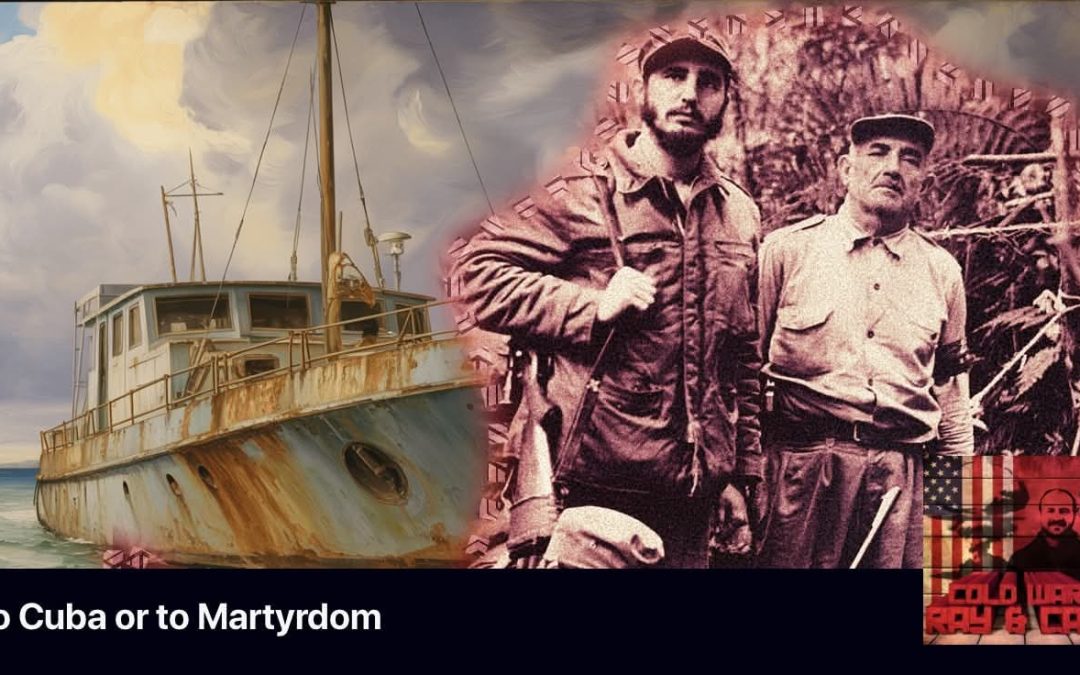
Cold War #297 – To Cuba or to Martyrdom (Cuban Revolution #22)
In this episode of *The Cold War*, Cameron and Ray trace the strange, lucky, unlikely, often chaotic road that led Fidel Castro, Che Guevara, and their small band of exiles from a rented farm outside Mexico City to the deck of the *Granma* in late 1956. The show follows their botched guerrilla training, their arrest by Mexican police, Che’s absolute refusal to hide his communism, the ideological debates that erupted right inside the interrogation room, and the role of former presidents of Mexico and Cuba in getting them released. Fidel’s memoirs come alive in long excerpts about Stalin, Trotsky, Che’s stubborn fearlessness, and the enormous role of luck in history. The episode finishes with Che’s own recollection of meeting Fidel, forging their bond, and boarding the *Granma* with the now-famous vow: *“In 1956, we will be free or we will be martyrs.”*
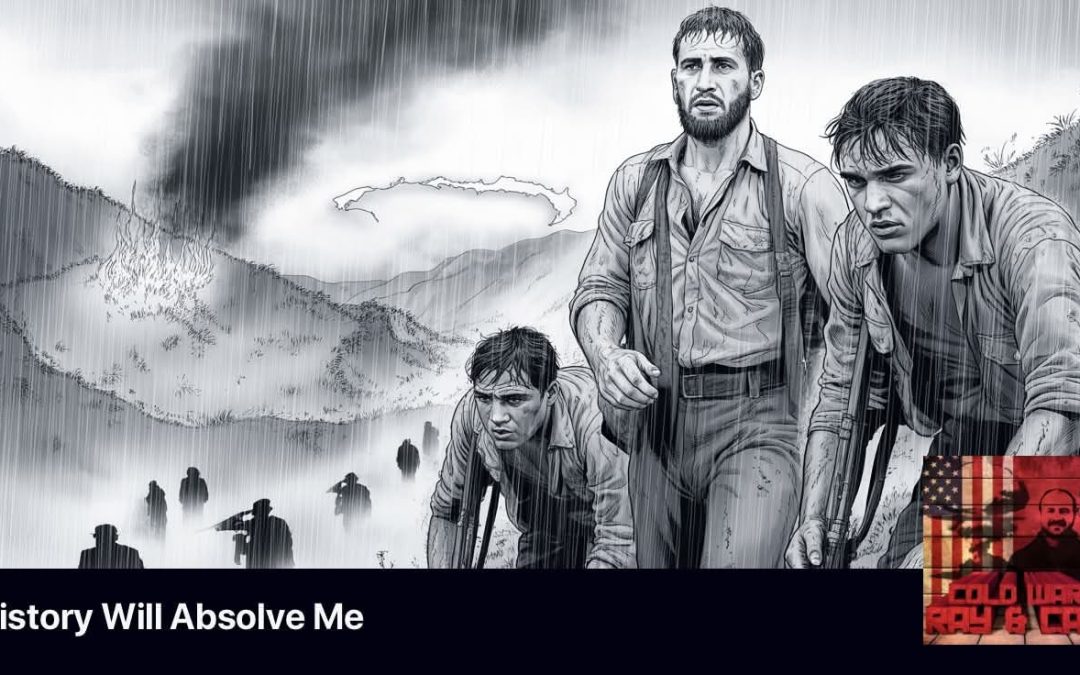
Cold War #295 – History Will Absolve Me (Cuban Revolution #20)
Fidel Castro’s first attempt to ignite revolution in Cuba ends in disaster — but also forges the legend. We follow the aftermath of the failed 1953 Moncada Barracks raid: the brutal reprisals, Fidel’s near-execution, the unlikely lieutenant who saves him, the public opinion shift as Batista’s regime overreaches, and Fidel’s transformation from fiery idealist to imprisoned revolutionary intellectual. We hear how History Will Absolve Me is born, what Fidel is reading behind bars (spoiler: Trotsky and Roosevelt), and how his personal life gets… complicated. By the time he’s released after only two years, Castro is no longer just a nuisance — he’s become the most famous man in Cuba and an unstoppable symbol of rebellion. 
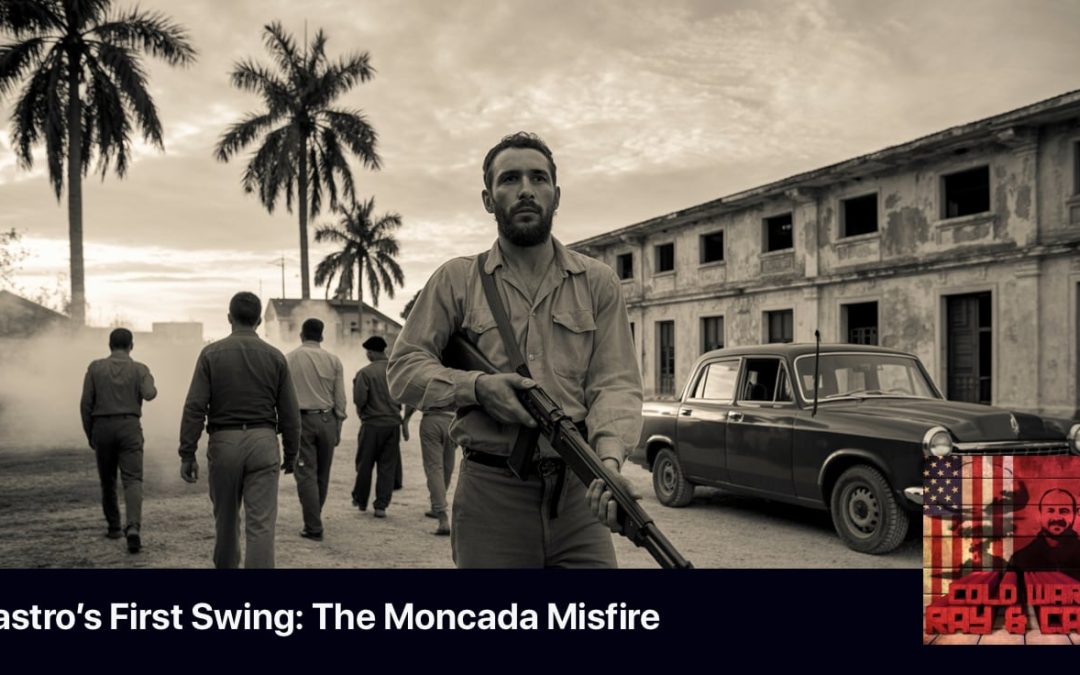
Cold War #294 – Castro’s First Swing: The Moncada Misfire (Cuban Revolution #19)
In this episode, Cam and Ray bring their trademark banter and historical nerdery to the story of Fidel Castro’s first attempt at revolution — the ill-fated 1953 Moncada Barracks attack. What starts as a coup joke about Batista’s boredom quickly spirals into a lively mix of history and comedy. We follow a 26-year-old Fidel as he decides that ballots and lawsuits won’t topple a corrupt regime, so he turns to bullets instead. The episode explores his planning, paranoia, and sheer audacity as he leads a small group of poorly armed men in a doomed assault on one of Cuba’s largest military garrisons. Along the way, the boys detour into mobsters, Catholic apostles, ham-radio fanatics, and whether Ray actually has friends who play pool. By the end, we’re left with Fidel’s first great failure — the Moncada disaster — and the foreshadowing of the revolution to come.
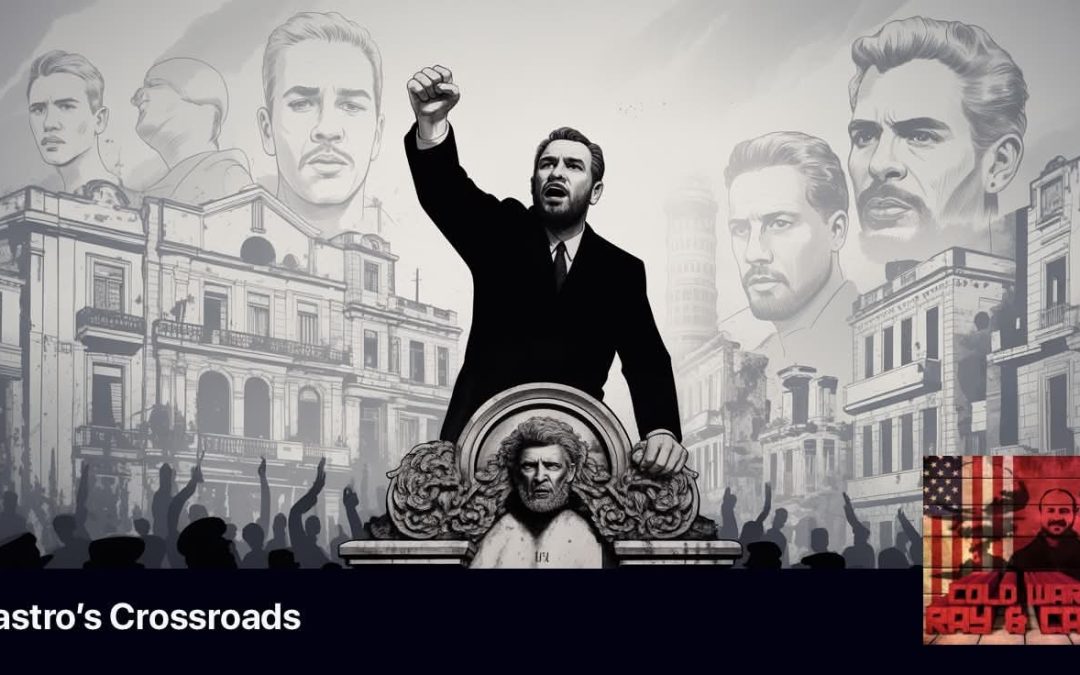
Cold War #293 – Castro’s Crossroads (Cuban Revolution #18)
In this episode of Cold War, Cameron and Ray dig into the aftermath of Batista’s March 1952 coup in Cuba and how it shaped Fidel Castro’s early strategies. The conversation explores Castro’s proclamation denouncing the coup, his first failed attempts to rally the public, and why the Cuban people weren’t yet ready for revolution. We see how Castro pivoted from politics to pamphlets, protests, lawsuits, and eventually the realization that only a professional revolutionary force could succeed. Along the way, the hosts connect Batista’s propaganda playbook with U.S. media bias, draw parallels to Iran’s 1953 coup, and reflect on the timeless tactics of seizing power. They also detour into the Mob’s growing influence in Havana and the darker history of honeypot operations linking Epstein, Maxwell, and intelligence agencies.
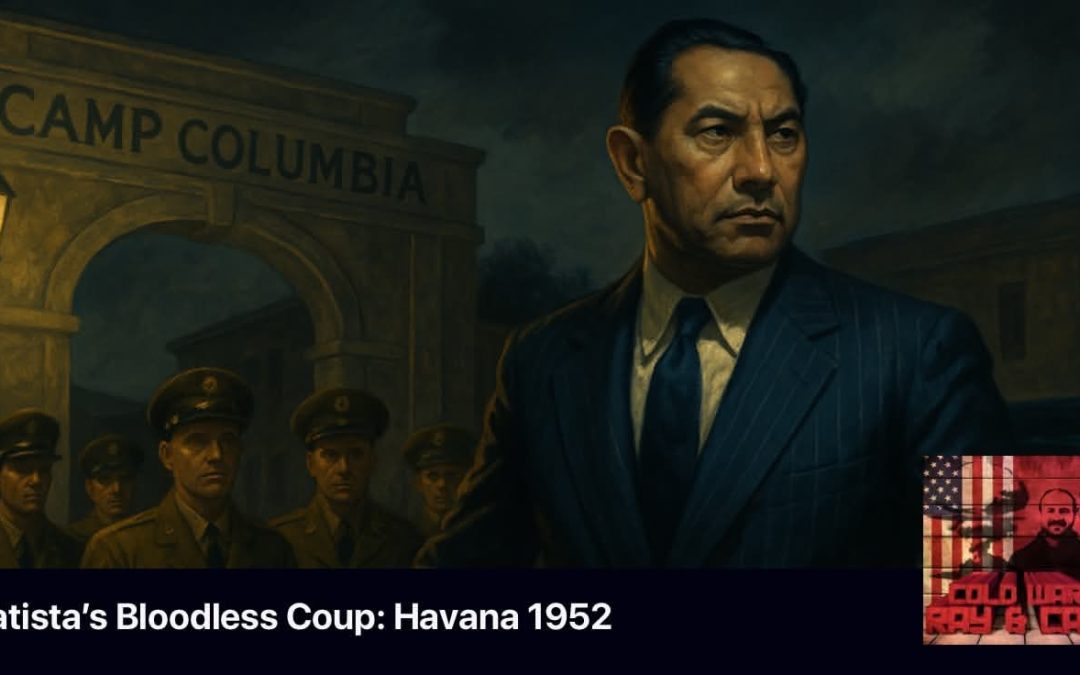
Cold War #292 – Batista’s Bloodless Coup: Havana 1952 (Cuban Revolution #17)
In this episode of The Cold War, Cameron and Ray take us to Havana in 1952, when Fulgencio Batista staged a meticulously planned coup d’état. They walk through the midnight maneuvers at Camp Columbia, the arrest of generals, the swift control of communication hubs, and the apathy of the Cuban people after years of corruption. We see how Batista positioned himself as “the man” while suspending civil liberties, dissolving Congress, and reassuring both the Americans and local elites. Alongside this, Fidel Castro makes his first serious moves as a revolutionary—drafting a proclamation condemning Batista’s coup and beginning the trajectory that would define his life. The conversation ties Batista’s actions to lessons from Rome, Mussolini, and even contemporary American politics, blending history, irony, and sharp commentary.
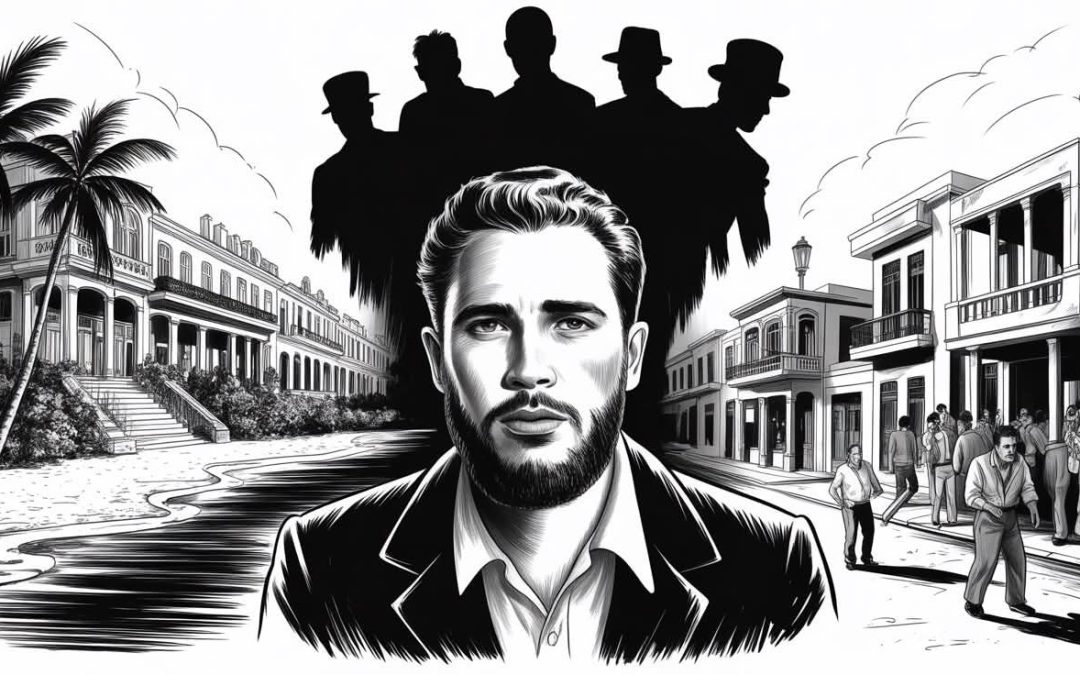
Cold War #291 – The Lawyer for the Poor (Cuban Revolution #16)
In this episode, Cameron and Ray continue the story of Fidel Castro’s early years, charting his transformation from a fiery young activist entangled with street gangs into a determined reformer and aspiring politician. They explore how Castro navigated gang violence in Havana, his involvement with the nonviolent September 30th movement, his bold courtroom defenses, and his law practice dedicated to the poor. The episode also covers his growing disillusionment with Cuba’s political parties, his clashes with President Prío’s corruption, his unlikely meeting with Batista, and his relentless drive to clean up his reputation and pursue political power. Along the way, Cam and Ray weave in colorful anecdotes, wry humor, and comparisons to figures from Rome and Napoleon to highlight the revolutionary forces shaping Castro’s trajectory.
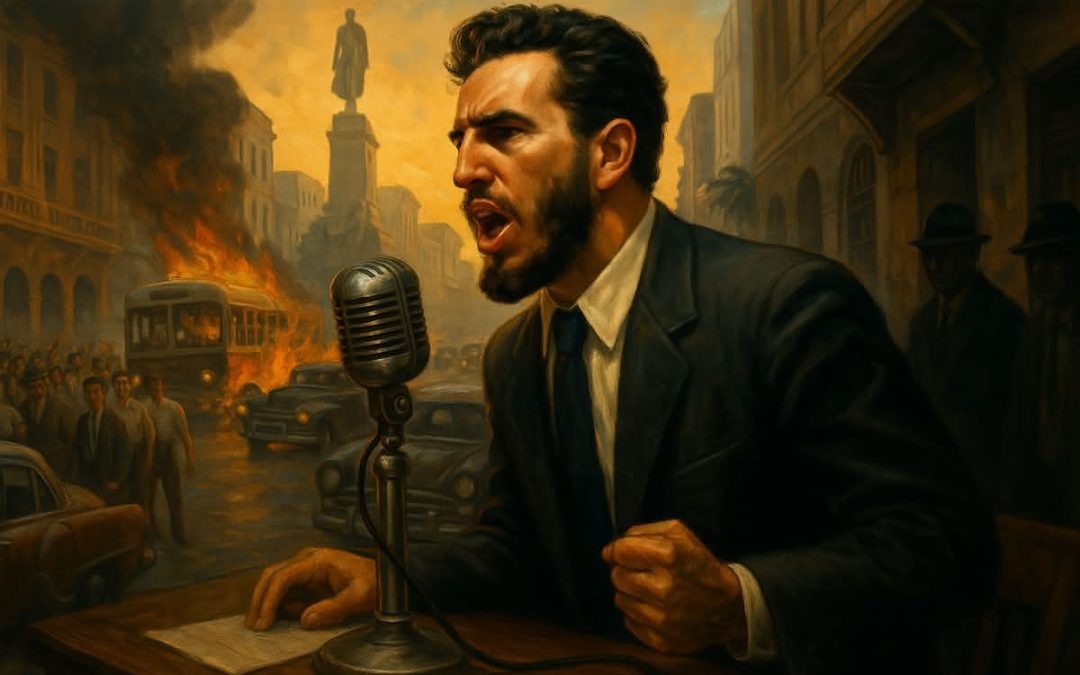
Cold War #290 – The Making Of Fidel (Cuban Revolution #15)
Cameron and Ray pick up Fidel Castro’s story in 1948 as he returns from Colombia in the wake of the Bogotazo riots. We follow Castro through his early 20s as he campaigns for Eduardo Chibás, clashes with Havana police over accusations of corruption, and narrowly escapes being framed for murder. The conversation dives into the student-led bus fare protests—linked to shady U.S. business deals—that propelled Castro into the spotlight. We hear about his whirlwind romance and three-month honeymoon in the United States, his growing fascination with Marxist thought, and his balancing act between rival student gangs and political factions. The episode ends with the murder of his close friend, fellow activist Manolo Fuentes, a turning point that forces Castro to reconsider his alliances and the dangerous reality of Havana’s violent political landscape.
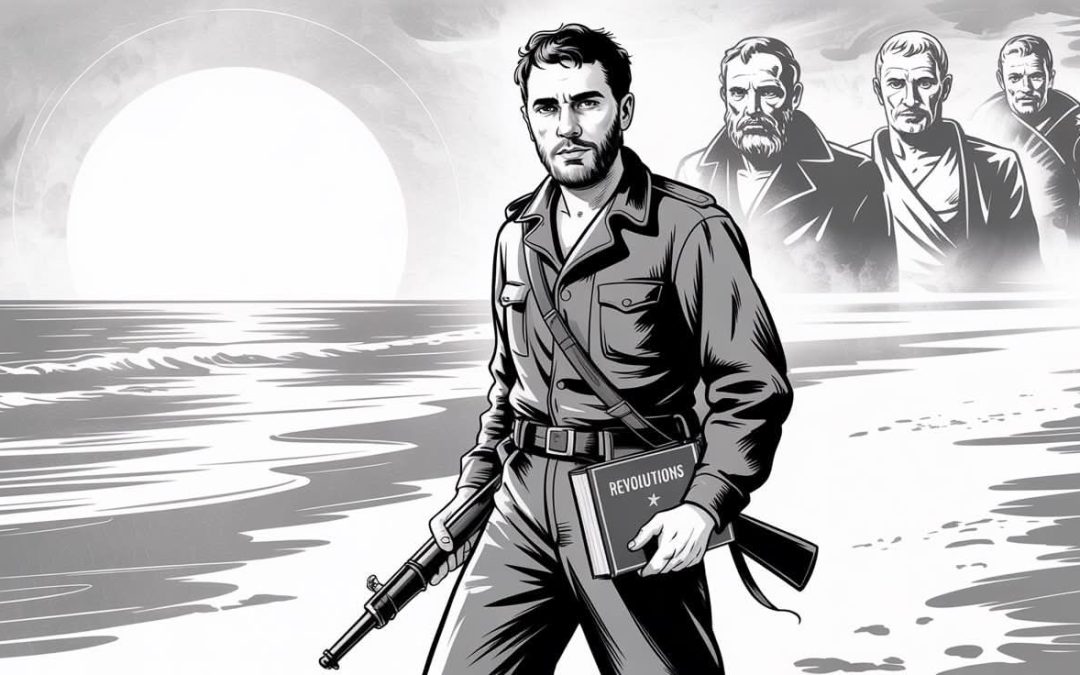
Cold War #289 – The Rise Of Fidel (Cuban Revolution #14)
In this episode, Cam and Ray kick off their deep dive into the life and legend of Fidel Castro. Picking up from the Batista coup of 1952, they trace Fidel’s early years—born illegitimate on his father’s sugar plantation, educated by Jesuits, and shaped by political violence. We follow Fidel through elite boarding schools, law school radicalisation, and his early attempts to overthrow regimes across Latin America. From jumping ship with a machine gun to surviving student death threats, Castro emerges as a man driven by revolutionary ideals, a hunger for justice, and an almost messianic sense of destiny. Along the way, we encounter Perón, Guevara, Trujillo, and Gabriel García Márquez—and we get a glimpse of the revolutionary vanguard that would eventually upend Cuba forever.
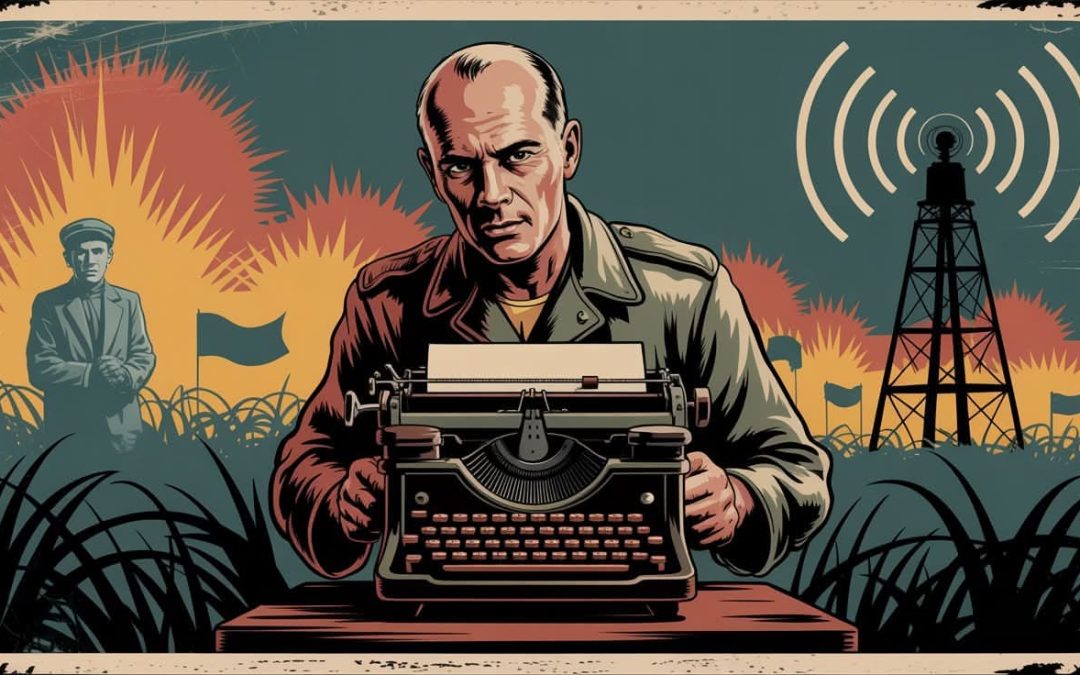
Cold War #288 – Seven Governments, One Puppetmaster (Cuban Revolution #13)
In this raucous and revelatory episode of _The Cold War Podcast_, Cameron and Ray finally reach the man of the hour: Fulgencio Batista. From humble military stenographer to kingmaker of a chaotic Cuba, Batista’s rise is traced through coups, constitutions, and crushing dissent. Cameron performs a blistering freestyle rap tribute to Ray (“Ray Bear Has No Hair”), then the duo dive into Batista’s reign, the boom years of WWII, puppet governments, violent suppression of opposition, and the eerie parallels to authoritarian creep in modern democracies. The episode also explores the cultural fallout of constant violence, Fidel Castro’s formative influences, and the suicide of Eduardo Chibás on live radio—a moment that cemented Castro’s revolutionary zeal. Come for the history, stay for the dick jokes, cos this one’s got everything.
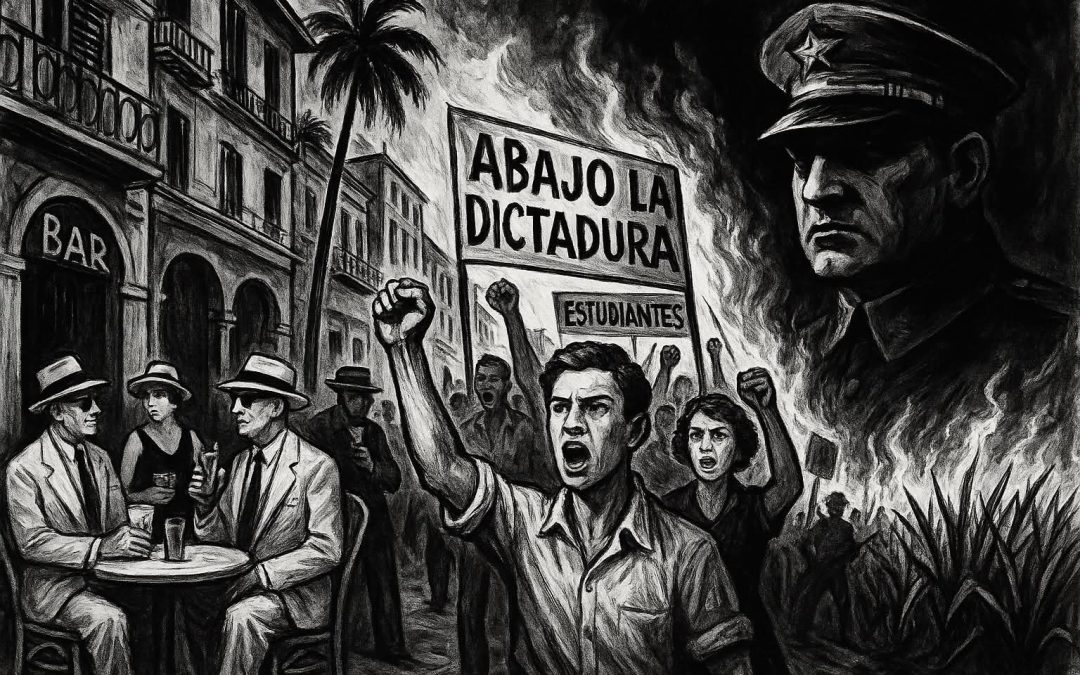
Cold War #287 – The Fall of Macho Man Machado (Cuban Revolution #12)
In this episode of the Cold War podcast, Cam and Ray continue their wild ride through Cuban history, focusing on the rise and fall of Gerardo “Macho Man” Machado, the proto-strongman president who turned Cuba into a playground for rich tourists—and a pressure cooker for everyone else. From political repression and violent union crackdowns to communist organizing and student uprisings, this chapter sets the stage for Cuba’s eventual revolution. Along the way, we meet fascinating figures like Julio Antonio Mella (the OG Castro prototype), discuss the communist roots of Cuban resistance, and learn how America played both arsonist and firefighter in the region. Plus: cigars, lesbians, and martinis. You’re welcome.

Cold War #285 – Cuban Schemes & Sugar Dreams (Cuban Revolution #10)
In this episode of _The Cold War Podcast_, Cam and Ray pick up the story of post-independence Cuba as it slides from colonialism into an economic and racial stranglehold orchestrated by the United States. They trace the rise and fall of early Cuban presidents like José Miguel Gómez and Mario García Menocal, highlighting the rampant corruption, U.S.-controlled infrastructure, and systematic exclusion of Black Cubans from political and economic power. From the installation of U.S. companies like ITT and United Fruit to the brutal repression of the Independent Colored Party in 1912, the episode paints a damning portrait of Cuba as a pseudo-independent client state. Cam and Ray also reflect on the romanticised myths of American benevolence, challenge common perceptions of anarchism, and tie it all into modern parallels of power, race, and empire.
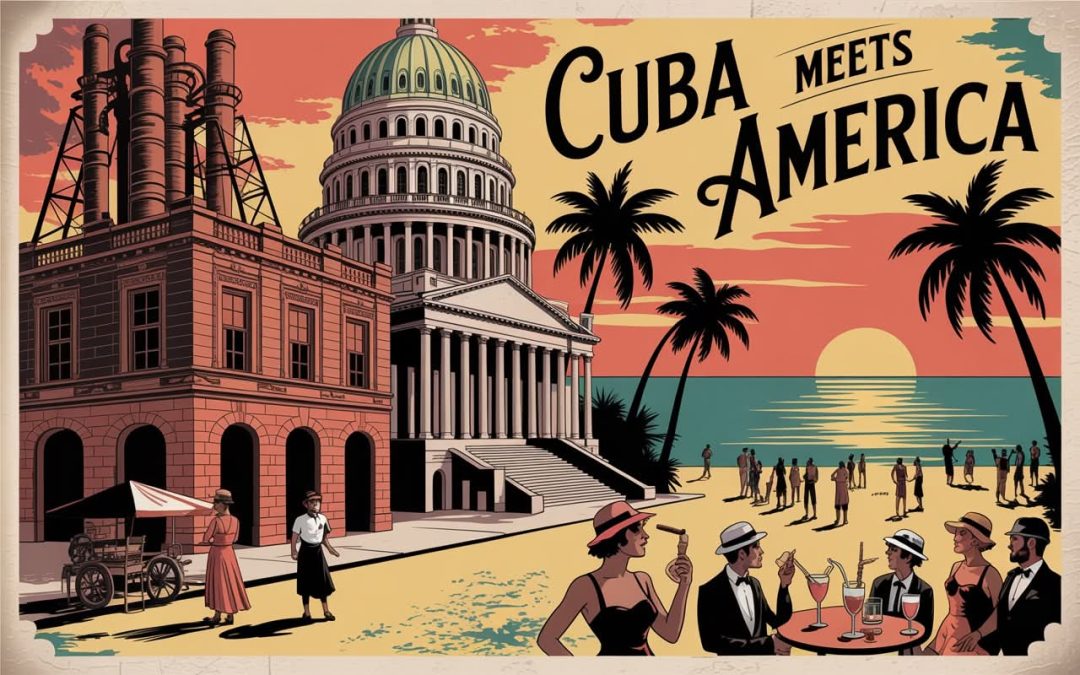
Cold War #286 – The Macho Man Cometh (Cuban Revolution #11)
In this wild episode, Cam and Ray kick things off with a “Cam-hole” into the politics and economics of Cuba in the early 20th century. From rigged elections to sugar-fueled financial collapses, and from macho presidents to the American colonization of Cuba’s economy, it’s a vivid portrait of how imperialism, tourism, and opportunistic strongmen shaped the island nation. Expect dead bankers, disco communists, FDR parallels, Einstein in the slums, Hemingway’s horniness, and some brutal political satire.

Cold War #284 – Freedomish (Cuban Revolution #9)
In this episode, Cameron opens with a wild midnight ER visit that turns into a rumination on aging, mortality, and kung fu-induced hypochondria. Once the chest pains are out of the way, we pick up where we left off on Cuba’s “independence” after the Spanish-American War – President Tomás Estrada Palma, the illusion of Cuban self-rule under the Platt Amendment, and the classic U.S. playbook of indirect colonialism. We unpack how American businesses flooded Cuba, bought up the land, rigged elections, and backed friendly elites.
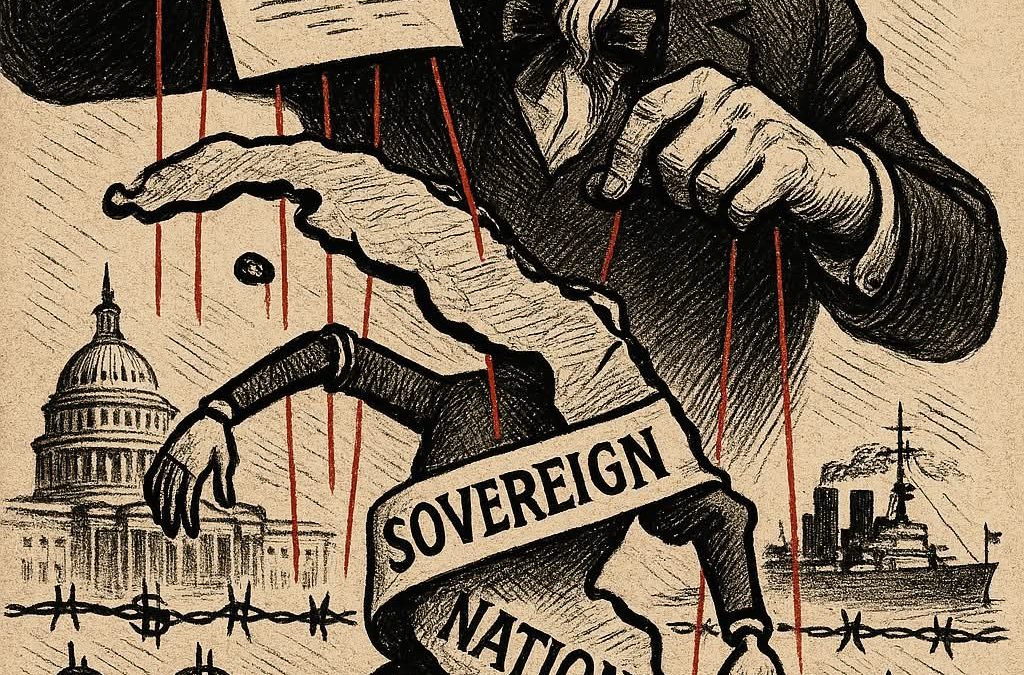
Cold War #283 – The Platt Amendment (Cuban Revolution #8)
Following the Spanish-American War, the U.S. Occupation Government of Cuba forced elections. They tried to engineer Cuba into voting to become one of the United States – instead the Cuban people chose independence. So the U.S. introduced the Platt Amendment, aimed at long term control over Cuba’s military and economy while declaring them to be a sovereign nation.

Cold War #282 – Rigging Democracy (Cuban Revolution #7)
We look at the complexities surrounding America’s occupation of Cuba at the dawn of the 20th century – General Leonard Wood’s appointment as governor, his controversial educational and economic reforms favoring American interests, and the racial tensions arising from imported labor practices. We look at America’s strategic objectives behind colonial expansion, comparisons to Britain’s occupation tactics in Egypt, and the intricacies of Cuba’s manipulated elections aimed at ensuring American influence persisted post-occupation – the realities of imperialism, independence movements, and geopolitical manipulation, setting the stage for understanding the roots of the Cuban revolution.

Cold War #281 – The American Land Grab (Cuban Revolution #6)
Towards the end of 1899, a new American governor was appointed in Cuba – General Leonard Wood, the recent commander of the Rough Riders along with Teddy Roosevelt. He set up thousands of free schools and introduced economic reforms – which caused a massive wave of dispossession and bankruptcy and enabled an American land grab.

Cold War #280 – A U.S. Military Dictatorship (Cuban Revolution #5)
So, it’s 1898, the Spanish have evacuated the island of Cuba after 400 years of rule, and the United States have taken their place. They ran Cuba as a military dictatorship. General Brooke, the first U.S. governor of the island, said, “There is not a sensible man who thinks we can leave for a long time.”
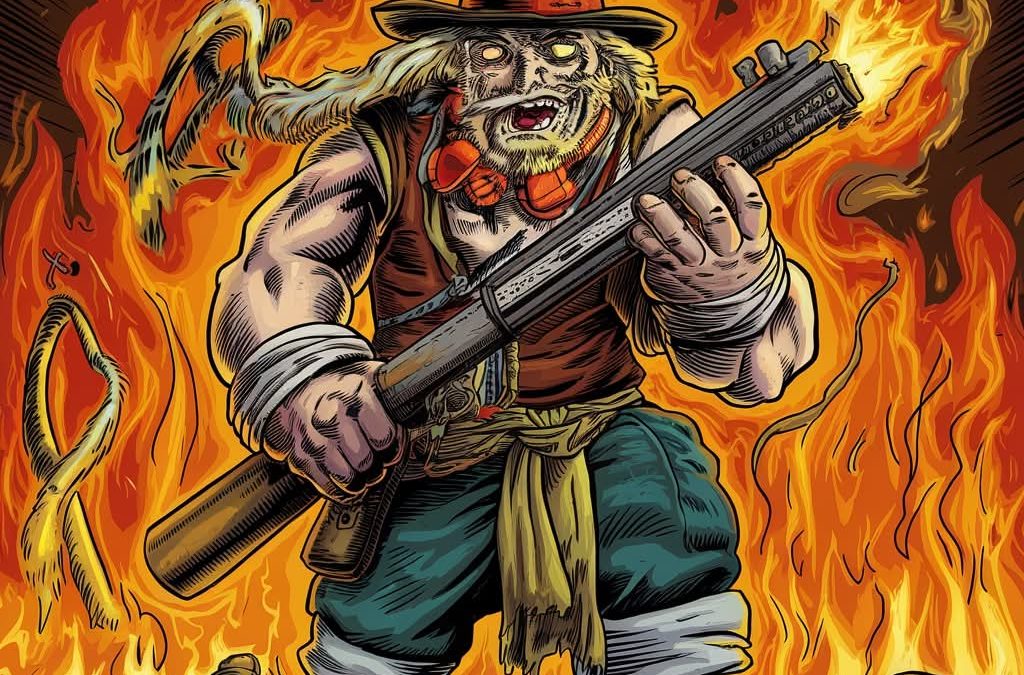
Cold War #279 – Gunpowder In Hell (Cuban Revolution #4)
When the U.S. troops landed in Cuba, it changed the nature of the war. The old racism returned. Of course, when the war was over in July, the U.S. had no intention of letting the Cuban people have their independence. As the commander of US forces in Cuba said: “Why, these people are no more fit for self-government than gunpowder is for hell.” In the fight for freedom, lives had been lost and the country had been wiped out economically. Yet the Cubans still weren’t going to get their independence.
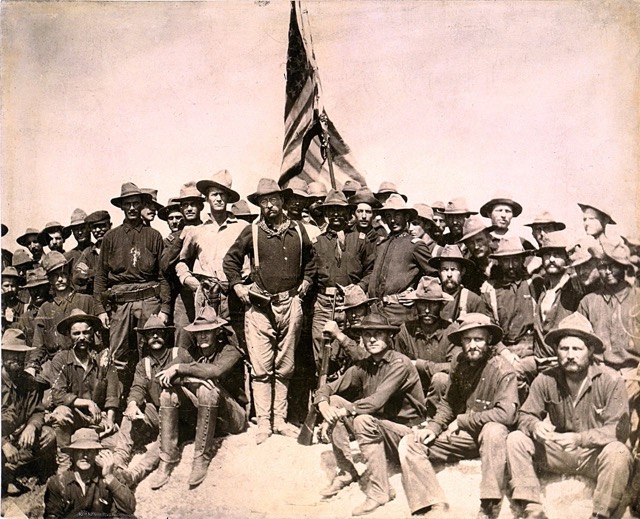
Cold War #278 – Rough Riders, Buffalo Soldiers (Cuban Revolution #3)
So in January of 1898, the Cubans were on the verge of victory in their battle for independence against Spain. And while the US government was happy to see Spain out of the picture, they had no intention of allowing Cuba to be independent. Since the days of Jefferson back in the 1790s, almost every presidential administration in Washington had imagined Cuba would eventually be US territory. The newly elected President, William McKinley, wanted to take Cuba without war if possible. But some, like future President Teddy Roosevelt, couldn’t wait to turn it into a war.
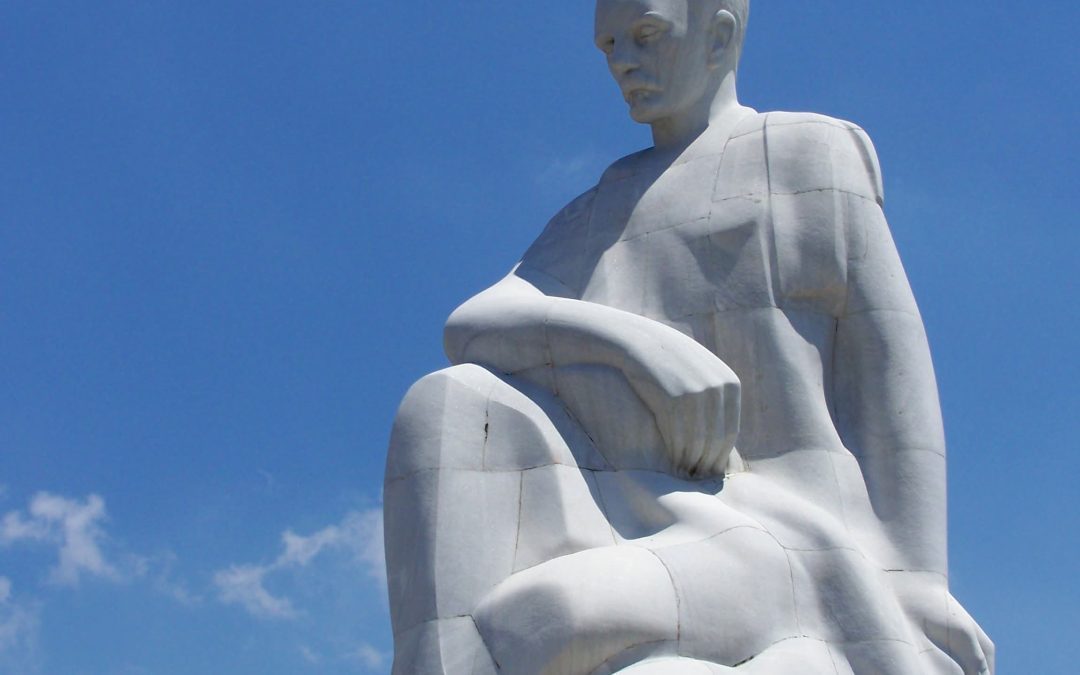
Cold War #277 – José Martí (Cuban Revolution #2)
In this episode we introduce one of Cuba’s greatest heroes – José Martí. Castro frequently referred to Martí as the “intellectual author” of the Cuban revolution. He fought to free Cuba from Spain and to protect it from the hungry ambitions of the United States. Meanwhile, the creation of “Yellow Journalism” invented the modern American propaganda playbook – how to convince the country to go to war to protect the commercial interests of a few rich men.

Cold War #276 – The Cuban Revolution
It’s finally time to talk about the Cuban Revolution. But of course before we can do that story justice, we need to explain some back story. Everything needs to be understood in context. Let’s go back in time to when Spain still had its American colonies.
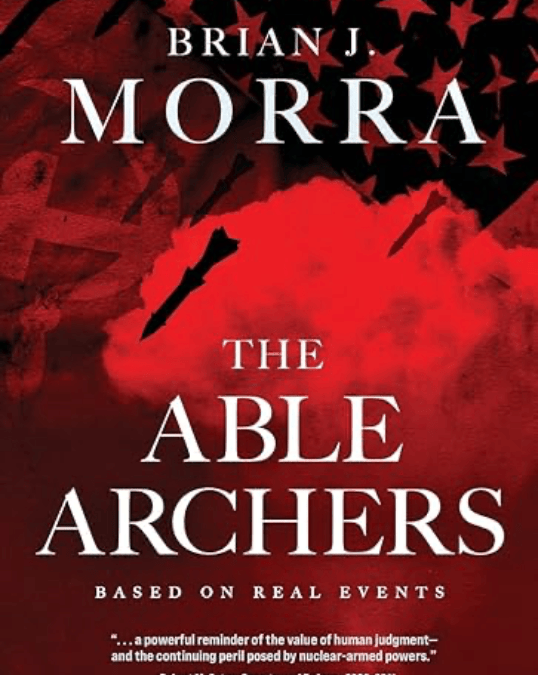
Cold War #275 – 1983 (Interview)
Some people have said 1983 was the most dangerous year in human history. On four separate occasions, the U.S.A. and the USSR nearly ended up in a hot nuclear war. Soviet leaders apparently became deeply worried that the US was preparing to launch a surprise nuclear attack on the USSR under the cover of a NATO exercise titled ‘Able Archer.’ Brian J. Morra is a former U.S. intelligence officer and a retired senior aerospace executive who took part in the events of 1983 and has written an excellent and terrifying book on the topic, “The Able Archers”. He’s our guest today. We talk about the events of 1983, why 2024 might be even more dangerous, and why world leaders haven’t learned the lessons of 1983.
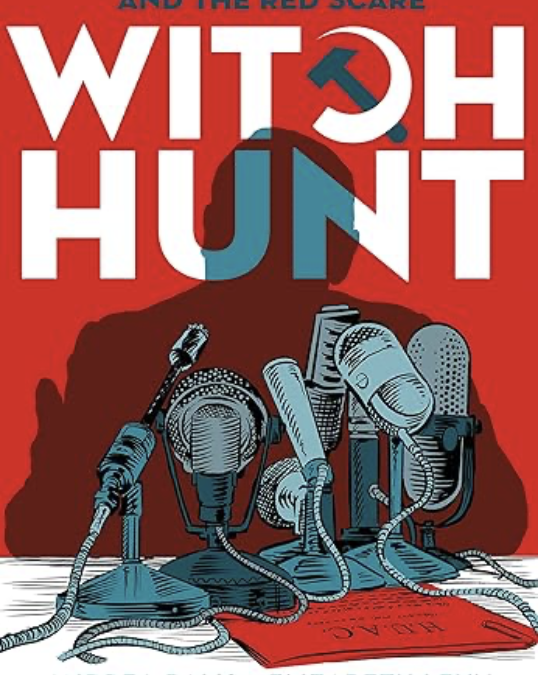
Cold War #274 – Witch Hunt (interview)
Today we interview Andrea Balis & Elizabeth Levy, co-authors of the book “Witch Hunt: The Cold War, Joe McCarthy, and the Red Scare”, a cutting-edge look into a pivotal moment in US history: McCarthy’s infamous “witch hunt” for communists during the 1950’s Red Scare.
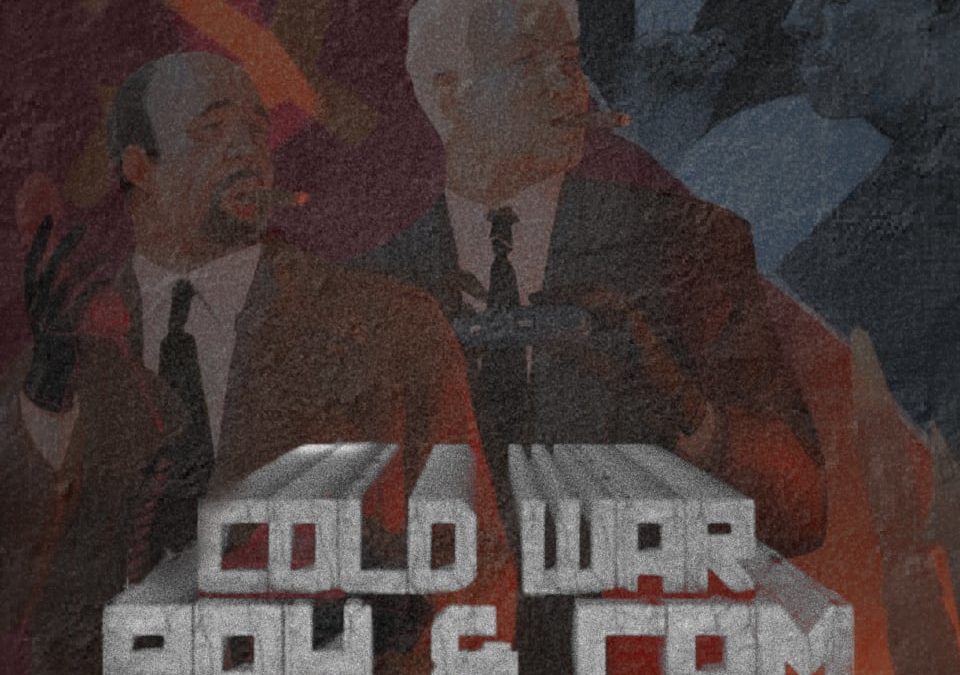
Cold War #273 – Black Propaganda (Tibet Part 6)
The reasons the CIA got involved in Tibet are complicated. But they seem to have had nothing to do really with protecting the Dalai Lama or any sort of ideological belief in Tibetan independence. It had more to do with weakening China once it became a communist country. The covert goal of the United States National Security Council was to “Discredit the prestige and ideology of International Communism” by using “black” propaganda – manufactured lies about fabricated atrocities which were disseminated through credible sources.

Cold War #272 – Tertia Optio (Tibet Part 5)
For nearly two decades, the CIA ran a covert operation designed to train Tibetan insurgents and gather intelligence about the Chinese, while smuggling weapons and money into Tibet, pushing Tibetan supporters of the Dalai Lama to launch violent uprisings, and using “black propaganda” to spread lies about Chinese atrocities in the region. But the U.S. never supported Tibetan independence. They were just another pawn in the Cold War.

Cold War #271 – The Dalai Lama of Marxism (Tibet Part 4)
During the 1950s, social unrest rocked Tibet, partly because of power struggles at the top level of the government and partly because the poor masses wanted a revolution like the one in China. Meanwhile, the Dalai Lama actually began to support the idea of Marxism.

Cold War #270 – Two Opposing Things (Tibet Part 3)
There’s nothing hotter than Tibetan-on-Tibetan violence, especially when it’s the two top government officials having a civil war over the new Dalai Lama, as happened in Tibet in 1947. But don’t let anyone ever tell you that making a child the head of a religion and government isn’t a sensational idea. It’s NEVER gone badly. EVER. And did you know that the Dalai Lama was responsible for the first CIA officer ever to get killed in the line of duty? Good luck with that next reincarnation, fella.

Cold War #269 – The Great Game (Tibet Part 2)
In 1904, the British sent an army into Tibet to secure it for Britain. It resulted in a massacre when the British opened fire with their new Maxim machine guns on Tibetans holding spears. The Dalai Lama was forced to flee the country. Over the next few decades, Tibet was oppressed by the British and China (also controlled by Britain, especially after the “Boxer Rebellion”) who sent in “the Butcher of Kham” to control Tibetan uprisings. When the 13th Dalai Lama finally died, he was replaced by Lhamo Dhondup, the current Dalai Lama, who was ratified by China’s new Kuomintang Government.

Cold War #268 – The CIA and Tibet (Tibet Part I)
We all know that Tibet and China have a history, and that the U.S.A. is always in the middle of it. But you may not know that The United States recognizes Tibet to be part of the People’s Republic of China or that the UK and the U.S.A. have spent over a century trying to wrest control over Tibet away from China. This is part one of that story.

Cold War #267 – Coup De Grace Of The Coup D’etat (Operation Ajax part XXV)
The CIA’s second attempt at a coup succeeds. Mossadegh is driven into hiding and General Zahedi declares himself the new leader of the country. The CIA celebrates wth champagne.

Cold War #266 – The First Attempt (Operation Ajax part XXIV)
It’s the middle of 1953, and the CIA is ready to execute their coup against the democratically elected government of Iran. The plan? Spend a bucket load of money hiring thugs to cause riots in the streets. Blame it on Mossadegh and then bribe a corrupt member of the Iranian military to go and arrest him. Unfortunately for the CIA, it didn’t go to plan.

Cold War #265 – The CIA Green Light (Operation Ajax part XXIII)
In early 1953, Churchill initiated a plan with the CIA to overthrow Iranian Prime Minister Mossadegh, involving key figures like General Sahedi and the Rashidian brothers. Aided by disinformation campaigns, the Shah fled Iran, stirring public outcry. Despite initial resistance from Eisenhower, pressure from the Dulles brothers and ongoing chaos in Iran convinced him to approve the coup. The CIA allocated significant funds to destabilize Mossadegh’s government, ultimately leading to Mossadegh realizing the U.S. would not support him against British interference. The situation escalated with organized turmoil, political bribery, and strategic assassinations, culminating in Mossadegh’s political isolation by mid-1953.

Cold War #264 – “C” not “M” (Operation Ajax part XXII)
Ever wondered why the heads of MI6 are called “M”? Well they aren’t. They are called “C”. It all started with Sir Mansfield Smith-Cumming, who signed his docs with a green “C.” This guy was a true legend—a retired Navy man who became the spymaster extraordinaire, famous for his love of gadgets and high-speed Rolls-Royce drives. His dramatic life included cutting off his own foot after a car crash to save his son. MI6 has always been shrouded in secrecy, with its chiefs staying out of the limelight. But thanks to novels and movies, especially those by Ian Fleming, the real-life adventures of these spies have become legendary.

Cold War #263 – A New Hope (Operation Ajax part XXI)
The election of Eisenhower as U.S. President in Nov 1952 gave the British a new hope that the country might now support their plans to overthrow the Iranian government. Even before Ike took office, they sent Monty Woodhouse, the former chief of MI6 in Tehran, to Washington to start working with the Dulles brothers, soon to be the guys running the U.S.’s overt and covert foreign policy.

Cold War #262 – Enter Kermit (Operation Ajax part XX)
Mossadegh is more popular than ever. But that isn’t going to stop the British from conspiring against him. They decide that next time they try to bring down his government, they will need to find a way to get the mob on their side. Key to their future plans will be General Zahedi and the CIA’s Kermit Roosevelt.

Cold War #261 – Mossadegh’s Victory (Operation Ajax part XIX)
In July of 1952, eight months after he got back from Washington, and in the middle of fighting Anglo-Iranian in the World Court, Mossadegh paid a visit to the Shah and asked him to relinquish control over the army. The Shah refused. So Mossadegh resigned. The British and the Shah were ecstatic and appointed a new puppet PM who announced a new order – the British would be back in control over the oil and anyone who complained would be arrested. The country erupted in protest. And so Mossadegh was re-appointed within days – now with complete control over the army.

Cold War #260 – Mo Oil Mo Problems (Operation Ajax part XVIII)
As Mossadegh wins the hearts and minds of Americans and the world, the British re-elect Churchill who considered Mossadegh “an elderly lunatic bent on wrecking his country and handing it over to the communists.”

Cold War #259 – Mossadegh at the UN (Operation Ajax part XVII)
In October 1951, Mossadegh flew to New York to address the United Nations and then to Washington to meet with Truman. It was the first time the UN was used by a poor, post-colonial country to voice their grievances against Western aggression. He was going toe-to-tow with Britain’s great white hope, Sir Gladwyn Jebb.

Cold War #258 – The Template (Operation Ajax part XVI)
In actual fact, it wasn’t the CIA that came up with the template for using covert action to destabilise and overthrow a country’s government – it was a fascist British Foreign Secretary and the British academics he hired to bring down Mossadegh. The CIA just took that model and employed it – first in Iran, and then over and over and over again.

Cold War #257 – Operation Oompa-Loompa (Operation Ajax part XV)
In 1951, the British were planning to invade Iran to re-take control of the country’s oil assets. Meanwhile, there were Nazis on the streets of London.

Cold War #256 – Divorce (Operation Ajax part XIV)
The British PM sends a fascist Catholic member of the British elite, Sir Richard Stokes, to talk to Moss the Boss. Mossadegh says he wants a divorce. As he’s leaving Iran, Harriman meets with the Shah and “suggests” it might be time for Mossadegh to go.

Cold War #255 – Harriman The Harasser (Operation Ajax part XIII)
Truman sent Harriman to Iran to try to bring about a diplomatic resolution to the tensions with Britain. It did not go well.

Cold War #254 – The Epic Showdown (Operation Ajax part XII)
Mossadegh started to take over the AIOC offices and appointed a French-educated engineer as the managing director of the new National Iranian Oil Company. The AOIC refused to allow Iran to transport their oil in British tankers. It turns into an epic showdown. The British started planning to have Mossadegh removed from power. Meanwhile the United States got more and more involved.

Cold War #253 – The Good Americans (Operation Ajax part XI)
In the middle of the 20th century, Iranians really liked Americans, mostly due to the fact that their experiences with them (up until that time) had been mainly positive, unlike the British and the Russians. And the Americans were, in 1951, still trying to convince the British to play fair with the Iranians. If only that attitude has lasted.

Cold War #252 – Mossa-Mania (Operation Ajax part X)
After the assassination of Razmara, Mossadegh’s oil committee voted unanimously to nationalise the AIOC. Iran went crazy for Mossadegh. It was Mossa-Mania. The British were furious and tried to appoint a new Prime Minister, the latest in the line of “guys they were sure could get the job done”. It backfired. Massively.

Cold War #251 – Fedayeen (Operation Ajax part IX)
The increasing tensions in Iran, driven in part by British imperialism, leads to the formation of a religious terror group called Fedayeen-i-Islam, the first of its kind.

Cold War #250 – The National Front (Operation Ajax part VIII)
In 1949 the Iranian Majlis put forward a bill to revoke the British oil concession. This, combined with worker riots in Abadan, prompted the British to take action. Meanwhile, Mossadegh forms a new political party, The National Front, and General Ali Razmara, who had been one of General Schwarzkopf’s most trusted officers, is made PM at the “suggestion” of the British.

Cold War #249 – Mossadegh vs The Shah (Operation Ajax part VII)
When Reza makes himself Shah, Mossadegh is livid. He refuses to agree to it. Then he turns down multiple senior positions in the Shah’s cabinet. He ends up retiring from public life at age 45, gets imprisoned, and tries to commit suicide. He returns when the Shah is forced to abdicate, but an attempted assassination on the new Shah makes the political situation in Iran even worse. And a flamboyant American soldier arrives to help build a brutal paramilitary police force – General H. Norman Schwarzkopf Sr.

Cold War #248 – Iranian Kryptonite (Operation Ajax part VI)
Mossadegh had two non-negotiables that drove his political game. First, he was a die-hard believer in the rule of law, which put him on a collision course with autocrats like Reza Shah. Second, he was all about Iranian self-rule, making him Public Enemy No. 1 for the Anglo-Iranian Oil Company. He wasn’t just against them; he was their kryptonite.

Cold War #247 – Black Gold & Betrayal (Operation Ajax part V)
Dive into the turbulent history of oil in Iran, where George Reynolds, a self-taught geologist funded by Aussie entrepreneur William Knox D’Arcy, battled smallpox, bandits, and desert heat to uncover the largest oil field ever found. Reynolds’ discovery catapulted Iran into the global energy arena, but not without exploitation and strife. D’Arcy and the Scots invested heavily in what became the Anglo-Persian Oil Company—later BP—creating a colonial empire in Abadan that funneled wealth away from Iranians. Winston Churchill recognized the geopolitical prize, leading the British government to buy a majority stake in the company. Despite internal revolutions, worker strikes, and the rise of nationalist figures like Mohammad Mossadegh, the relationship between Iran and Britain remained fraught, embedded in a complex web of financial and political interests. From world wars to the overthrow of regimes, the story of Iranian oil is a saga of ambition, betrayal, and raw power.

Cold War #246 – Reza Shah (Operation Ajax part IV)
We’re talking about Reza Shah, a soldier who rose to power from a humble background, pulled of a British-engineered coup, and effectively ruled Iran from 1921 – 1941.

Cold War #245 – The Strangling of Persia (Operation Ajax part III)
Iran’s first attempt at democracy ended when the British and the Russians decided amongst themselves to divide up Iran in 1907 and supported the new Shah’s desire to crush the parliament. But the Iranians fought on, exiled the Shah and replaced him with his 11 year old son. Then they hired an American banker to clean up corruption. The British and Russians didn’t like that, so they had him thrown out as well.

Cold War #244 – Operation Ajax (II)
The Shah continued selling the family jewels to the British and Russians, including the entire Iranian tobacco industry. He was eventually assassinated and replaced by his son, who had learned nothing. In 1901 he sold William Knox D’Arcy the entire Iranian oil industry. This shaped all of subsequent Iranian history.

Cold War #243 – Operation Ajax (I)
In this episode, we delve into the history of Iran, focusing on the US’s role in ending democratic rule in 1953 and installing Mohammad Reza Shah’s dictatorship, a fact well-known in Iran but only admitted by the US in the 90s. This event led to the Islamic Revolution of 1979, headed by Ayatollah Khomeini, and fueled anti-Western sentiments across the Middle East. We discuss the significant figure of Mohammad Mossadegh, and the history of Iran under the Qajar shahs, the stagnation and foreign exploitation during this period, and the controversial Reuter concession of 1872, which was a significant surrender of Iran’s industrial resources to foreign control, but was quickly cancelled due to widespread opposition.

Cold War #242 – Psychological Warfare
The trial of Julius and Ethel Rosenberg and the concept of psychological warfare. The Rosenberg trial, which began in March 1951, was a sensational case involving accusations of espionage for the Soviet Union. The couple, tried alongside fellow Communist Morton Sobell, were defended by Manny and Alexander Bloch. The trial involved key testimonies, including that of David Greenglass, Ethel’s brother, who admitted to passing on atomic information. The Rosenbergs were found guilty and sentenced to death. The trial was heavily influenced by the ongoing Cold War tension and the fear of Communist threat.
We also discuss the creation of the Psychological Strategy Board (PSB), designed to coordinate Cold War psychological warfare and propaganda. The PSB worked on creating a narrative to justify prosecuting the Rosenbergs, though this narrative faced opposition. The PSB was later dissolved and its functions transferred to other organizations. The use of psychological operations continues today, conducted by the Department of Defense, the Central Intelligence Agency, and the United States Agency for Global Media.
Finally, the we explore the ‘spiral of silence’ theory by Elisabeth Noelle-Neumann, a concept explaining how individuals often conform to majority opinion due to fear of isolation. This concept is particularly relevant in the context of mass communication and public opinion.

Cold War #241 – The Rosenberg Trial
We continue the shocking story of Julius and Ethel Rosenberg, charged with conspiracy to commit espionage from 1944 to 1950. The US government sought the death penalty and engaged in questionable tactics during the trial, while public debate grew over the extreme sentencing. We discuss the role of Roy Cohn, Donald Trump’s future mentor and lawyer, the unethical conduct of judge Irving R. Kaufman, and the damaging testimony of David Greenglass, which falsely implicated his sister, Ethel.

Cold War #240 – The H Bomb (part 2)
After Nagasaki, Oppenheimer went to Washington to convince Truman that a bigger bomb wasn’t the solution. He failed. The guy who ended up designing it was Edward Teller with a little help from a computer called ENIAC and a genius called von Neumann. In the meantime, Truman found out that the number of bombs in the bomb cupboard was a lot less than he thought.

Cold War #239 – The H Bomb
Another thing that happened in 1950 was Truman’s decision to push ahead with building the hydrogen bomb, a weapon hundreds of times more powerful than the atomic bombs that he dropped on Japan. Why did he want even more powerful bombs when the war was over? And who tried to stop him? And who designed the H Bomb? How was it built?

#238 – The “Pumpkin Papers”
Richard Nixon was made the chair of a subcommittee to determine who was lying in the Hiss case. Chambers publicly called Hiss a communist and a spy. As evidence, he produced the “Pumpkin Papers”. Even today, historians can’t agree on whether or not Hiss was guilty. Then we go back to the Rosenbergs and the USG’s attempt to make them an example by making them suffer the ultimate punishment.

#237 – Hiss & the Rosenbergs
During the Cold War, hundreds of Americans spied on their own country for the Soviet Union. Only two of them were executed – Julius and Ethel Rosenberg. Why were they singled out? We delve into that story, which begins with the story of another famous American spy – Alger Hiss.

#236 – Monty
Our final NATO episode! The Pentagon is worried that there isn’t enough military budget to pay for both domestic and European defence. Until someone had the insight that the two might be closely related. So now the Western Union’s defense committee had to pick a commander-in-chief.

#235 – Forging The Alliance
In the second last episode of our NATO series, where we are trying to understand the real story about WHY and HOW NATO came into existence, we look how the US and European ambassadors finally overcame the balance of power issues.

#234 – The Vandenberg Resolution
Everyone is trying to figure out a model for European co-operation. Secret meetings at the Pentagon between the US, UK and Canada in March/April 1948 explored three possible extensions of the Brussels pact. Churchill’s son-in-law, Duncan Sandys then put together a pan-European conference at The Hague (when he wasn’t getting sneaky blowjobs from the wife of a duke). The CIA even had their own secret operation. But the turning point was “The Vandenberg Resolution”.

#233 – Big Stick Diplomacy
During 1947-48, England and France had been working on their own treaty as well as one involving the so-called Benelux countries (Belgium, Netherlands, Luxembourg). That became the basis of discussions about a broader treaty creating a United States of Europe, something many US and European leaders wanted, especially in light of the Marshall Plan. But the path to get there wasn’t clear. Europe was scared of upsetting the Soviets without US guarantees of military support, but the US wasn’t ready to offer that up just yet.

#232 – Norway Wants The Money
The Soviets and Finland had a complex history including a non-aggression pact and a false flag operation used to break it. But the President of Finland after WWII, Paasikivi, signed a new one anyway. Norway, on the other hand, was reluctant to sign one. They went with the US instead, partly because they wanted some of that sweet, sweet Marshall Plan money.

#231 – Finlandization
The other countries that lead to NATO being formed were Norway and Finland.

#230 – The Communist “Coup”
As the Communist Party of Czechoslovakia dominated the 1946 election, former Catholic fascist Slovakia ministers conspire to overthrow the Benes government through acts of terrorism. This leads to a series of purges, protests, strikes, and finally the Communist takeover of Czechoslovakia in 1948.

#229 – Peak Communism
After Benes took control of Czechoslovakia again after WWII, with the support of the Allies, he ran a program of ethnic cleansing, mostly targeting people of German ancestry. And the Czech Communist party became the most popular political party of any country in history in proportion to the total national population.

#228 – Czechoslovakia
Let’s talk about the history of Czechoslovakia. The anti-semitic founder of the modern state was well connected in the USA, all the way up to POTUS. His list of important American friends included a Nazi-lovin’ industrialist. But the state he founded was friendly to Jews and pushed through some socialist progressive reforms…. Until it was abandoned by the Western powers and practically handed to Hitler on a silver platter.

#227 – Something Wicked This Way Comes
Significant electoral victories and strikes by domestic socialist parties in France and Italy pushed the UK to insist on American military support for the Marshall Plan’s rollout. In the United States, there were divergent views on whether or not that was a good idea – until something happened in 1948 which sealed the deal.

#226 – Empire By Invitation
European recipients of the Marshall Plan funds were quite clear to the USA that they needed help keeping the socialists down and out of their countries. And the USA recognized that its own economic welfare rested on the revival of Europe. Funding a pro-capitalist European recovery was a matter of national self-interest.

#225 – The Creation of NATO
We want to take a break from Korea to talk about the creation of NATO. Obviously relevant with the whole Ukraine situation. And it took on a new kind of mission during the Korean War. But let’s go back and look at where it came from.

#224 ‘Thank God that’s over.’
MacArthur is gone but he isn’t going quietly. He thinks he can rally his support into a run for the POTUS job. He is gravely mistaken.

#223 – Terminated
By April 1951, MacArthur wanted to nuke China. But Truman had had enough of his giant ego. It was time for him to go.

#222 – Operation KILLER
Ridgway thought there was no reason for the US army to abandon the Korean peninsula. They just needed to do a better job of digging themselves in. The transformation of Eighth Army after the coming of its new commander astonished and profoundly impressed all those who witnessed it. Meanwhile, MacArthur’s relationship with the Joint Chiefs, and Truman, just became worse and worse. And China conducted its withdrawal methodically, giving the US a chance to back down and save face before it was too late.

#221 – “The Soldier’s General”
General Matthew Bunker Ridgway, “The Soldier’s General”, takes over command of the 8th Army and his “back to basics” approach was exactly what was needed.

#220 – Without Further Bloodshed
By early Feb 1951, it became evident that a military disaster for the UN in Korea wasn’t likely. Under the new command of Ridgway, after Walker had died in a jeep accident, the 8th army were holding on. Meanwhile in China… They also thought they could win the entire Korean Peninsula. So weren’t really trying hard to negotiate a peaceful settlement with two Koreas. But then… On 15 March 1951, MacArthur, who heard that Truman was going to push for peace, gave a press interview…. in breach of Truman’s orders to keep his mouth shut.

#219 – Every Weapon We Have
In December 1950, MacArthur and Truman are both threatening the use of atomic weapons against China and North Korea. Meanwhile, the British are trying to talk them into making peace with China, while Truman struggles with massive unpopularity back home.

#218 – Six Year Recap
While Cam is in the USA, the lads sit down to have a lazy chat about the highlights of the last six years of talking about the Cold War.

#217 – Tarzan
The big question for the Pentagon was why the US collapsed so quickly. They could blame the winter and the mountains – but the Chinese had to contend with those as well. And the US wasn’t sure what their next move was. Truman wanted a quick settlement, but MacArthur wanted escalation.

#216 – Not Their Best
As they are swiftly kicked out of Korea by Mao’s forces in December 1950, everyone seems to be angry at America. The Chinese, the North Koreans, the South Koreans, the British… even the Americans are angry at themselves. Because, like Mexico, they didn’t send their best people.

#215 – The Double Life of Katharine Clark
Today we’re talking to Katharine Gregorio, author of “The Double Life of Katharine Clark, The Untold Story of the American Journalist Who Brought the Truth about Communism to the West”. Clark was her great-aunt, a foreign correspondent who, while posted in Belgrade in the mid-1950s, befriended Milovan Djilas, the former heir apparent to Tito in Yugoslavia and author of the classic “Conversations with Stalin”, which Clark helped get published in the West, at great risk to herself and her husband.

#214 – “Chinese Laundrymen”
MacArthur can feel victory slipping through his fingers in Korea. He was certain the Chinese had been scared off. He was very, very wrong. His choice lay between escalation or humiliation.

#213 – Advancing In A Different Direction
Back to the Korean War and the Battle of Chosin Reservoir aka Lake Changjin. China and the UN/ROK forces fight in freezing cold temperatures. Well, when I say “fight”, I mean the UN forces were “advancing in a different direction”.

#212 – Taiwan Part 4
This is part four of our recent chat about the history of China and Taiwan with James Shone, a teacher who has lived and worked in Taiwan for over a decade. He’s recently started a podcast about the history of Taiwan – https://taiwanthroughtime.com/.

#211 – Fugitives by Danny Orbach
Dr. Danny Orbach is an Associate professor in general history and East Asian studies, the Hebrew University of Jerusalem. His new book, Fugitives, is a history of Nazi mercenaries during the Cold War

#210 – Taiwan Part 3
This is part three of our recent chat about the history of China and Taiwan with James Shone, a teacher who has lived and worked in Taiwan for over a decade. He’s recently started a podcast about the history of Taiwan – https://taiwanthroughtime.com/.

#209 – Taiwan Part 2
Part two of our recent chat with James Shone about Taiwan. Don’t forget to check out this new podcast about the history of Taiwan – https://taiwanthroughtime.com/.

#208 – School’s In
We were recently invited by Paul Giordano, a listener of this show, to give a lecture to the kids studying the Cold War at EF Academy in NY where Paul is the Humanities Department Chair. We spoke for about 40 minutes then did some Q&A with the very bright kids in his class. This is a recording of our Zoom call. We’re available for more school lectures, kids’ parties, wedding and bar mitzvahs.
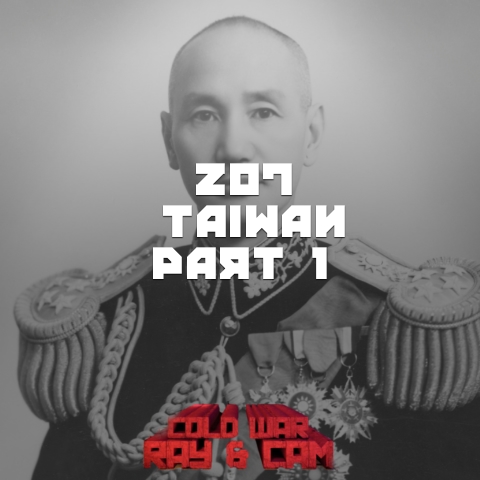
#207 – Taiwan Part 1
In 1949, the Kuomintang retreated from mainland China to the island of Formosa, now known as Taiwan. Ownership of Taiwan would become a major issue during the Cold War, and continues to be a cause of regional tensions, as well as China-US tensions, today. Joining us to talk about it today is James Shone, a teacher who has lived and worked in Taiwan for over a decade. He’s recently started a podcast about the history of Taiwan – https://taiwanthroughtime.com/.

#206 – The Battle of Lake Changjin
The backdrop to the early stages of the Korean War was a US Presidential election which Truman was expected to lose. He also survived his second assassination attempt, this time by Puerto Rican nationalists. The first assassination attempt was by Zionist terrorists. Back in North Korea, China and the US fight over the Chosin Reservoir, aka the Battle of Lake Changjin.

#205 – MacArthur’s Graveyard
Okay – no more foreplay. By early November 1950, Macarthur thought he had the Chinese scared and on the run and he continued his push to the Manchurian border, aka “the Home-by-Christmas Offensive”, assuring his troops they would all be home by Christmas. Little did he know that his 150,000 men were advancing unwittingly into 300,000 Chinese troops and 80,000 North Korean remnants and guerrillas. Neither the CIA or MacArthur’s own intelligence units had any clue what they were walking into. It was to become MacArthur’s Graveyard.

#204 – Mao’s Sejanus
For many years, China’s big bad had been the Kuomintang. As MacArthur and the US/UN forces continued to ignore their warnings about their occupation of North Korea, the USA very quickly became the new Chinese enemy number one. But not all of the Chinese leadership believed they were ready to go to war with the US. Lin Biao, one of the heroes of the revolution, turned down Mao’s request to lead them in war against the US. He died in a mysterious plane crash, was declared an enemy of the revolution, and became Mao’s Sejanus.

#203 – More Foreplay
The Chinese sent the US and UN enough warnings that they wouldn’t idly stand by and allow forces to march into North Korea in 1950. But the US refused to listen. Their arrogance and racist worldview made it impossible to listen. Bizarrely, they interpreted Chinese warnings and probes in October as simply evidence of weakness and reluctance to fight. And while most Americans today know little about the Korean War, the Chinese have not forgotten the lessons of how to deal with the United States.
Where are the rest of the episodes?
We have made the first few years of episodes free, but if you want to listen to the rest of the episodes, mostly those made in the last year, you'll need to sign up to become a member of our site. It's cheap and easy, so sign up today and don't miss out on our...

#202 – Kim Buck Tooth
Still convinced the Chinese weren’t going to give him any trouble, MacArthur pushed his troops closer to the Chinese border. When Mao attacked in late October, he decimated American and ROK troops. When they managed to capture a couple of soldiers who happily identified themselves as Chinese, fighting as part of a huge Chinese force coming to aid the North Koreans, the Americans refused to believe it. Over and over and over. Because it’s impossible to understand something you are paid not to understand.

#201 – Who’s The Boss
Without permission from the UNSC, the US and ROK forces crossed the 38th parallel. The Truman Administration ordered MacArthur to keep the crossing a secret. He ignored them and broadcast it publicly. He had them by the balls and they knew it. Truman ordered MacArthur to meet with him on Wake Island so he would know who the boss was. MacArthur knew all too well – he was.

#200 – Spies and Traitors, part two
This is part two of our recent interview with Michael Holzman, author of the new book: SPIES AND TRAITORS – Kim Philby, James Angleton and the Friendship and Betrayal That Would Shape MI6, the CIA and the Cold War.

#199 – Spies and Traitors, part one
This is part one of a two-part interview with Michael Holzman, author of the new book: SPIES AND TRAITORS – Kim Philby, James Angleton and the Friendship and Betrayal That Would Shape MI6, the CIA and the Cold War.

#198 – Wol, Wolmi-Do
While MacArthur plans his Inchon invasion, Stalin and Nehru are trying to negotiate a peace deal, but it was rejected by the USA. The KPA are setting up people’s democratic committees in the South while they have a chance. But then MacArthur’s landing at Inchon goes more smoothly than anyone could have imagined – mostly because the North had already been decimated. MacArthur goes back to Tokyo, convinced the war is already over. But he doesn’t want to stop at driving the North back behind the 38th parallel. He wants to control the entire country.

#197 – No Gun Ri
American soldiers slaughter hundreds of innocent civilians at No Gun Ri, then deny it for 50 years. Lieutenant Eugene Clark does some brass balls recon of Inchon ahead of Dougie Mac’s big landing, aka “Operation Common Knowledge”.

#196 – Experts At Retreating
While Australian Mustangs are supporting – and sometimes killing – the Americans troops in Korea, an Australian journalist prevents war crimes by the South against prisoners. The North, who see the South as collaborators and traitors, also commit atrocities, as do the Americans. The British government finally and reluctantly send a token force, which gets insulted by the Americans as soon as they arrive. And when the UN forces are almost defeated, Dougie Mac comes up with his grand plan – to land at Inchon. Everyone – EVERYONE – thinks he is batshit crazy.

#195 – Mixing The Colors
More and more US troops landed in Korea in July-August 1950, only to get immediately crushed by the North. The segregated African-American unit, the 24th infantry of the 25th division, got special criticism for their inability to stand their ground. Yet the US/UN troops were actually killing a lot of KPA troops. Meanwhile Rhee’s ROK men were forcing young South Koreans at gunpoint to join the army – to fight for freedom – whether they wanted to or not.

#194 – General Kimchi
The next US unit to face the North Koreans was the 34th infantry – 1981 men, but still no tanks, no anti-tank weapons. Did the US learn from their first disaster in Korea? Meanwhile, on 10 July, Dougie Mac was formally appointed Commander-in-Chief of the United Nations Command – despite the UN wanting someone else for the job. A US General gets captured by the North Koreans… and learns to like kimchi.

#193 – Yanks Vs Tanks
The first US troops to engage the North Koreans was “Task Force Smith” at the Battle of Osan. They were sent in there by MacArthur to deliver “an arrogant display of strength.” It was a complete disaster.

#192 – Stop The G—ks
MacArthur recommends “the full utilization” of the US military to Korea and Truman approves. Although the UK was completely and utterly broke, they agreed to get involved, even though privately they didn’t buy the American claim that Kim’s was taking orders from Moscow. And they were worried that the Americans might want to drop another atomic bomb. According to one senior US military officer: “All those officers, those generals: they really thought that they were going to go over there and ‘stop the g—ks’.”

#191 – The Lumpy Phallus
Gen Douglas MacArthur, the “American Caesar”, was a rabid Christian who believed it was his personal mission in life to crush communism and help the United States dominate world affairs. A complete narcissist, he enjoyed the company of prostitutes and sycophants, and ran Japan like a shogun. By 1950, he was 70 years old.

#190 – Don’t Call It An Invasion
Back to the Korean War. We start with a quick re-cap of previous episodes to remind us what happened. After the North attacked the South on June 25, 1950, the US pulled together a coalition (of sorts) of countries to defend the South, lead by 70-year-old General Douglas MacArthur. Truman told the British prime minister, Clement Attlee, “The only way to meet communism is to eliminate it.”

#189 – Richard Lim
We’re joined by Richard Lim from the “This American President” podcast to talk about Truman and his Cold War decisions. It gets a little… tense.

#188 – The Dulles Brothers
John Foster Dulles and Allen Dulles personified the “Soviets As Evil” mindset. They were the classic examples of the American Cold War paradigm. Upper class political blue bloods, fundamentalist Christians, who were big business lawyers, hated Communism, and who set out to remake the map of the world.

#187 – Kneel Suck Crack
Beetle Smith’s last act as CIA director is to come up with the idea of a CIA “Murder Board”. After Eisenhower is elected POTUS, the new CIA director is Allen Dulles, brother of the new Sec of State, John Foster Dulles.

#186 – Project Artichoke
In 1951, the CIA spent $100 million buying arms and ammunition to support 200,000 Chinese anti-communist guerrillas who were going to fight against Mao. The only problem was – the guerrillas didn’t exist. Then, to counter the rising problem of double agents in their ranks, the CIA set up secret torture prisons in Germany, Japan, and Panama. It was in Panama that the CIA started Project Artichoke.

#185 – Wagging The Dog
In 1951, the CIA’s budget was ballooning out of control to fund its massive covert operations which were all complete disasters. But they were secret disasters, so nobody, not even Congress or the President, let alone the general public, ever heard about most of them. While the CIA happily sent thousands of Koreans and Chinese agents to their deaths, they reported back to Washington that everything was going exactly to plan.

#184 – Abortive Missions
The CIA’s first attempt to train foreign agents and parachute them into Soviet territory ended in disaster. So did their second attempt. And their third. And so on. But they did it anyway. Then the Korean War happened and Bedell Smith became the fourth CIA director in as many years. He inherited a disaster.

#183 – CIA Hearts Nazis
If there’s one thing the CIA loved in its early days, it was hiring Nazis – like General Reinhard Gehlen who ran their West German spying operation and ended up running West Germany’s Federal Intelligence Service (BND).

#182 – CIA Front Groups
The CIA wanted to secretly funnel American cash to European politicians, criminals and businesses that would do their bidding. They also wanted to influence public opinion about capitalism, communism, but without appearing to. To accomplish this, they set up an enormous number of front groups, many of which still exist today. They also hid known fascist murderers in the US because they thought they might be useful.

#181 – Plausible Deniability
On September 1, 1948, Frank Wisner took charge of the CIA’s covert operations. Known as the OPC – The Office of Policy Co-ordination. Although the CIA was a publicly known entity, the OPC was top secret. One of the first things he did was establish a multinational media conglomerate for spreading anti-Communist and pro-American propaganda. He spent millions trying to tip the political scales around the world by interfering in elections. In his mind, he was preparing for WWIII. According to one of his earlier hires: “We ran things. We were seen as kings. We went all over the world and we did what we wanted.” Meanwhile the US Government passed a secret law saying that if the CIA was caught out doing something illegal, official policy was to lie about it to the American people and to the world.

#180 – Ret. U.S. Major Danny Sjursen
Taking a short break from our CIA series this week to talk to retired U.S. Major Danny Sjursen. Danny was a U.S. Army strategist and history instructor at West Point. He served tours with reconnaissance units in both Iraq and Afghanistan. He has written a memoir and critical analysis of the Iraq War, Ghost Riders of Baghdad: Soldiers, Civilians, and the Myth of the Surge. These days he’s an outspoken critic of American imperialism.
Danny talks to use about his journey from being your typical post-9/11 U.S. soldier wanting revenge, to the war critic that he is today. We also talk about the nature of the military-industrial complex, the so-called “West Point Mafia”, Trump’s military track record, Biden’s pick for Secretary of Defense, Lloyd Austin, and what might happen if Trump tries to declare martial law.
Follow Danny at @SkepticalVet and check out his podcast “Fortress on a Hill,” co-hosted with fellow vet Chris “Henri” Henrikson.

#179 – Covert Psychological Operations
Even the CIA’s original legal counsel warned them that covert missions were illegal – but they did them anyway. On December 14, 1947, they were ordered to execute “covert psychological operations designed to counter Soviet and Soviet-inspired activities.” Their first mission was to spend tens of millions of dollars of secret cash to influence the Italian elections. “We were terrified…. and going beyond our charter,” according to an early CIA operative.

#178 – Scare The Hell Out Of Them
In 1947, Truman’s popularity was plunging. The CIA came out of his attempt to scare the hell out of the country. Exit Director Vandenberg and enter Rear Admiral Roscoe Hillenkoetter, Allen Dulles, the National Security Council and some loosey-goosey wording in the CIA’s charter that you could drive a semi-trailer through.
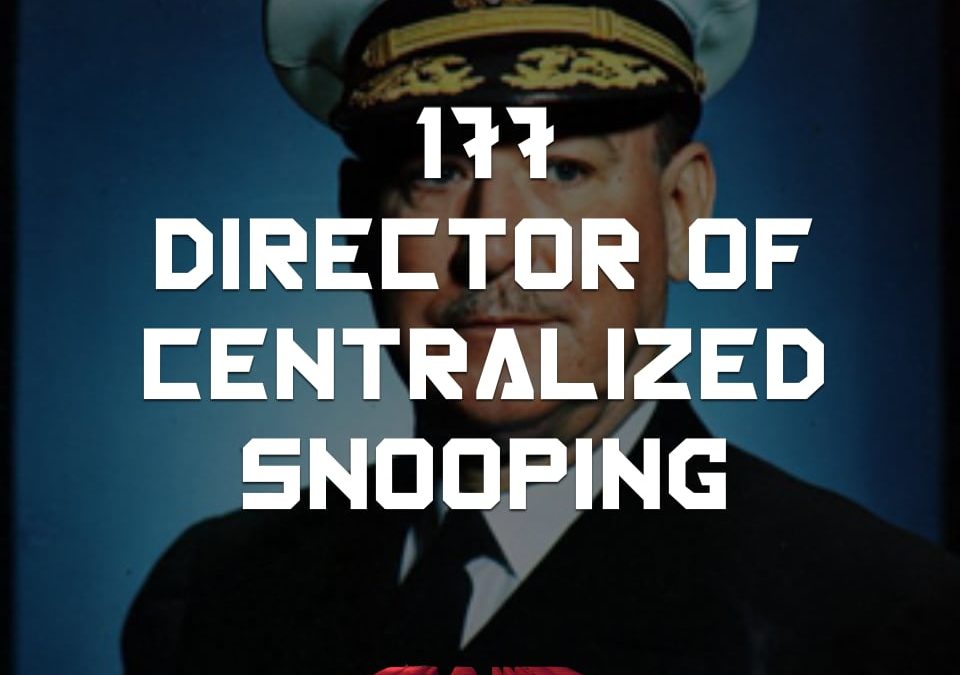
#177 – Director of Centralized Snooping
After Truman’s decision to shut down the OSS, Wild Bill Donovan’s deputy, Brigadier General John Magruder, met secretly with John McCloy, the assistant secretary of war, taking advantage of the fact that Henry Stimson, secretary of war and a huge opponent of the idea of an “American Gestapo”, had just retired. Together they decided to countermand Truman and keep the OSS together. After Truman eventually realised he had made a mistake, he appointed the deputy director of naval intelligence, Rear Admiral Sidney W. Souers, a rich Democrat from Missouri, to be the director of the Central Intelligence GROUP. Admiral Leahy wrote his office diary for January 24, 1946: “At lunch today in the White House, with only members of the Staff present, RAdm Sidney Souers and I were presented with black cloaks, black hats, and wooden daggers” by Truman, who then knighted Souers as chief of the “Cloak and Dagger Group of Snoopers” and “Director of Centralized Snooping.” But Souers didn’t last long, and six months later, General Hoyt Vandenberg became the second director of central intelligence.

#176 – The CIA (part 1)
According to Truman, he never intended for the CIA to be a “Cloak & Dagger Outfit”. It was intended to be a centralized reporting agency, not to act as a spy organization. Today we start a series about how the CIA rose from the ashes of Wild Bill Donovan’s incompetent OSS after WWII.
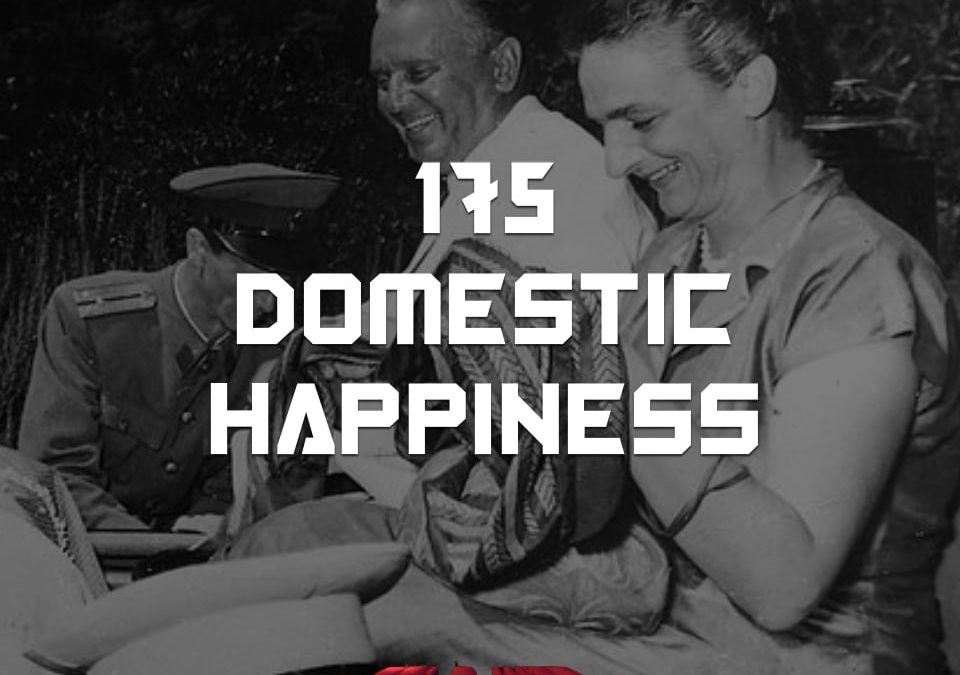
#175 – Domestic Happiness
Tito’s form of Communism quickly became much more liberal that those in the Soviet bloc countries and China. The question is why? The collectivisation of land was put in reverse. The police were reformed and the press was given additional freedoms. Tito turned the tables on Stalin, accusing the USSR of abandoning socialist principles in favour of imperialist expansion.
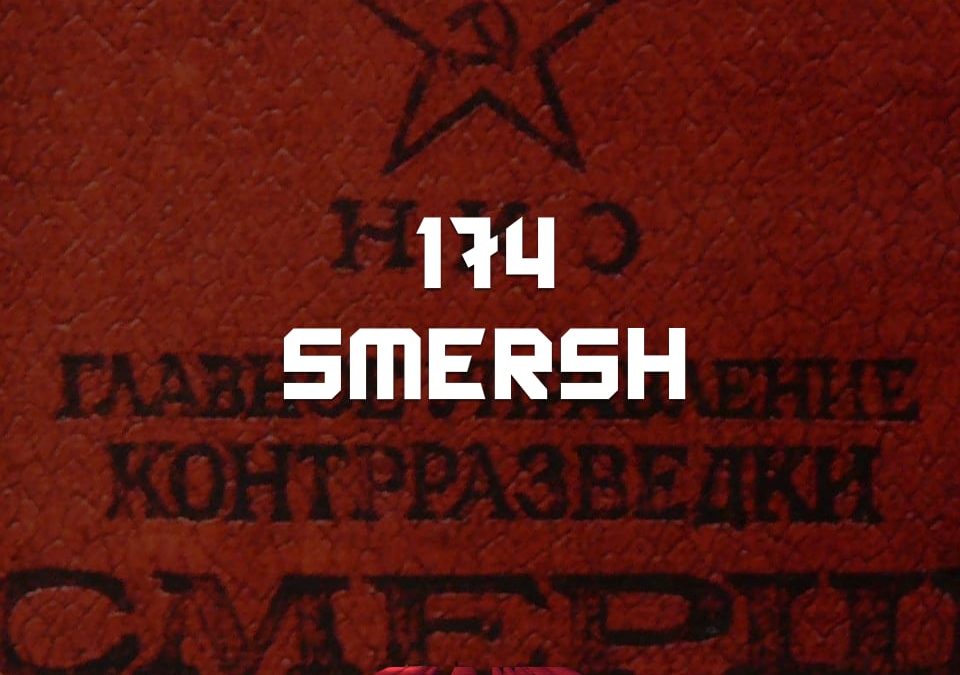
#174 – SMERSH
Tito has his own Central Committee member Žujović arrested for treason, which leads the Cominform to expel Yugoslavia. This creates a rift between the pro=Soviet Yugoslav Communists and the pro-Tito Communists, and Tito sends thousands of “Cominformists” to slave in the camp on Goli Otok. To show that he could out-Stalin Stalin, he announced there would be ‘greater boldness and a faster pace in setting up collective farms’, which caused violent resistance in certain areas of the country. Stalin then sends agents from SMERSH to assassinate Tito.
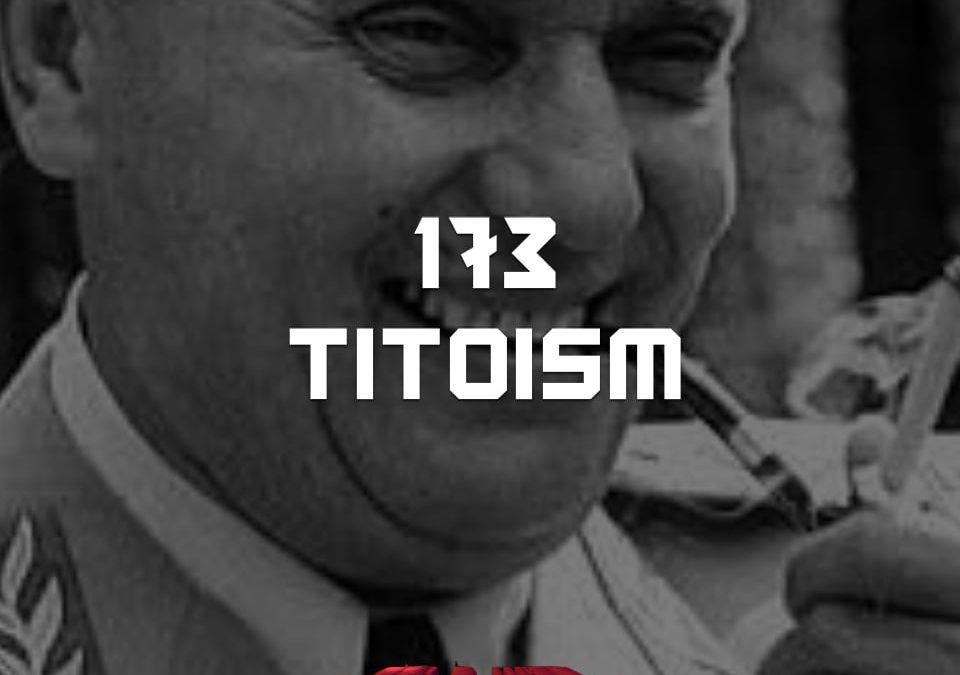
#173 – Titoism
Tensions between Yugoslavia and the USSR continue to increase in the late 40s, eventually erupting when the Soviets declared the Yugoslav Communist Party was undemocratic and neither Marxist-Leninist nor Bolshevik.
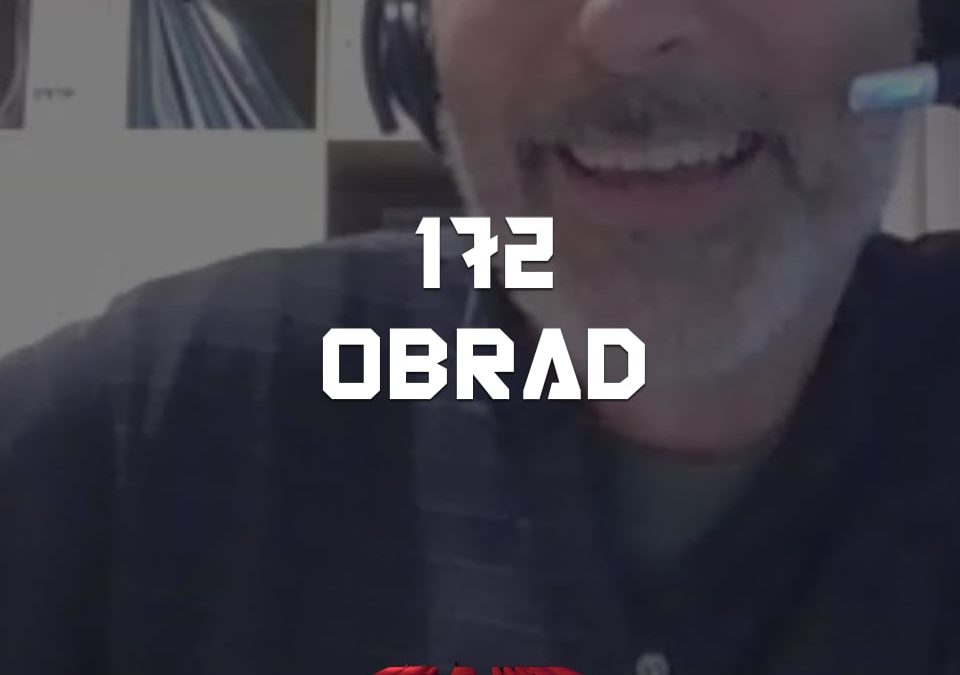
#172 – Obrad
My guest today is Obrad. He grew up in Tito’s Yugoslavia and joined the Yugoslav Armed Forces in the late 1970s. Today he lives in Canberra, Australia.

#171 – Lovro & Izak
This week we have a couple of guests from Slovenia – Lovro and Izak. They are 20-year-old students of international relations at The University of Ljubljana. They joined Cam on Zoom a few weeks ago to talk about Slovenia today and how the era of Tito and the Republic of Yugoslavia are taught in the schools and remembered by their families.
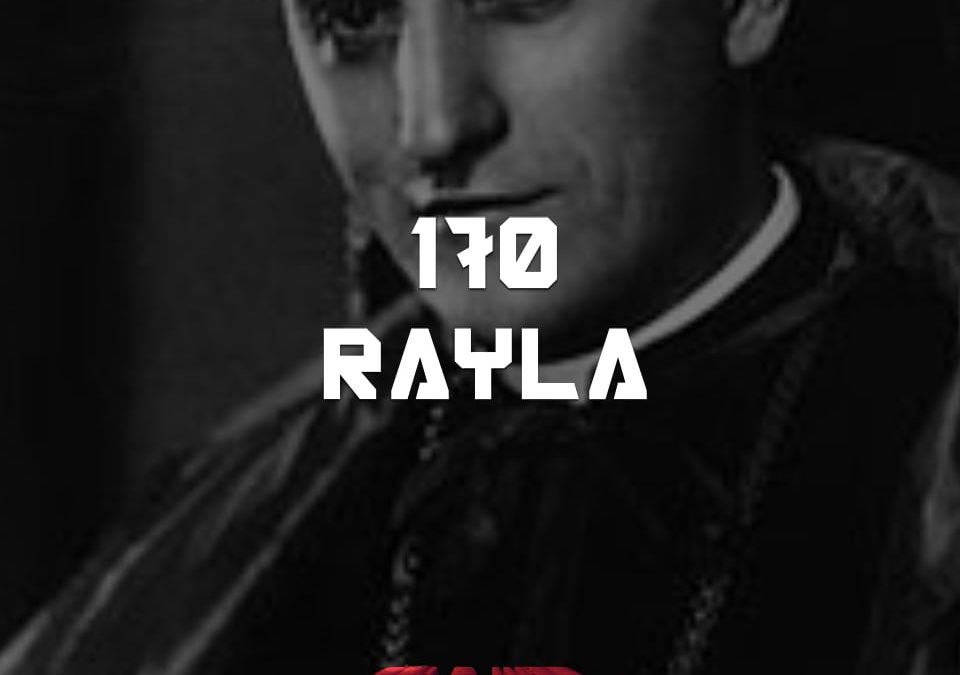
#170 – RAYLA
Although all of the Ustashi leadership managed to escape Yugoslavia, one remained behind – Archbishop Stepinac. Not really a leader, more like an enthusiastic supporter. When Tito’s attempts to get him to publicly apologise for the crimes of the Catholics fails, he is put on trial – which creates massive international condemnation against Tito and the Communists.
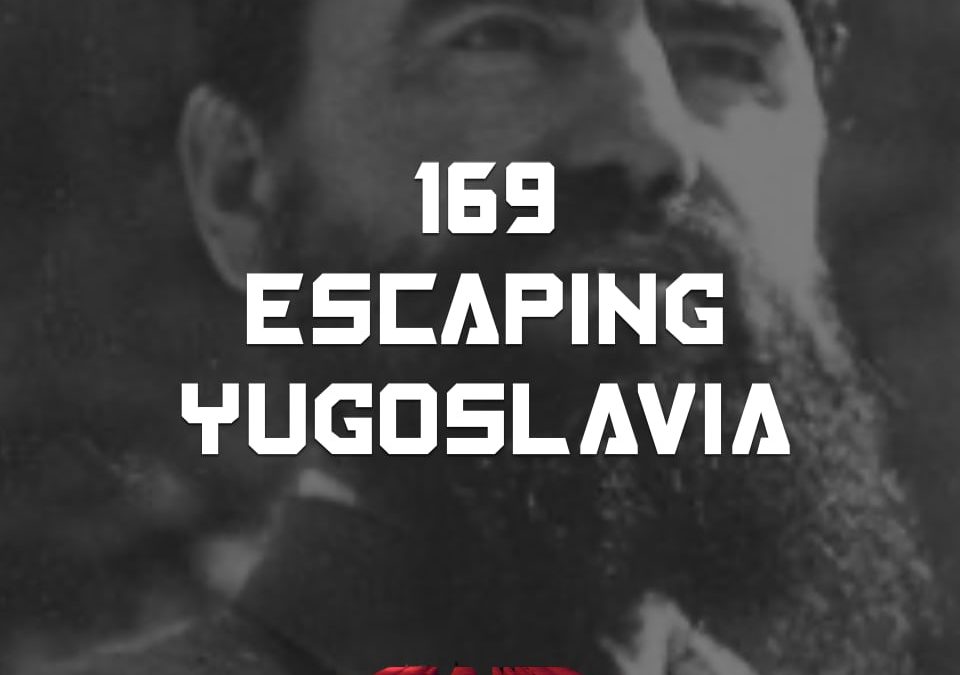
#169 – Escaping Yugoslavia
Chetniks escaping from Yugoslavia get shelter from the Vatican, but their leaders eventually settle in the UK and USA. Thousands of other fleeing Yugoslavs are sent back home by the British while almost all the leading Ustasha vanished in Austria and did not reappear until several years later in Argentina, Spain and the United States. Many anti-Communists clung to the hope that the Western Allies and in particular the United States would step in to save them from Communism.

#168 – Brotherhood & Unity
The new Yugoslavia tries to industrialise. Tito enjoys the luxury that came with being the Premier and gets a new wife, but his biggest issue in the years immediately following the war was how to unite the country. Hundreds of thousands of anti-Communist Yugoslavs attempted to flee the country, took to the hills to continue fighting, or went into civil opposition.

#167 – The Federal People’s Republic of Yugoslavia
– Tito’s relationships with both Stalin and Churchill suffer as a result of the fight over control of Trieste, the behaviour of Soviet soldiers in Yugoslavia, and Tito’s manipulation of the first free elections in Yugoslavia in 1945.
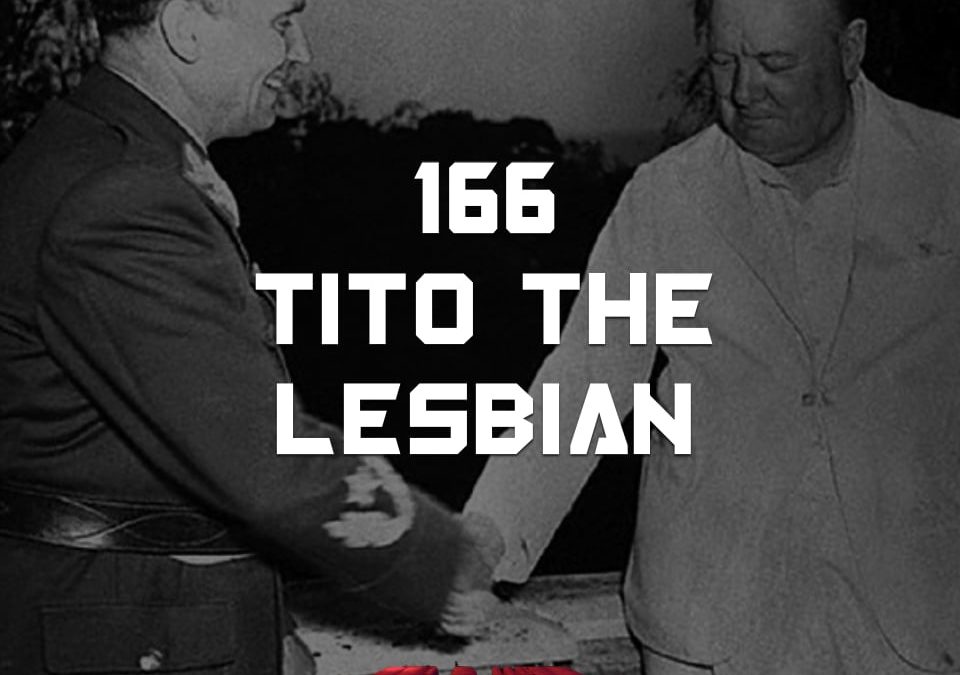
#166 TITO THE LESBIAN
The near catastrophe of the Seventh Offensive led to recriminations between the British and Tito but it showed the Germans regarded Tito as a serious foe. Himmler said in a speech later in 1944: ‘He is our enemy, but I wish we had a dozen Titos in Germany, men who were leaders and had such great resolution and good nerves that though they were constantly encircled they would never give in.’ Meanwhile, the Western media described him variously as a lesbian, Russian officer, a Ukrainian, a Polish count or a Polish Jew, while many believed that he did not exist at all and that TITO was an acronym for Third International Terrorist Organisation. Eventually Churchill decided he had to meet this man for himself. But while his relationship with Churchill improved, things with Stalin got worse.
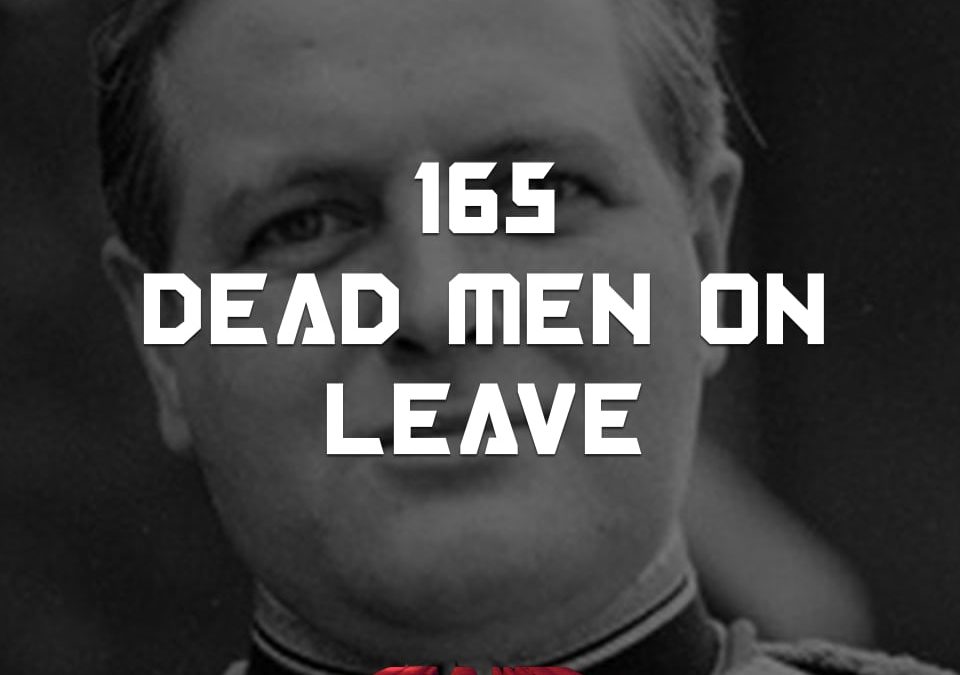
#165 – Dead Men On Leave
At the second session of AVNOJ, 29 November 1943, the delegates became a legislative assembly under the Presidency of Tito, who was proclaimed Marshal. But this momentous occasion was followed with tragedy. During the winter of 1943–4 the Germans carried out ‘Operation Kugelblitz’ (‘Thunderbolt’), which the Partisans called the Sixth Offensive. In January 1944 Fitzroy Maclean came back to Bosnia with two remarkable proofs of Winston Churchill’s regard for Tito. One of them was Winston’s son Randolph Churchill, “a flabby bully”, who was now an officer in the British military mission. The head of the Soviet Mission was the Red Army’s General Korneyev, “an incurable drunkard”, according to Stalin. The Americans weren’t really interested. Their main target was the British Empire.
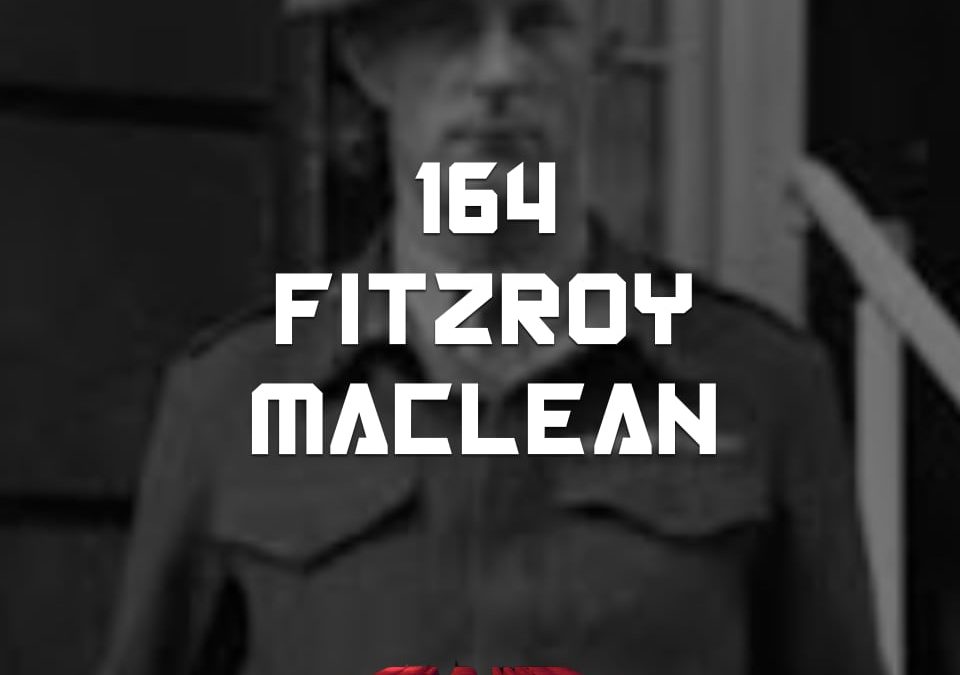
#164 – Fitzroy Maclean
Churchill sends Brigadier Fitzroy Maclean, one of the founders of the SAS, to Tito as his official representative. Churchilll’s decision to support Tito and Partisans – ie communists – over the Chetnik royalists has been the subject of much debate and anger for decades.

#163 – IF IT BLOATS IT FLOATS
In November 1942 Tito set up his first form of Communist government, the Anti-Fascist Council for Yugoslavia (AVNOJ). Hitler asks Mussolini to send all of the Croatian Jews to German camps – Mussolini agrees, but his troops, lead by General Mario Roatta, refused to obey. Hitler’s next attack on the Partisans, ‘Operation Weiss’, began on 20 January 1943, with 90,000 Germans, Italians and Croats versus 20,000 Partisans. Tito was trapped but had a cunning plan – he did a peace deal with the Nazis to buy himself some time.

#162 – SEXY NAZI WEREWOLF BIKINI BABES FROM HELL
It’s an unsteady start for Tito’s revolution – he barely gets out of Užice alive before the Germans arrive. Then he gets betrayed by Stalin, narrowly escapes capture again, tries to resign as party secretary, and finally sets up his new HQ at the Bosnian town of Bihać.
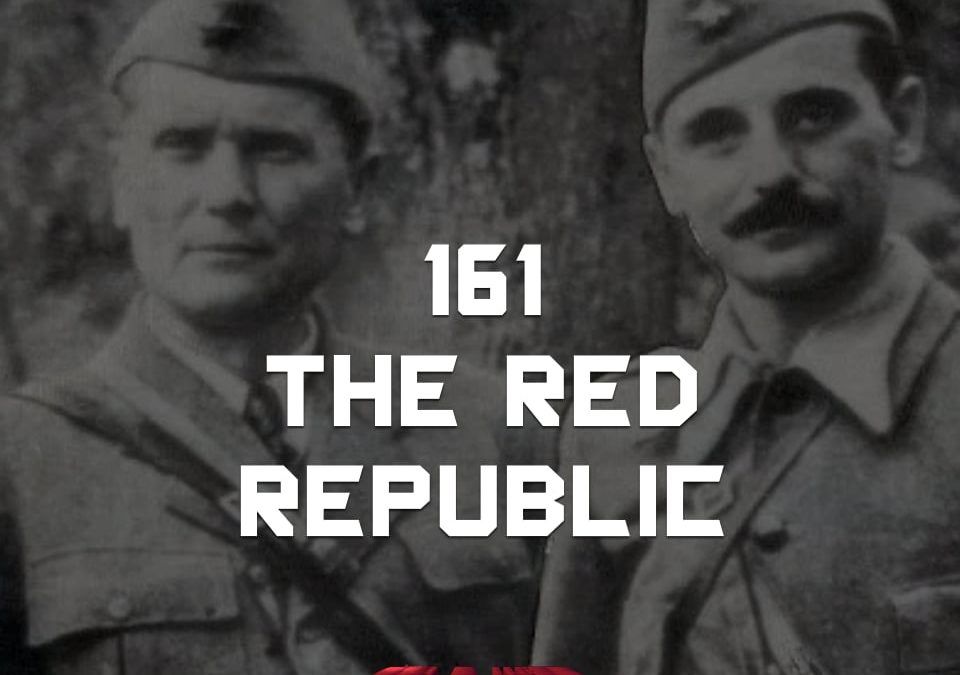
#161 – The Red Republic
Tito started his campaigning in the middle of 1941, after Operation Barbarossa had distracted the Nazis away from Yugoslavia. He met with the Chetnik leader Draza Mihajlovic to try to form a unified front. In Užice, a town of some 12,000 inhabitants, Tito proclaimed a symbolic ‘Red Republic’ boasting its own hotel, bank, factories, newspaper and prison.
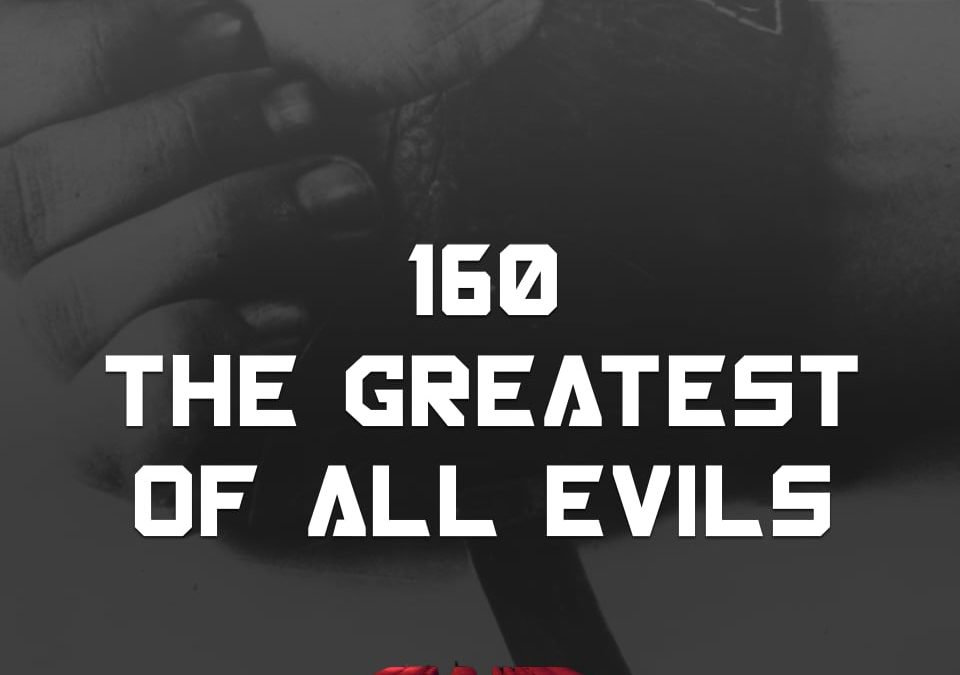
#160 – The Greatest Of All Evils
The Jasenovac concentration camp, established in Slavonia, aka “the Auschwitz of the Balkans”, “specialized in one-on-one violence of a particularly brutal kind” and prisoners were primarily murdered manually with the use of blunt objects such as knives, hammers and axes. In the words of the Nazi general, von Horstenau, “The greatest of all evils must be Jasenovac, which no ordinary mortal can glimpse.” It was run by Catholics.
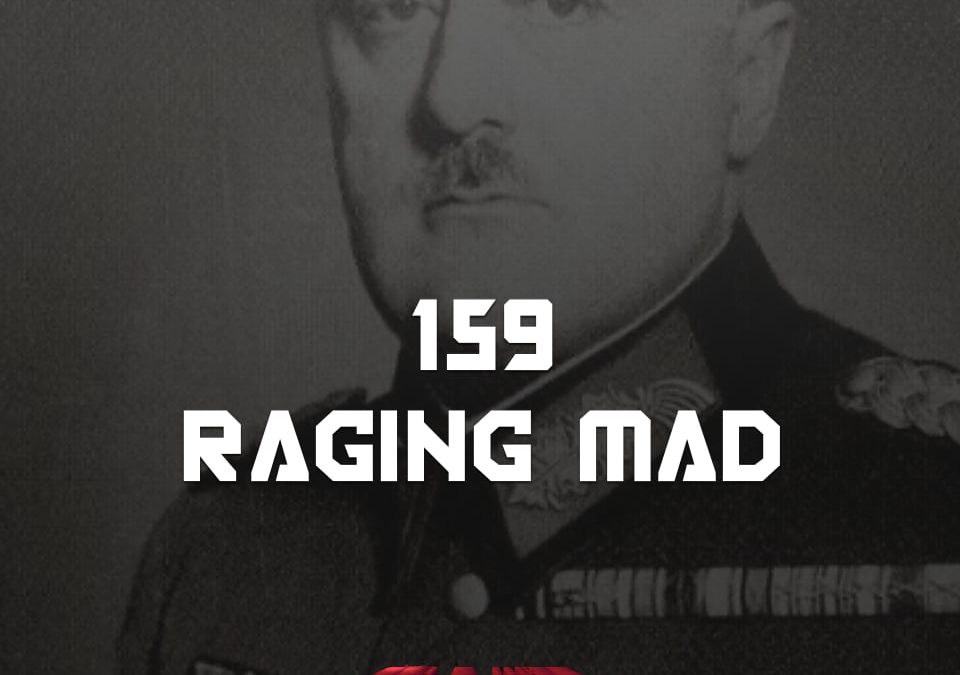
#159 – Raging Mad
In 1941, after the creation of the NDH, Ante Pavelić, the leader of the Catholic fascist Ustasha, went to Rome to receive the blessing of Pope Pius XII – while his administration was publicly saying they were going to kill a third of the Croatian Orthodox. Throughout the spring and early summer of 1941 Roman Catholic priests, attended by armed Ustasha, carried out mass baptisms in Orthodox villages. But the ones who were only baptised were lucky. This is when the mass slaughter of Orthodox Christians, by Catholics, began. The German Plenipotentiary General to the NDH, the historian Glaise von Horstenau, wrote in June that ‘according to reliable reports from countless German military and civilian observers during the last few weeks, in country and town, the Ustasha have gone raging mad’. WARNING: Gird your loins for this episode. It gets pretty graphic.
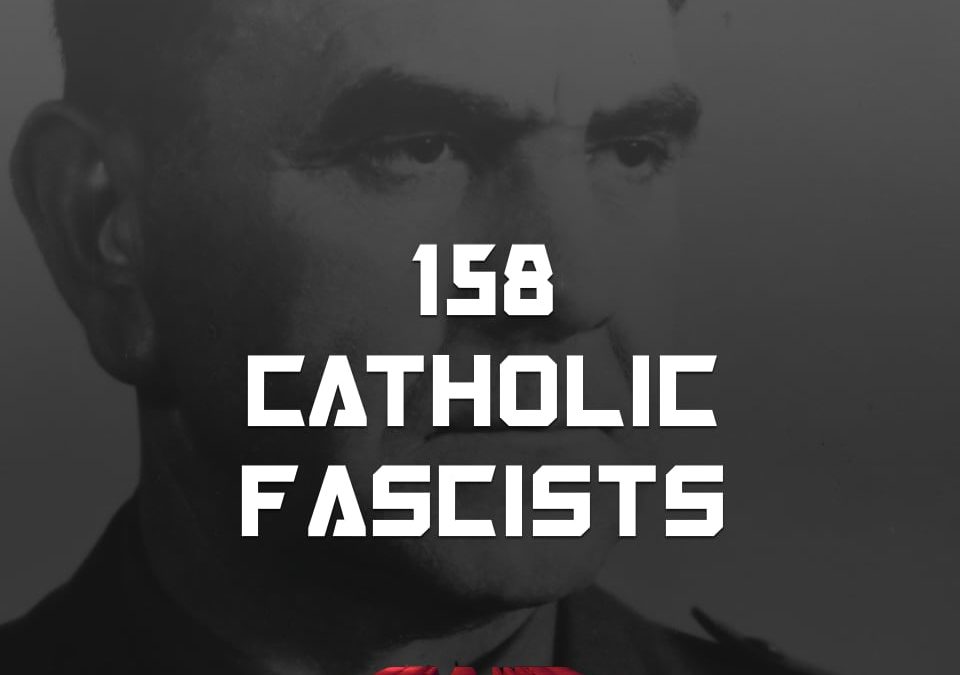
#158 – Catholic Fascists
On this episode we talk about the Independent State of Croatia, or NDH, lead by Ante Pavelić, and his Catholic fascist group, the Ustasha.
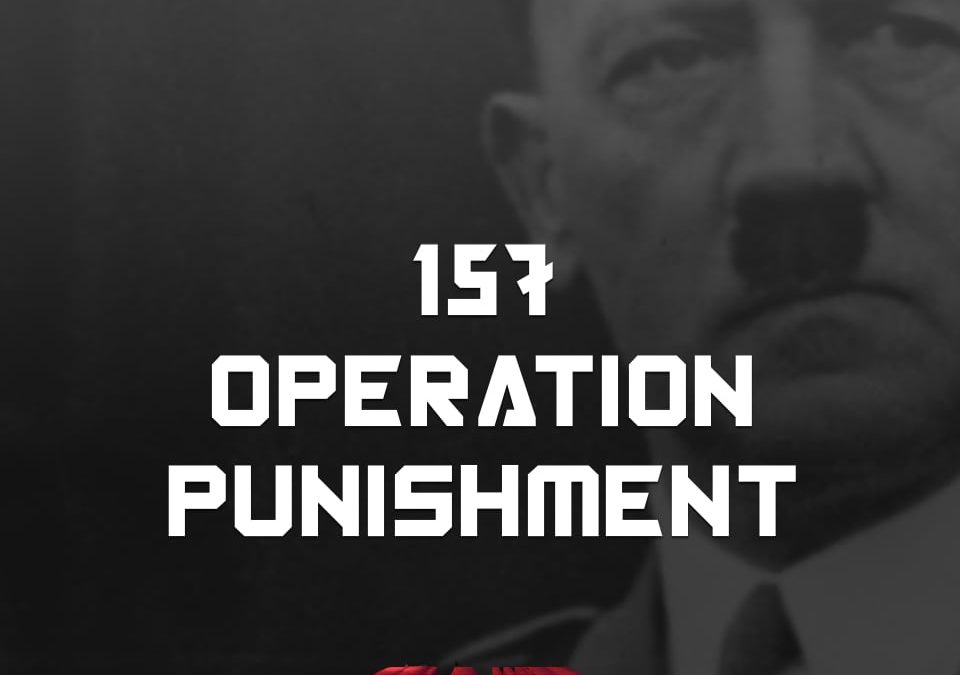
#157 – Operation Punishment
As caretaker secretary of the Yugoslav Party from 1937 to 1940, Tito first moved the Central Committee from Paris to Zagreb, then built up a new, young leadership loyal to him. These guys would be his inner circle for decades to come. When, in February 1941, the Yugoslav regent Prince Paul did a deal with Hitler to avoid an invasion of Yugoslavia, the Serbian Orthodox went nuts and overthrew Paul’s government, installed 18 year old King Peter, tore up the pact with Germany, and destroyed the Gestapo HQ in Belgrade. Hitler, unsurprisingly, did not take this well.
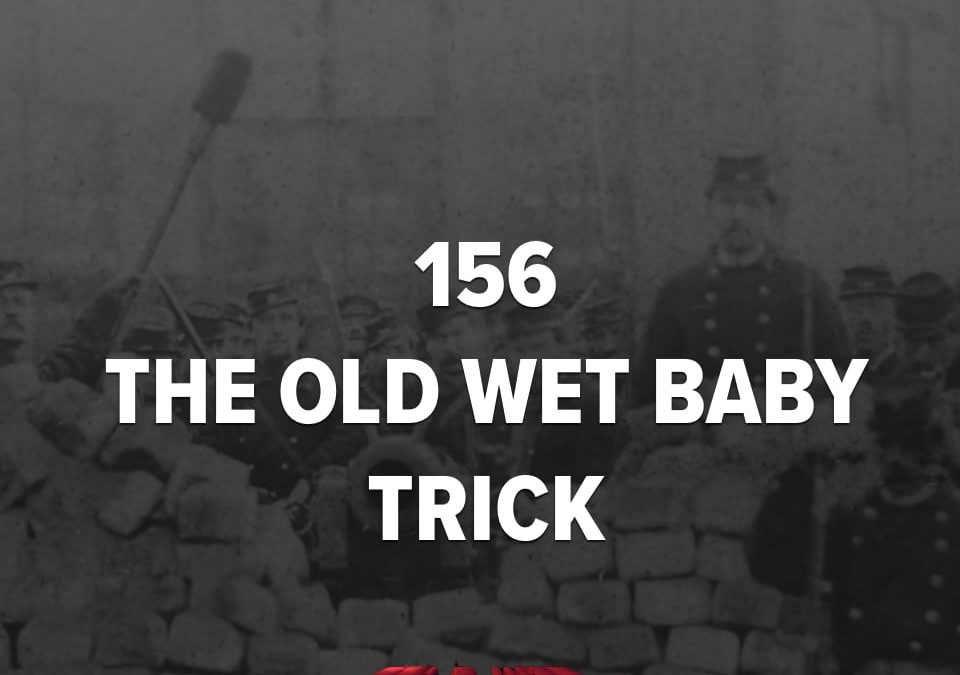
#156 – The Old Wet Baby Trick
Back to Tito and Yugoslavia. In 1934, the Croat Catholics rose up against the Serb King Alexander, leading to his assassination by a Ustasha agent while visiting France. Meanwhile Stalin purged the leadership of the Yugoslav Communist Party, opening the door to a new generation of younger, more radical leadership, with Tito becoming the General Secretary. While living in Paris, he loved to visit to graves of the original “dictatorship of the proletariat” – the Paris Communards, who took power briefly in 1871, before being executed en masse by the French government.
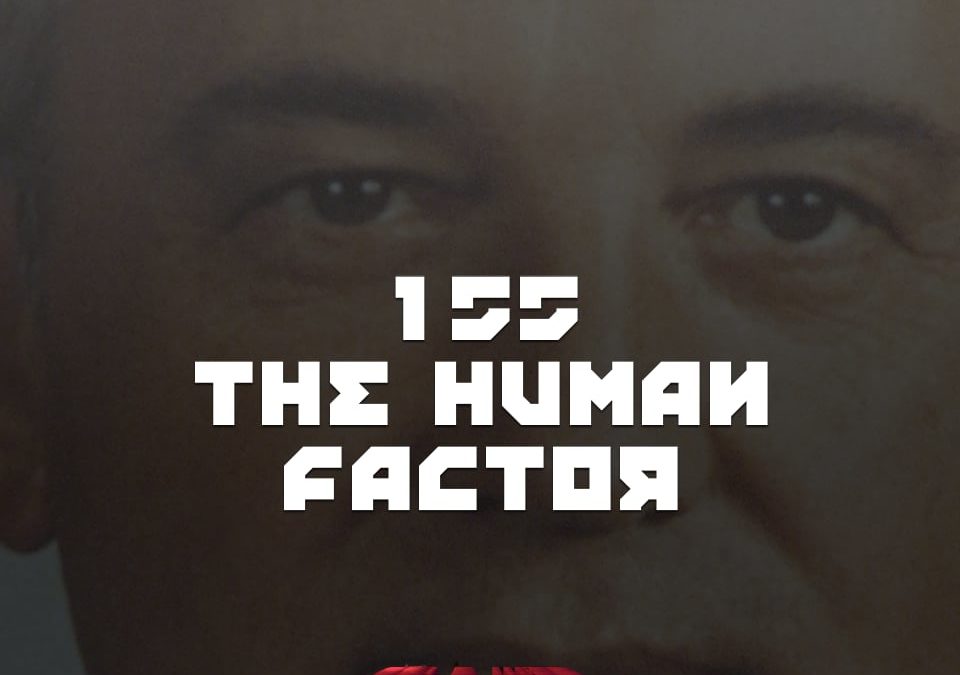
#155 – The Human Factor
My guest today is Archie Brown, emeritus professor of politics at the University of Oxford and an emeritus fellow of St Antony’s College, Oxford, where he served as a professor of politics and director of St Antony’s Russian and East European Centre. He has written widely on Soviet and Russian politics, on communist politics more generally, on the Cold War, and on political leadership. His new book is The Human Factor, about the end of the Cold War.
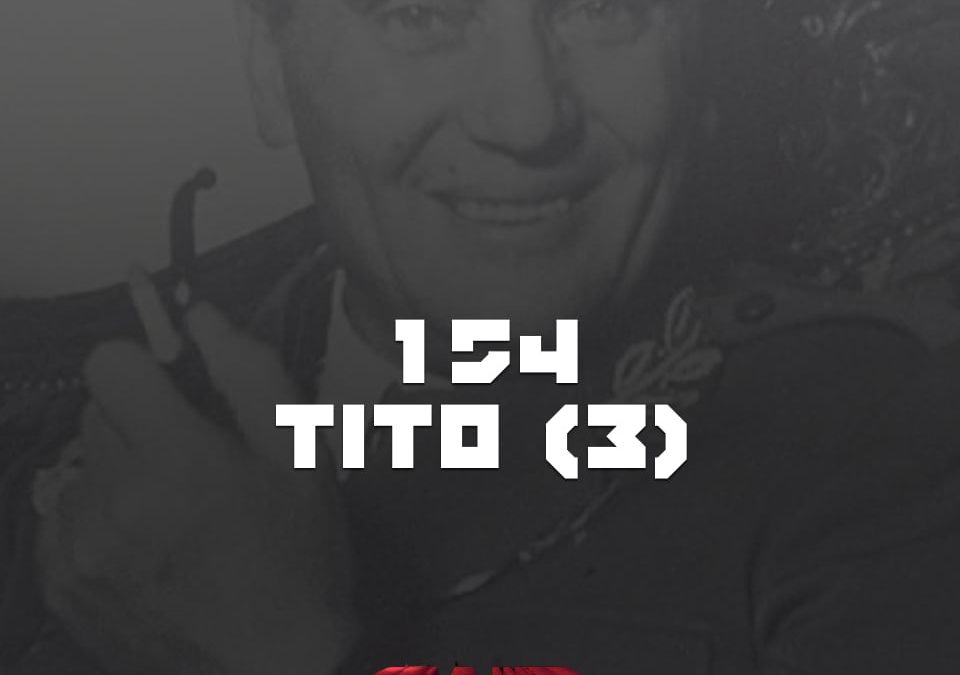
#154 – Tito (III)
By the time Tito got back to his home country in 1920, the Austro-Hungarian, Russian, German and Ottoman empires had all been broken up. In their place were the independent states of Finland, Estonia, Latvia, Lithuania, Poland, Austria, Hungary, Czechoslovakia, and the Kingdom of Serbs, Croats and Slovenes, commonly known as Yugoslavia. It was then that Tito began his career as a revolutionary.
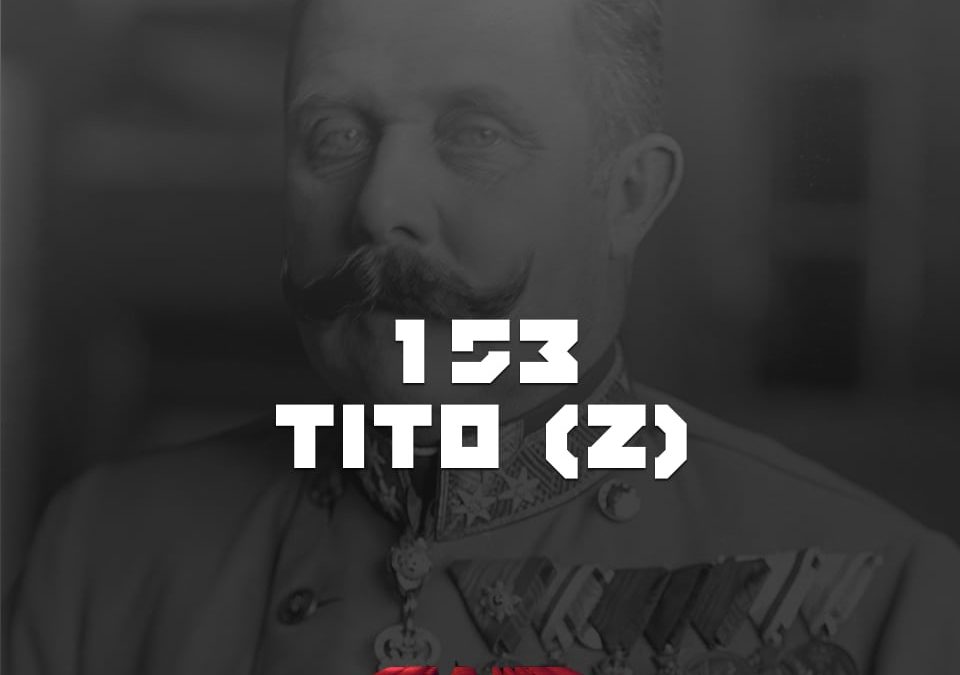
#153 – Tito (II)
In order to understand the career of Josip Broz Tito, we need to understand the religious and political history of the Balkans. As historian Richard West says: anyone who approaches the Yugoslavs without some knowledge of their religious history is like a chicken trying to understand a ladder.
So on this episode, we do a quick review of the region from the fall of Rome through to the assassination of Archduke Franz Ferdinand.
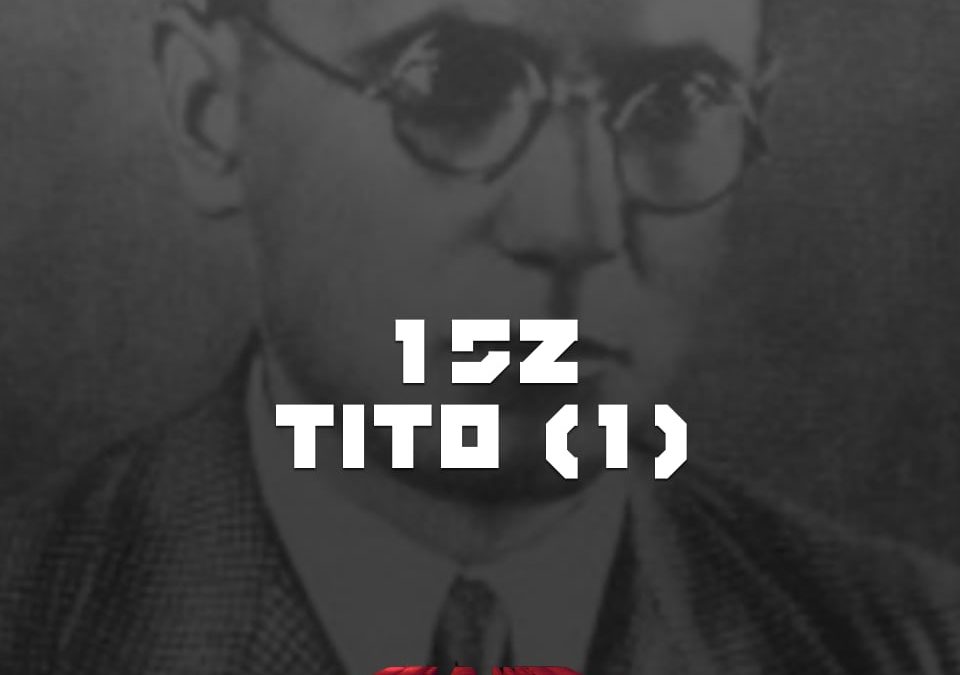
#152 – Tito (I)
Josip Broz Tito grew up in poverty on a small farm in Croatia. He dropped out of school at 13, and apprenticed as a locksmith and mechanic. In 1913 he was conscripted into the Austro-Hungarian Army and ended up in WWI, where he was injured and captured by Russians. When the Russian Revolution broke out in 1917, he became a Bolshevik and fought with them against the White Army.
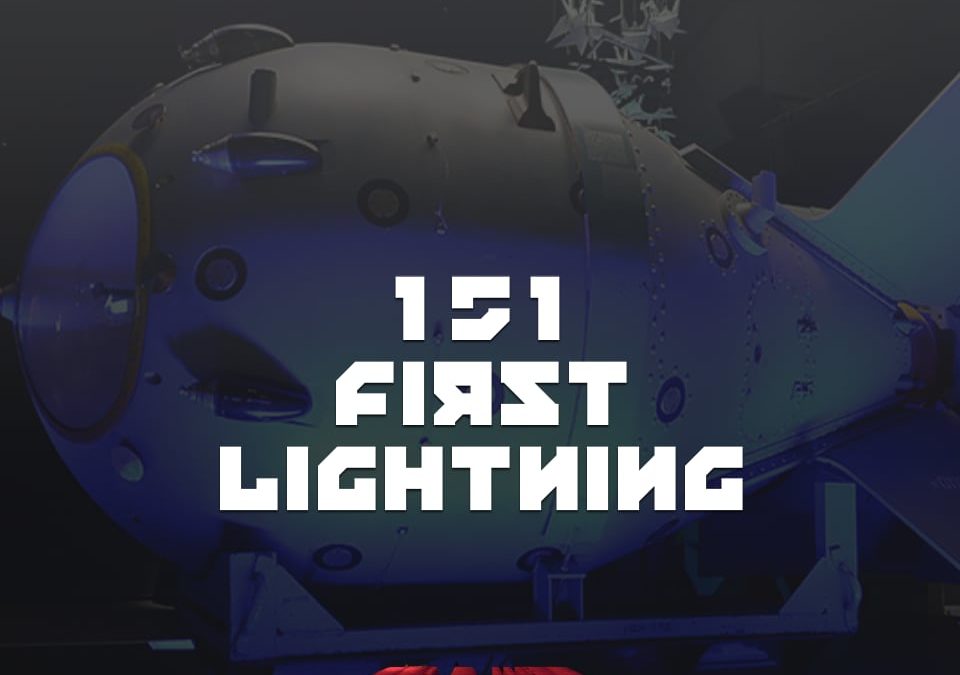
#151 – First Lightning
When Stalin and Molotov heard what Truman had said at Potsdam about the USA having a new bomb ready, they saw it as a direct threat to the Soviet Union and increased their support for Soviet scientists. They might have been further advanced if it hadn’t been for the purge of Soviet military strategists like Mikhail Tukhachevskii, aka “The Red Napoleon”.
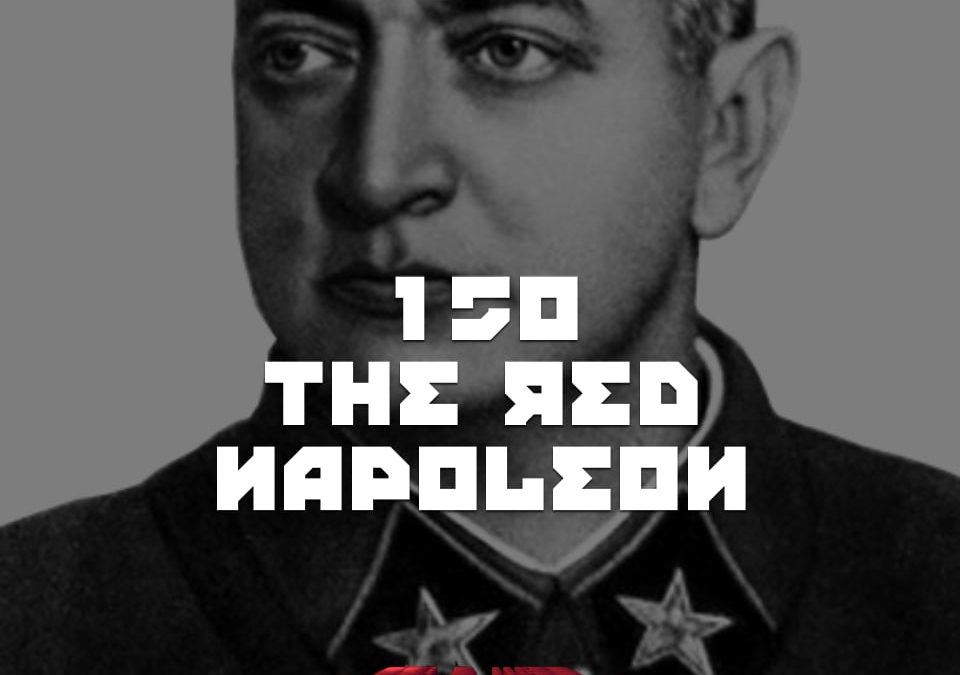
#150 – The Red Napoleon
When Stalin and Molotov heard what Truman had said at Potsdam about the USA having a new bomb ready, they saw it as a direct threat to the Soviet Union and increased their support for Soviet scientists. They might have been further advanced if it hadn’t been for the purge of Soviet military strategists like Mikhail Tukhachevskii, aka “The Red Napoleon”.
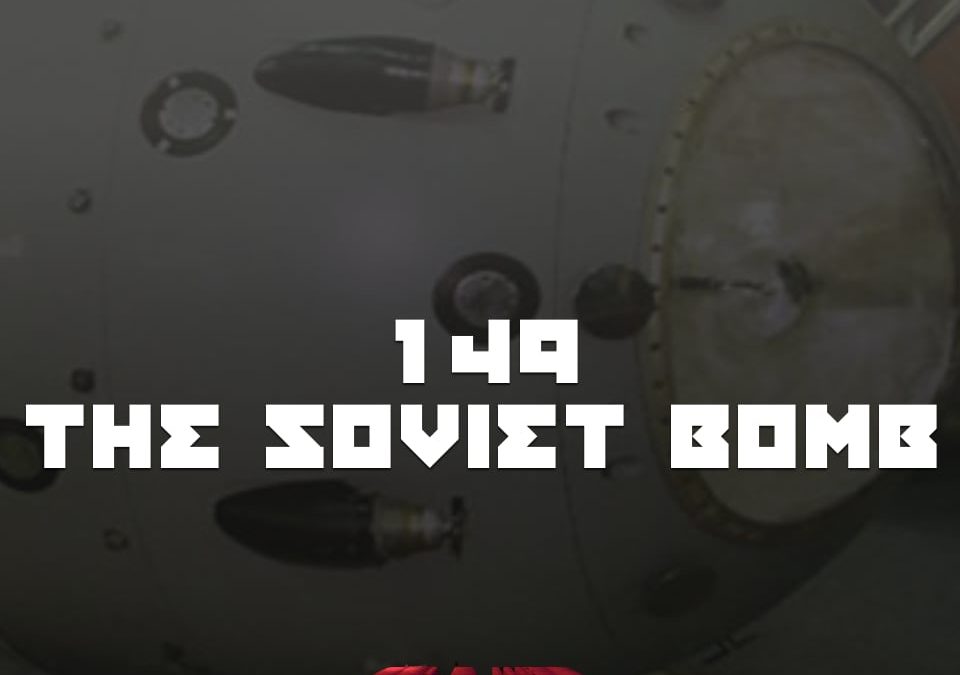
#149 – The Soviet Bomb
It’s commonly thought in the West that the Soviet Union stole all of the secrets for building a bomb from their spies in the West. Not exactly correct. When nuclear fission was discovered in Berlin in December 1938, the Soviets were as quick to react as the West. But their economy wasn’t as strong, and they had many more problems to contend with, so it didn’t get a high priority. And then 4 million Germans invaded. On this episode we being to tell the story of the Nobel Prize-winning Soviet scientists who lead the work.
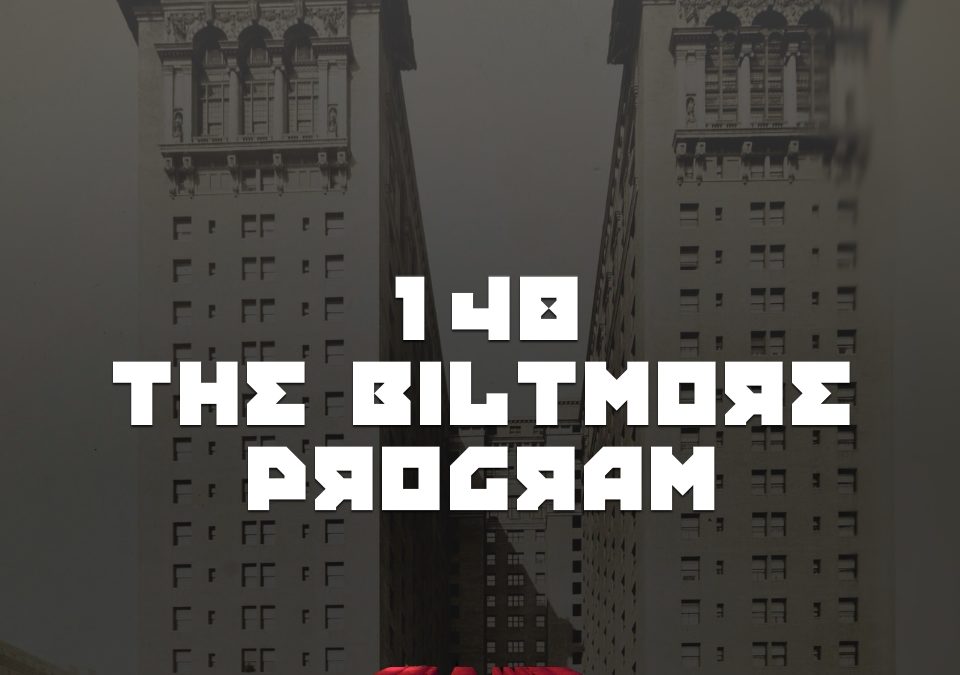
#148 – The Biltmore Program
After The Peel Commission recommending moving hundreds of thousands of Palestinians off their land by force, the Arab Revolt re-emerged with hundreds of terrorist attacks during 1937-38 against the British and Jews – and even against Arab collaborators. The British cracked down and deported many of their leaders. Irgun, the Jewish militant group, met this threat with their own terrorism. Hitler used the situation to score propaganda points against the Jews and the British.
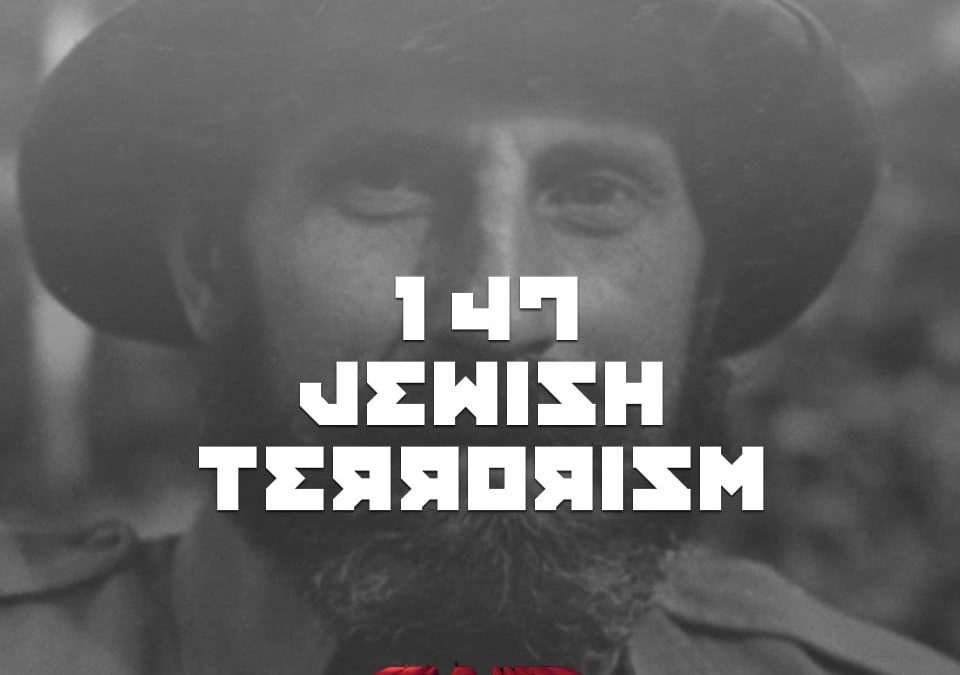
#147 – Jewish Terrorism
After The Peel Commission recommending moving hundreds of thousands of Palestinians off their land by force, the Arab Revolt re-emerged with hundreds of terrorist attacks during 1937-38 against the British and Jews – and even against Arab collaborators. The British cracked down and deported many of their leaders. Irgun, the Jewish militant group, met this threat with their own terrorism. Hitler used the situation to score propaganda points against the Jews and the British.
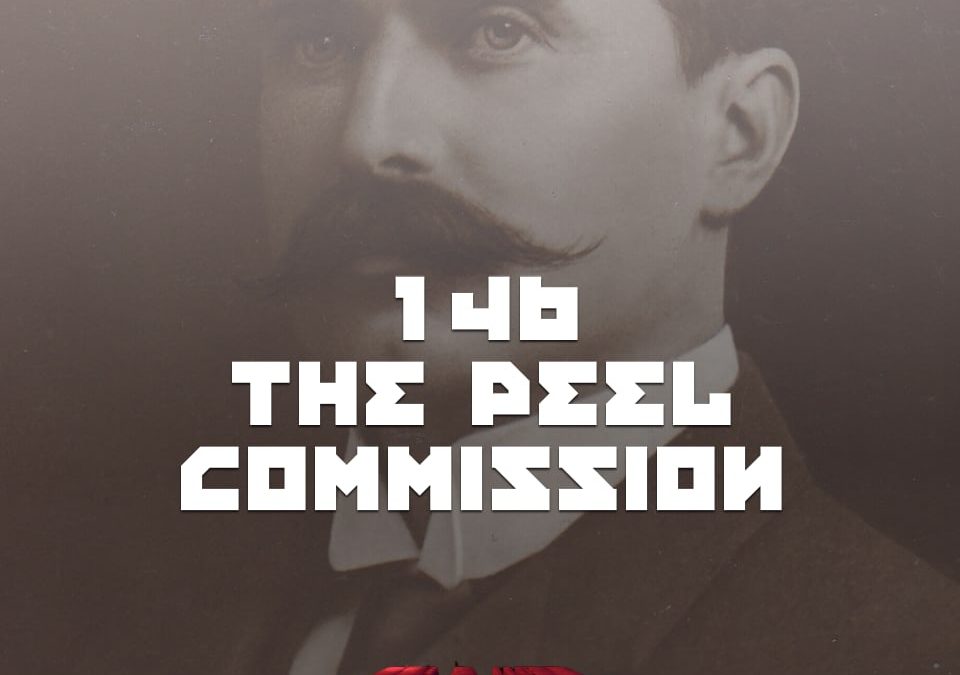
#146 – The Peel Commission
After the Great Arab Revolt of 1936, the British pretended not to understand the causes of Arab anger and held The Peel Commission to get to the bottom of it. Peel recommended partitioning the land, giving one-fifth to the Jews – forcing 225,000 Arabs to move off their land.
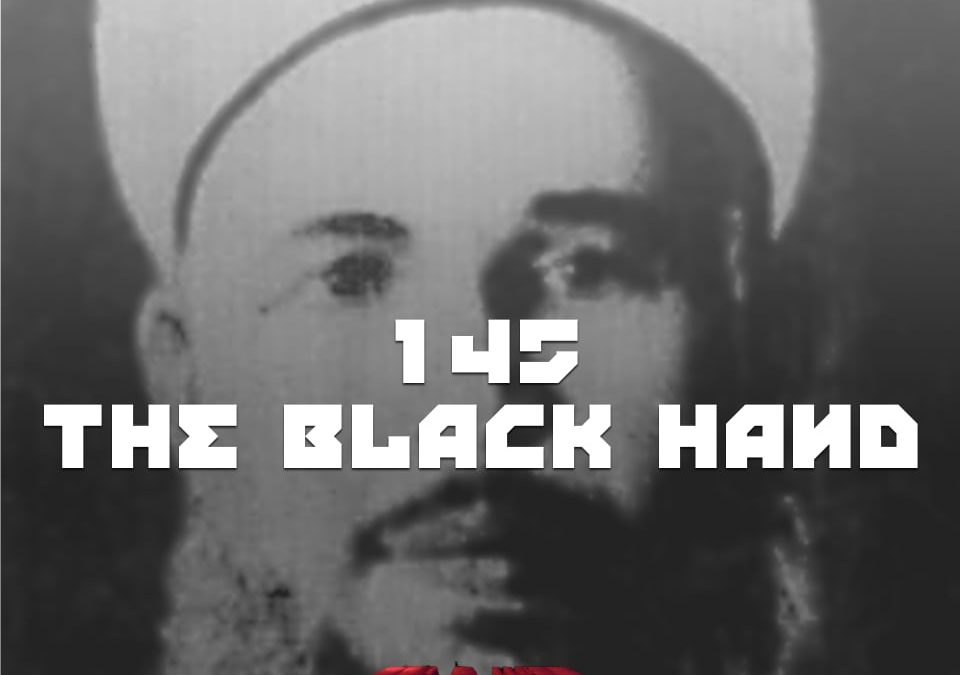
#145 – The Black Hand
While the Jews were trying to get close to Mussolini, the Arabs modelled themselves after Hitler. The Husseinis, led by Amin al-Husseini, aka Hajj Amin, the Grand Mufti of Jerusalem, in 1935 set up the Palestinian Arab Party which had its own youth corp, al-Futuwwa, similar to the Hitler Youth and was even officially called the “Nazi Scouts”.
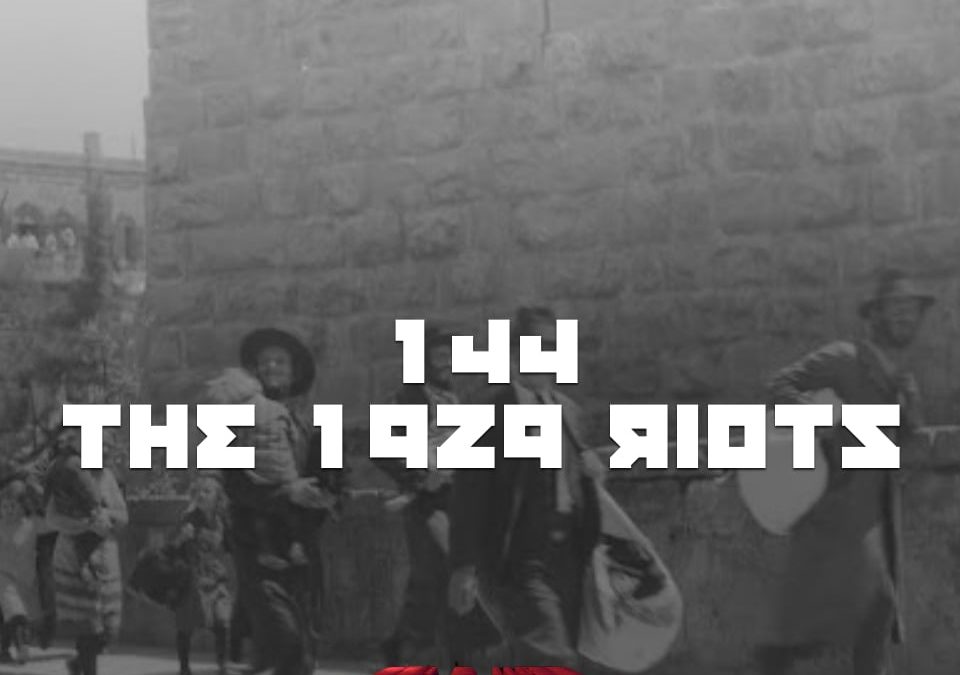
#144 – The 1929 Riots
In the early 1920s, violence between Muslims and the Jews continued to escalate. Because they didn’t trust the British to defend their interests, the newly formed (and illegal) Jewish self-defense organization, the Haganah, was formed. Churchill came to visit Palestine – and made things worse. Without a doubt, the British military continued to favor the Arabs. General Sir Walter Congreve, commander of British forces in the Middle East, said in October 1921: “In the case of Palestine [the sympathies of the Army] are rather obviously with the Arabs,… the victim[s] of the unjust policy forced upon them by the British Government.”
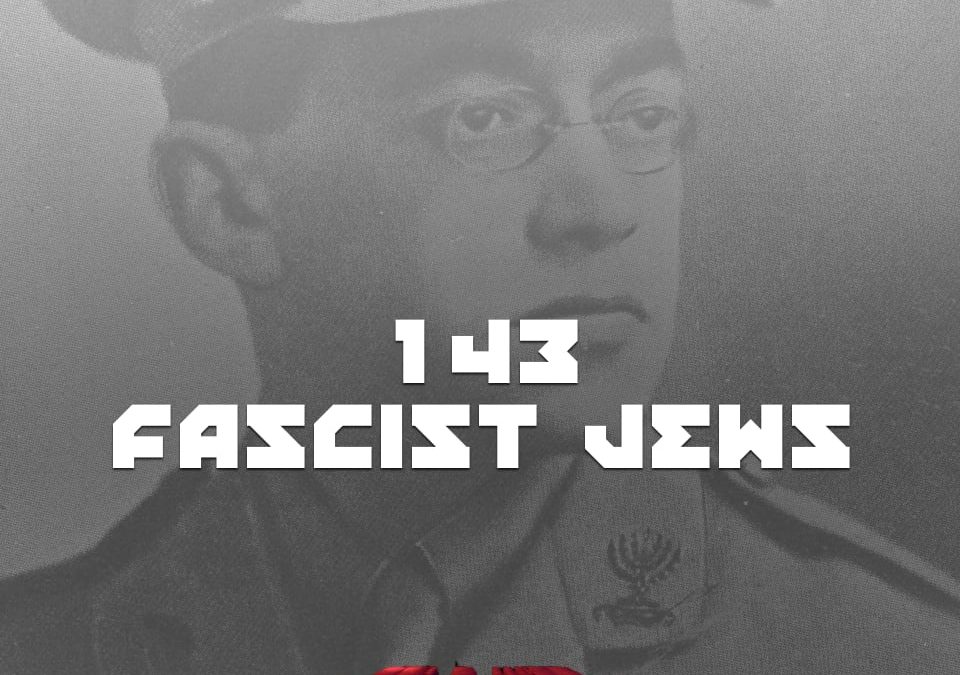
#143 – Fascist Jews
In the early 1920s, violence between Muslims and the Jews continued to escalate. Because they didn’t trust the British to defend their interests, the newly formed (and illegal) Jewish self-defense organization, the Haganah, was formed. Churchill came to visit Palestine – and made things worse. Without a doubt, the British military continued to favor the Arabs. General Sir Walter Congreve, commander of British forces in the Middle East, said in October 1921: “In the case of Palestine [the sympathies of the Army] are rather obviously with the Arabs,… the victim[s] of the unjust policy forced upon them by the British Government.”
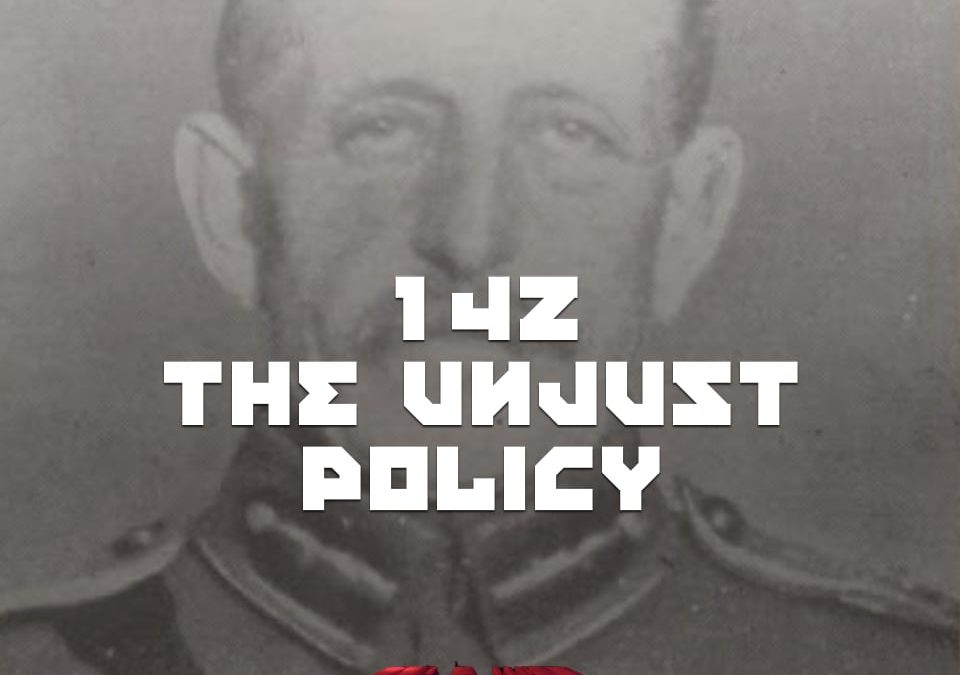
#142 – The Unjust Policy
In the early 1920s, violence between Muslims and the Jews continued to escalate. Because they didn’t trust the British to defend their interests, the newly formed (and illegal) Jewish self-defense organization, the Haganah, was formed. Churchill came to visit Palestine – and made things worse. Without a doubt, the British military continued to favor the Arabs. General Sir Walter Congreve, commander of British forces in the Middle East, said in October 1921: “In the case of Palestine [the sympathies of the Army] are rather obviously with the Arabs,… the victim[s] of the unjust policy forced upon them by the British Government.”
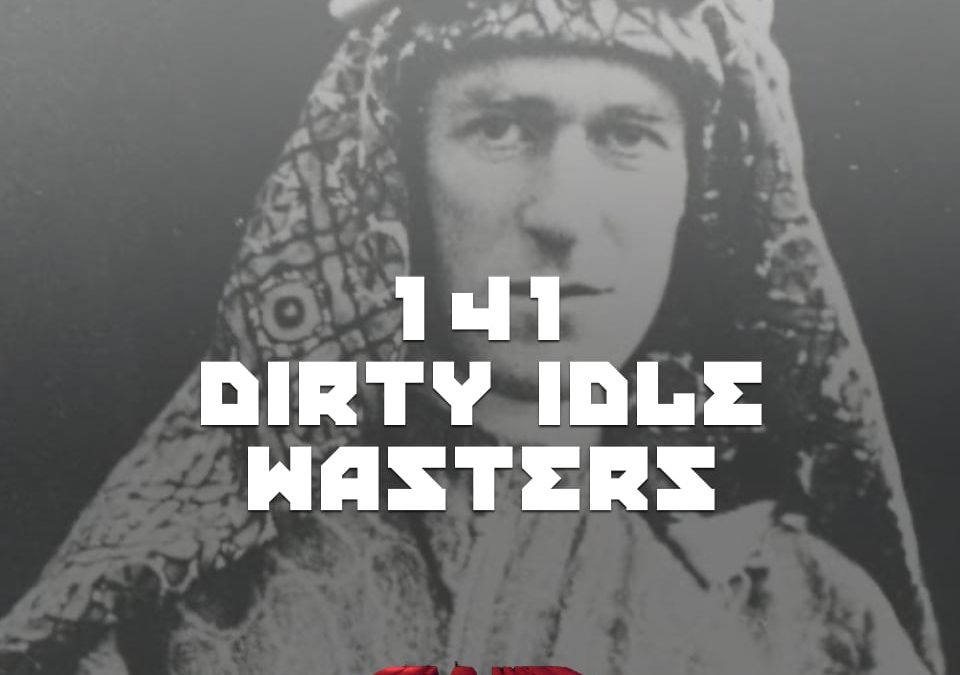
#141 – Dirty Idle Wasters
When the British finally captured the Middle East from the Ottomans in October 1918, under the command of General Edmund Allenby, with the support of TE Lawrence and his Sharifians, Hussein and Faisal, the British immediately tried to walk back on the Sykes-Picot agreement. They figured they did all the hard work, so fuck the French.
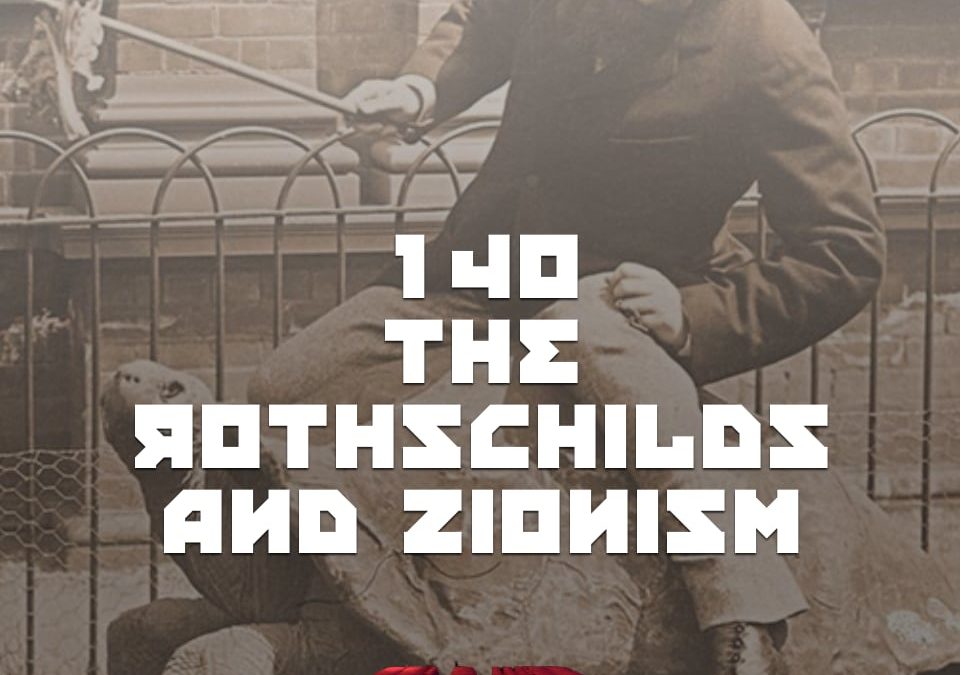
#140 – The Rothschilds And Zionism
The Rothschilds And Zionism – The Balfour Declaration took the form of a letter, dated November 2, 1917, from the foreign secretary to Lord Lionel Walter Rothschild, a British banker and zoologist, who headed Britain’s Zionist Federation.
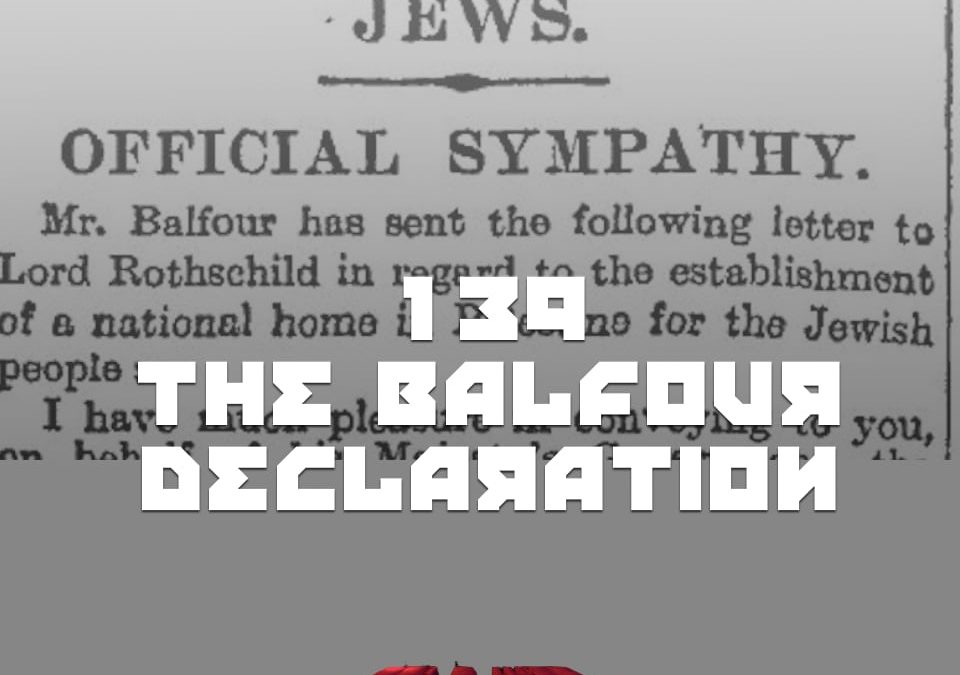
#139 – The Balfour Declaration
Things in Palestine really started to heat up in 1908 – the year of The Young Turk Revolution. It was around this time that the violence between the Jews and the Arabs started to escalate beyond what was mostly localised troubles over property rights. And it took on a nationalist feel. The Jews started to arm themselves. The governor of Jerusalem, Azmi Bey, wrote: “We are not xenophobes; we welcome all strangers. We are not anti-Semites; we value the economic superiority of the Jews. But no nation, no government could open its arms to groups … aiming to take Palestine from us.”
In 1915, Britain and France sat down to work out who was going to control what in the Middle East after the war – what became known as the Sykes-Picot Agreement. By 1917, when the Allies were bogged down on the Western Front, Britain issued the Balfour Declaration. They hoped it would bring the American Jews to their cause, would help bring the United States into the war and keep Russia involved – and would stop the Jews from allying themselves with Ze Germans.
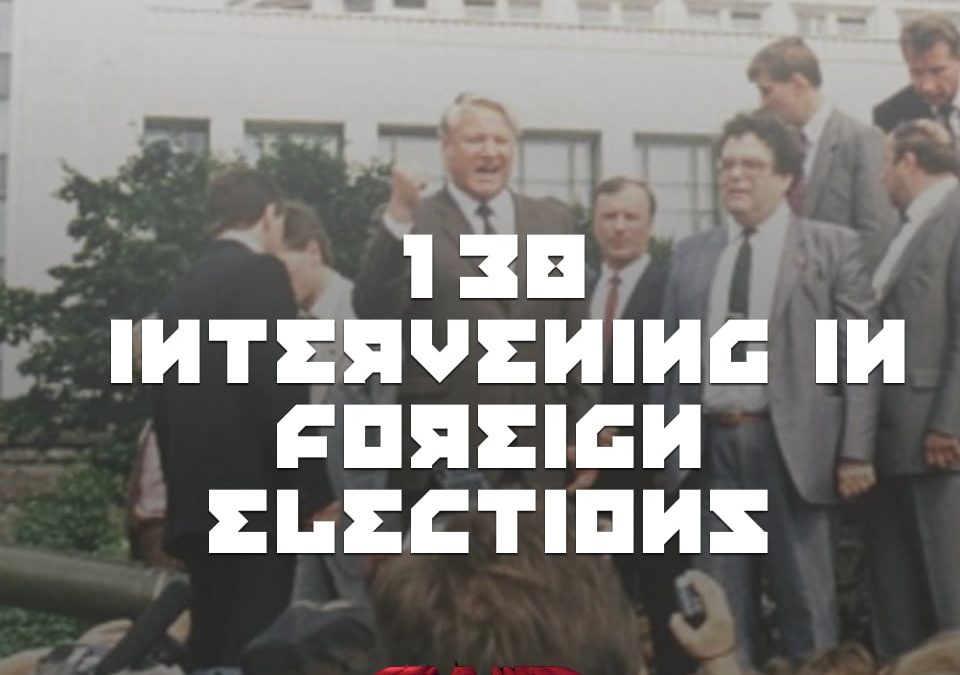
#138 – Intervening In Foreign Elections
Americans were SHOCKED to discover that Russia had interfered in their 2016 Presidential elections. How dare they interfere with the democratic process of a sovereign nation! Of course, those same Americans probably have no idea that their own country has, according to the research done by my guest today, done the same thing over 80 times since the end of WWII.
Today I interview Dov H. Levin Ph.D, Assistant Professor, Department of Politics and Public Administration, University of Hong Kong about his research on what he calls his Partisan Electoral Intervention by the Great Powers dataset (PEIG). It shows how many times the USA and USSR/Russia intervened in foreign elections in the years 1946 – 2000.

#137 – The Ultimate Goal
Quite soon after the first Zionist emigration to Palestine, tensions between the Jews and the Muslims started to erupt in small scale violence. Zionist settler Ahad Ha’Am wrote that the other Zionist colonists “behave towards the Arabs with hostility and cruelty, trespass without justification, beat them shamefully without sufficient cause and then boast about it.” Another early settler, Vladimir Dubnow, wrote in October 1882: “The ultimate goal … is, in time, to take over the Land of Israel and to restore to the Jews the political independence they have been deprived of for these two thousand years.… The Jews will yet arise and, arms in hand (if need be), declare that they are the masters of their ancient homeland.” And the first violence erupted at the very first Zionist colony, Petach Tikva. It wasn’t based on religious or political or racial differences – it was over land. Villagers who had worked the land had it taken away from them. They saw it as Russian colonialism.
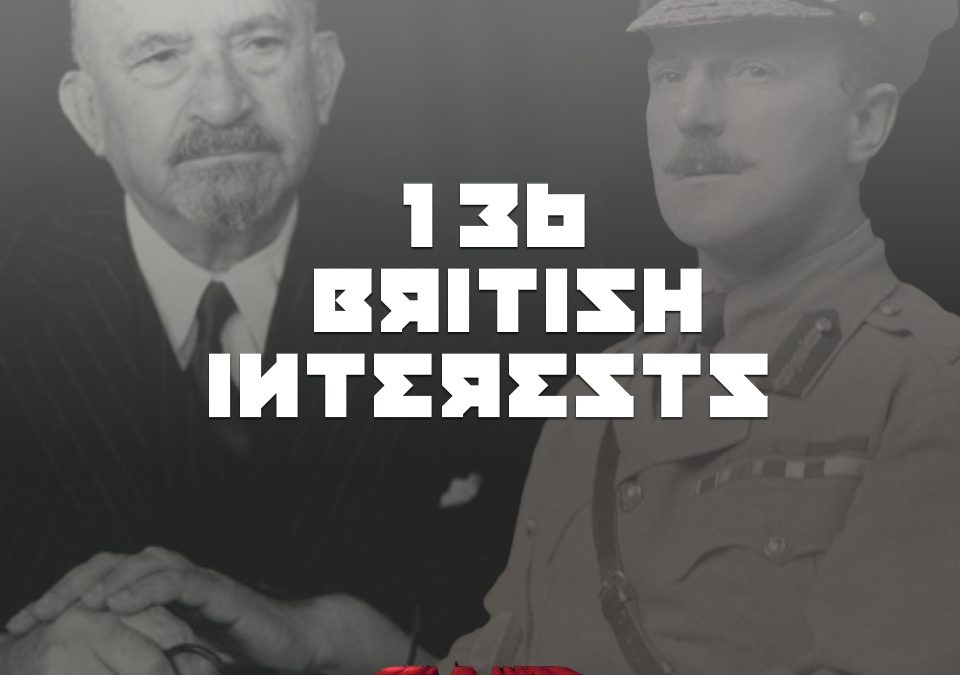
#136 – British Interests
One fascinating witness of early zionism is Sir Ronald Storrs, who, in 1917 became, in his own words “the first military governor of Jerusalem since Pontius Pilate”. In 1940 he wrote a terrific little book, “Lawrence of Arabia, Zionism and Palestine.” This episode explain the roles of Chaim Weizmann, Herbert Samuel and World War I on Britain’s support for the zionist agenda in Palestine. The British were eager to get the Jews to help them defeat the Germans and Ottomans. They also hoped that supporting the zionist agenda would help them secure war loans from the United States – and bring the US into the war. They also hoped that putting a bunch of grateful Jews under a British protectorate in Palestine would help them secure the eastern approach to the Suez Canal, the jugular vein of British commerce.
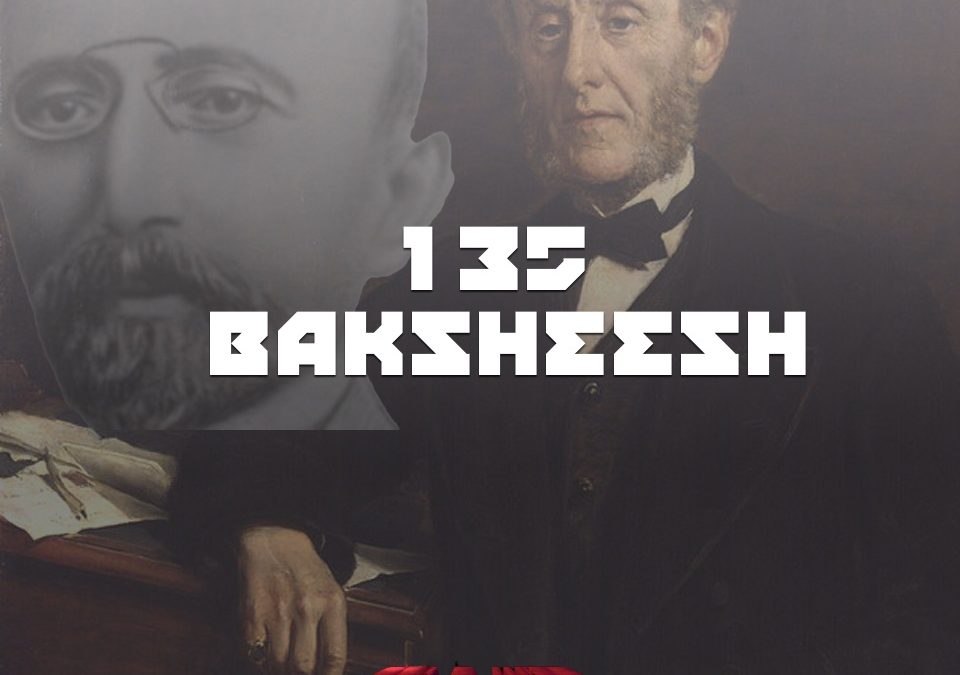
#135 – Baksheesh
By 1881, on the eve of the start of the Zionist Jewish influx, Palestine’s population was 457,000—about 400,000 of them Muslims, 13,000–20,000 Jews, and 42,000 Christians (mostly Greek Orthodox). In addition, there were several thousand more Jews who were permanent residents of Palestine but not Ottoman citizens. The overwhelming majority of the population was Arab, about 70 percent rural. Most of the Jews and Christians lived in Jerusalem.
But then foreign Jews started buying land in Palestine. When the first Jews started to arrive from Russia, the governor of Jerusalem was ordered to bar Russian, Rumanian, and Bulgarian Jews from landing in Jaffa and Haifa. The following year he was instructed to stop the sale of state lands to Jews, even if they were Ottoman citizens. But they kept coming anyway.
Many of the Zionists had been lead to believe the land was mostly empty. Many people believe that still today. Of the Palestinians, many Zionists believed they were “primitive, dishonest, fatalistic, lazy, savage”. The Zionist leader Moshe Smilansky, in 1914 wrote:
“We must not forget that we are dealing here with a semi-savage people….”
The cause of the Zionists was supported by certain Western leaders, especially those who were Christian Zionists. Christian Zionists believe that the gathering of the Jews in Israel is a prerequisite for the Second Coming of Jesus.
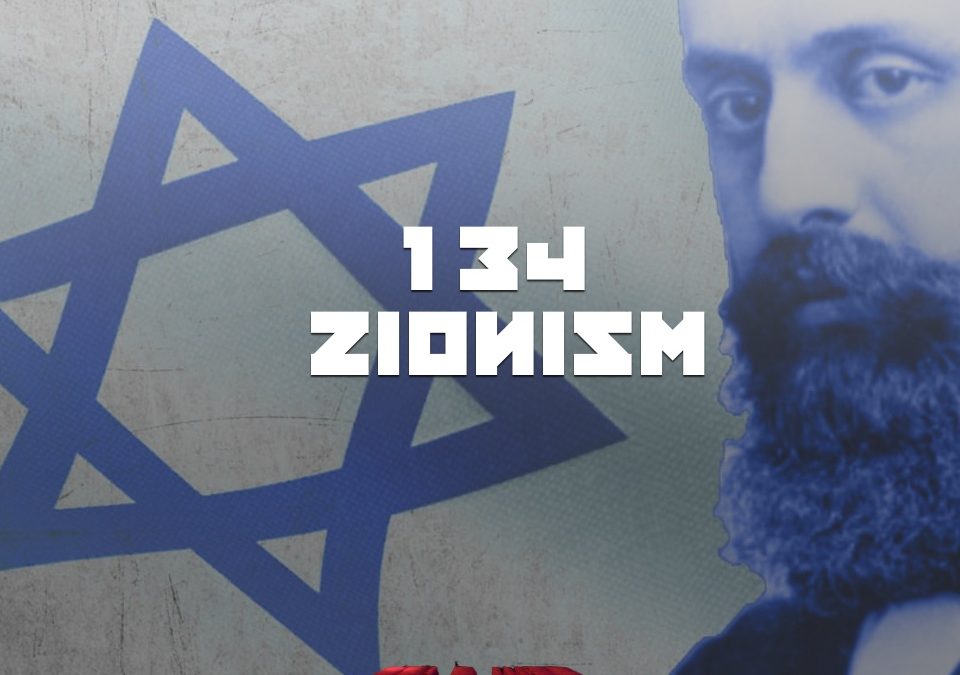
#134 – Zionism
The idea of Jews returning to Palestine had been around since they were evicted by the Romans, but in a modern sense it really started to take shape in the late 19th century after the pogroms in Russia. On this podcast we talk about the vision some of the early proponents of Zionism had, including Leo Pinsker, Moses Hess, and Theodor Herzl.
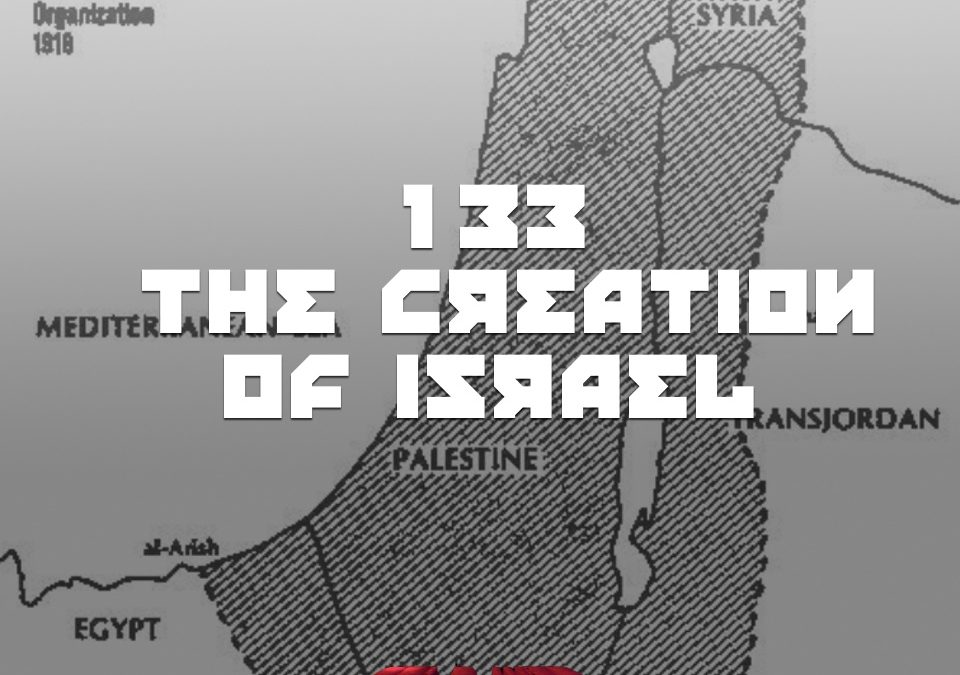
#133 – The Creation Of Israel
Although you may not think of Israel as part of the Cold War paradigm, it’s played such a huge role in American foreign policy, and we have to cover it. It’s also played, and continues to play, a huge role in the story of oil, which is, of course, a huge part of the Cold War story. Because, as you know, the Cold War was all about economics. In this episode, we give a quick overview of anti-Semitism and the creation of the State of Israel. In our next episodes we’re going to go deep into the story of Zionism.
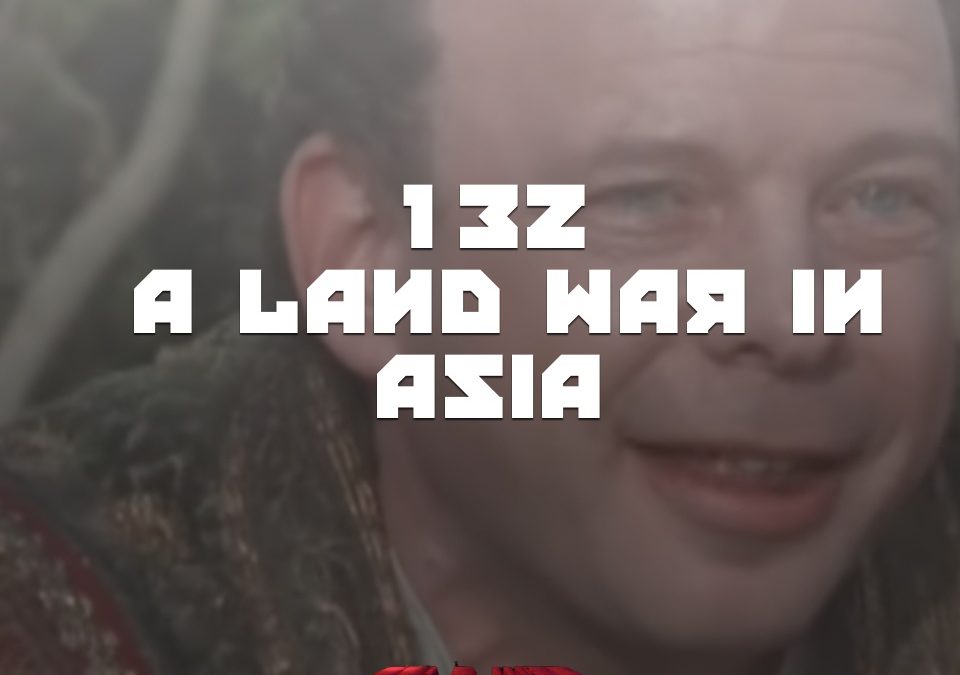
#132 – A LAND WAR IN ASIA
Kim’s “invasion” of the South gave the US the pretext they needed to ramp up military spending via NSC-68 and to support Rhee directly and indirectly by committing one of the classic blunders: never get involved in a land war in Asia.
Admiral Forrest Sherman, Chief of Naval Operations, declared later: ‘I was fully aware of the hazards involved in fighting Asiatics on the Asiatic mainland, which is something that, as a naval officer, I have grown up to believe should be avoided if possible.”
But they did it anyway.
United Nations Security Council Resolution 83 was pushed through – the Soviet Union did not veto it because it was still boycotting the Security Council – and Truman immediately decided to throw everything he had at Korea, shocking not just the Koreans, the Soviet and the Chinese, but also the British.
Truman call it a “police action”, a phrase he would later regret.
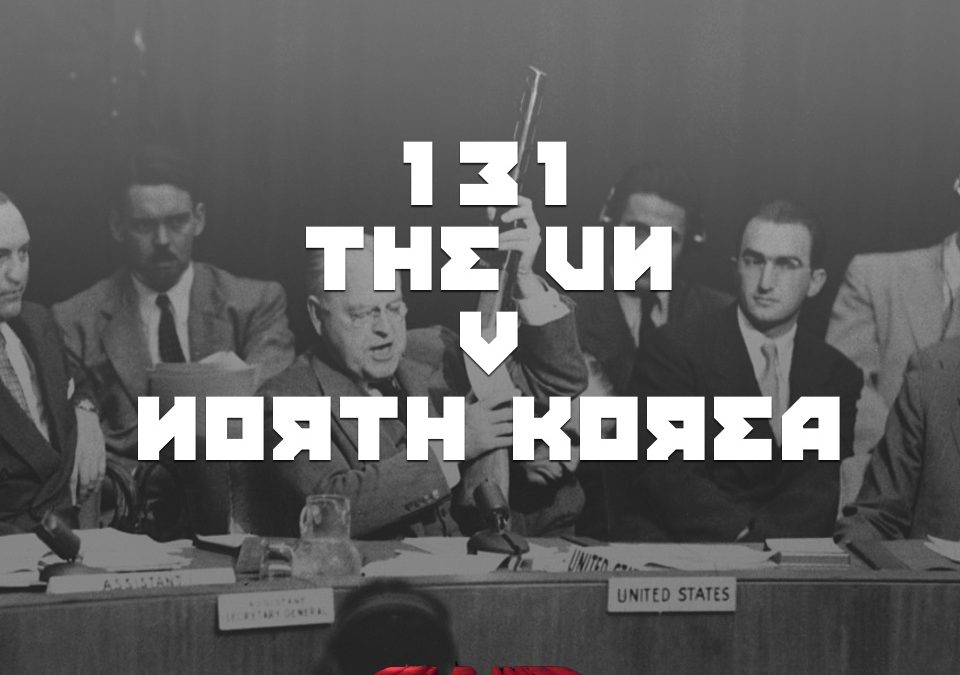
#131 – THE UN v NORTH KOREA
WWII had created a strong US economy, mostly for military spending coming out of the public treasury.
Lots of industrialists made a fortune during that period.
And it was going away after the war.
In the aftermath of World War II, US armed forces had not merely been reduced – they had been allowed to crumble to the brink of collapse.
Truman’s new Defense Secretary, Louis Johnson, had cut the military to the bone.
It makes sense that they needed to find a way to keep the country on a war footing in the absence of a real war.
Korea – and NSC-68 – provided exactly that.
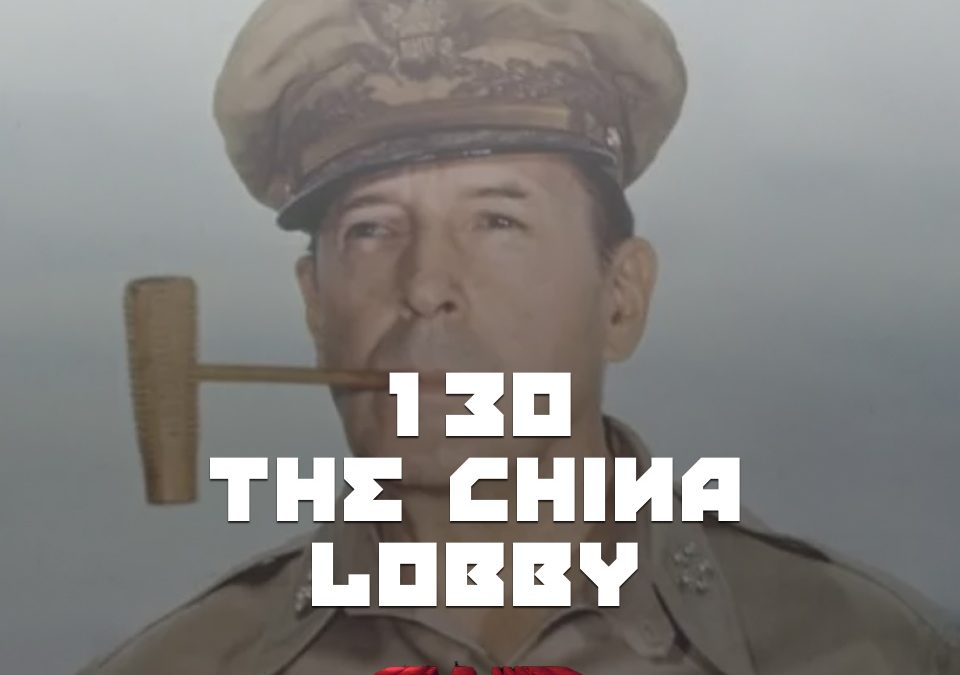
#130 – The China Lobby
Americans were told that the invasion by North Korea was a total surprise. It was positioned as another Pearl Harbour. But this isn’t exactly true. They must have known it was coming and when it was coming. They just chose to ignore it. Why? Who stood to benefit from the invasion?
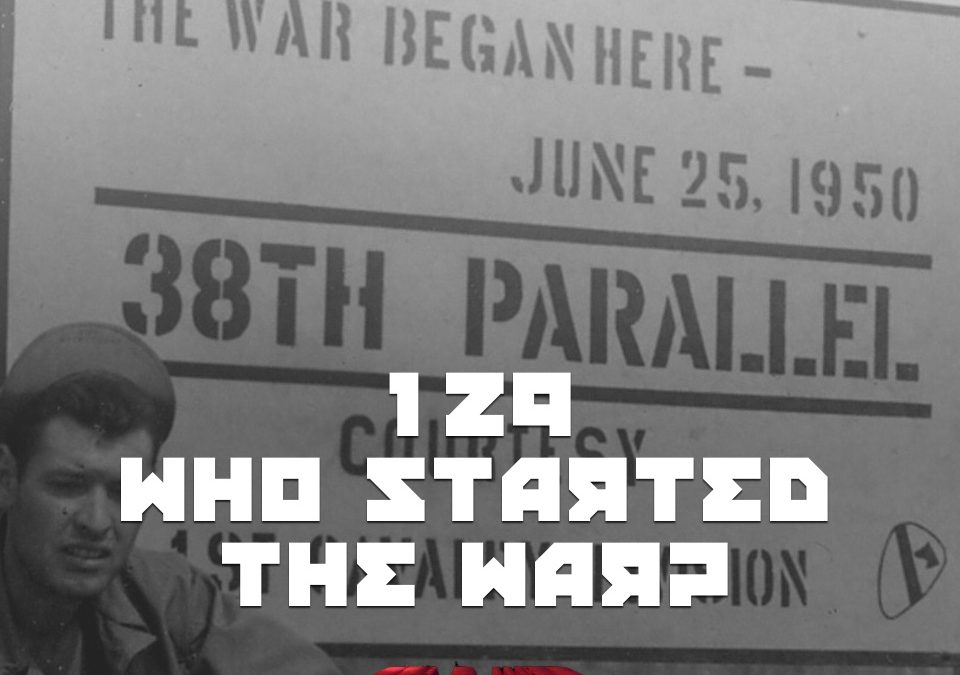
#129 – Who Started The War?
In the South, despite claims of "freedom", the US administration shut down the KPR, the ‘Korean People’s Republic’, a popular political party lead by Yo Un-hyung, and closed down the most prominent Seoul newspaper that was...
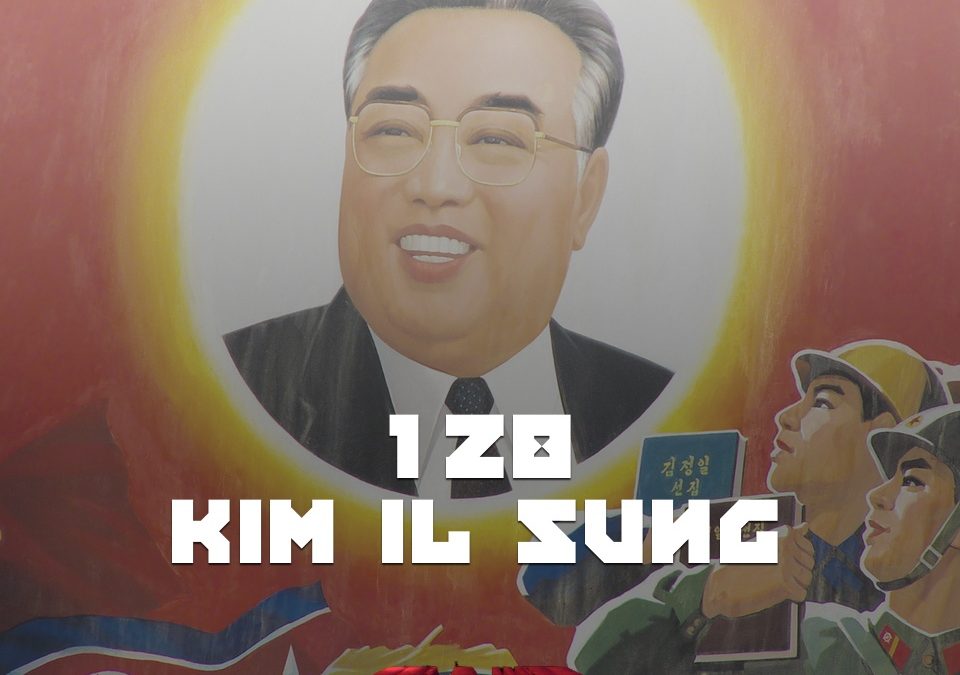
#128 – Kim Il Sung
Meanwhile in the North, the Soviets chose Kim Il Sung to be their hand-picked President. Unlike Rhee, who had spent most of the last 35 years of Japanese occupation chilling in Hawaii, Kim had spent his life fighting the...
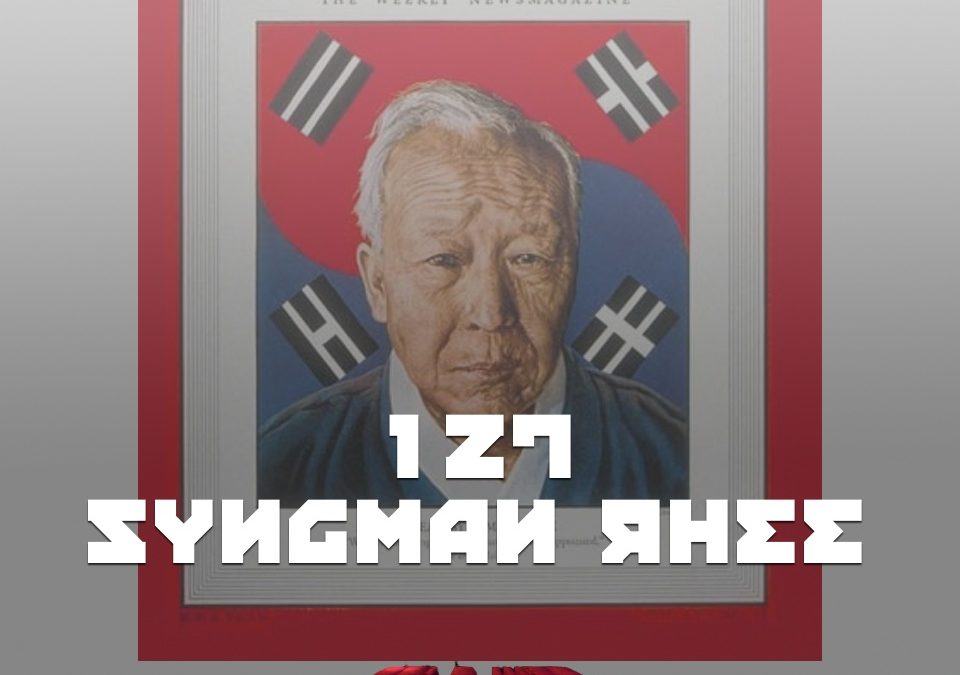
#127 – Syngman Rhee
In the early hours of June 25, 1950, North Korean forces attacked across the 38th parallel that divided the country into a pro-Western regime in the south and a pro-Soviet regime in the north. It officially kicked off the first major conflict of the Cold War. The...
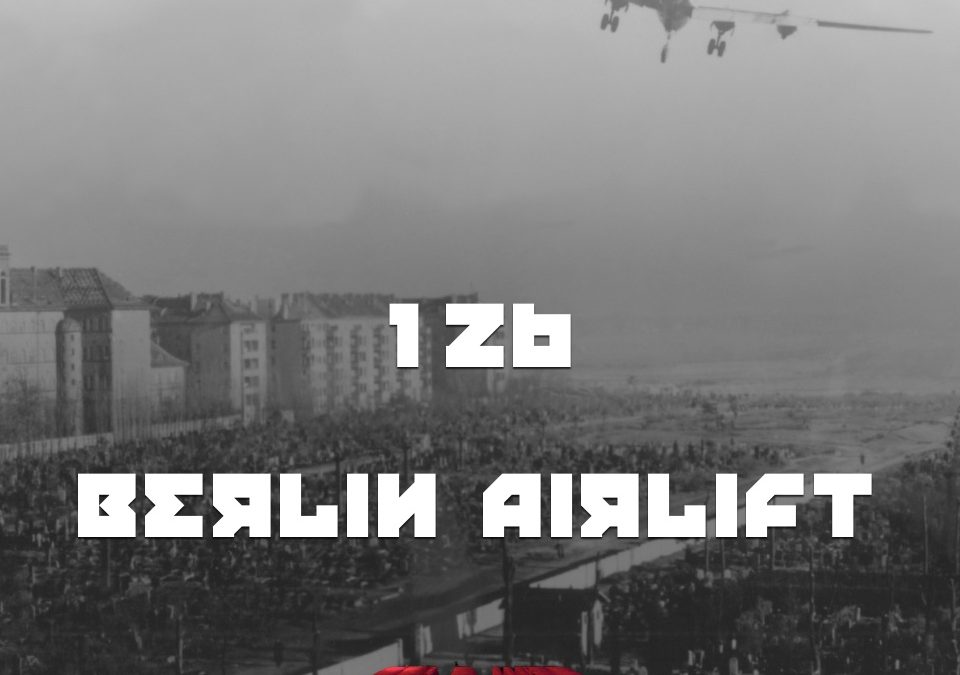
#126 – The Berlin Airlift
As part of their plan to re-build Germany, the USA secretly released a new currency, the Deutsche Mark, printed in New York, to replace the old Reichsmark. Frustrated at how the US, UK and France were re-building their zones of Germany without first reaching an...
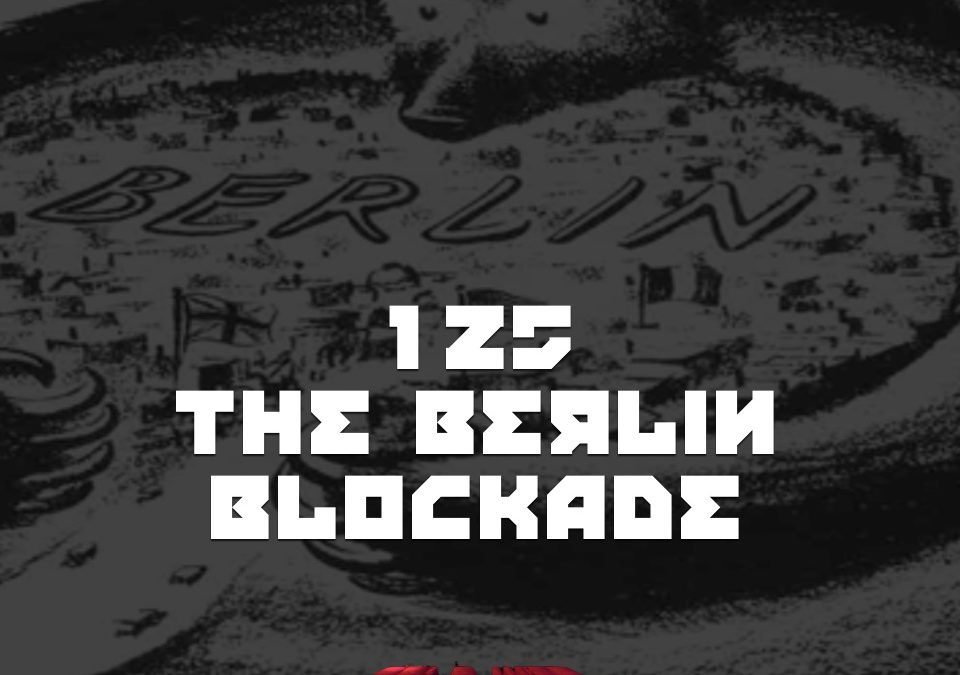
#125 – The Berlin Blockade
The fault of the Berlin Blockade is often laid at the feet of Stalin. But the truth is a little more complicated. By 1948, the situation in Germany was still messy. The Four Powers (USA, USSR, UK, France) in control of Germany...
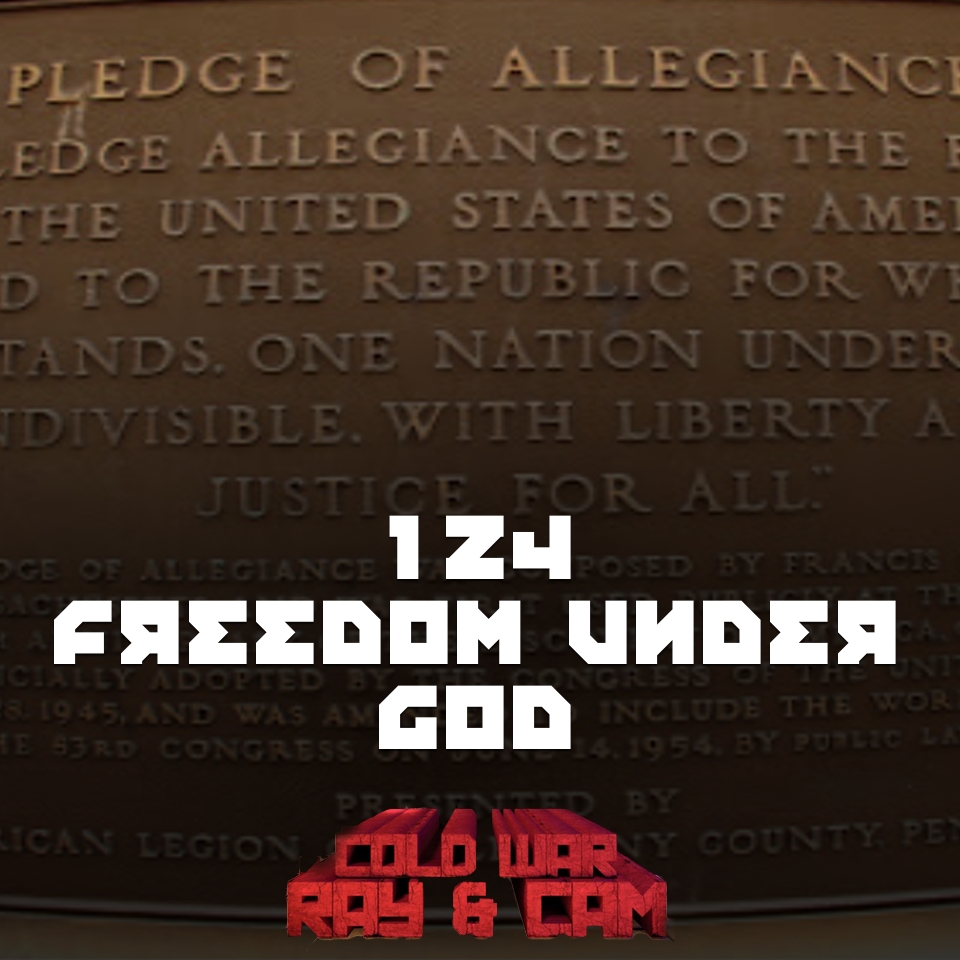
#124 – Freedom Under God
In 1951, the American Congregational minister James Fifield and his team of geniuses came up with a brilliant idea. To mark the 175th anniversary of the signing of the Declaration of Independence, they proposed to hold a massive series of events devoted to the theme...
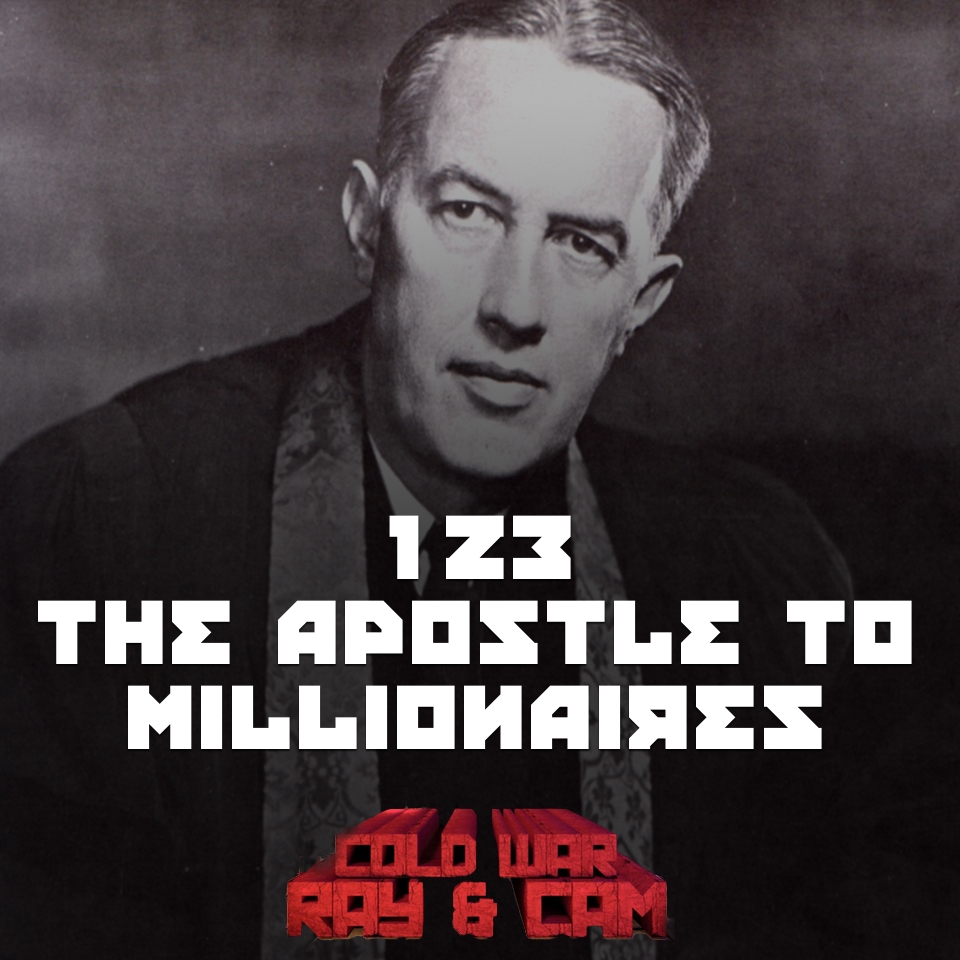
#123 – The Apostle to Millionaires
After Father Coughlin was shut down, another anti-Communist Christian leader rose in his place - James Fifield aka "The Apostle to Millionaires", aka "St. Paul of the Prosperous" aka "the Thirteenth Apostle of Big Business". Unlike Father Coughlin, Fifield was happy...
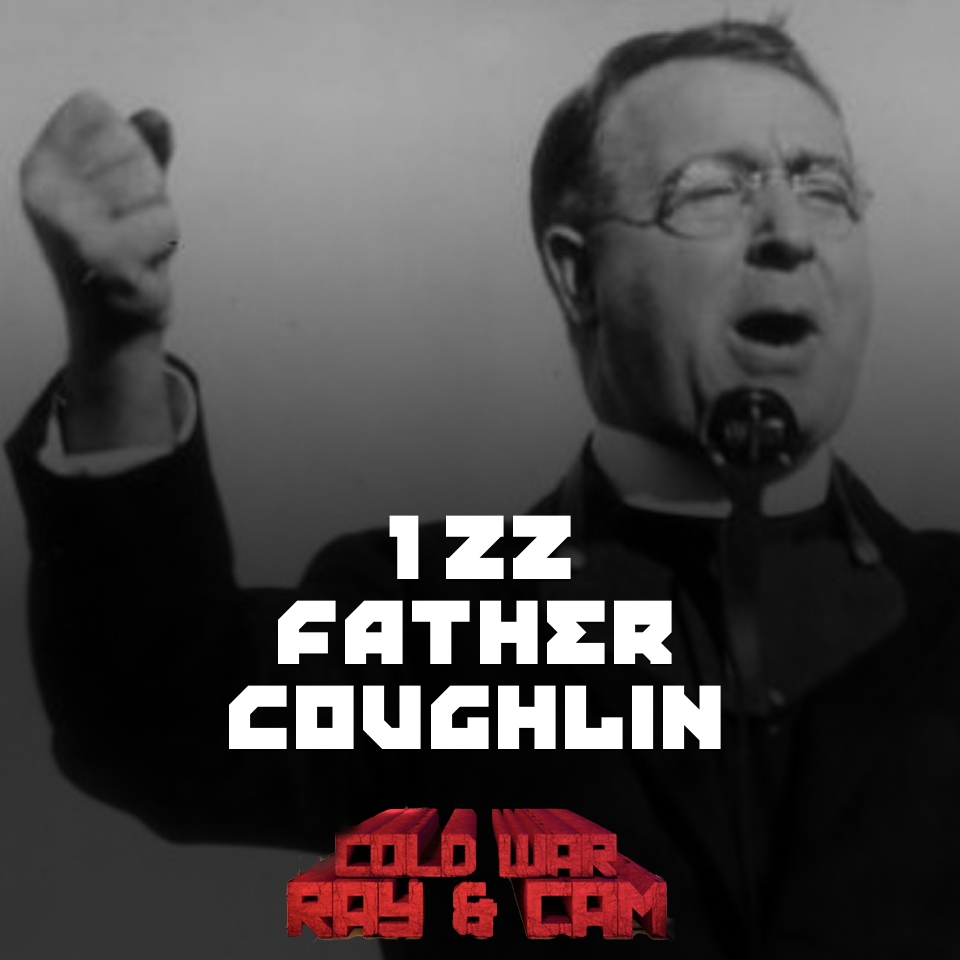
#122 – Father Charles Coughlin
Today we talk more about Christians who opposed the New Deal. In the 30s there was a guy called Father Charles Coughlin, a Canadian-American Roman Catholic priest based near Detroit. Commonly known as “the radio priest”, he was one of the first political leaders to use radio to reach a mass audience: first took to the airwaves in 1926, broadcasting weekly sermons over the radio. By the early 1930s the content of his broadcasts had shifted from theology to economics and politics, with an estimated 30 million listeners tuning in to his weekly broadcasts. He’s also known as the father of hate radio.

#121 – Truman’s Hysteria
In 1950 Harry Truman complained about a “great wave of hysteria” sweeping the nation - the Red Scare. He should know. He was really largely responsible for creating it. Between the launching of his "loyalty program" in March 1947 and it's finish in December 1952, some...
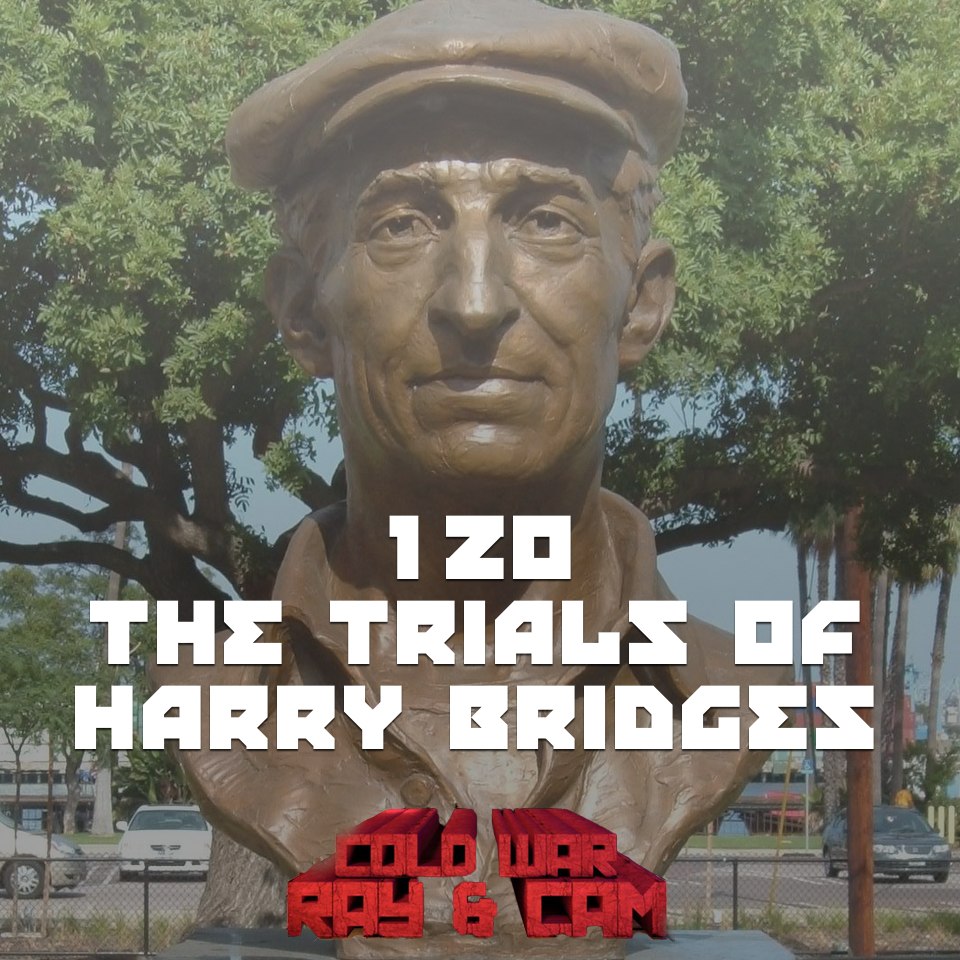
#120 – The Trials Of Harry Bridges
In his "New Deal", FDR brought back the ideals of the "Social Gospel", a 19th century Christian reform movement, to justify the creation of the modern welfare state. For a while, at least, some American Christian leaders were big fans of socialism. However, starting...
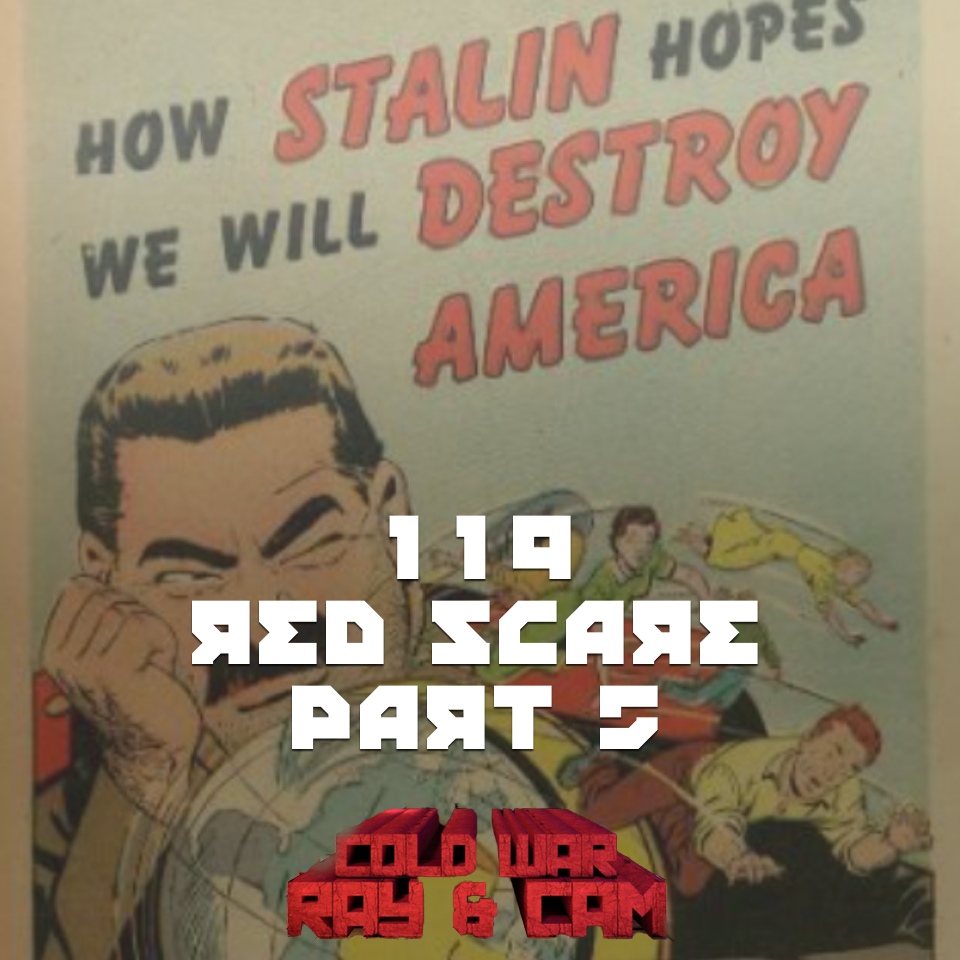
#119 – Red Scare Part 5
Manufacturers and the media also used the Dies Committee to silence their critics. Any attempt to criticise the behaviour of industrialists was called "socialism". Along with communist witch hunts, another tactic industrialists used to protect themselves against the...
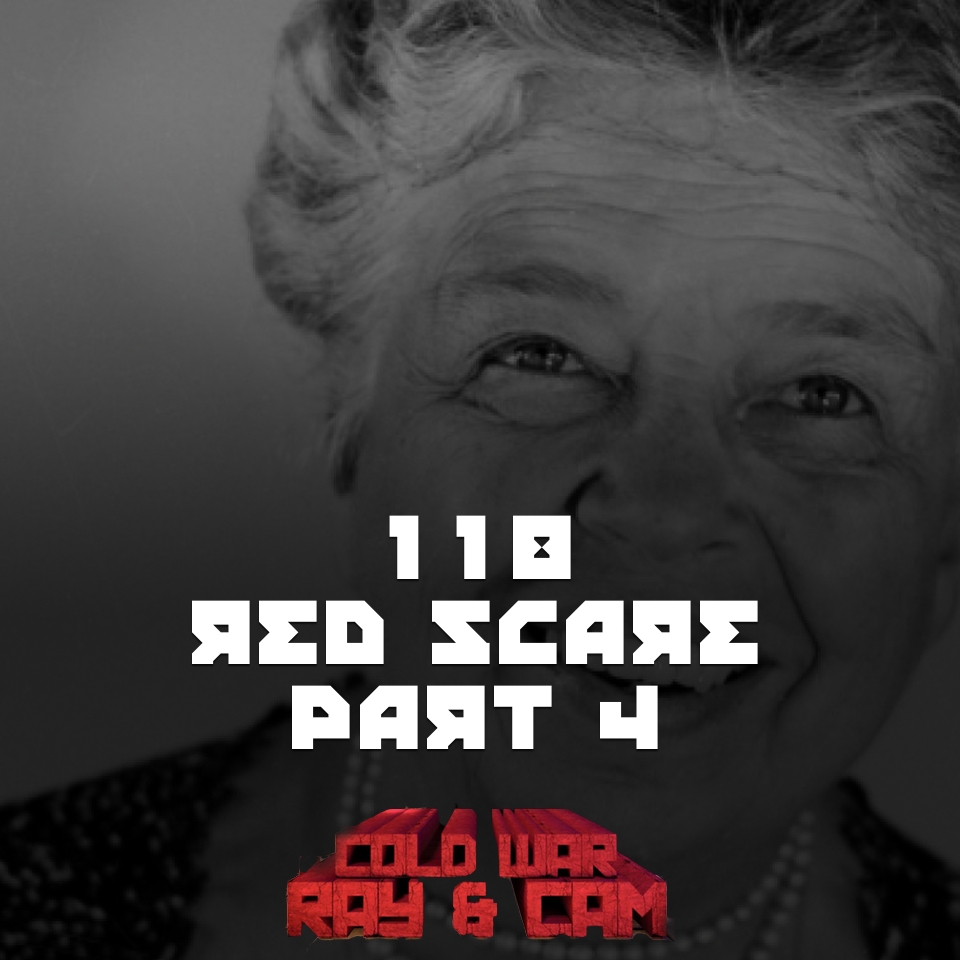
#118 – Red Scare Part 4
The Red Scare continues. In 1939, Martin Dies Jr claimed that the Justice Department was investigating 2,850 known communists in government and that FDR had ordered a purge of all those named. But it was all a disinformation campaign launched by Hoover. The President...
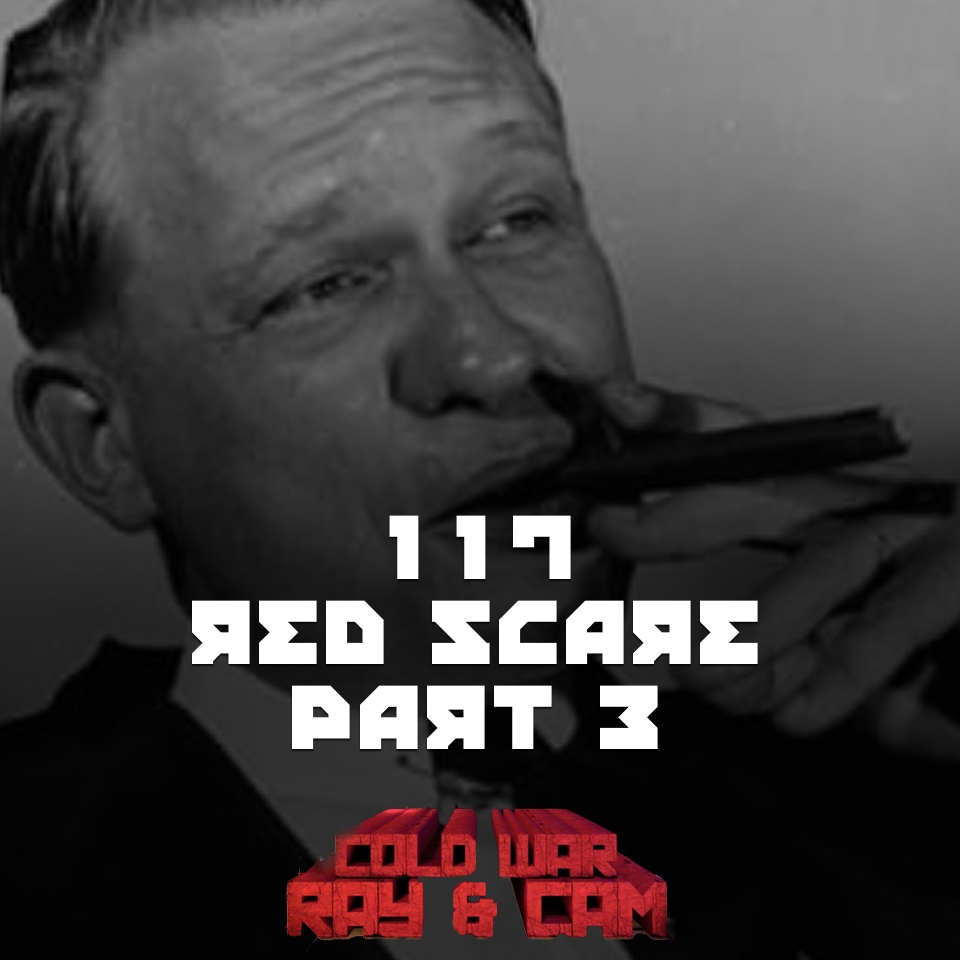
#117 – Red Scare Part 3
As Red Fever grew in the United States in the 1930s, Herbert Hoover asked J. Edgar Hoover to help him blame the Bonus March of 1932 on the Communists. In August 1936, FDR invited JEH to the White House to discuss “subversive activities”. Hoover told him the biggest...
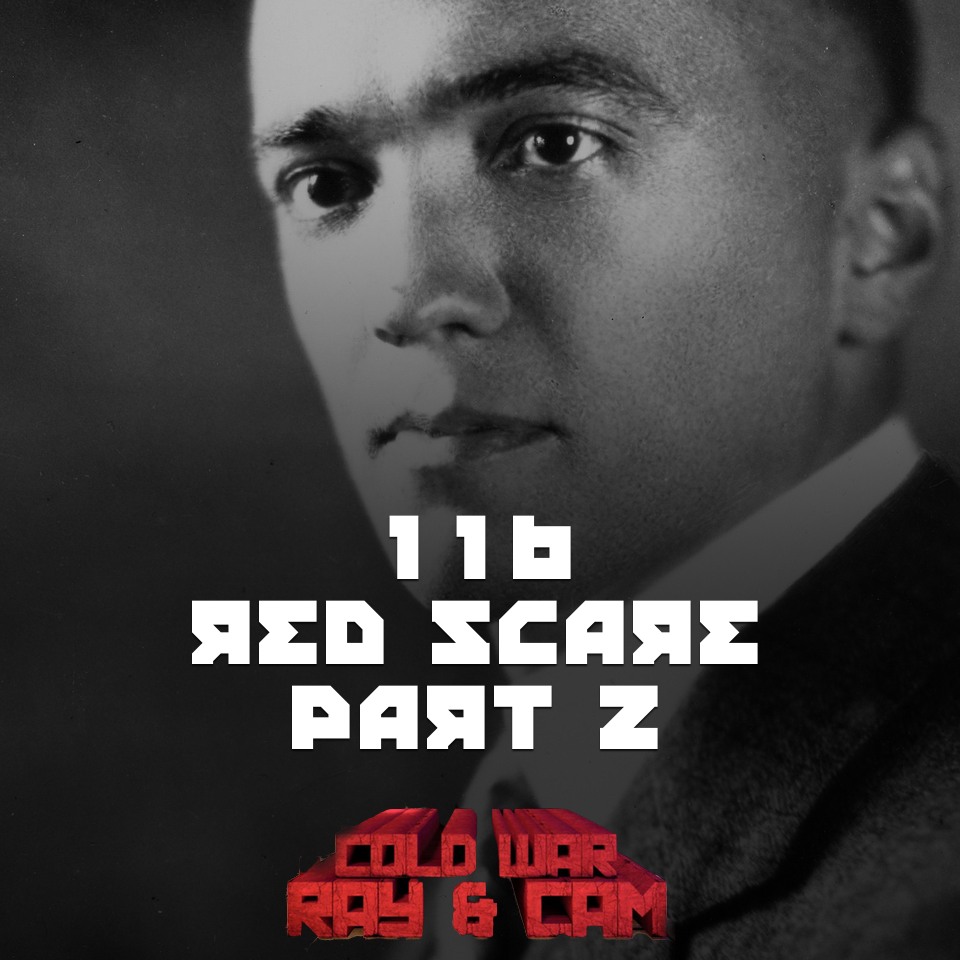
#116 – Red Scare Part 2
In April 1919, US authorities discovered a plot for mailing 36 bombs to prominent members of the U.S. political and economic establishment. One of those was Attorney General Alexander Mitchell Palmer. He decided it was the work of Russian Communists, so he ordered the...
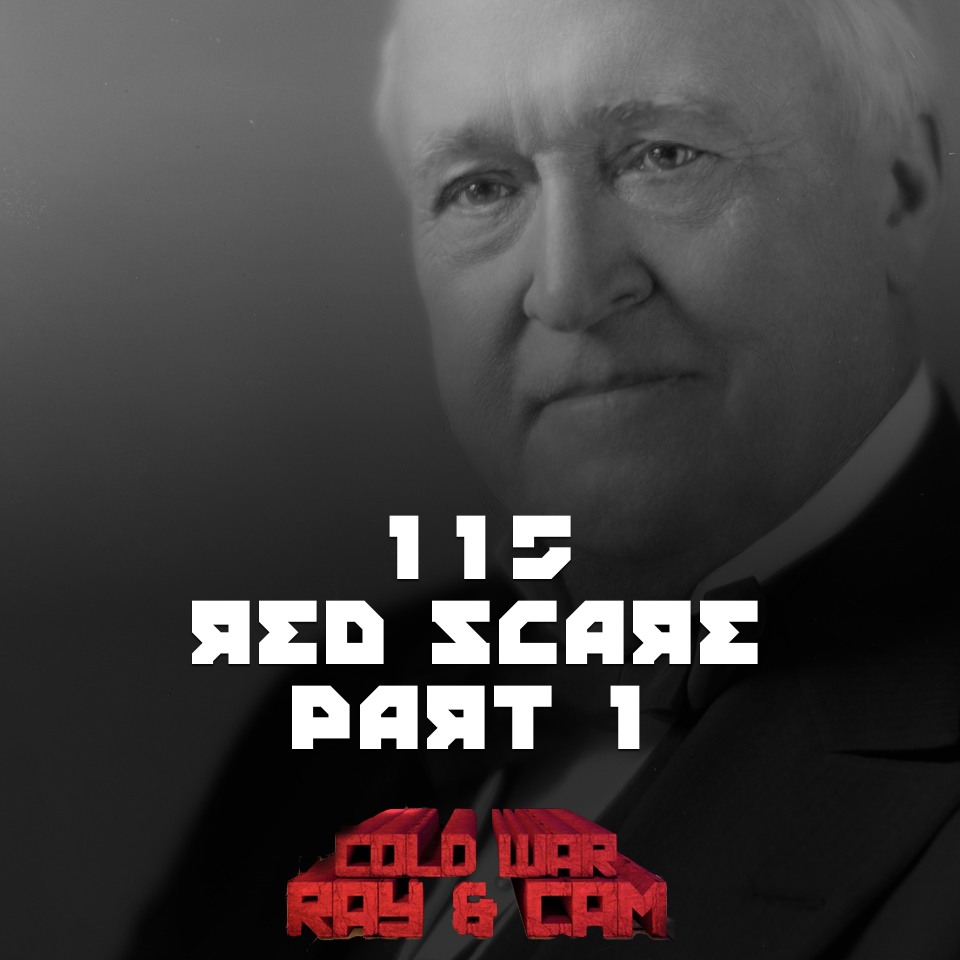
#115 – Red Scare Part 1
The House Un-American Activities Committee (HUAC) was created in 1938 to investigate alleged disloyalty and subversive activities on the part of private citizens, public employees, and those organizations suspected of having Communist ties. HUAC is best remembered for...
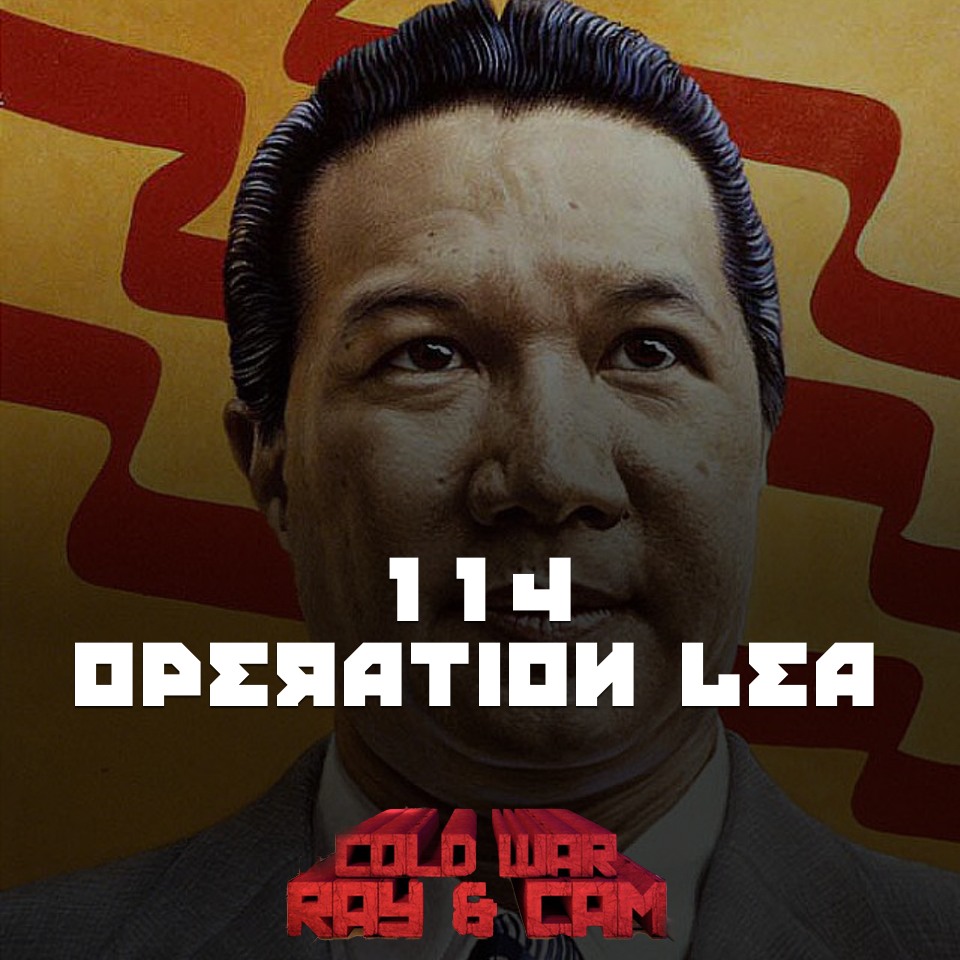
#114 Operation Lea
Finally, on Oct 7, 1947, the French made their offensive into the Viet Bac region: Operation Léa - aka Princess Leia. So-called because it was a smart, feisty, brave diplomat and warrior of a plan. But because he had less troops than he wanted, Valluy scaled down his...

#113 Toxic Nuts
Ho wonders aloud to a journalist why the Vietnamese were not being given the same opportunity as the Philippines, who had just been given their independence from the US, or India, which had just won its independence from the UK. All the Americans seem to care about is...
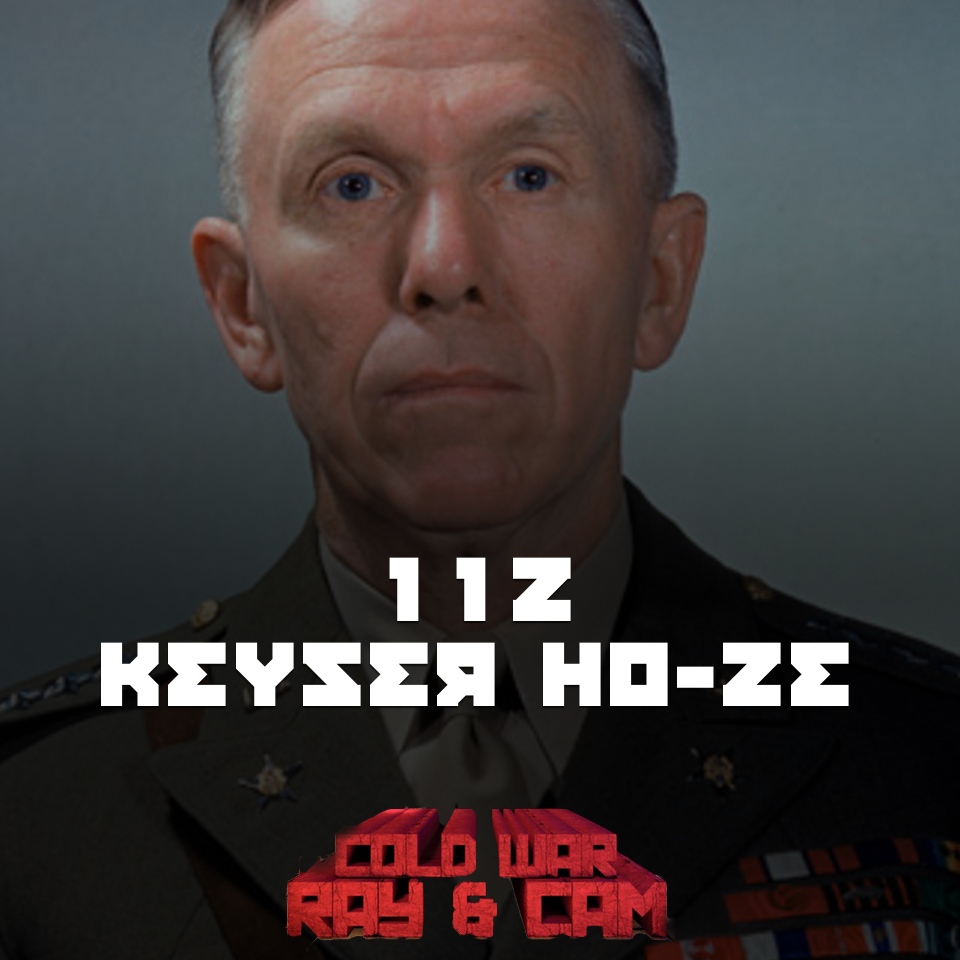
#112 Keyser HO-ze
Ho and his team disappear into the jungle north of Hanoi. The French think they have won. George Marshall dithers. HOW TO LISTEN If you're already a subscriber, you can listen to the full show in the player below or subscribe through iTunes or any podcast player. If...
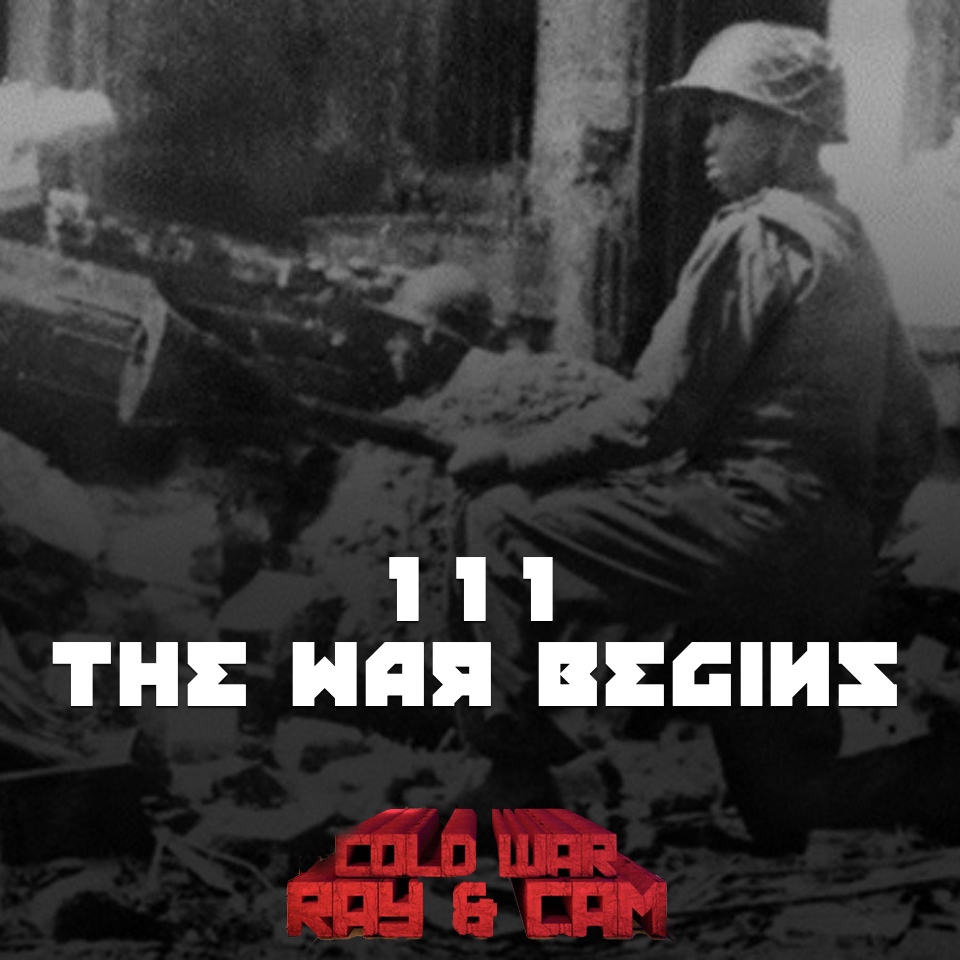
#111 – The War Begins
After the Haiphong incident, Ho started preparing Hanoi for an attack. First, he made a public speech appealing to the French to withdraw their troops. They ignored him. “If those gooks want a fight, they’ll get it,” declared French General Valluy. Ho, Giap...
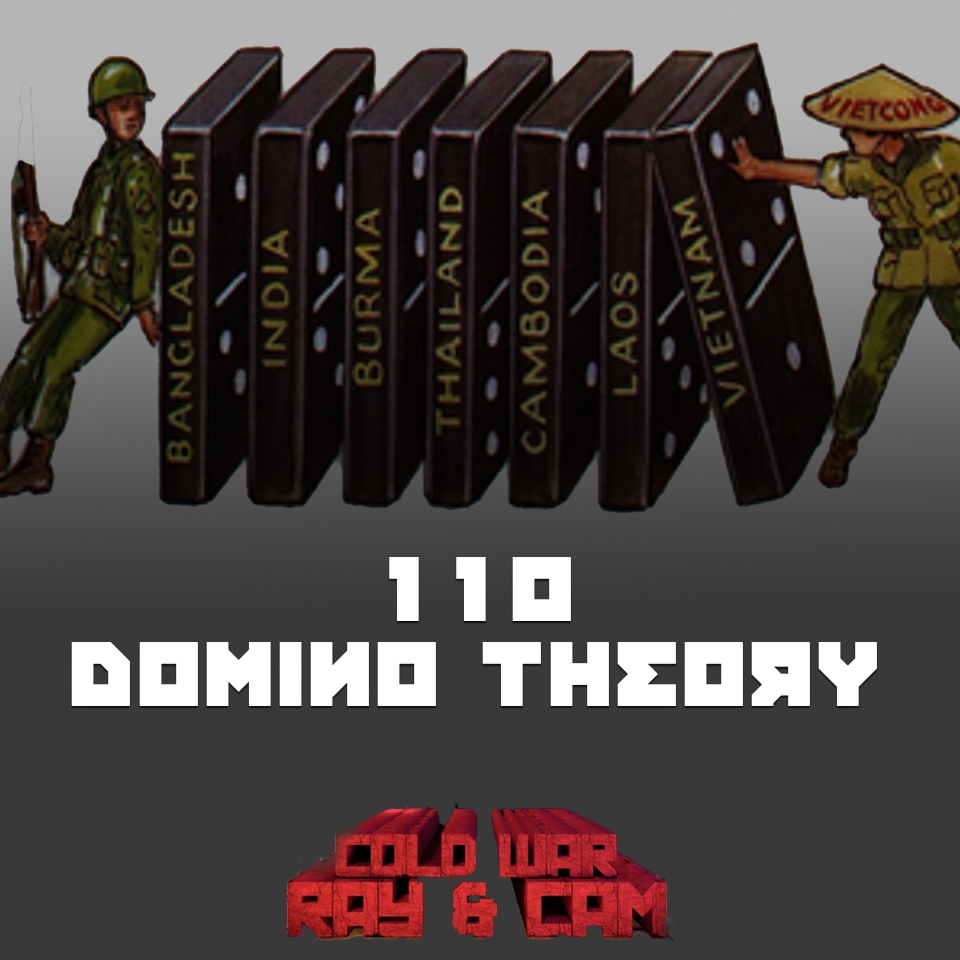
#110 – Domino Theory
Vietnam. 1947. The U.S. Consul in Saigon, Charles Reed, is the first American official to use the term "domino theory". He's talking about what will happen in Cambodia and Laos if Cochin China falls to the VietMinh, who he wrongly concludes are taking orders from...
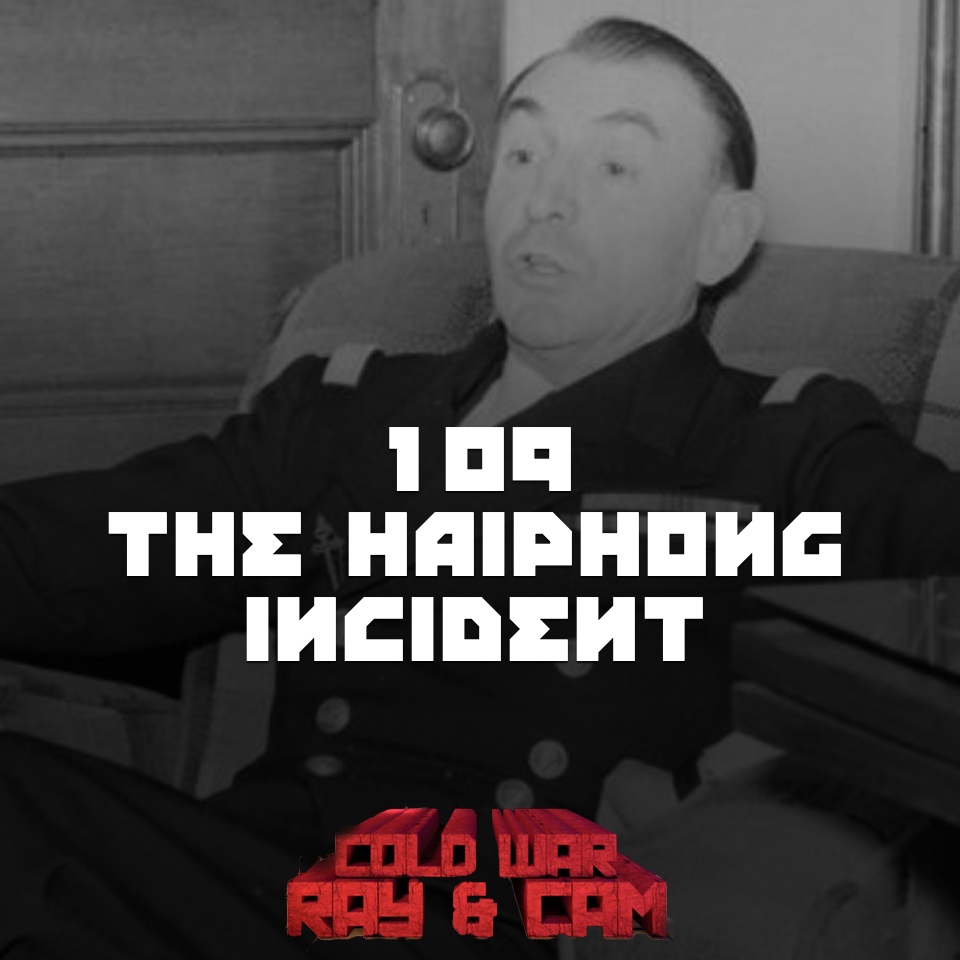
#109 – The Haiphong Incident
Vietnam. Late 1946. The gears of war are turning. One President commits suicide. Another continues to fight for a peaceful settlement. A new government is formed. Then the French army in Indochina decides to take matters into its own hands. They seize a Chinese junk...
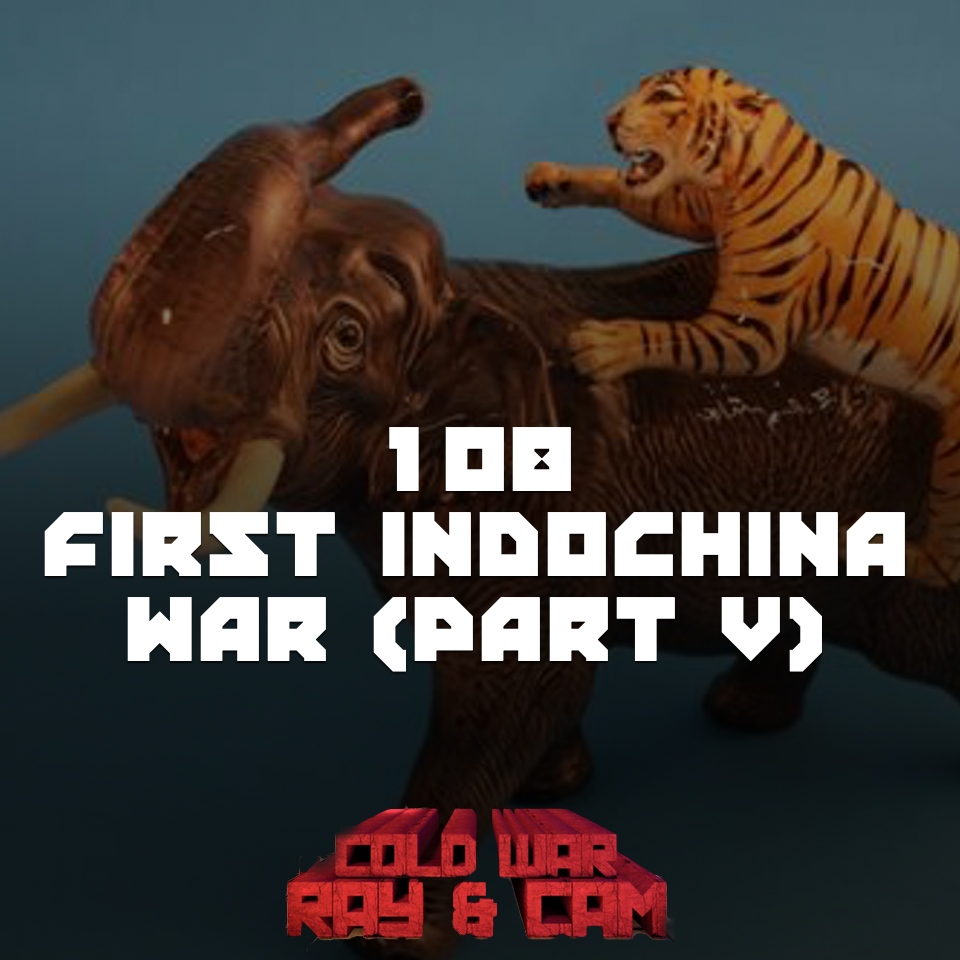
#108 – The First Indochina War (Part V)
Ho Chi Minh goes to Paris for the big sit down with the new French government. But right from the start, things do not go as planned. Meanwhile, the United States are doing their best to ignore the situation. And Ho finally gives in and admits publicly that this is...
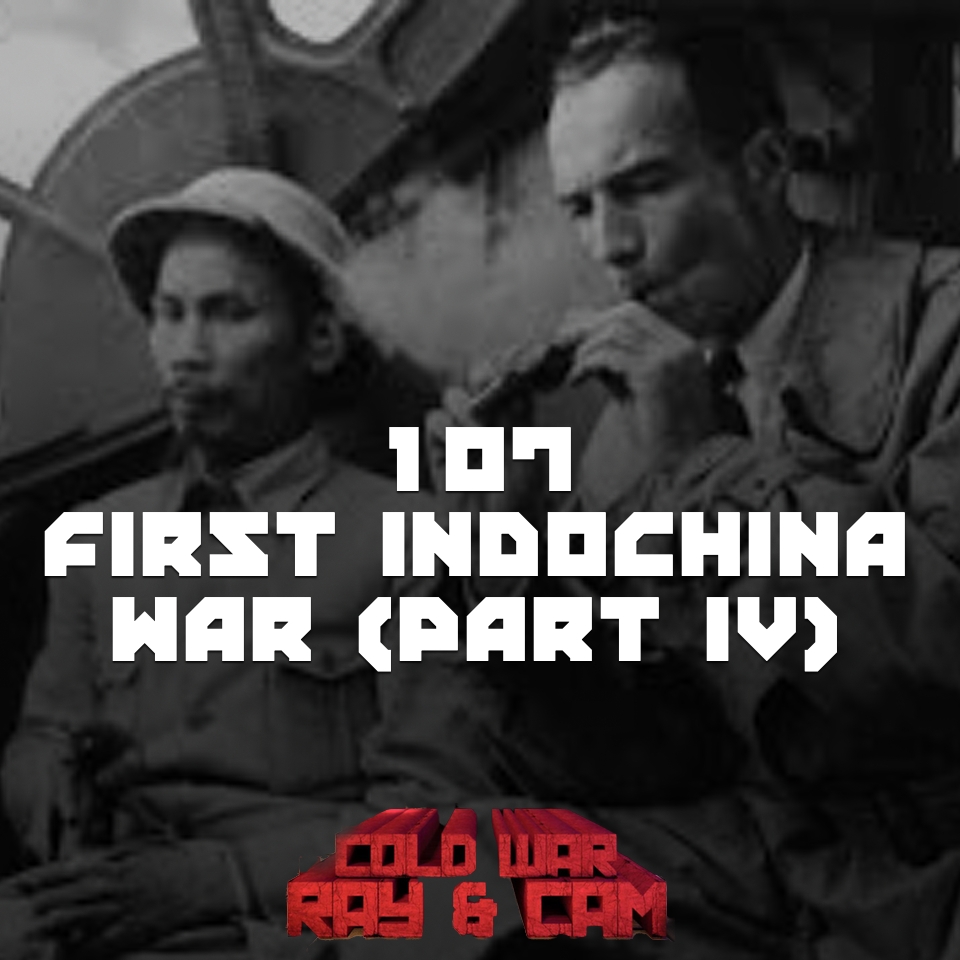
#107 – The First Indochina War (Part IV)
Ho Chi Minh agrees to go to Paris for a second round of talks with the French about the independence of Vietnam. But just before he is due to leave, the French High Commissioner in Vietnam screws him over. And then, the next day, the French government collapses. Ho...
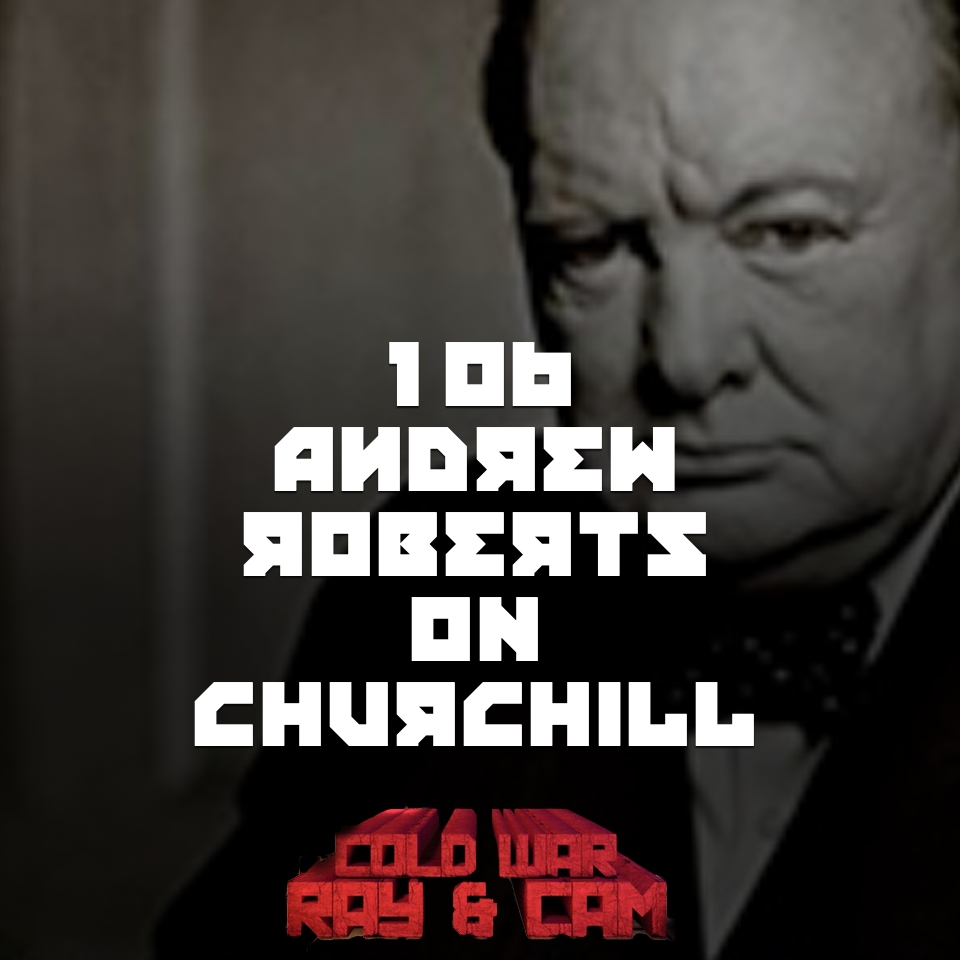
#106 – Andrew Roberts, Churchill
Andrew Roberts has a huge new biography out on England's favourite son, Winston Churchill, and he was nice enough to come on the show to answer a few of our questions about the man. You may remember Andrew talked to Cameron and David about his Napoleon biography a few...
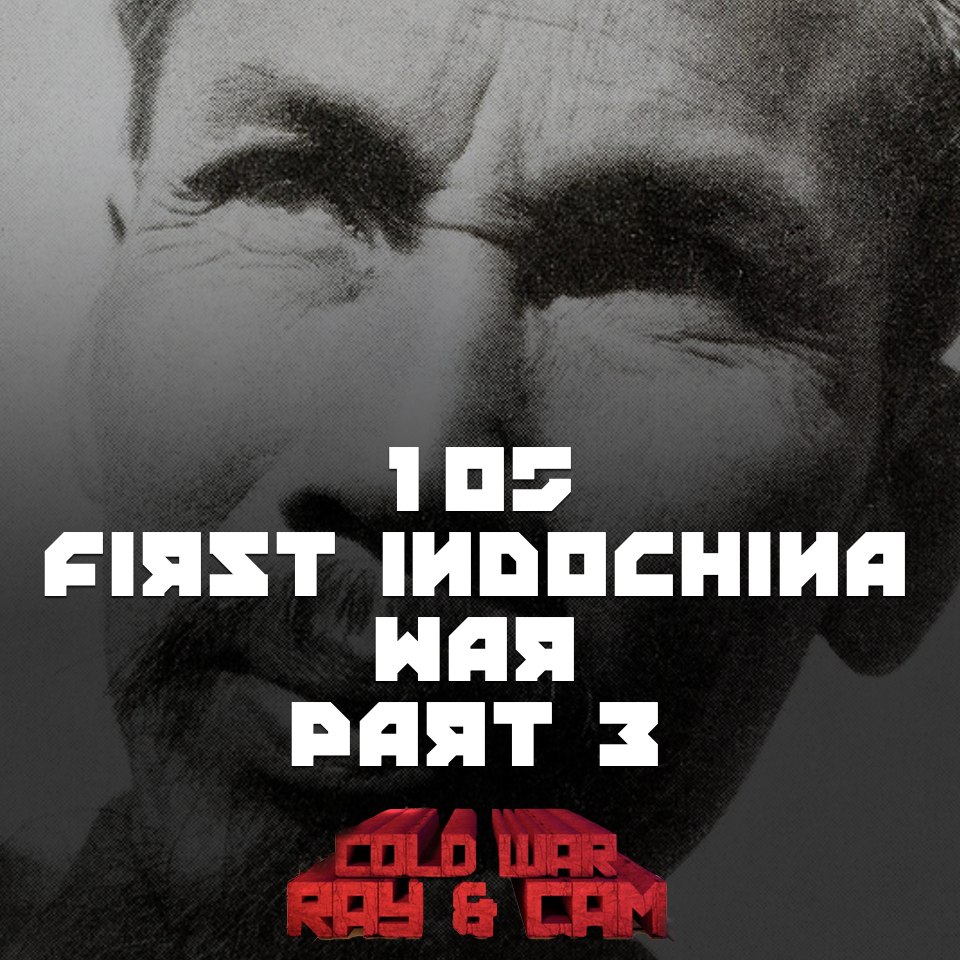
#105 – The First Indochina War (Part III)
In Hanoi, a new provisional coalition government was established on January 1, 1946. Ho Chi Minh was to be named president and Nguyen Hai Than from the nationalist VNQDD party as vice president. The Vietminh and the Chinese controlled the north. The French controlled...
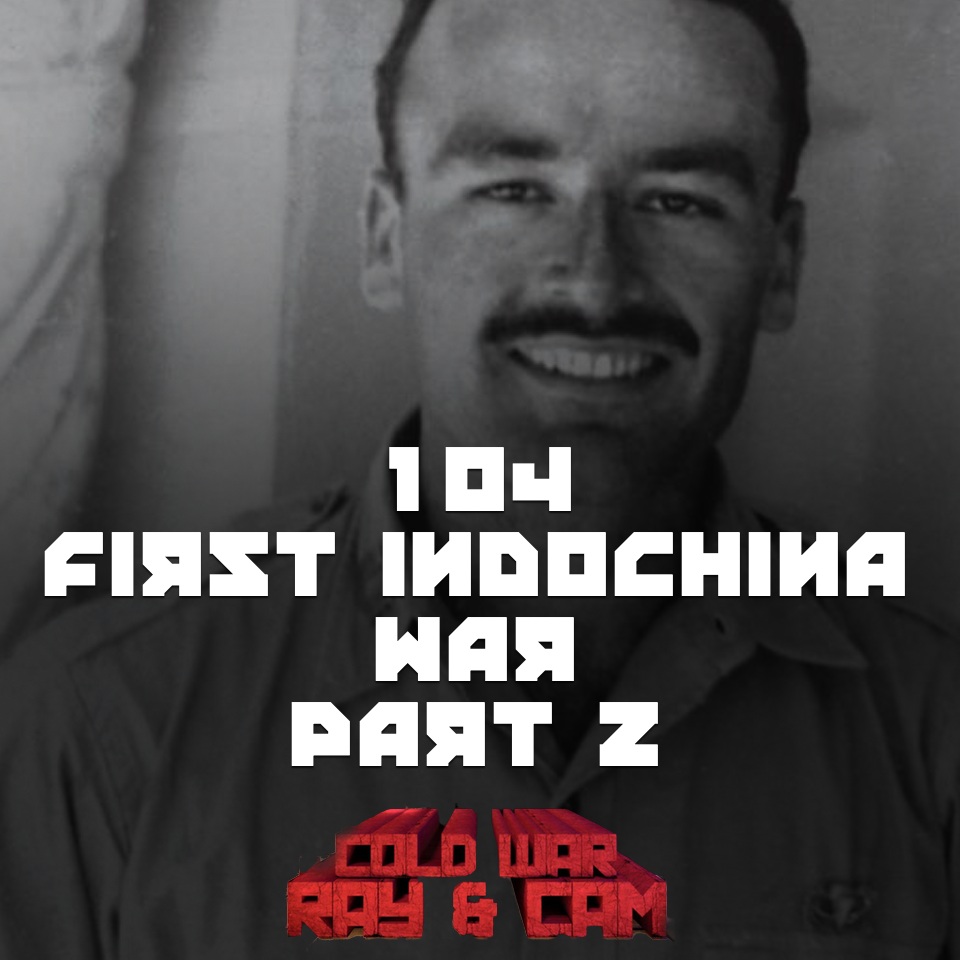
#104 – The First Indochina War (Part II)
Peter Dewey was the first of nearly 60,000 Americans to be killed in Vietnam. Truman sells out the Vietnamese to keep De Gaulle happy. And the French arrive back in their old colony. Here's a picture of the seahorse for reference. HOW TO LISTEN If you're...
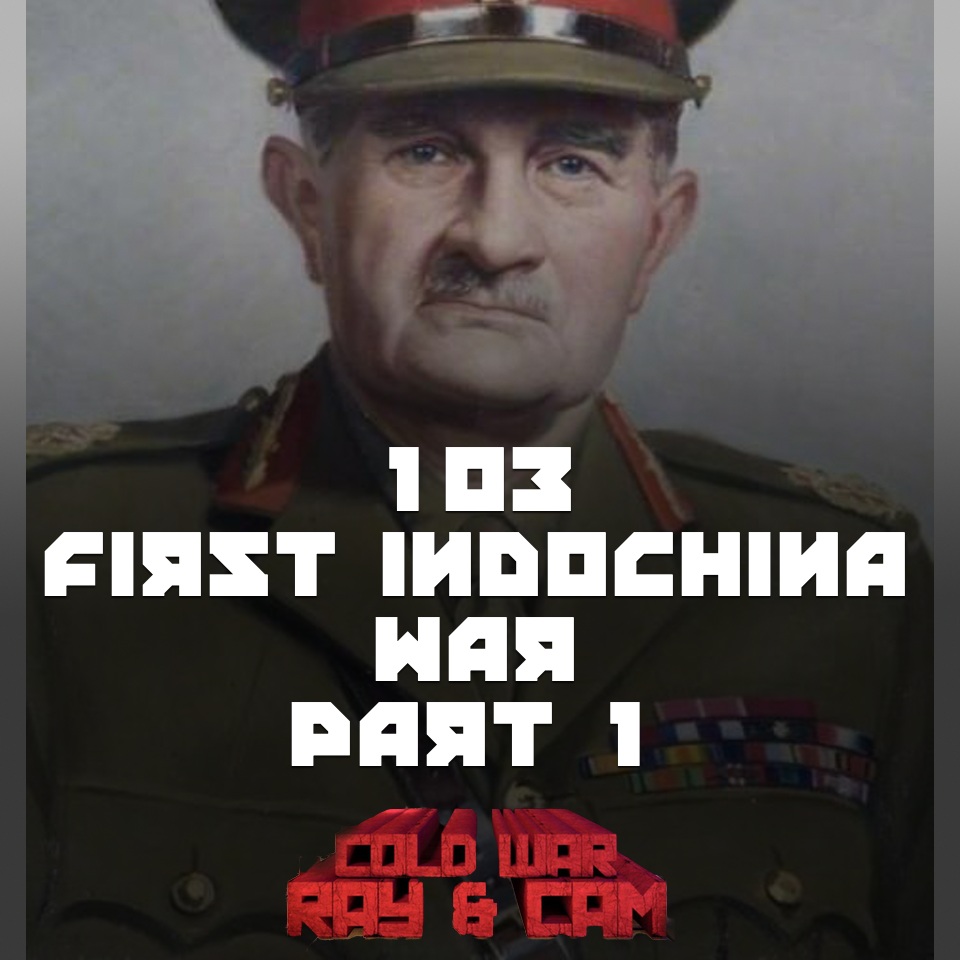
#103 – The First Indochina War (Part I)
After Ho Chi Minh declared the independence of Vietnam in September 1945, the British and Chinese troops arrived in Saigon and Hanoi to disarm the Japanese and prepare the return of the French - and the shooting begins. Some scholars thing that *this* was the...
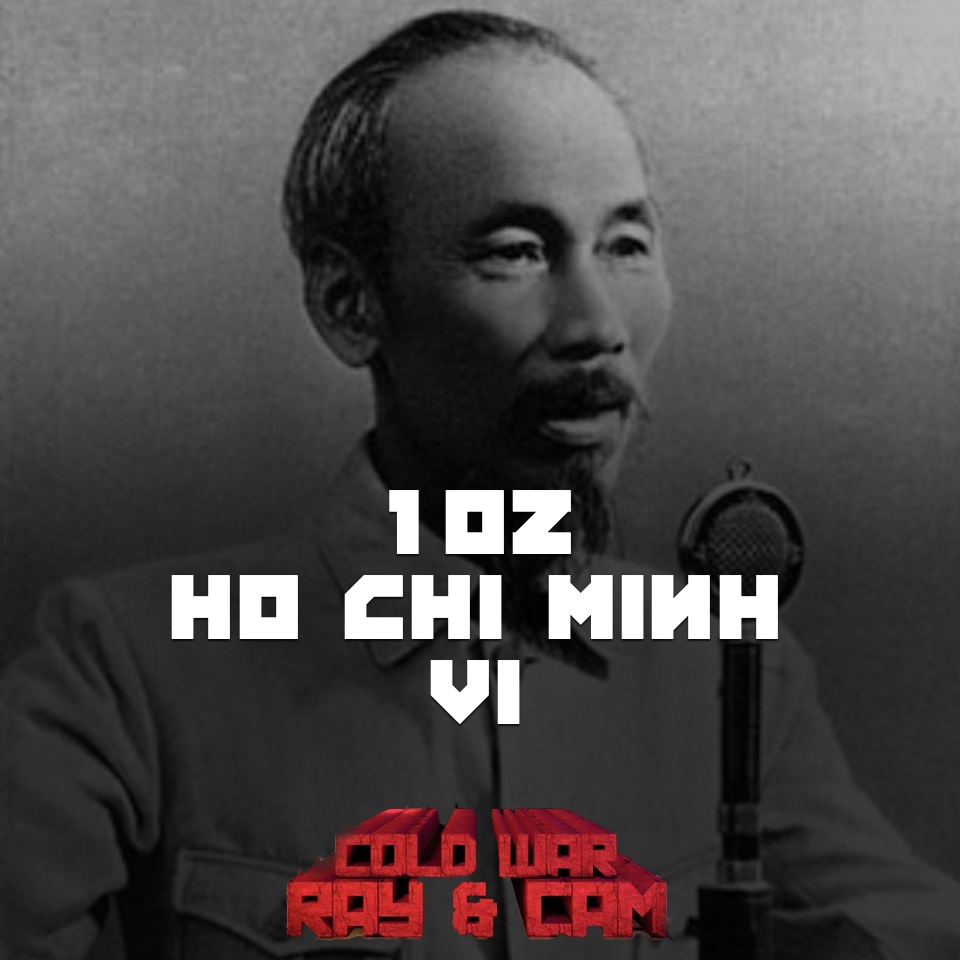
#102 – Ho Chi Minh VI
* As they grew stronger, Giáp's forces took more territory and captured more towns* And then on 15 August they heard that the Japanese Emperor had declared his country's unconditional surrender to the allies.* Unfortunately for Ho and Giap, the U.S. had a new...
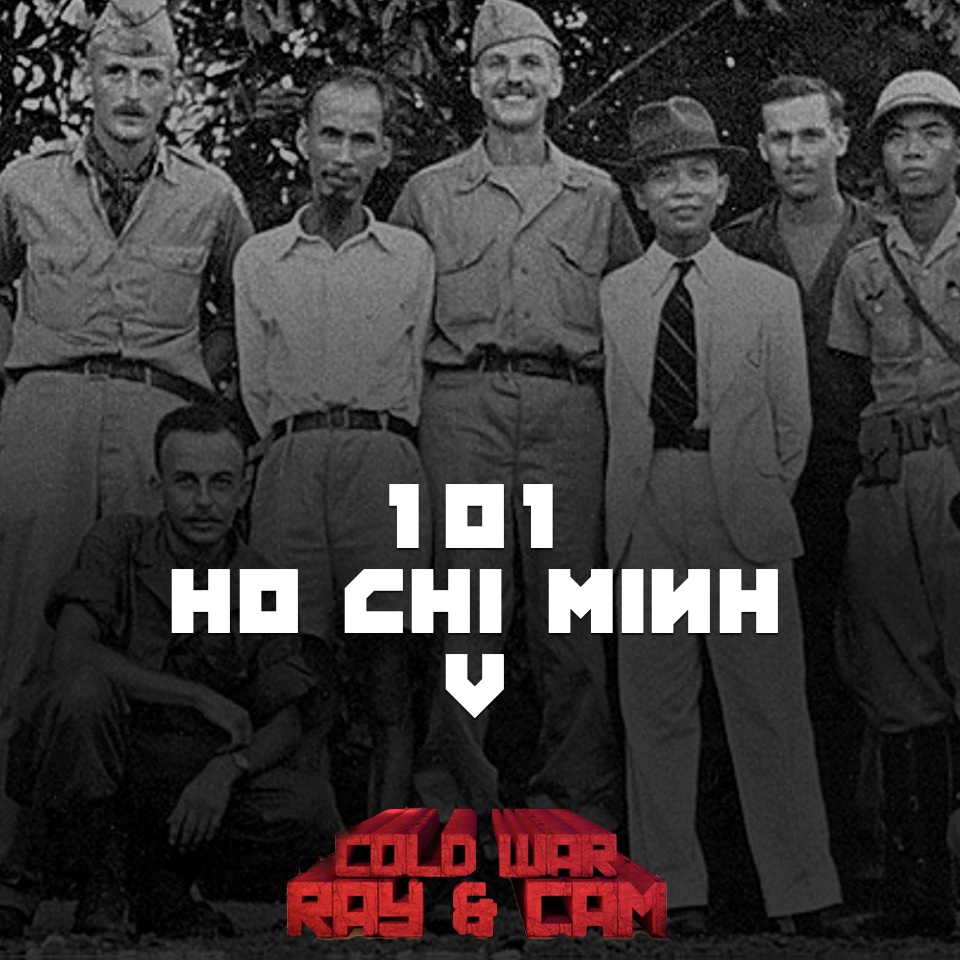
#101 – Ho Chi Minh V
* Ho believed the army’s job was largely going to be propaganda until the conditions were right for war.* But he also decided that for propaganda purposes, they had to win a military victory within a month of being established, so on 25 December 1944 Giáp led...
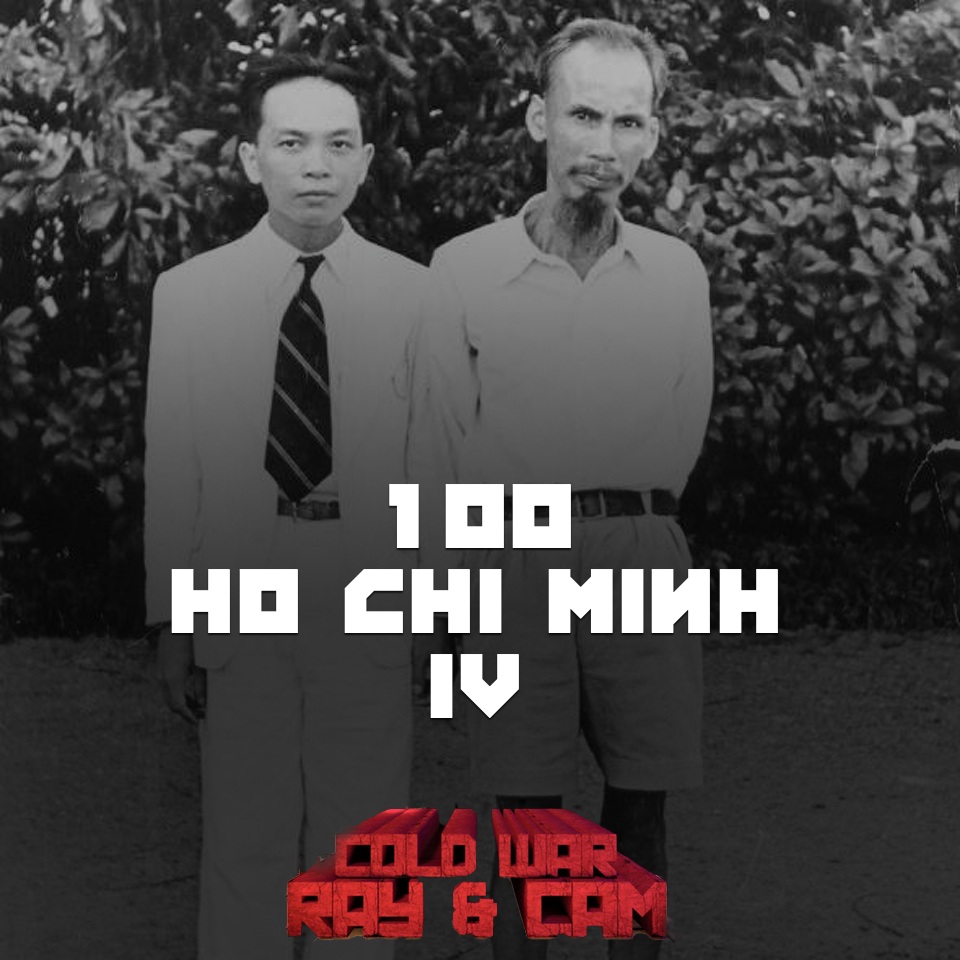
#100 – Ho Chi Minh IV
* Welcome to #100!* And we are still talking about 1944!* When we finished last time, Ho Chi Minh was making his way to the Red River Delta.* The Japanese have chased the French out of Vietnam and didn’t bother to protect the northern regions.* So Ho and the ICP are...
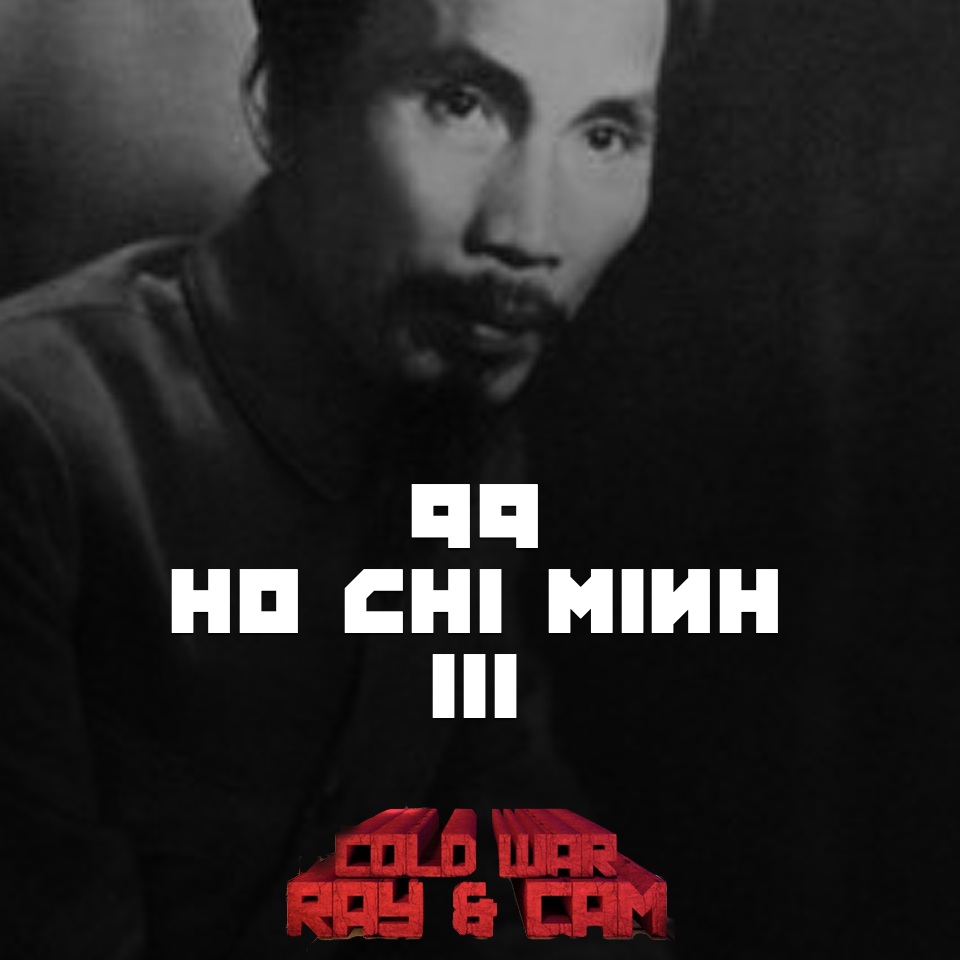
#99 – Ho Chi Minh III
* On December 7 1941, Japan’s main carrier force, seeking to destroy the American fleet and thereby purchase time to complete its southward expansion, struck Pearl Harbour.* And the world celebrated.* As De Gaulle said “that’s it, the war’s over."* He was totally...
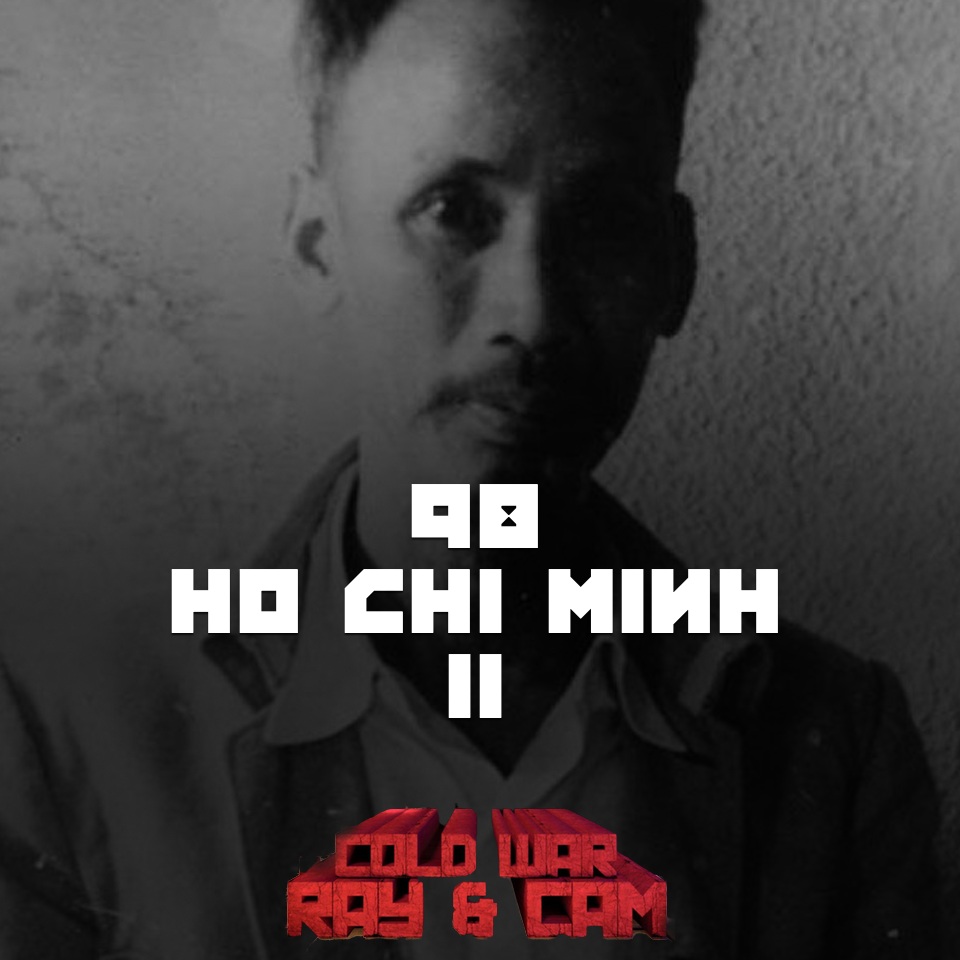
#98 – Ho Chi Minh II
* Ho’s speech to the French socialist congress in 1920 was 12 minutes long and delivered without notes.* It got some applause but that was about it.* He realised that French socialists were more worried about affairs at home than they were about colonialism in a...
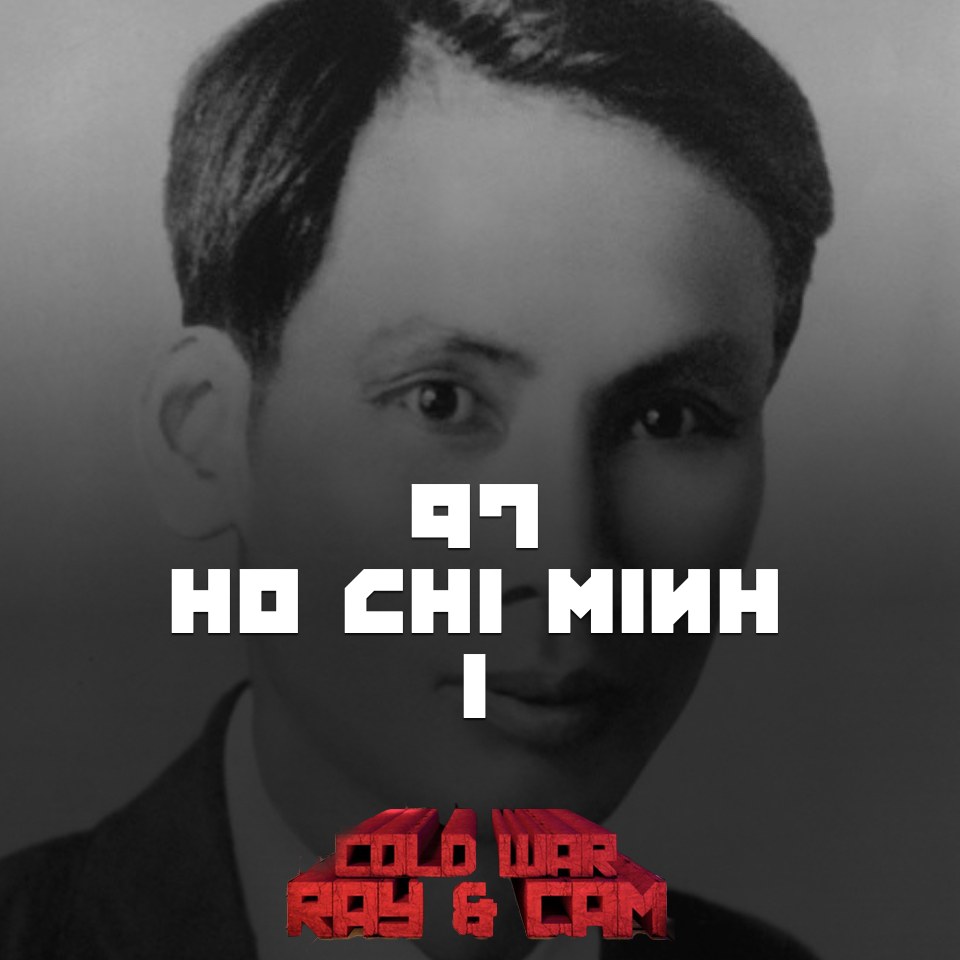
#97 – Ho Chi Minh I
In 1919 a 29 year old Vietnamese man wrote a list of demands for political rights for his people to present to U.S. President Woodrow Wilson at the Paris Peace Conference. Nobody paid him any attention. His name was Nguyen Ai Quoc. He devoted the rest of his life to...
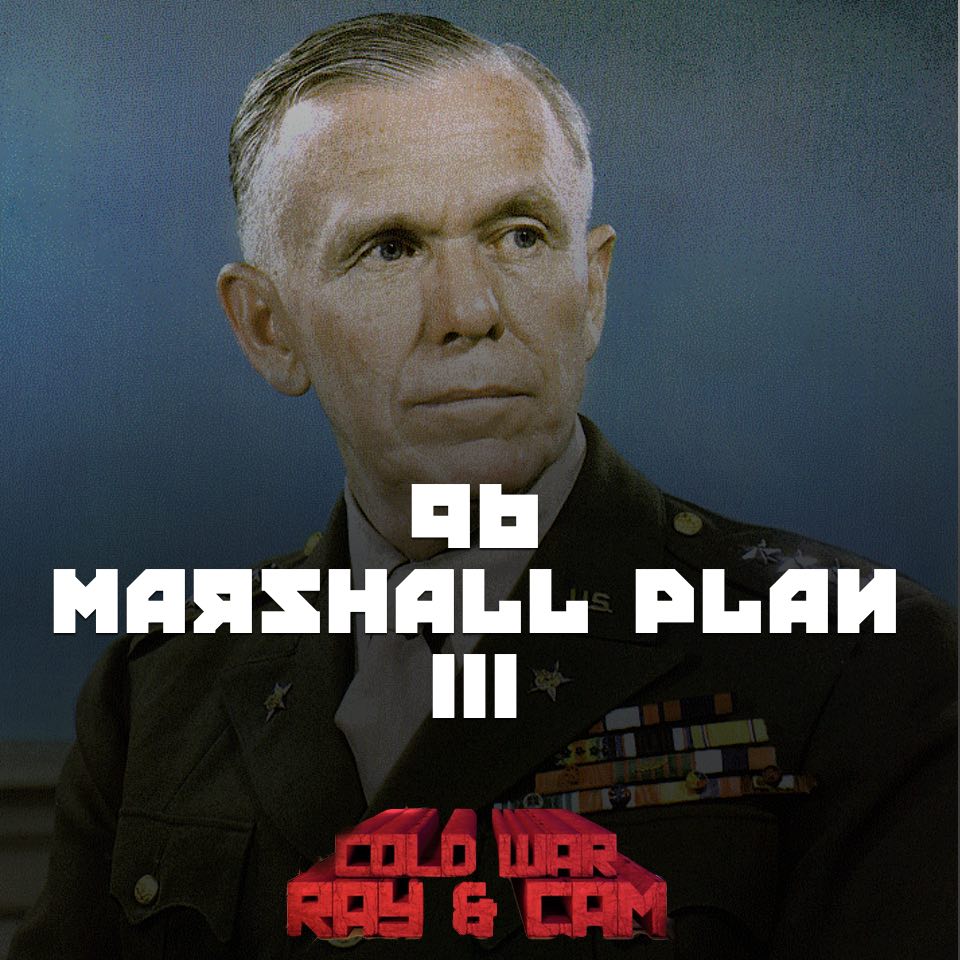
#96 – Marshall Plan III
* America’s approach to providing financial aid wasn’t popular with some of their allies either.* Ernest Bevin, the British Foreign Secretary, resented American dollar diplomacy, in particular the linking of desperately needed financial assistance to London’s...
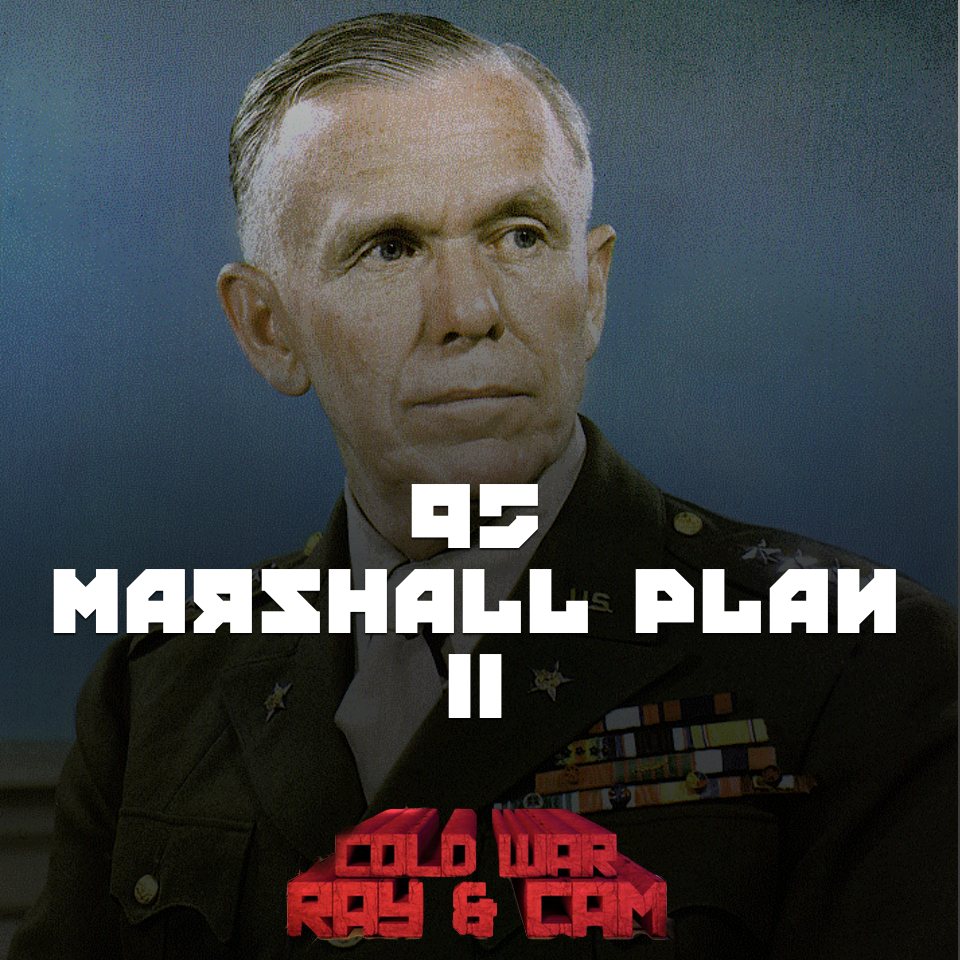
#95 – Marshall Plan II
* Something that Marshall mentions only briefly in his speech is the effect that would have on the US economy. (around the 7’20" mark)* Europe’s economy might have been destroyed after the war, but America’s wasn’t looking too bulletproof, partly BECAUSE the European...
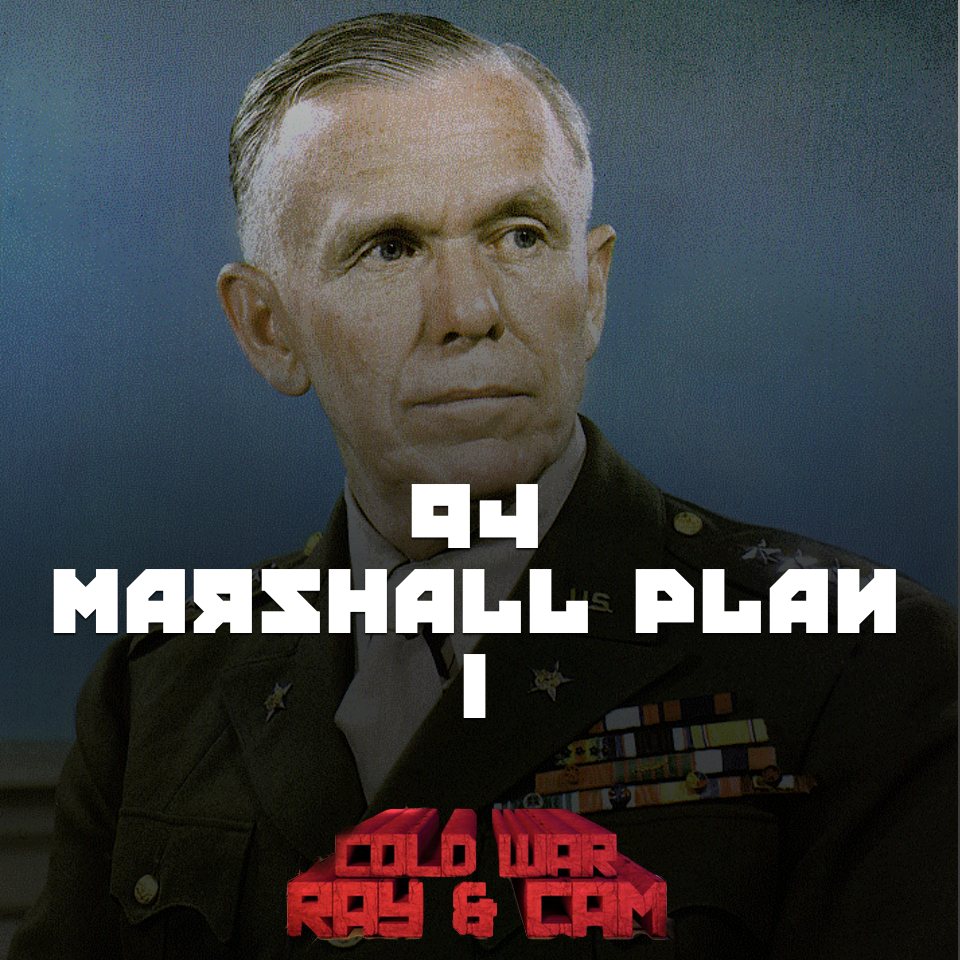
#94 – Marshall Plan I
* One of the greatest pieces of mythology to ever be produced in America is the “Marshall Plan”.* It’s right up there with the idea of glorifying the “Founding Fathers”, who were actually just tax dodgers who orchestrated a bloody coup.* It’s also of course one of...
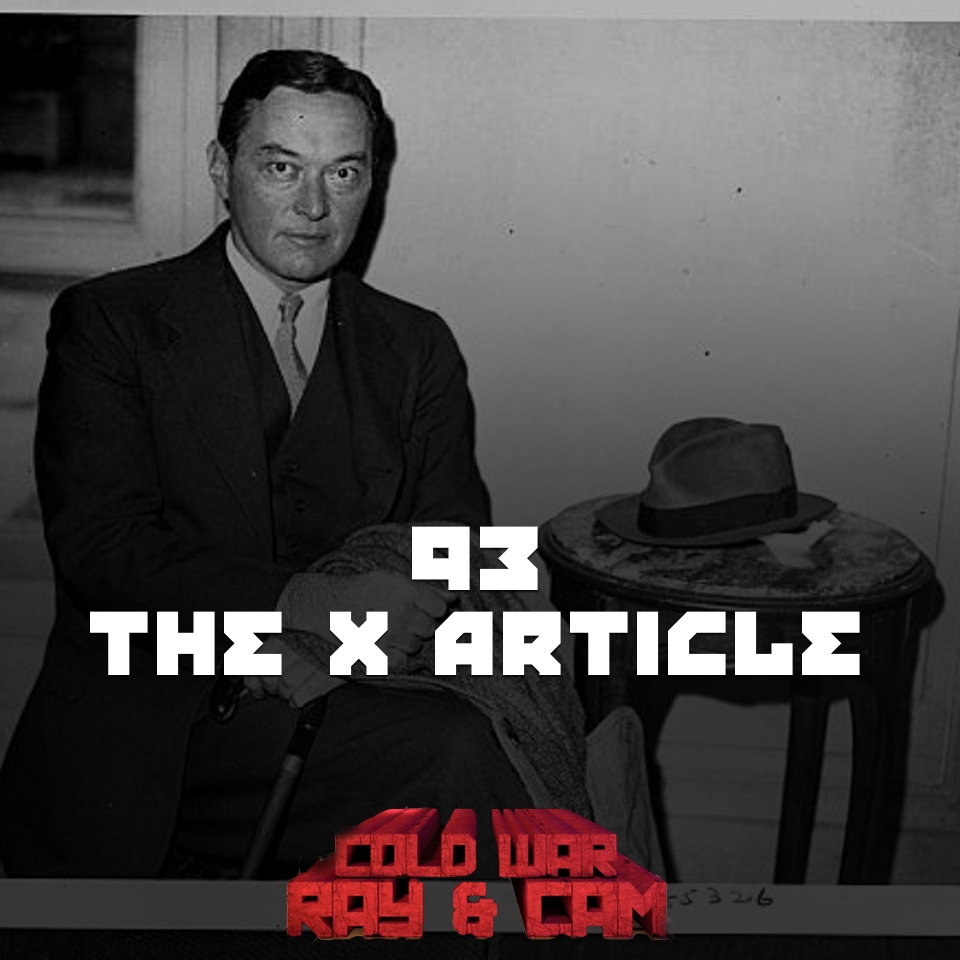
#93 – The X Article
* The X Article.* George Kennan, the Soviet expert who wrote the Long Telegram, wrote another piece, but this time published publicly and anonymously, in July 1947, just after Truman’s “Truman Doctrine” speech.* The actual title of the article was "The Sources of...
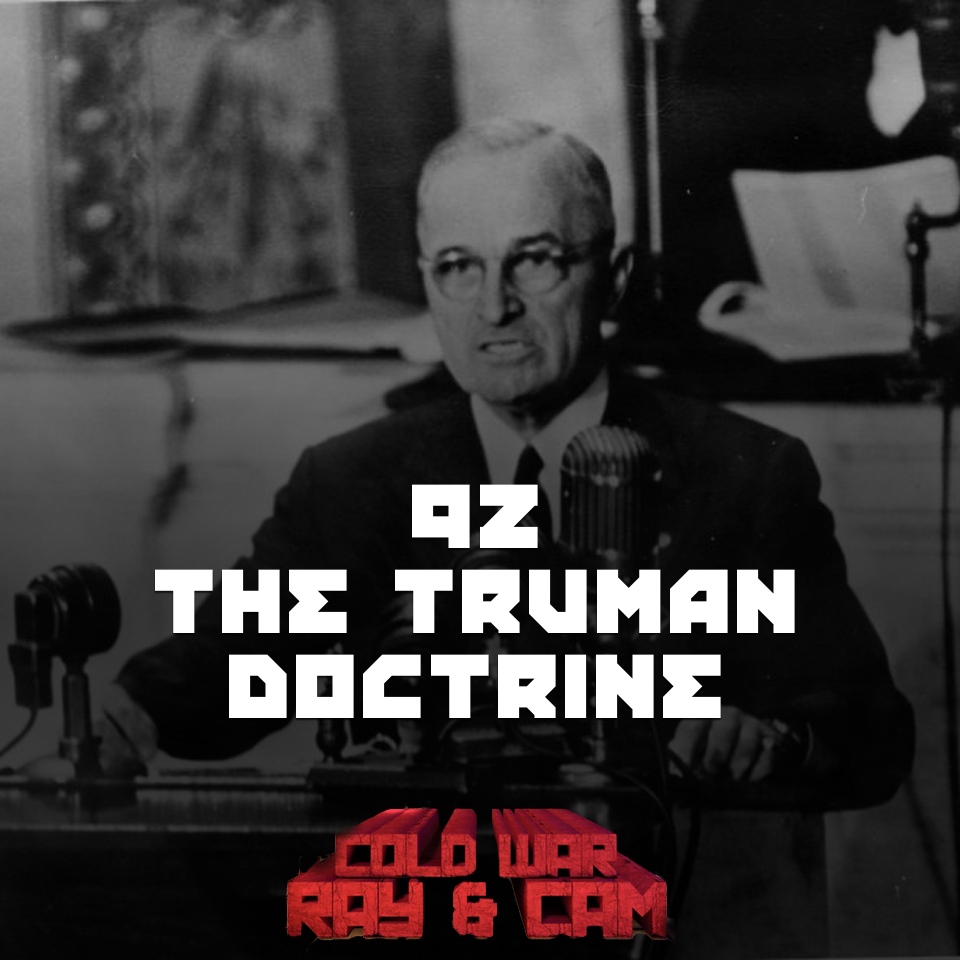
#92 – The Truman Doctrine
* And so on March 12, 1947, before a joint session of Congress, President Truman articulated, for the first time, a comprehensive American foreign policy for the postwar world.* He did not mention the Soviet Union by name, or refer to the need to contain its power in...
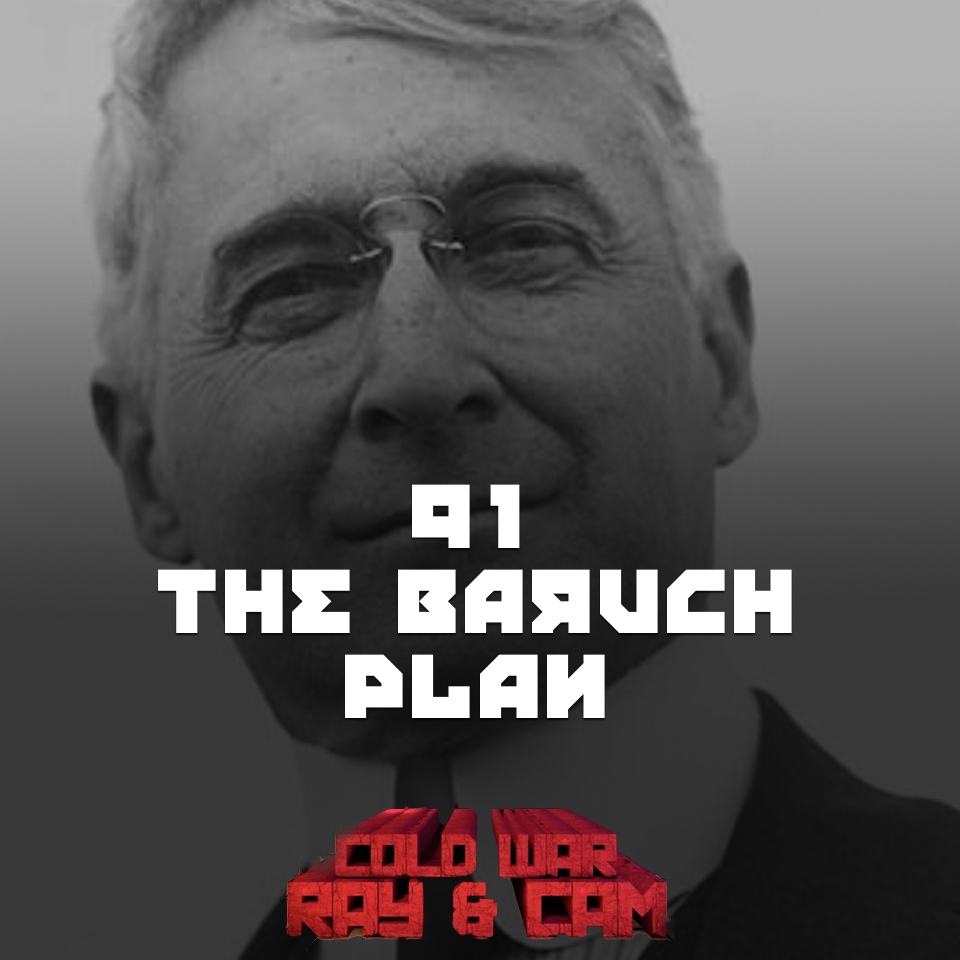
#91 – The Baruch Plan
* So here we are in 1946.* The Truman administration has decided on a “containment” policy.* But who is going to contain the containers?* According to the Novikov telegram, the Soviets felt like they had to contain the US.* And the U.S. felt like they had to contain...
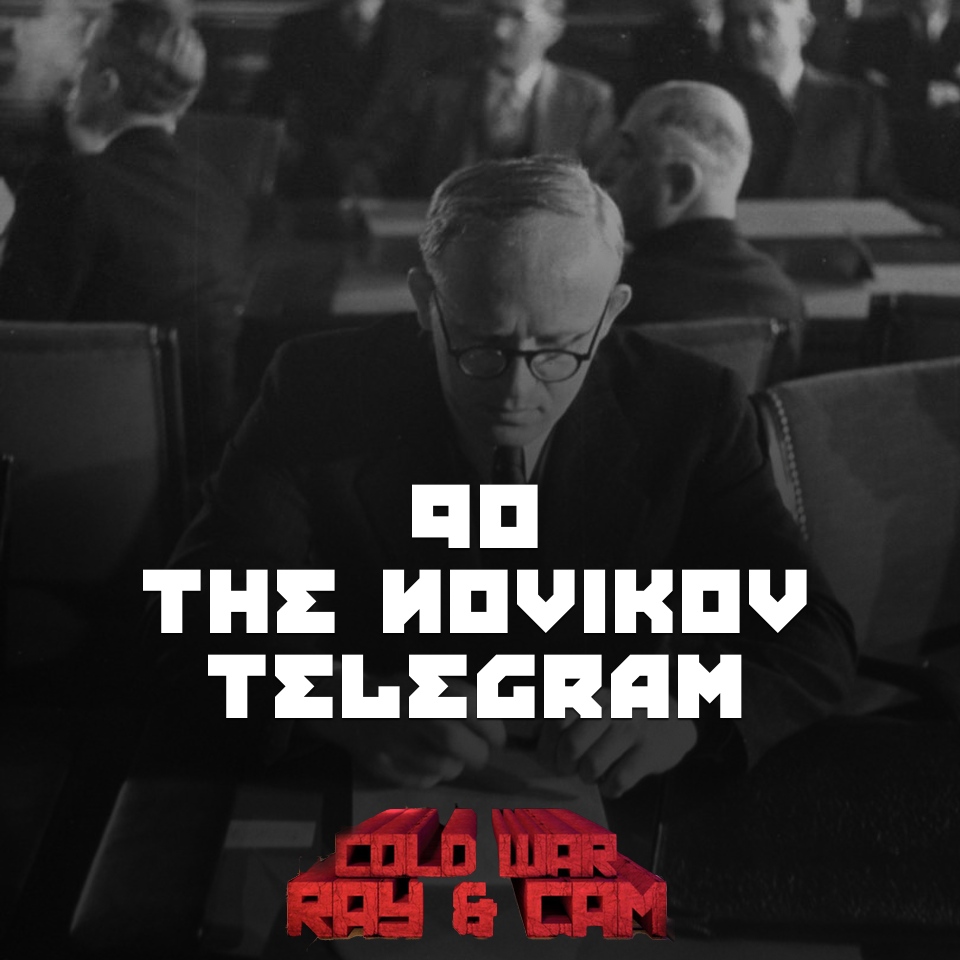
#90 – The Novikov Telegram.
* The last, and certainly most conspicuous, of the four events that transformed the political culture of Washington in 1946 was a speech given in early March by Winston Churchill at Westminster College in Truman's home state of Missouri.* Like Stalin's speech of four...

#89 – The “Long Telegram”
* Stalin’s speech in February 1946 wasn’t a declaration of war.* It wasn’t anything that couldn’t have been said in the past.* He issued no direct threats toward the United States, and emphasized above all else the security of the Soviet state and the communist...
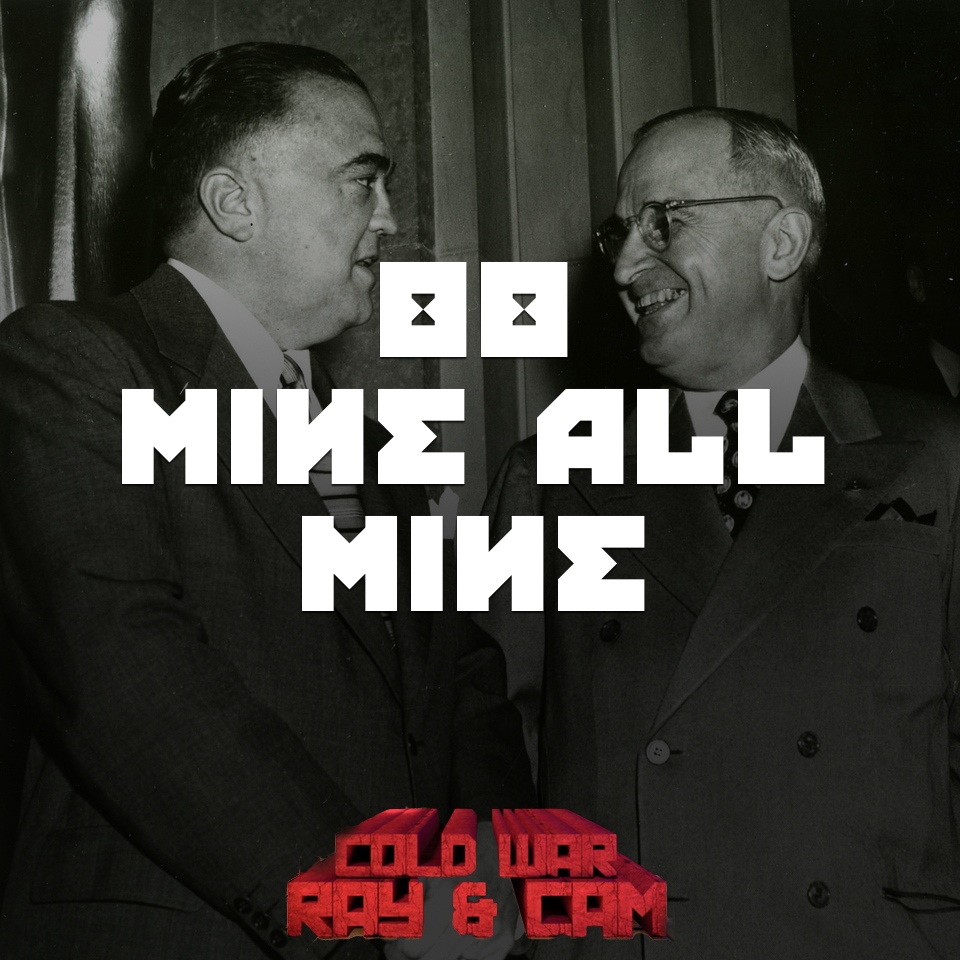
#88 – Mine All Mine
* In October 1945, Navy Day 1945 in New York City, at the Commissioning of the aircraft carrier USS Franklin D. Roosevelt, Harry Truman gave a speech.* Here’s a clip.* https://youtu.be/BjUz4BPWwbc?t=2m21s* FAKE TRUMAN ACCENT: “We don’t seek any more land - because we...
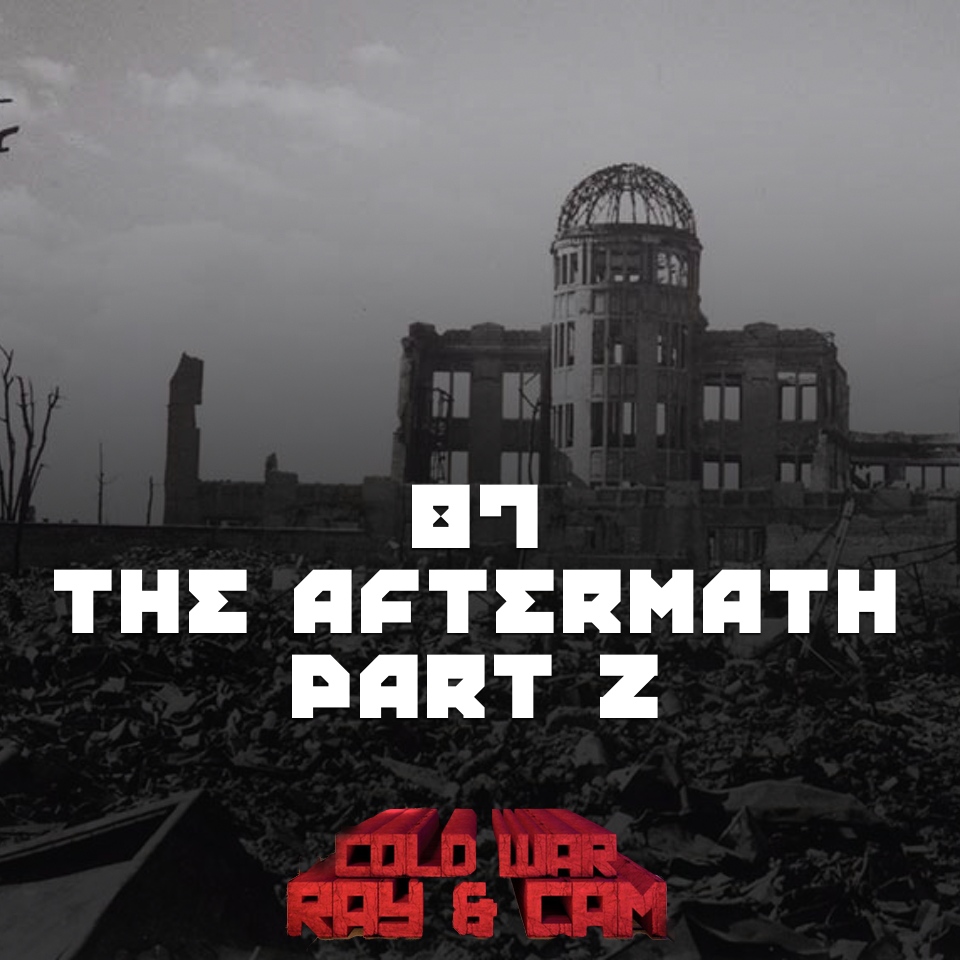
#87 – The Aftermath Part 2
* The military had long declared that radiation dissipated quickly in the atomic cities and posed little threat to the soldiers.* A 1980 Defense Nuclear Agency report concluded, “Medical science believes multiple myeloma has a borderline relationship with exposure to...
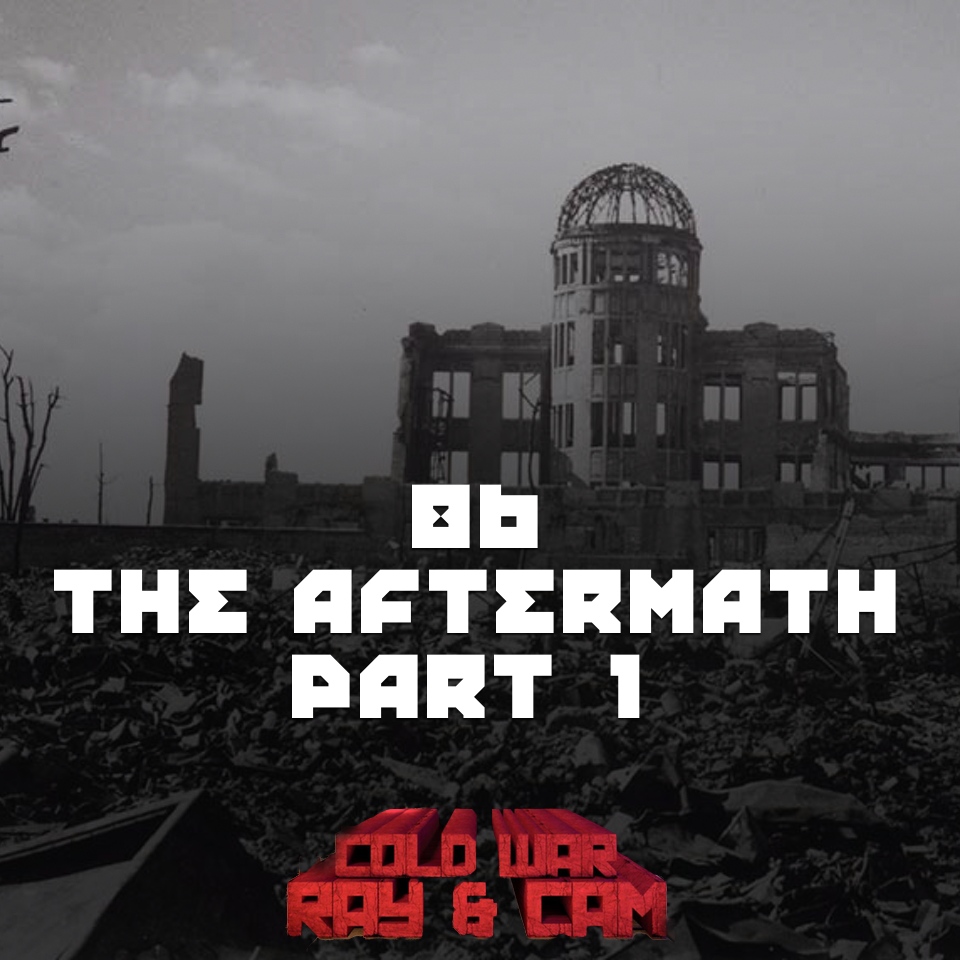
#86 – The Aftermath Part 1
* TRUMAN ANNOUNCES THE BOMB https://www.youtube.com/watch?v=FN_UJJ9ObDs* On August 6, 1945, the United States dropped an atomic bomb over the center of Hiroshima, killing at least 70,000 civilians instantly and perhaps 50,000 more in the days and months to follow.*...
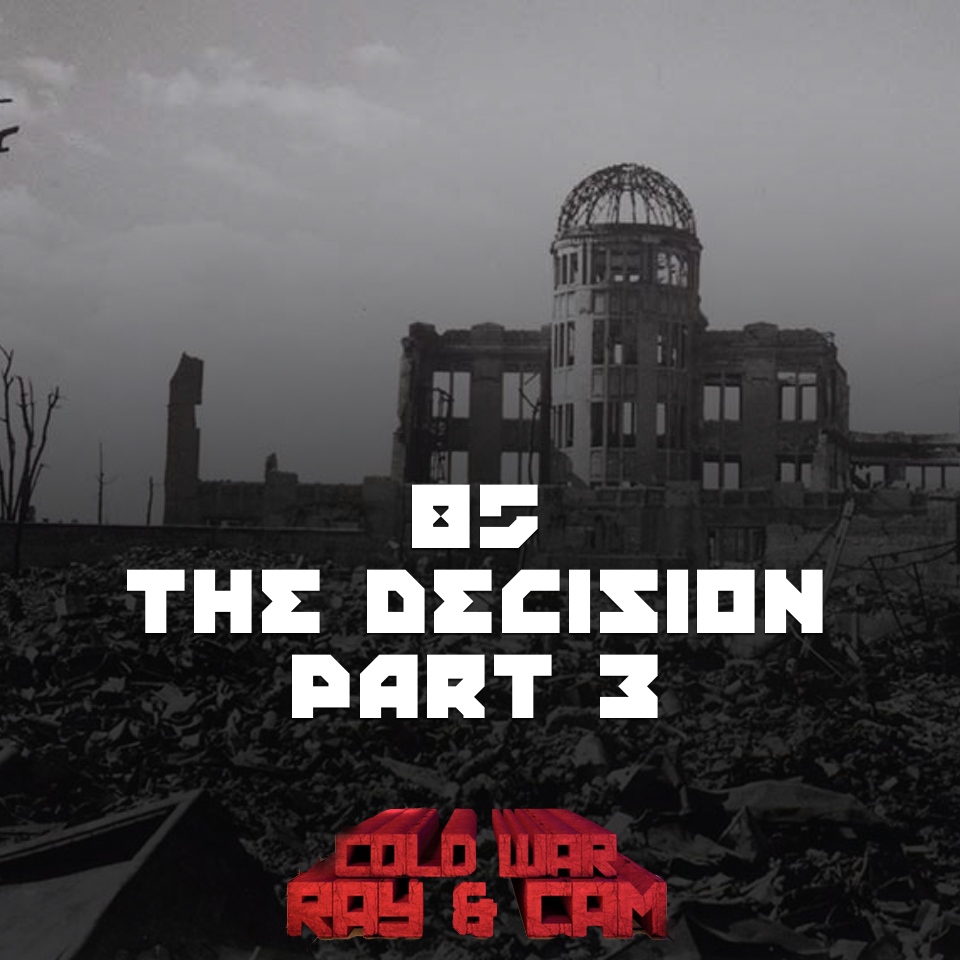
#85 – The Decision Part 3
* Truman met often with Byrnes in the first few months of his Presidency.* But there are almost no records or notes of what they discussed.* And that was apparently Byrnes’ preference.* He was known as being paranoid about leaks.* a very devious politician* Truman...
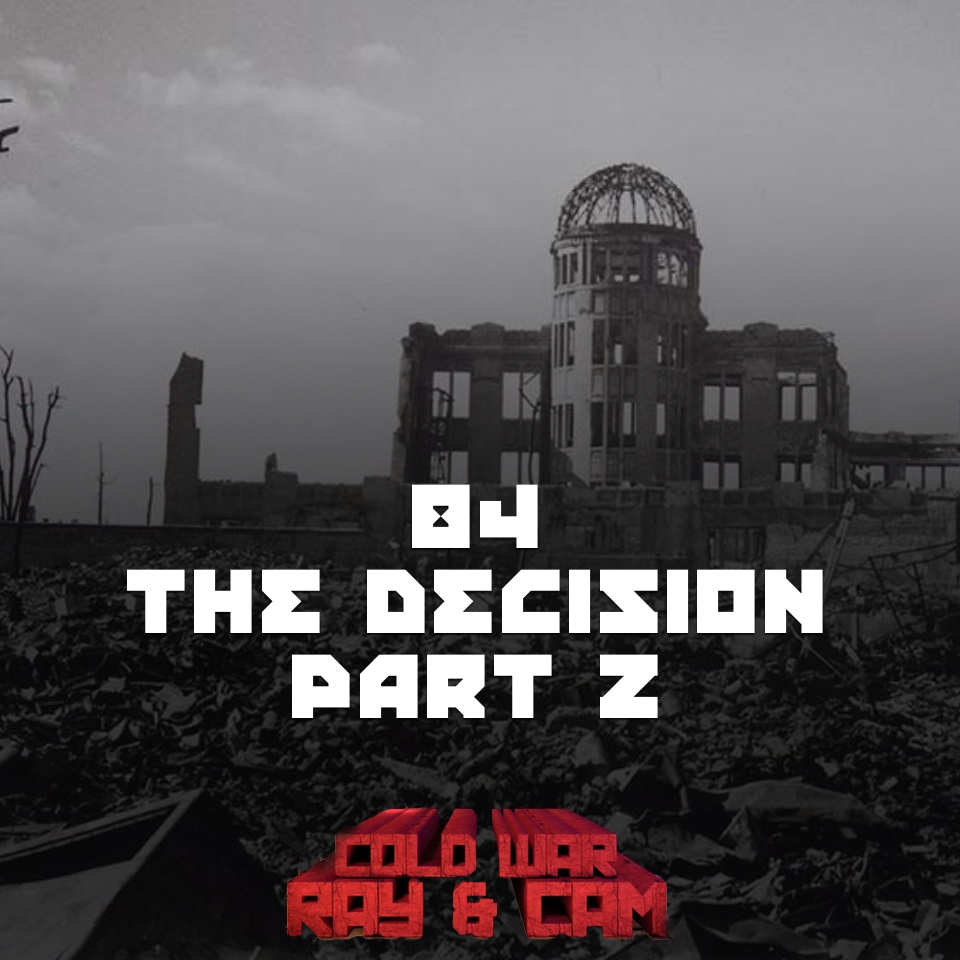
#84 – The Decision Part 2
* By June 18 events had progressed to the point where Admiral Leahy was able to note privately in his personal diary:* It is my opinion that at the present time a surrender of Japan can be arranged with terms that can be accepted by Japan and that will make fully...
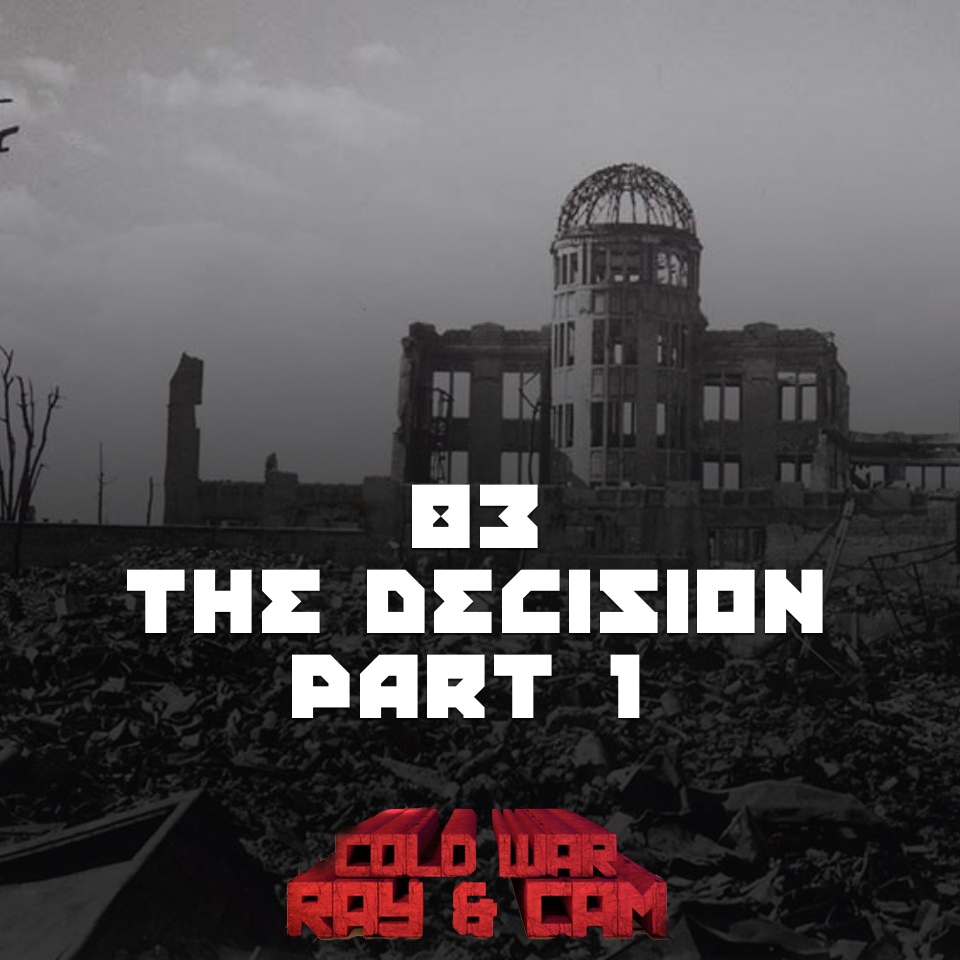
#83 – The Decision Part 1
* On 15 August 1945, about a week after the bombing of Nagasaki, Truman tasked the U.S. Strategic Bombing Survey to conduct a study on the effectiveness of the aerial attacks on Japan, both conventional and atomic.* Did they have an effect on the Japanese surrender?*...
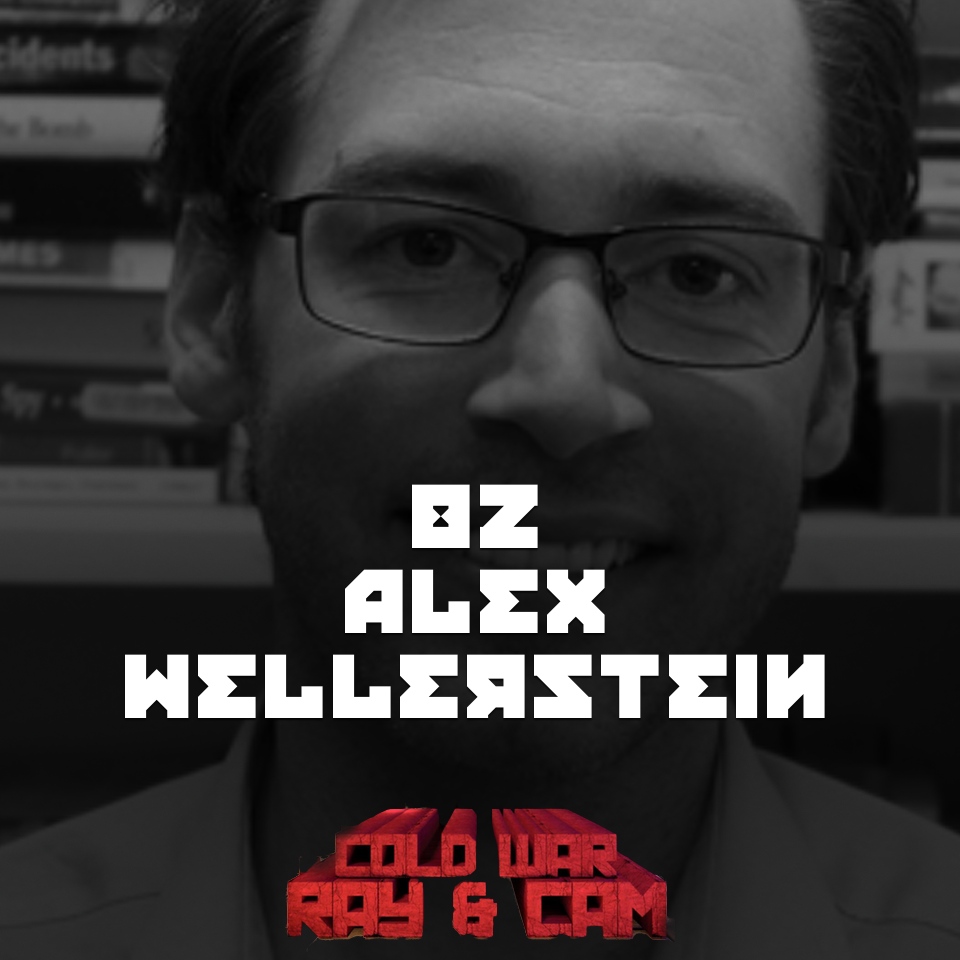
#82 – Alex Wellerstein
Our guest today is Alex Wellerstein, a self-described "historian of science, secrecy, and nuclear weapons". He's a Professor of Science and Technology Studies at the Stevens Institute of Technology. He blogs here and is on Twitter here. He is also the creator of the...

#81 – GROUND ZERO
Kistiakowsky and his team armed the device shortly after 5am and retreated to the control bunker. Their final task was to switch on a string of lights on the ground that would serve as an ‘aiming point’. The air force wanted to know what the effect of the blast would...
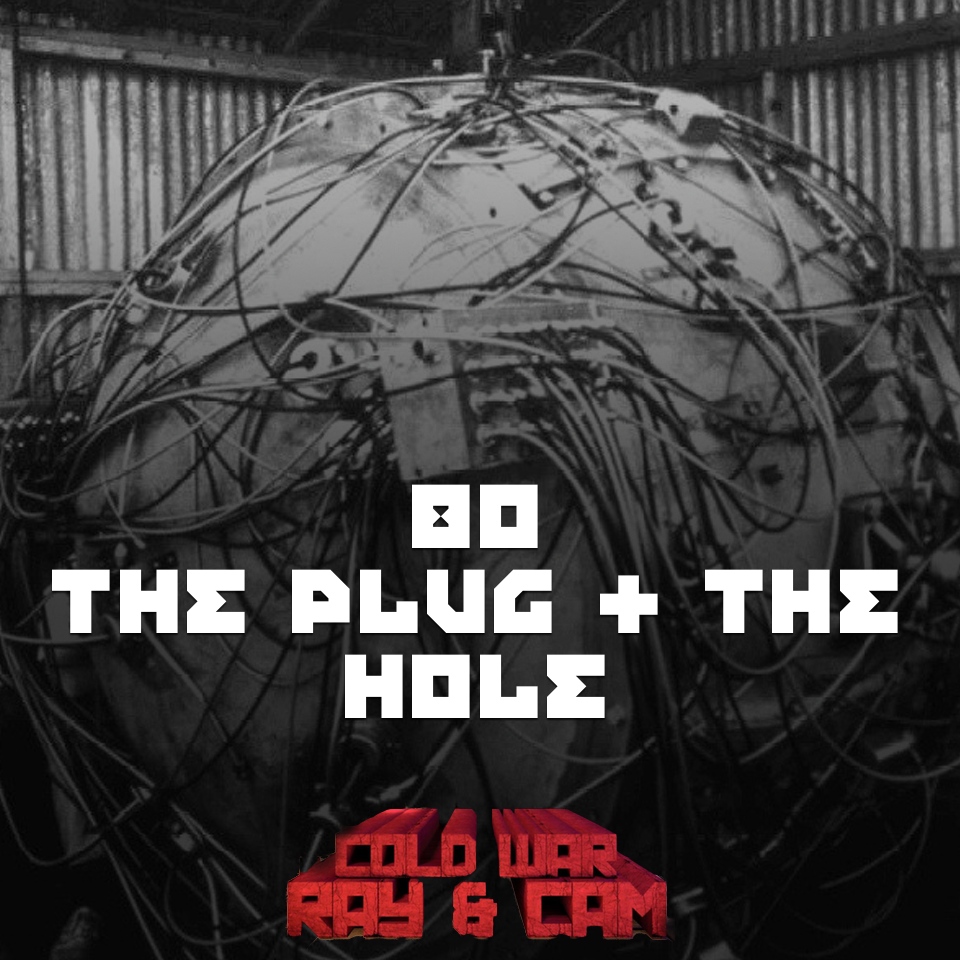
#80 – The Plug & The Hole
Back to Alamogordo. The army leased a ranch in the middle of the Jornada del Muerto site and converted it into a military police station and field laboratory. They thoroughly vacuumed it to make a makeshift clean room and sealed its windows with black electrical tape....
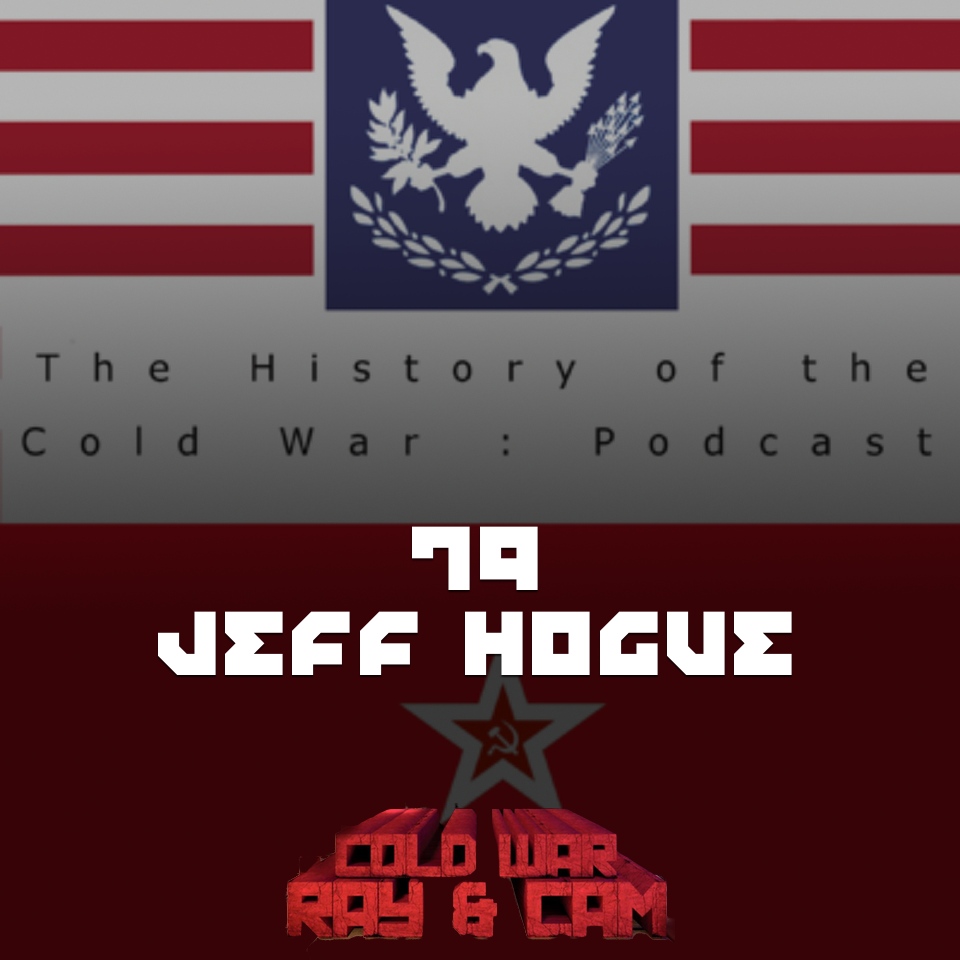
#79 – Jeffrey Hogue
Today we have a special guest - Jeff Hogue from the "History of the Cold War" podcast. We invited Jeff on to chat about his thoughts on the bombing of Japan.

#78 – Alamogordo
On 6 June, Stimson again briefed Truman on S-1. * The briefing summarized the consensus of the Interim Committee, set up as an advisory group on atomic research.* It’s job was the advise on the proper use of atomic weapons in wartime and to develop a position for the...

#77 – Bombing Japan
* Which brings us to April 1945.* Only weeks before Germany surrendered on May 7, FDR dies.* And Truman takes over as POTUS.* He knew nothing of the Manhattan Project or the atomic bomb.* He was briefed on it immediately by Sec of War Stimson.* By the time Truman took...
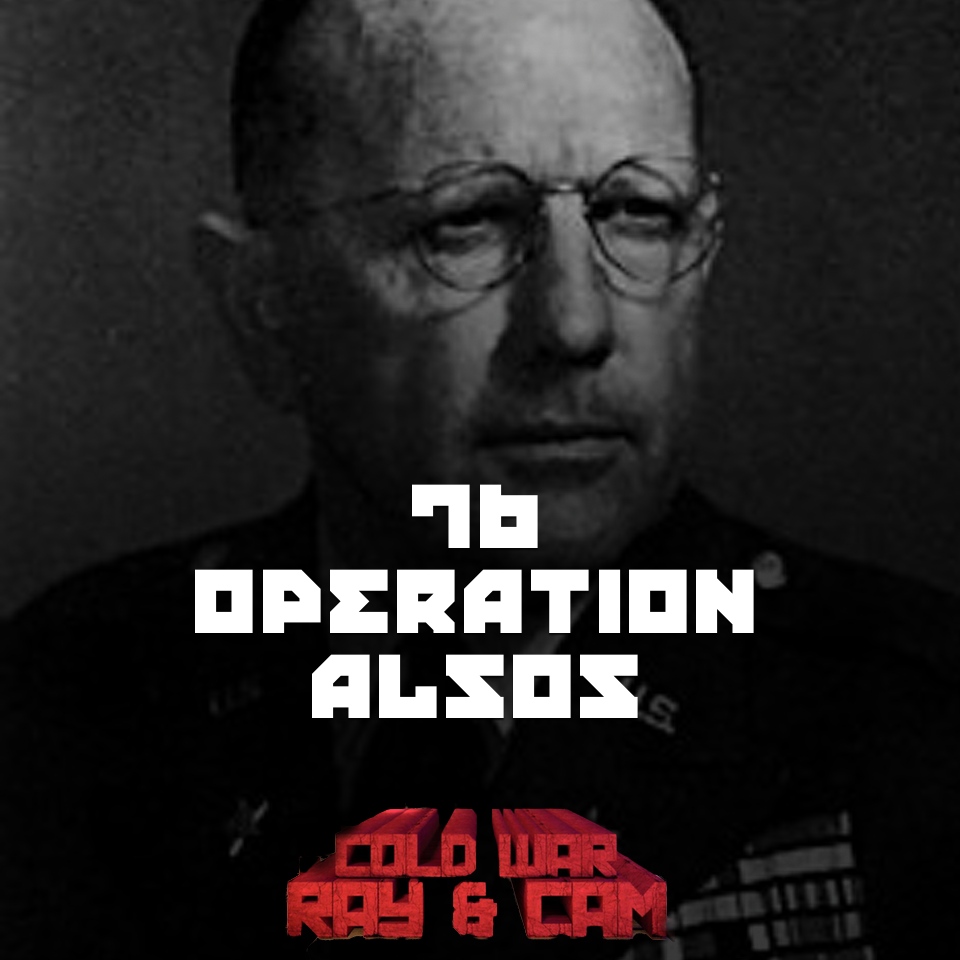
#76 – Operation Alsos
Of course, while the bomb was being designed, they had to figure out how they were going to deliver it. And WHO was going to deliver it. Way back in March 1944, the US Army Air Force, with William Sterling "Deak” Parsons and his team at Los Alamos, developed two bomb...

#75 – The Beer Can Experiment
* President Roosevelt authorized the Manhattan Project to go full steam 26 days after Fermi’s success, on 28 December 1942* The U.S. would end up spending $2 billion on it. (about $22 billion in 2018 dollars)* Do you know why it cost so much?* 130,000 people* When I...

#74 – Benn Steil & The Marshall Plan
Benn Steil is an American economist, author of a great new book on "The Marshall Plan", and senior fellow and director of international economics at the Council on Foreign Relations.

#73 – k
* Fission involved breaking apart the nuclei of heavy elements like uranium or plutonium.* Fusion involves forcing the nuclei of lighter elements, like hydrogen or deuterium, together.* And deuterium, which is basically heavy hydrogen, is far easier to get your hands...

#72 – The Manhattan Project
* President Roosevelt responded to Einstein’s letter by setting up the Advisory Committee on Uranium under Lyman J. Briggs, director of the National Bureau of Standards.* Side note: his daughter Isabel would eventually marry Clarence Myers and go on to generate the...

#71 – The World Set Free
* In 1913, H. G. Wells wrote a book called The World Set Free* The novel begins: "The history of mankind is the history of the attainment of external power. Man is the tool-using, fire-making animal. . . . Always down a lengthening record, save for a set-back ever and...
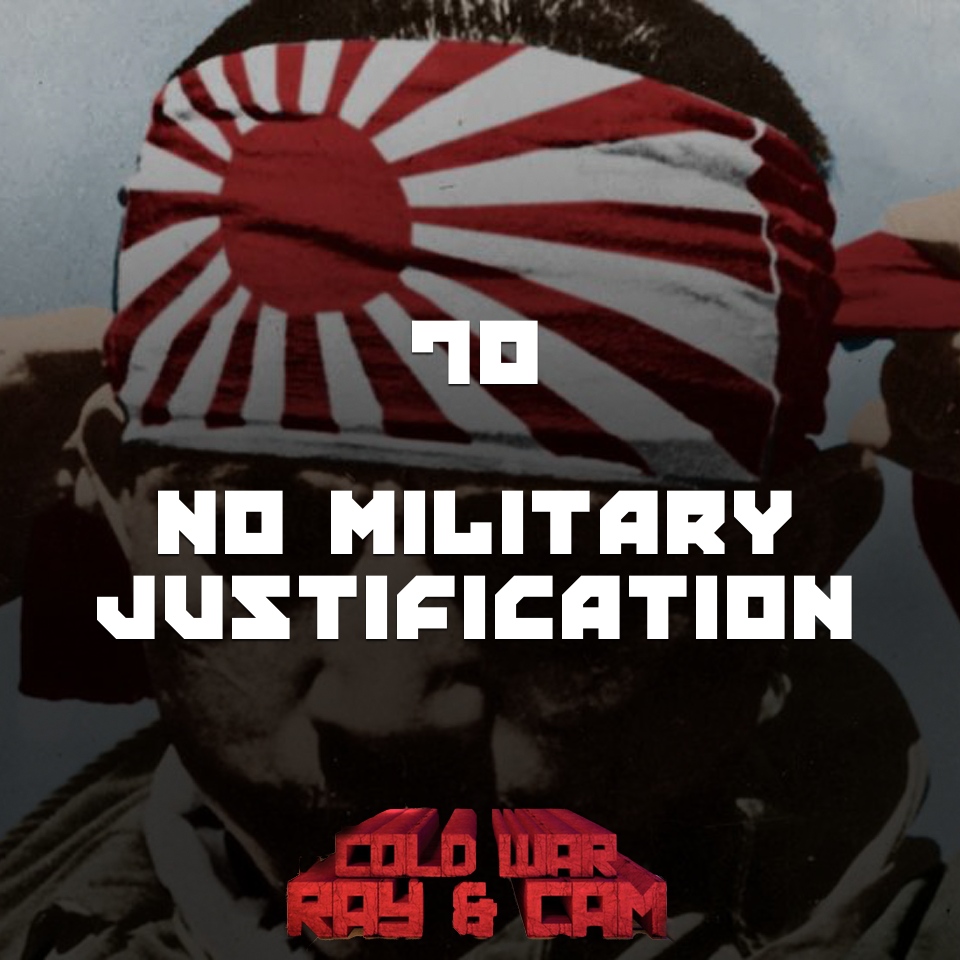
#70 – No Military Justification
* The Potsdam declaration on Japan was tricky.* It was drafted while Churchill was still PM.* In fact it was probably one of the last things he did as PM.* But it was signed by Attlee.* Stalin had to be involved, but he couldn’t sign it because the U.S.S.R. was still...
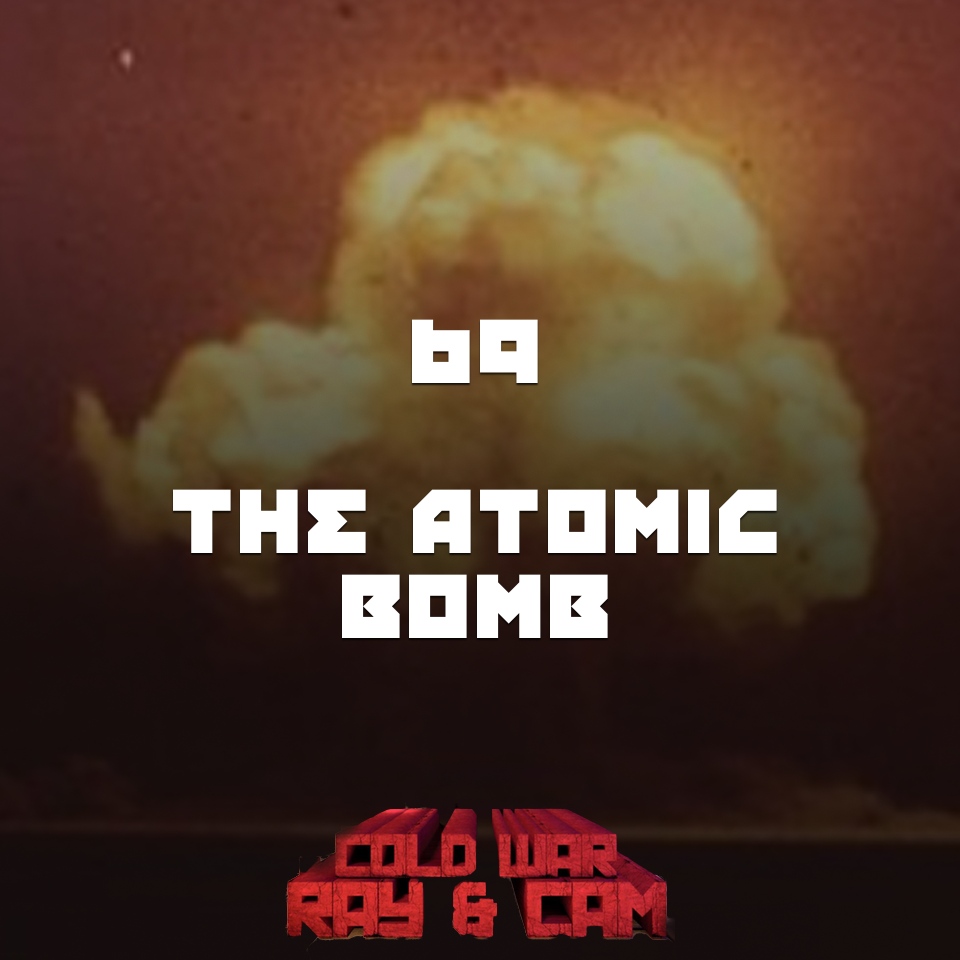
#69 – The Atomic Bomb
* Episode 69.* Ray’s favourite number.* Have you actually had one yet, Ray?* Sister in law?* Truman had given his final approval to the plan to invade Kyushu, the southern most island of Japan, just two weeks before leaving for Potsdam.* A Russian invasion of...
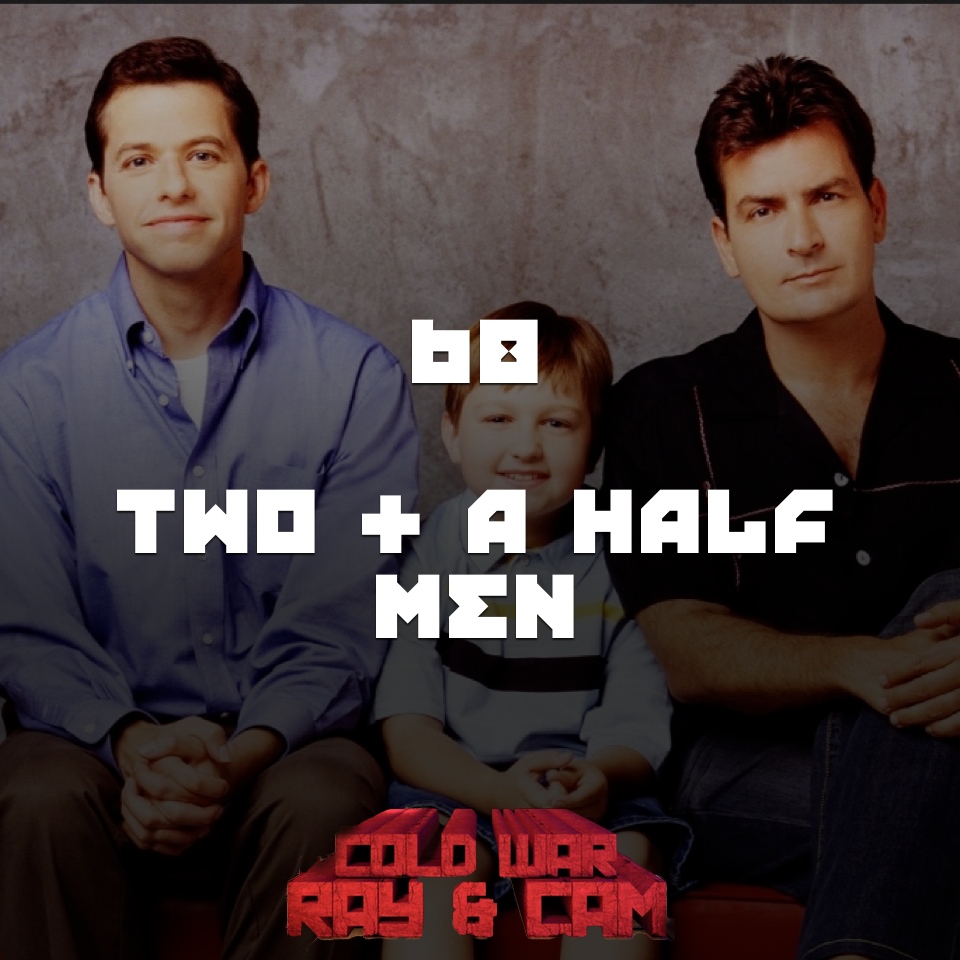
#68 – Two And A Half Men
Well the election result shocked everyone. And the rest of the contingent at Potsdam weren’t very happy about it either. We might think that the Soviets would be please to be dealing with a British government made up of socialists. But that wasn’t the case. Stalin...
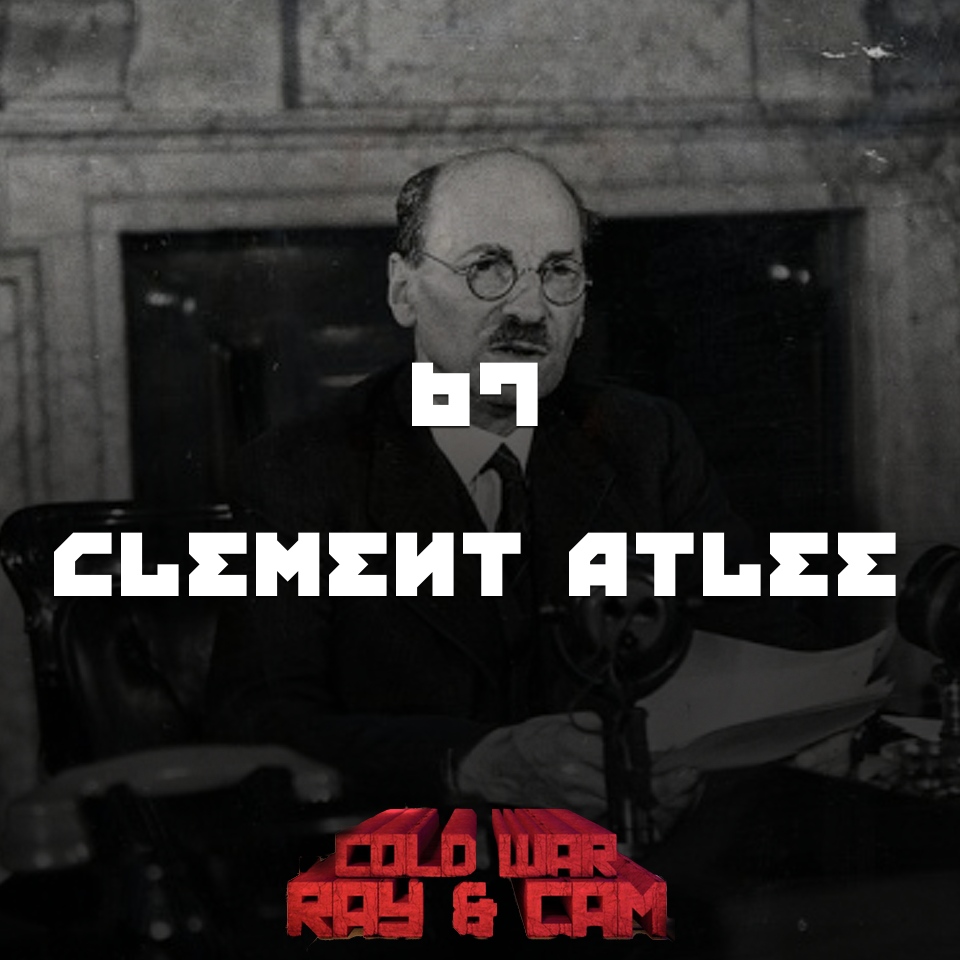
#67 Clement Atlee
Attlee was Churchill’s lame duck deputy PM. In fact he was the first Deputy PM the UK ever had. I didn’t realise this, but in the UK the role of the Deputy PM isn’t like you’d expect, like it is in Australia or like the Vice-President in the USA. The Deputy PM...
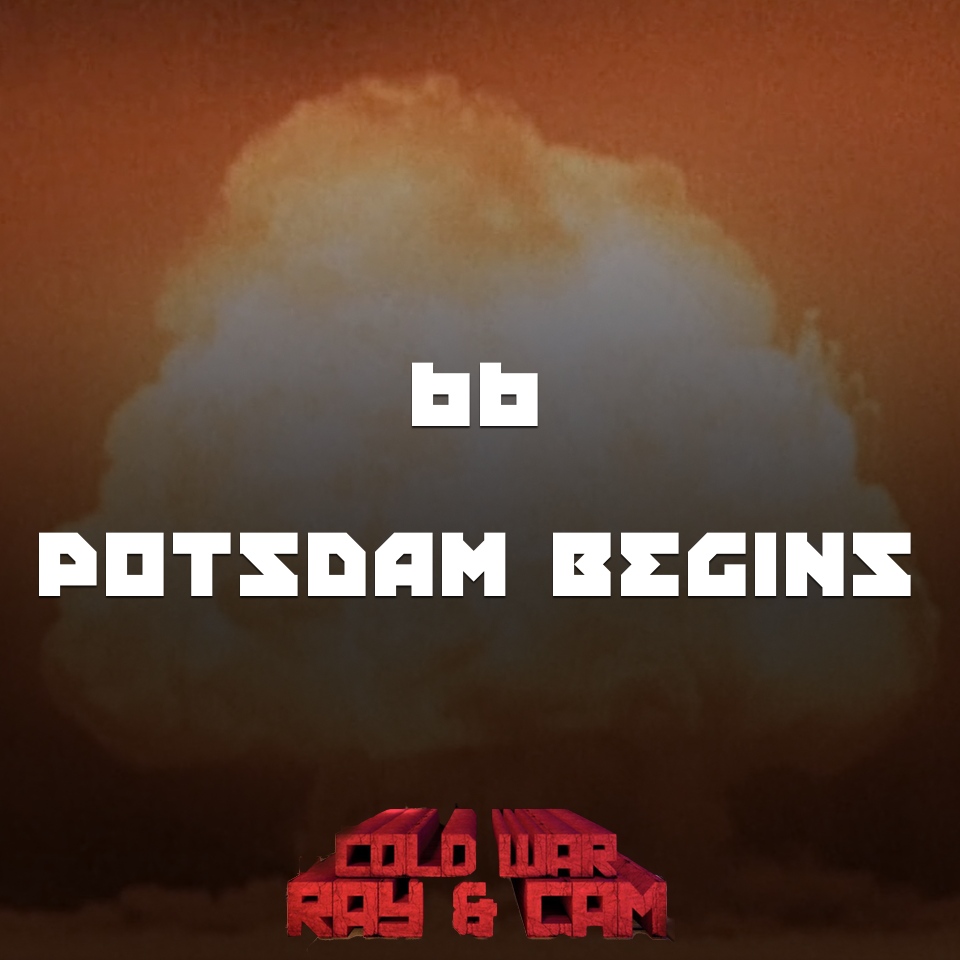
#66 – Potsdam Begins
Stalin arrived in Potsdam a day late. Claimed he had a small heart attack. Might have been a ruse. It gave the others a day to take a tour of Berlin on July 16 and see the destruction first hand. During the first week of the conference, everyone was jubilant, having...
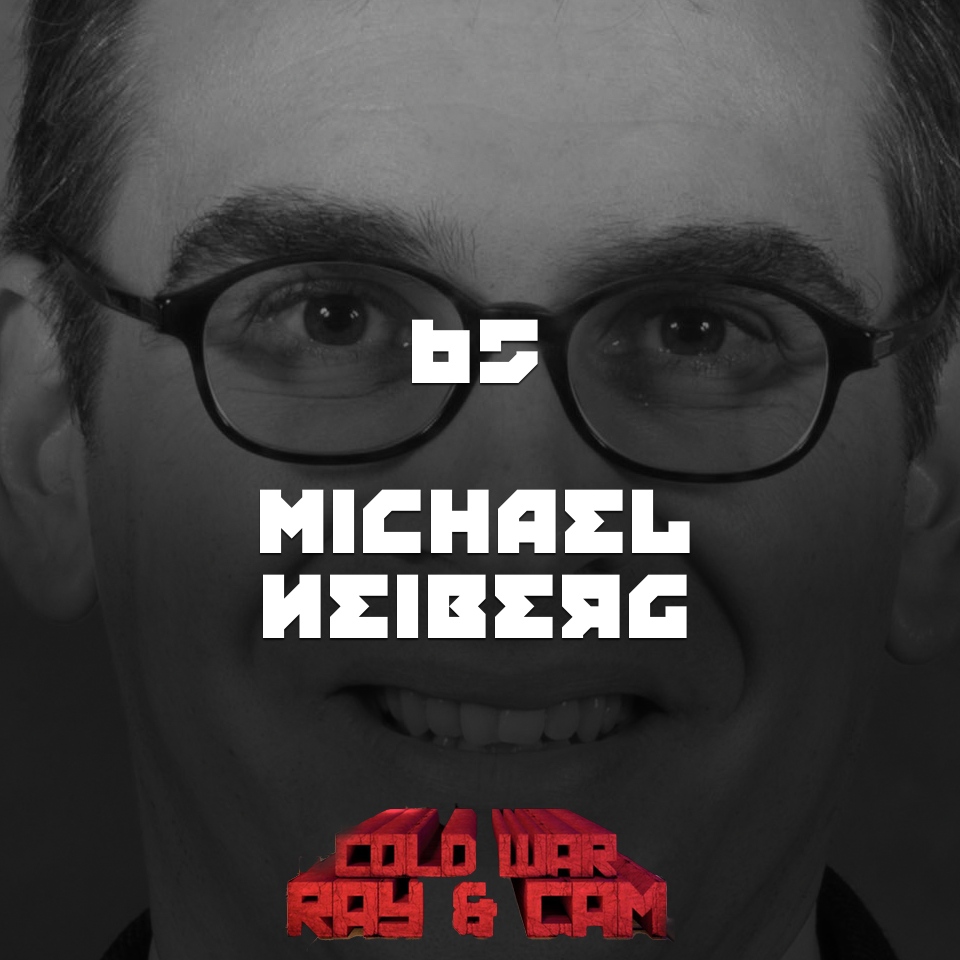
#65 – Michael Neiberg
Prof Michael Neiberg is Chair of War Studies and Professor of History, Department of National Security and Strategy, US Army War College. He has also written a number of excellent books on the First World War - as well as the book we are talking about today -...
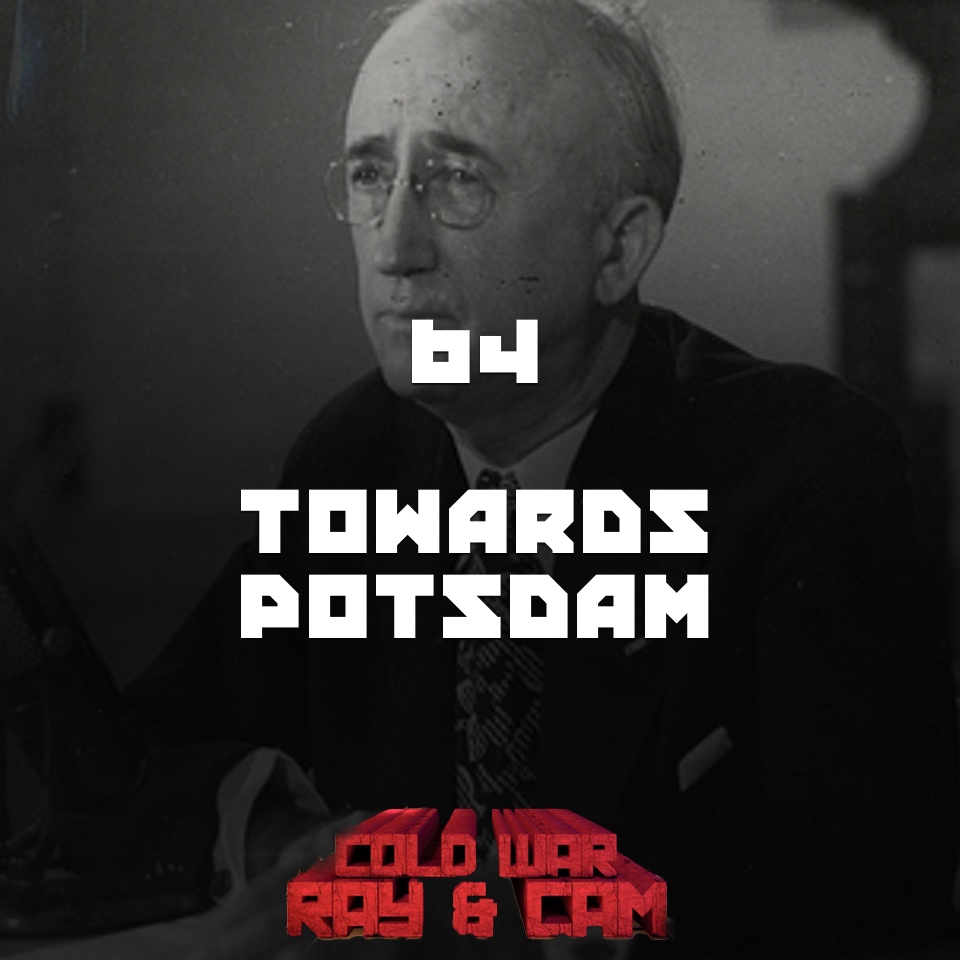
#64 – Towards Potsdam
After a string of fuckups, Truman starts listening to other people, like Joseph Davies, the US Ambassador to the Soviet Union in 1937-38, one of the guys he had ignored before his first meeting with Molotov. They decide a new meeting of the Big Three is needed - and...
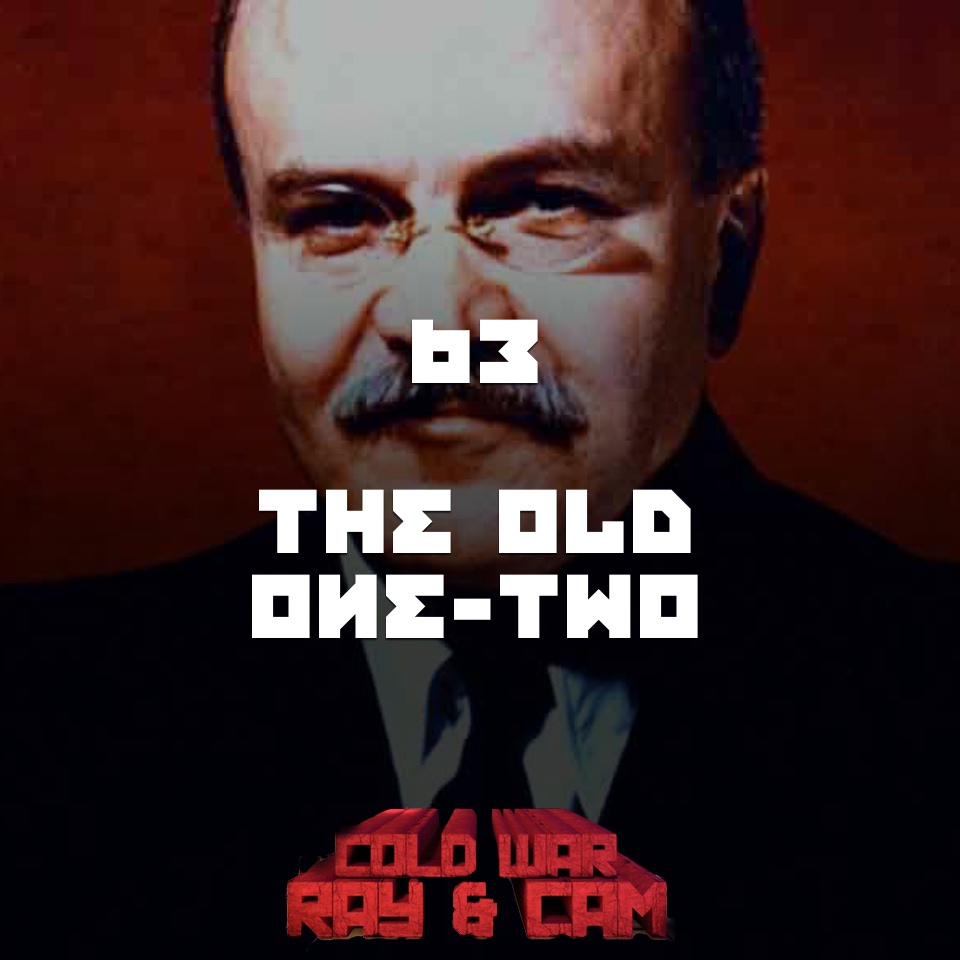
#63 – The Old One-Two
Truman listens to certain people who tell him he should get tough with the Russians. At his first meeting with Molotov, the Soviet Foreign Minister said “I have never been talked to like that in my life."“Carry out your agreements and you won’t get talked to like...
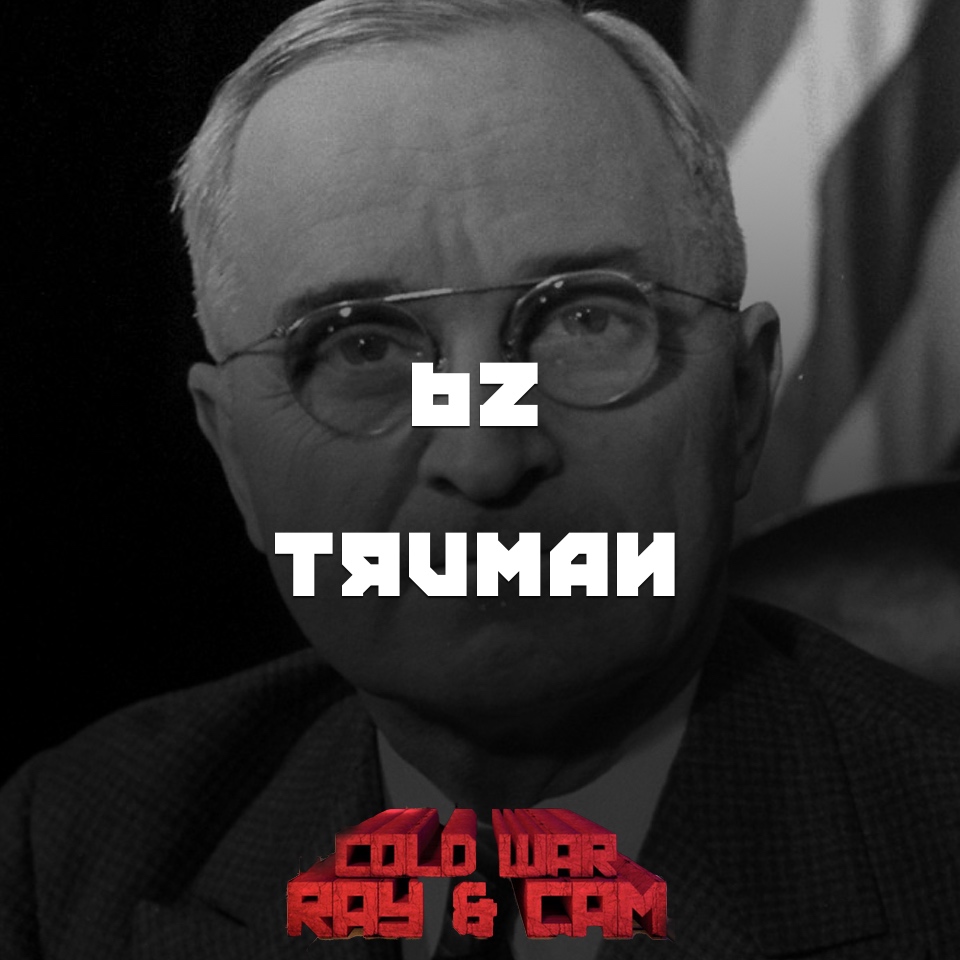
#62 – Truman
Harry S. Truman. Farmer. Soldier. Failed businessman. Given his political career by a mobbed-up bootlegger. Became President through fate. Adopted John Wayne persona to try to look tough.
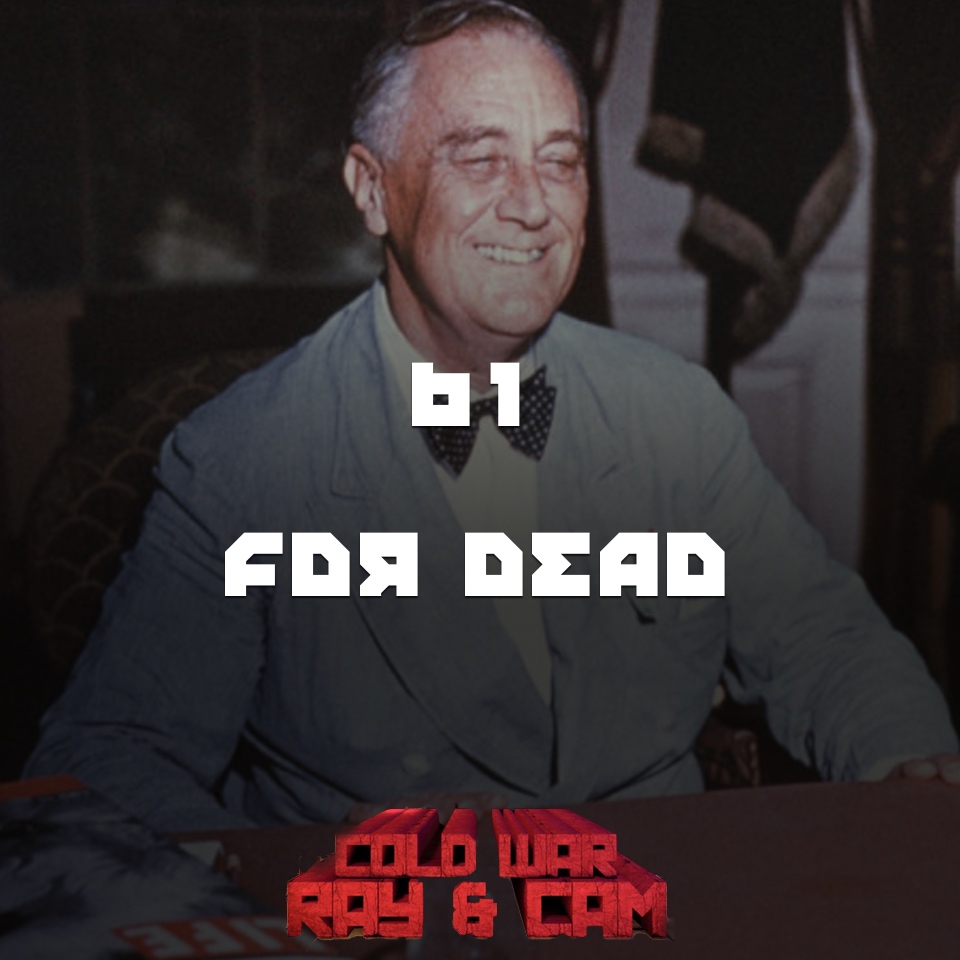
#61 – FDR Dead
Then, on April 12, 1945, FDR died, aged only 63. https://traffic.megaphone.fm/WCATR4967146762.mp3?updated=1660203086
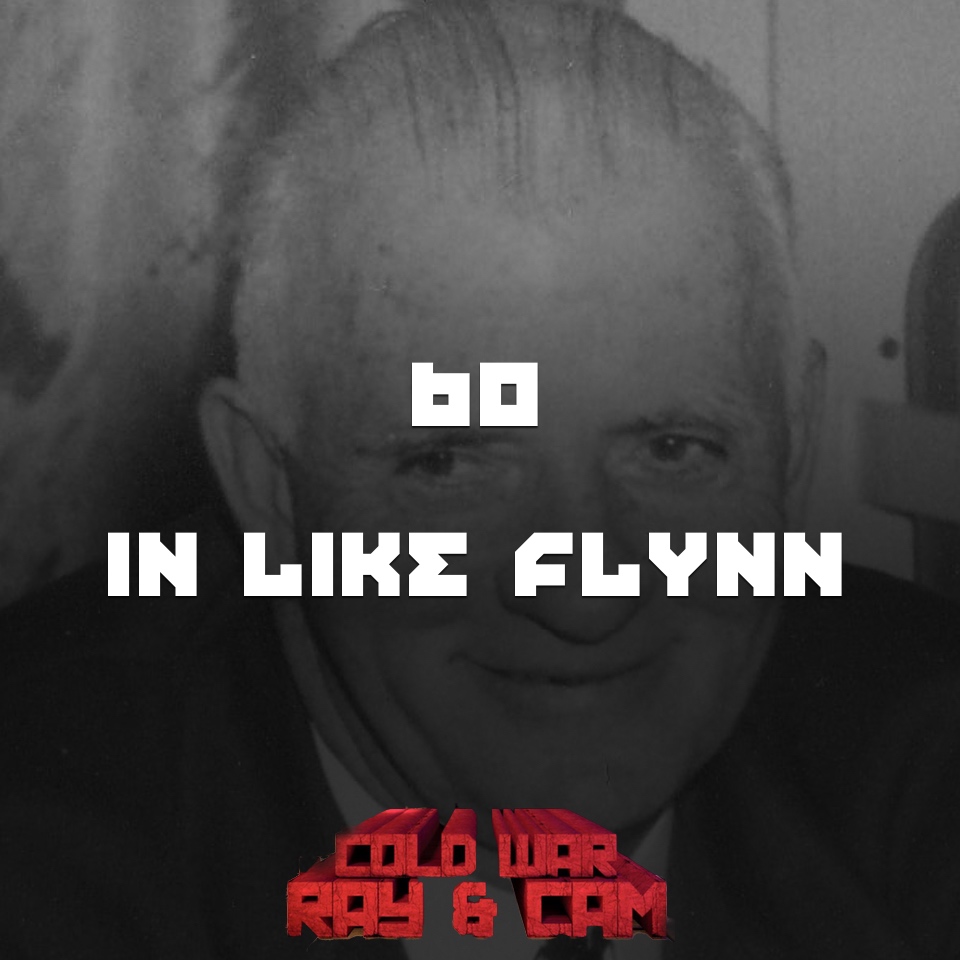
#60 – In Like Flynn
FDR sends one of his inner circle, Edward Flynn, a staunch Catholic, to meet the Pope to try to keep the peace between him and Stalin. Stalin meanwhile revived caesaropapism, the old tradition dating back to Constantine, making himself head of the Russian Orthodox...
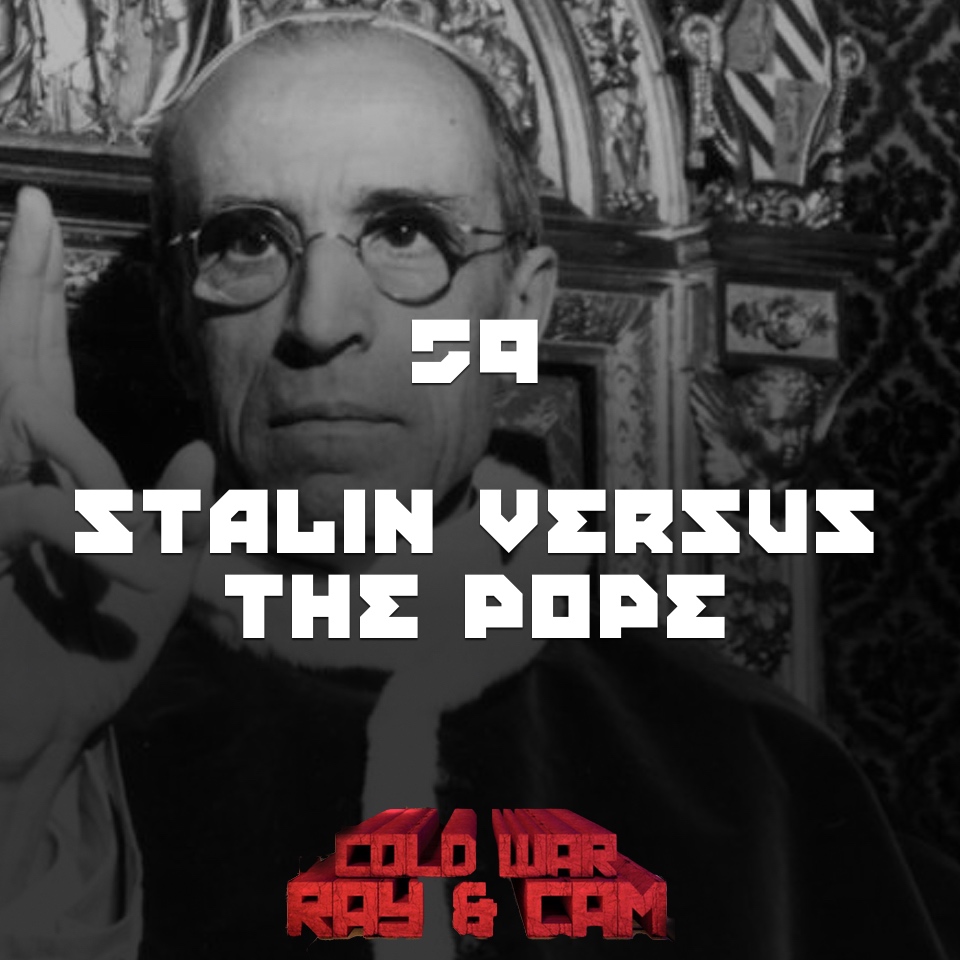
#59 – Stalin Versus The Pope
Stalin crushes the Ukrainian Catholic Church, partly because socialists believe religion is the opium of the masses, and partly because the Pope, Pius XII, had done a deal with Hitler and was a virulent anti-Communist.
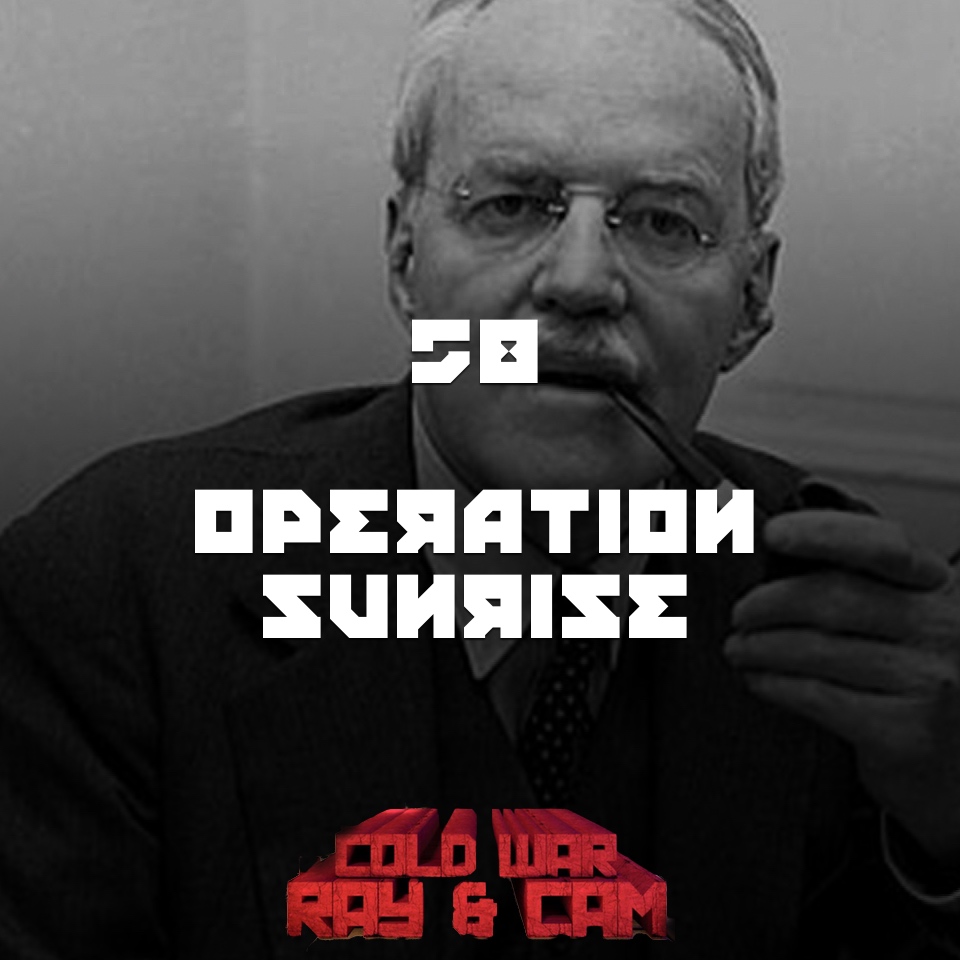
#58 – Operation Sunrise
March 8, 1945. Allen Dulles, the Bern station chief of the U.S. Office of Strategic Services (a forerunner of the CIA), met in secret with Obergruppenführer Karl Wolff, the former head of Heinrich Himmler’s secretariat, who in the last years of the war became the...
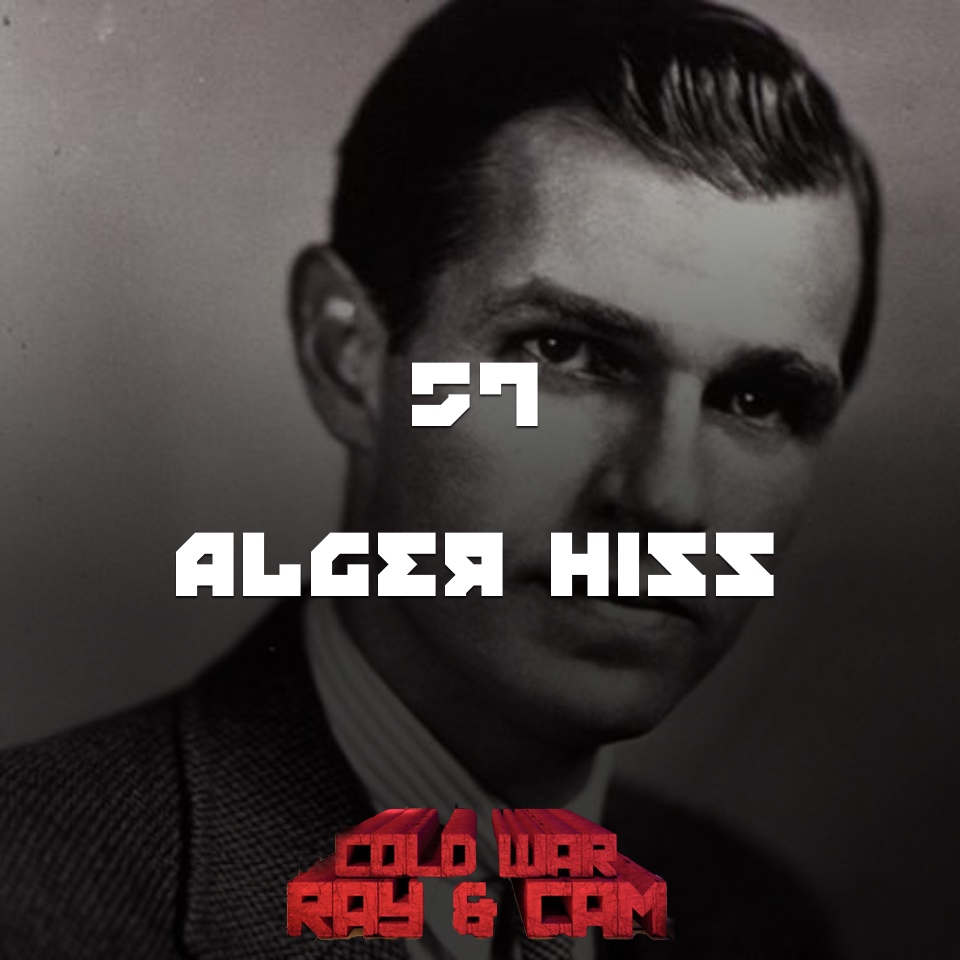
#57 – Alger Hiss
On February 13, 1945, U.S. Secretary of State Stettinius and his staff were invited to a reception hosted by Vyshinsky in the commissariat’s guesthouse in Moscow. Little did the Americans know that one member of their staff was a Soviet spy.
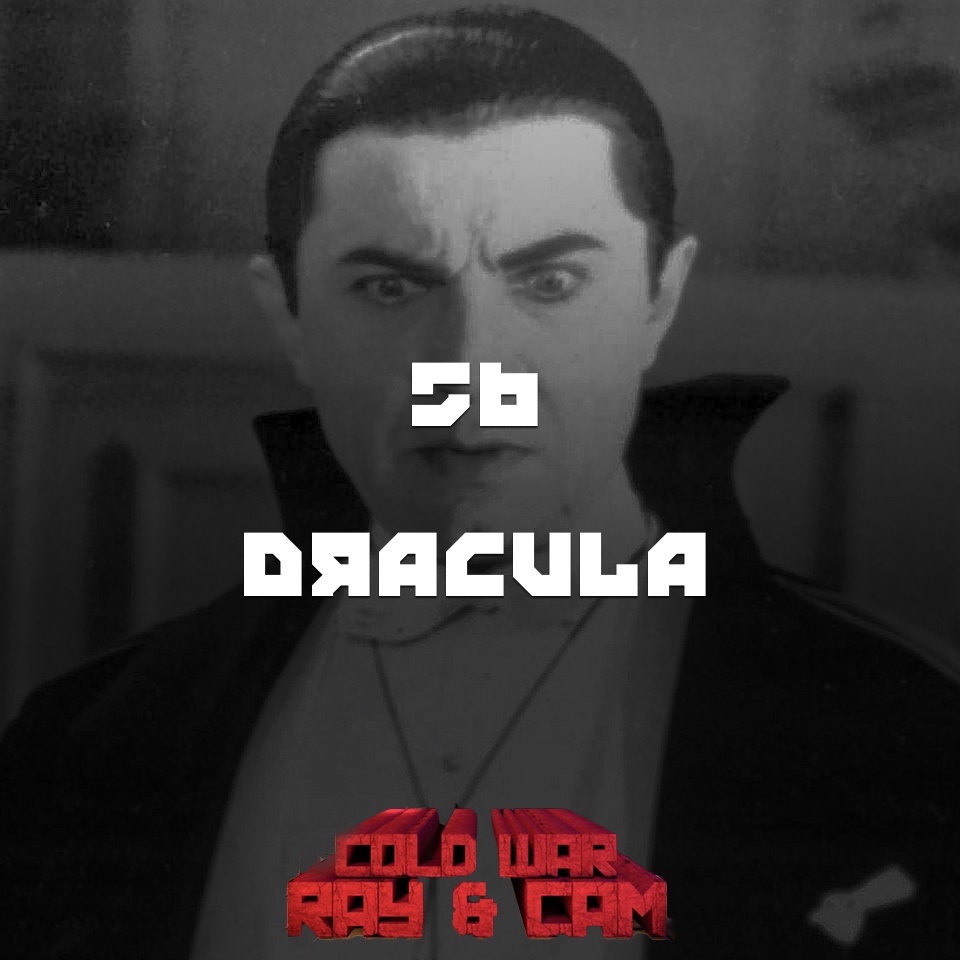
#56 – Dracula
What does Dracula have to do with the Cold War? The next issue to drive a wedge between the Big Three was the government of Romania.
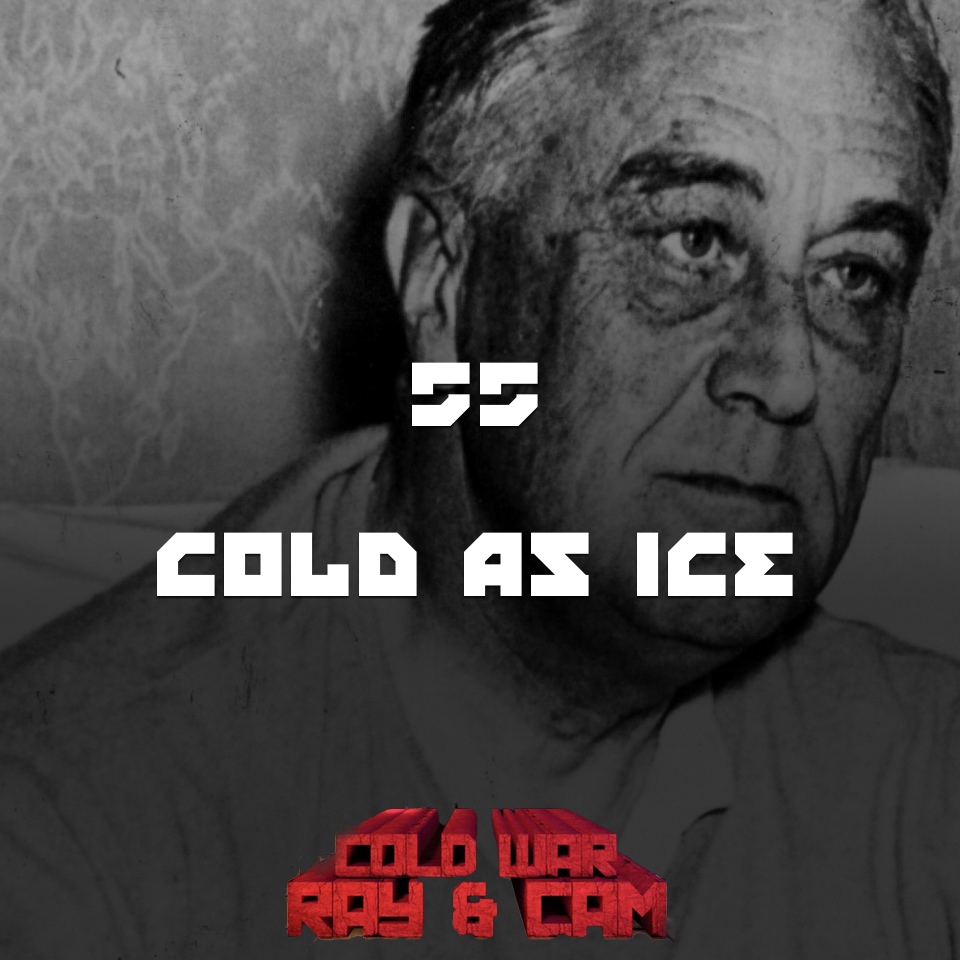
#55 – Cold As Ice
Our first post-Yalta episode! Churchill and Roosevelt go home and give big speeches about how well Yalta went and how the Big Three really get each other. And then it all fell apart.
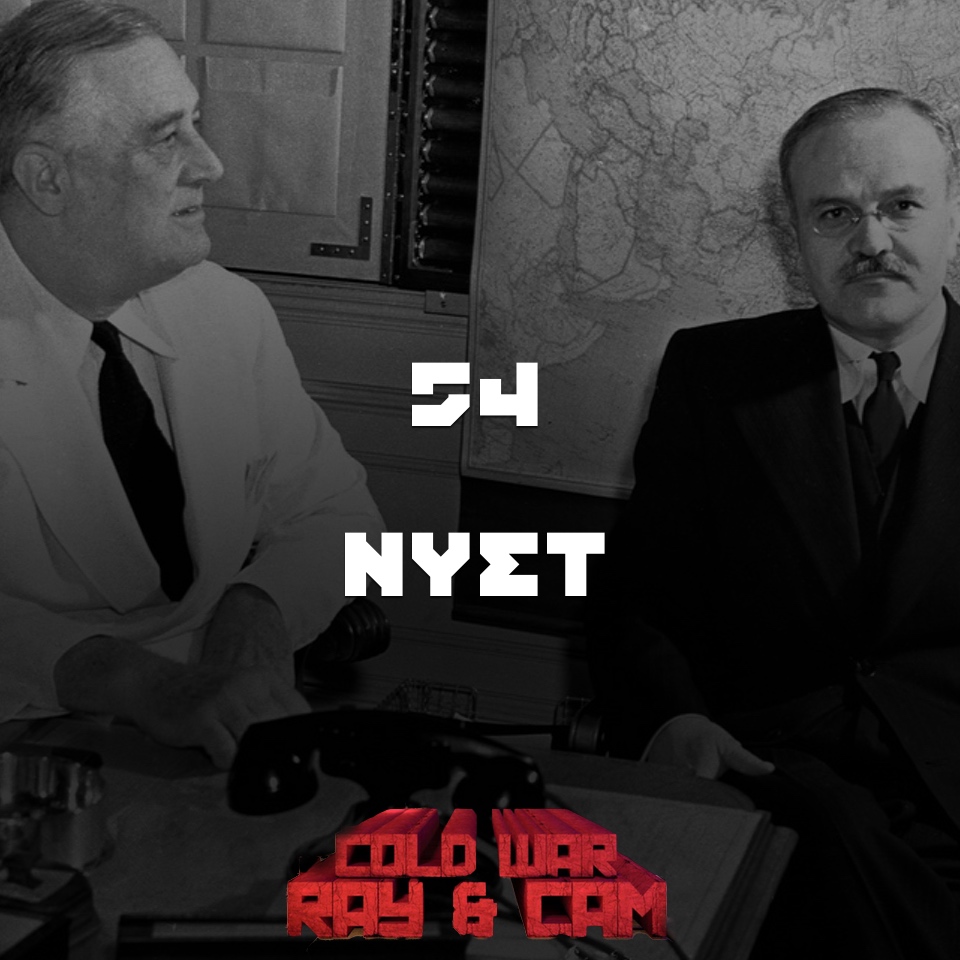
#54 – Nyet
The last day of Yalta! We're out, baby! Churchill fell asleep in the middle of an important debate and then woke up ranting about the wrong things. Iran wants everyone to leave their oil alone but no-one cares. Stalin wanted access to the Black Sea Straits. And Frank...
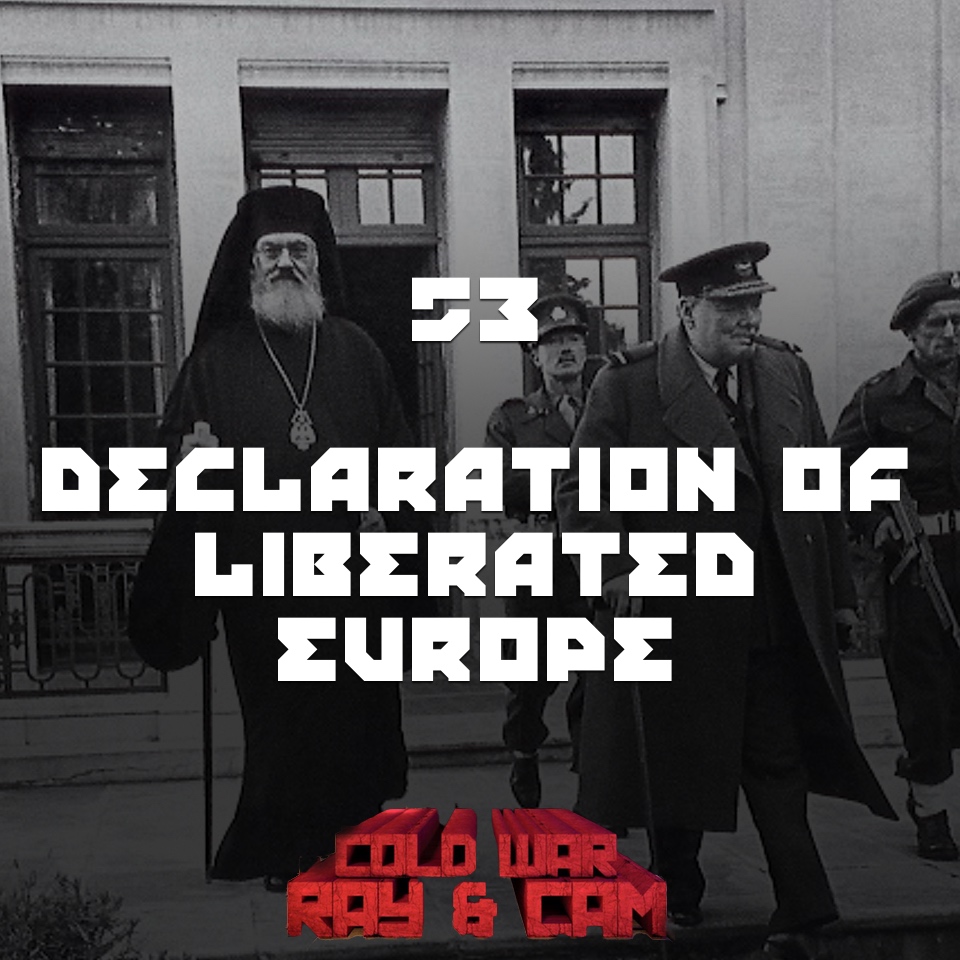
#53 – Declaration of Liberated Europe
Just when I thought I was out... they pulled me back in! To Yalta! Before the Big Three left Yalta, they signed a document that promised to allow the people of Europe "to create democratic institutions of their own choice". Of course, at the time, the British were...
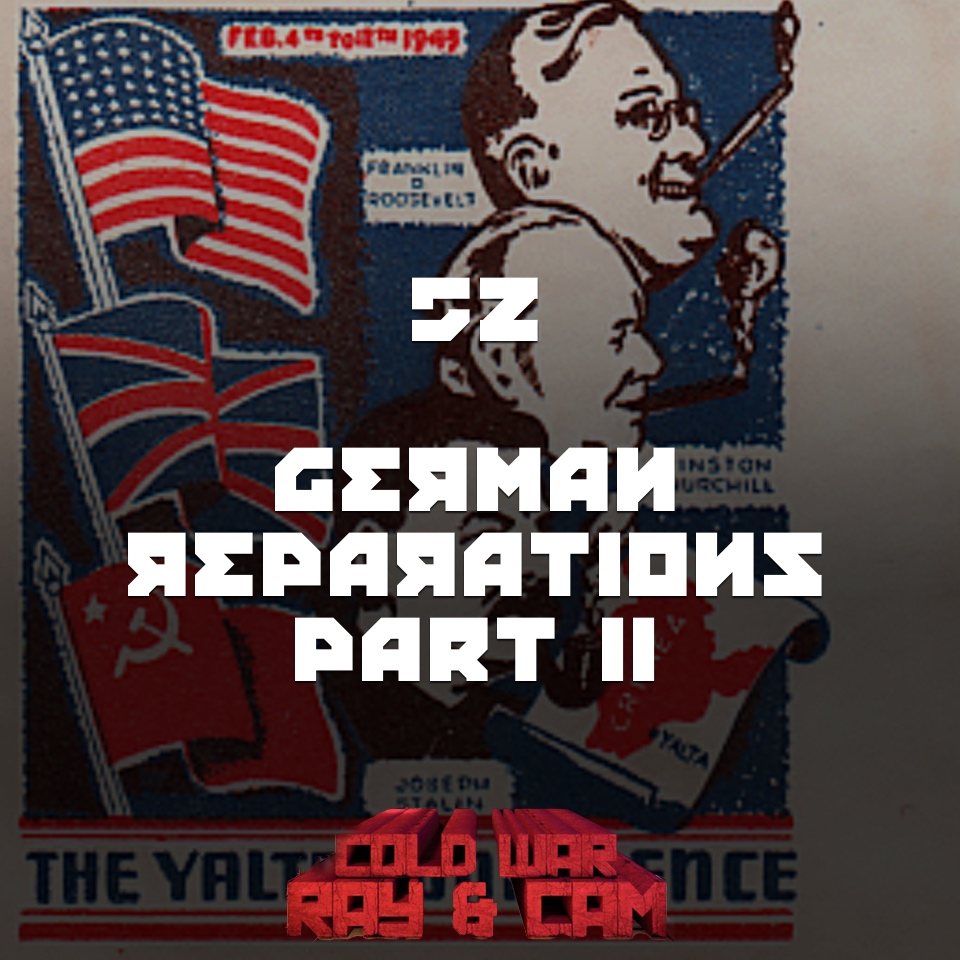
#52 – German Reparations Part II
As the Yalta conference comes to a close, the question of German reparations is settled on, but it’s obvious that Stalin still doesn’t trust the other two. And the feeling is mutual.
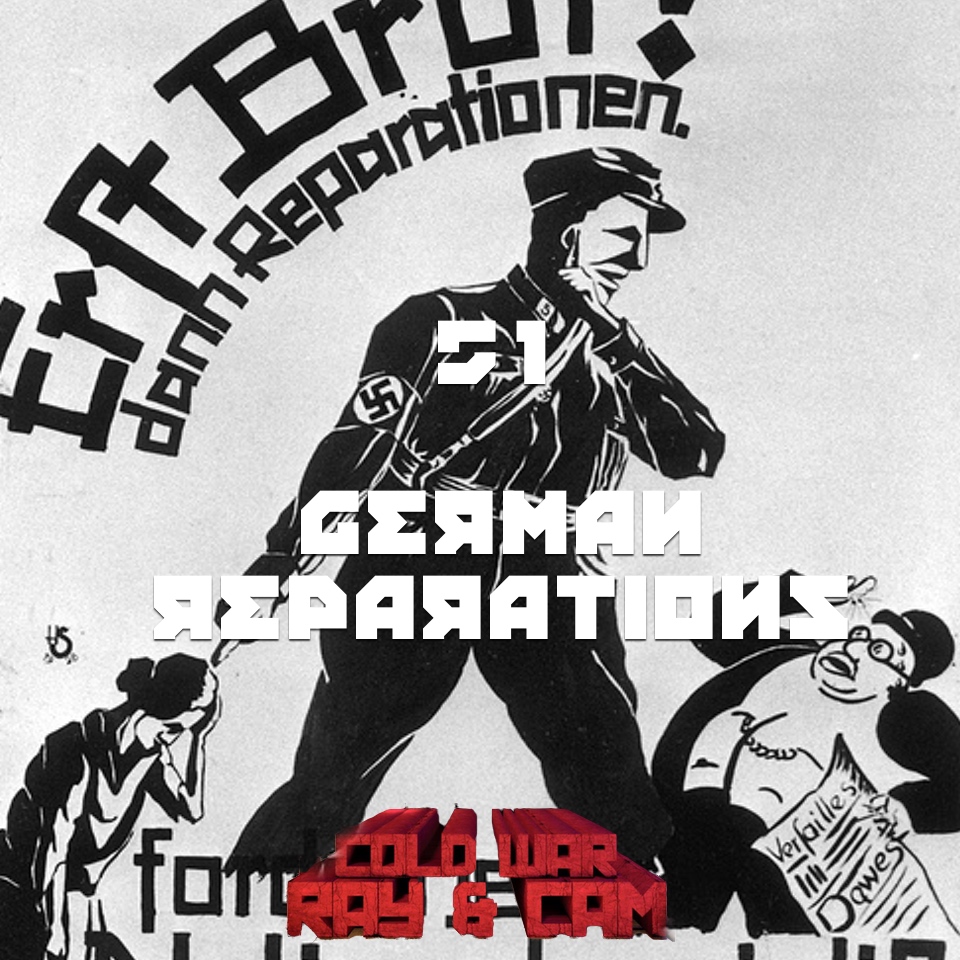
#51 – German Reparations
Stalin goes hard on the issue of German reparations but meets with pushback from Churchill, while Roosevelt can't seem to make up his mind.
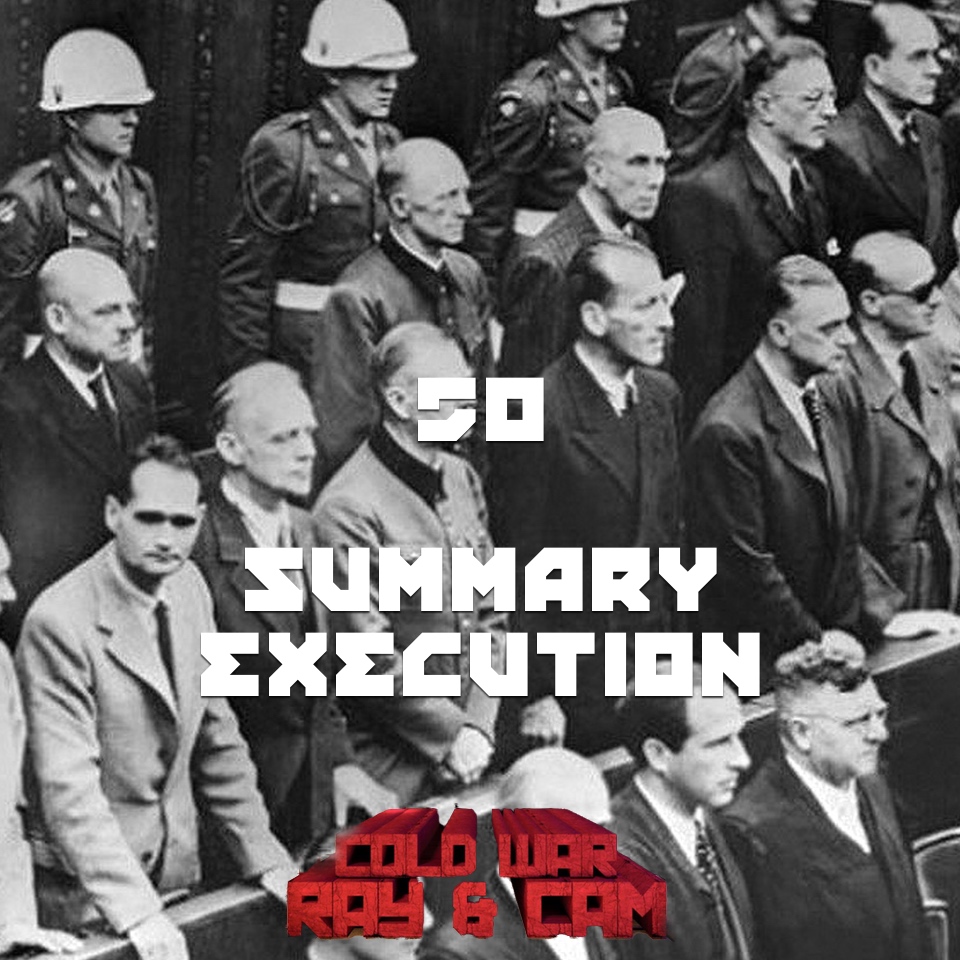
#50 – Summary Execution
So after they agreed on Poland, the rest of the February 9 plenary session is spent talking about Germany. Specifically - what to do with the Nazi big dogs. Previously secret British War Cabinet papers released on 1 January 2006 have shown that Churchill had been...
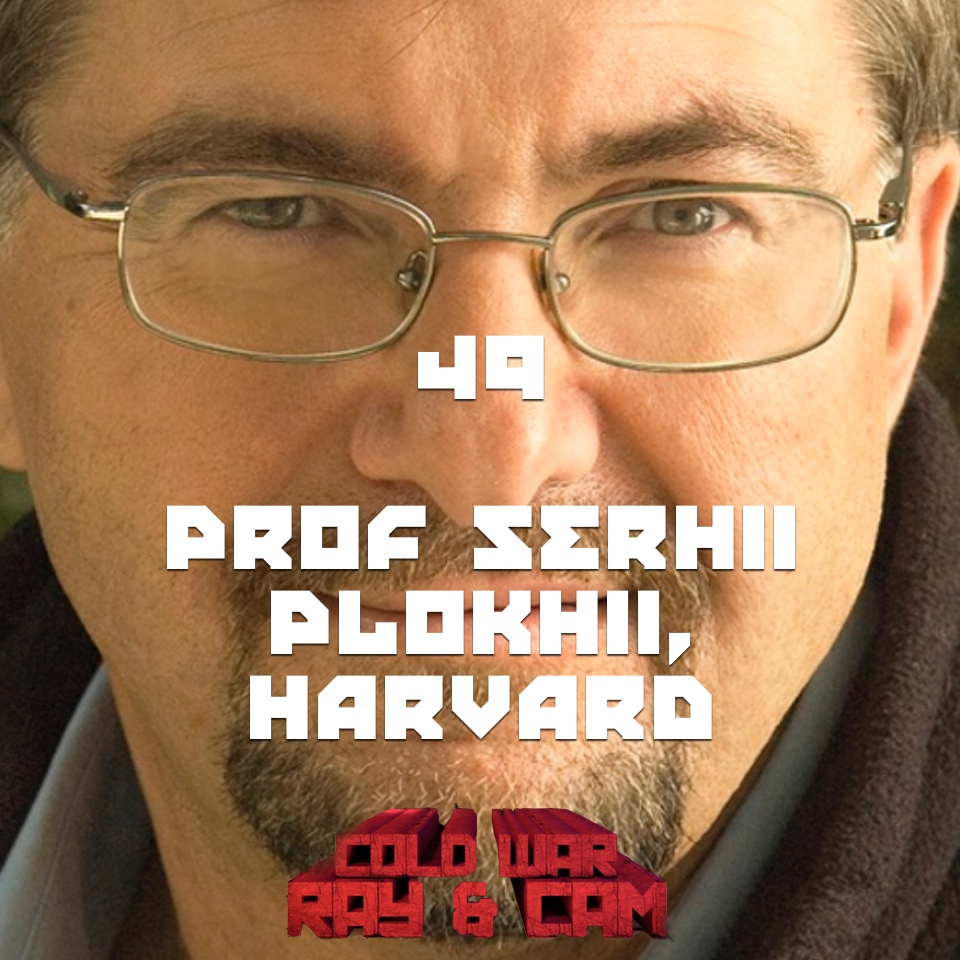
#49 – Prof. Serhii Plokhii, Harvard
We have a very special guest. Professor Serhii Plokhii is the Mykhailo Hrushevsky professor of Ukrainian history at Harvard University, where he also serves as the director of the Ukrainian Research Institute. He’s the author of quite a few award-winning books...

#48 – Settling The Polish Question
Day 9 at Yalta! The official, famous photographs are taken, and someone worries that he's going to be sent to the Gulag as a result. And the Polish question is finally settled to everyone's relief. They can almost go home. Oh and there was no raping.
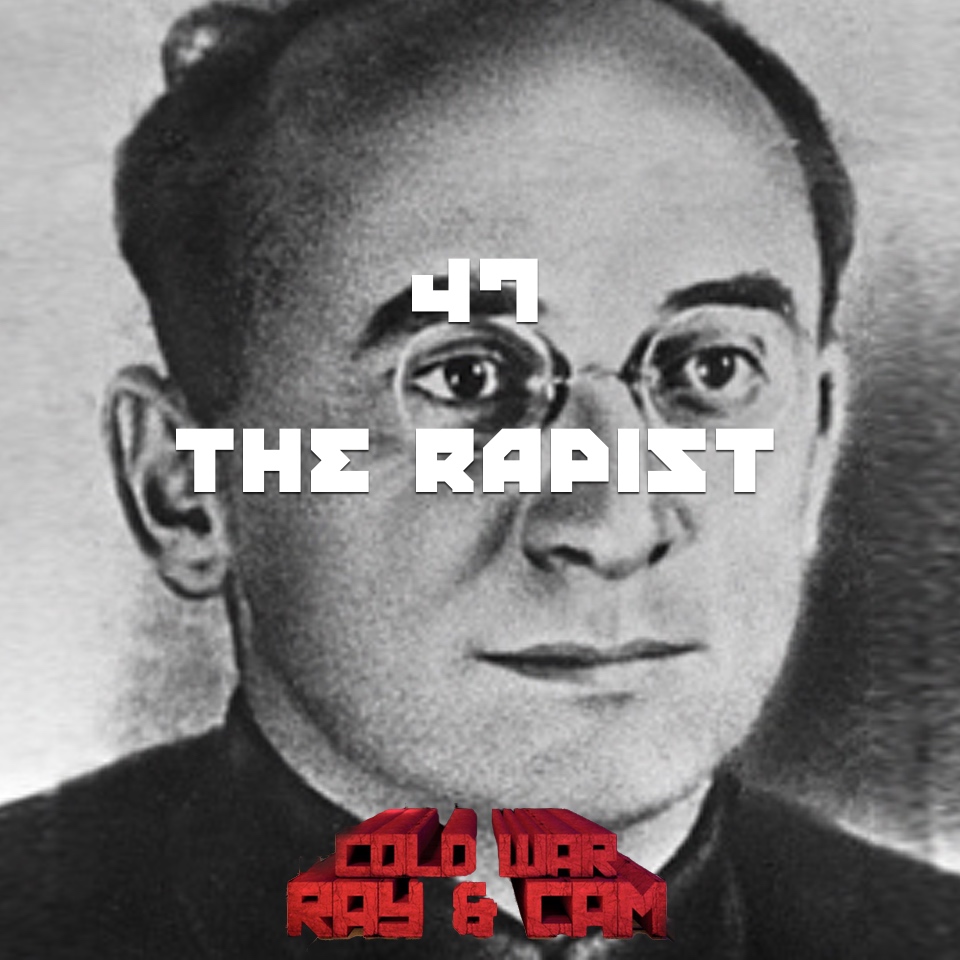
#47 – The Rapist
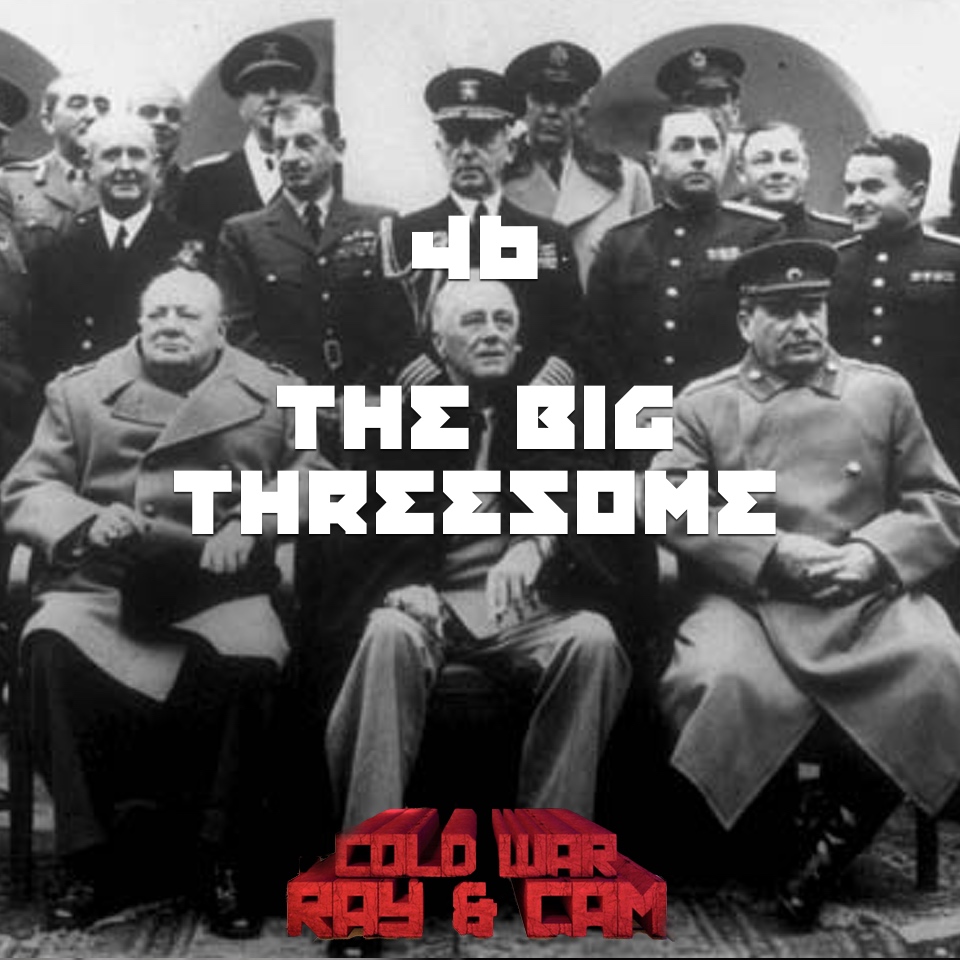
#46 – The Big Threesome
At the end of a long day full of hard bargaining, The Big Three could still relax in one another’s company. In this episode we discuss the most important dinner of the conference.
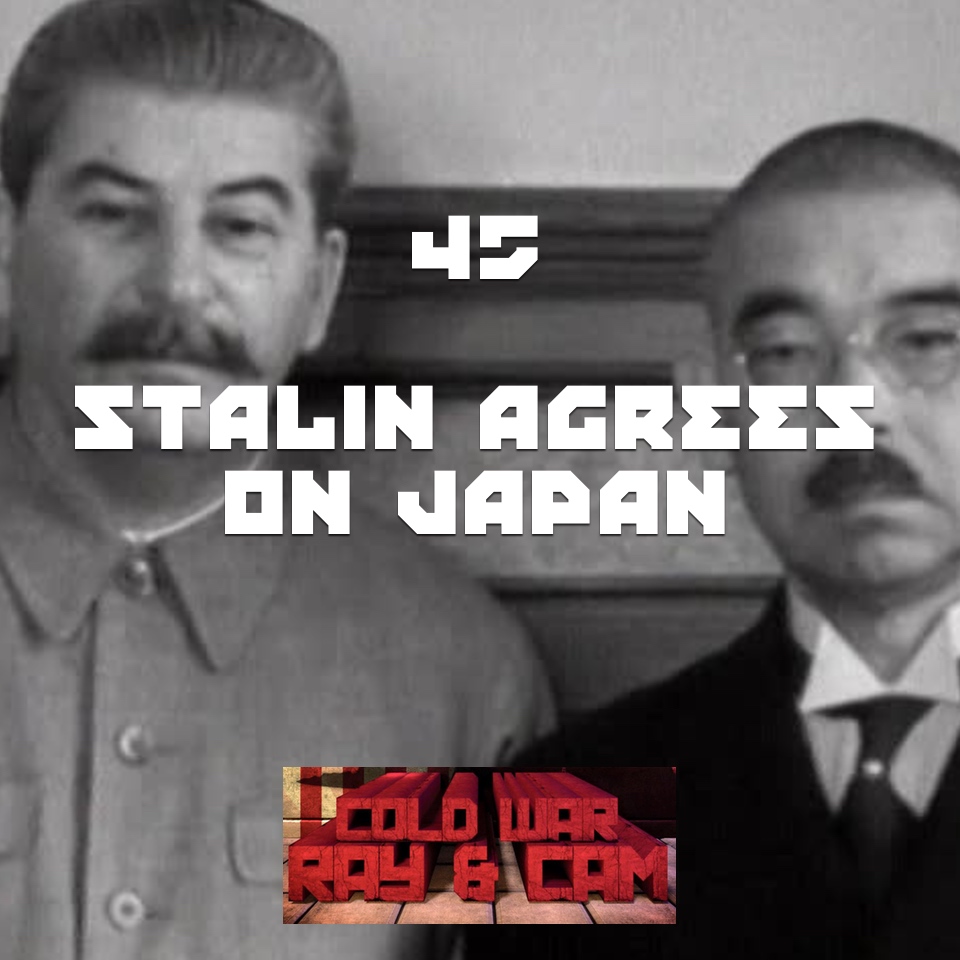
#45 – Stalin Agrees On Japan
A deal was struck between FDR and Stalin: the Soviets will join the war with Japan in exchange for territorial acquisitions at Japan’s expense and the creation of a Soviet sphere of influence in northeastern China.
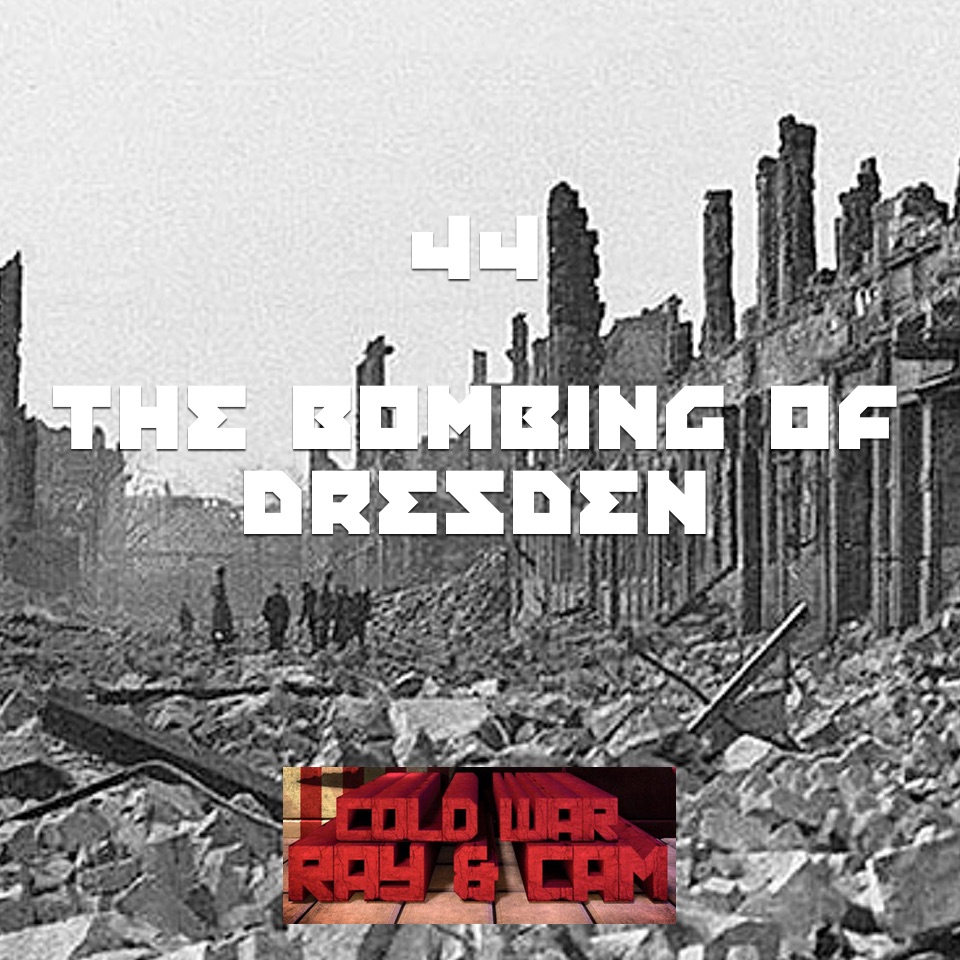
#44 – The Bombing Of Dresden
The city of Dresden was the primary victim of the “zone of limitation” agreement reached at Yalta—one of the few direct outcomes of the military consultations held there. In early 1945 Dresden was one of the few major German centers to have escaped systematic Allied...
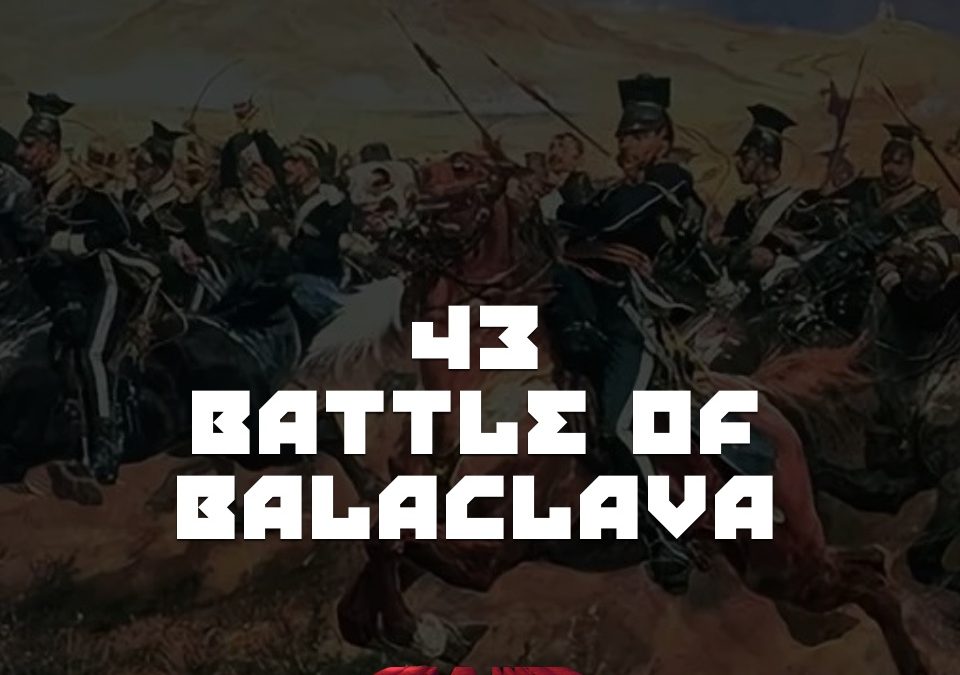
#43 – The Battle of Balaclava
On Feb 7, the British Chiefs of Staff decided to take the day off to visit the site of the Battle of Balaclava, infamous for the "Charge of the Light Brigade" in 1854. Meanwhile, the Americans and the Soviet military commanders took the opportunity to talk about...
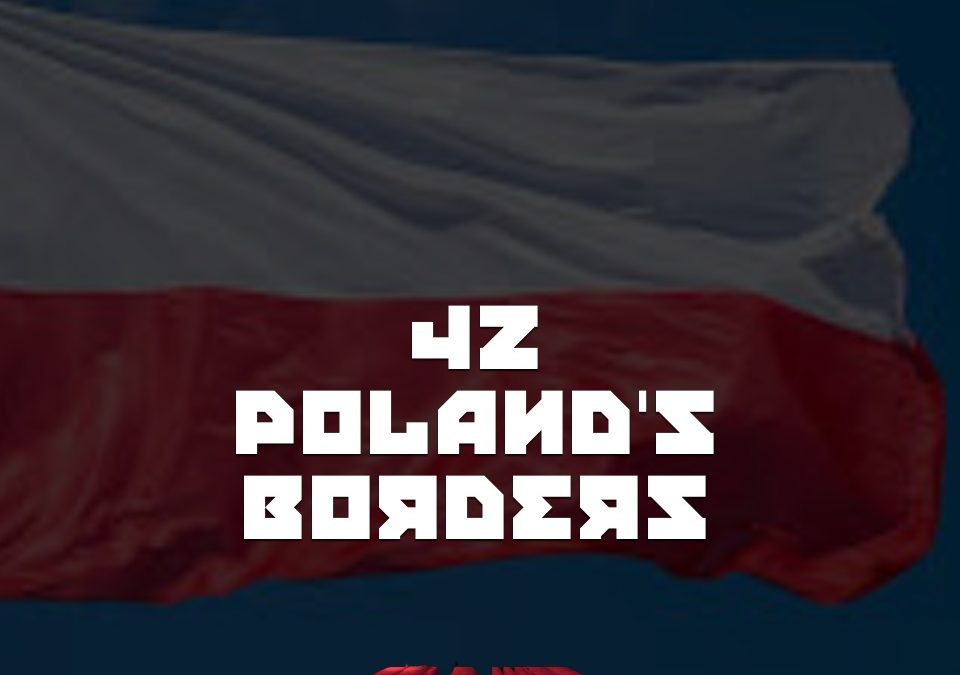
#42 – Poland’s Borders
Conversation at Yalta turns to Poland's borders. Stalin had a new proposal that would mean moving the southern part of the Polish-German border 200 kilometers west - into Germany, right up to the Oder & Neisse rivers. Which was actually giving Poland more of...
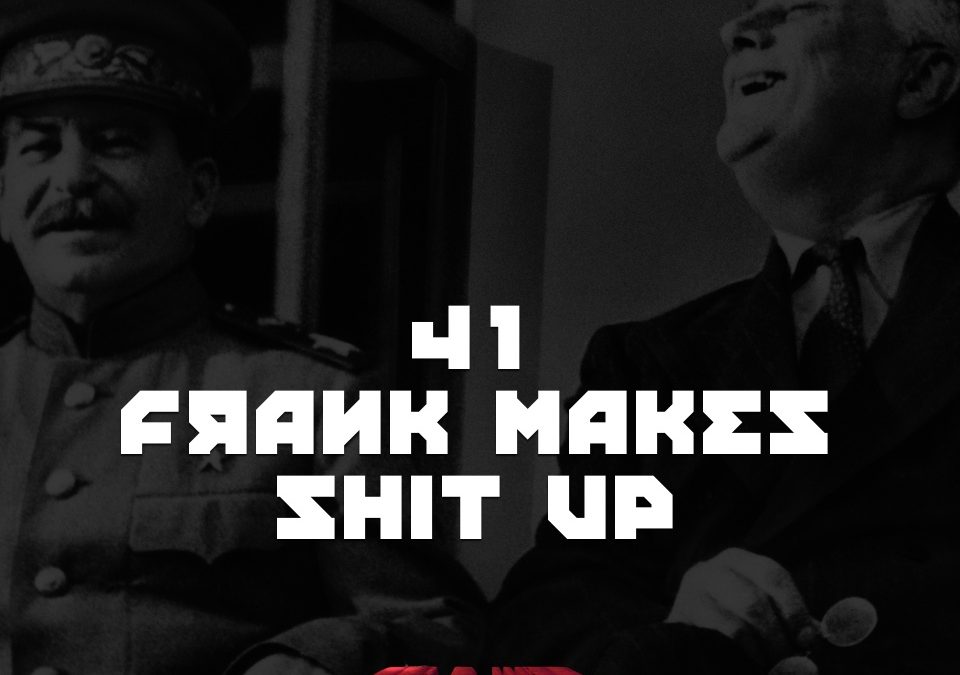
#41 – Frank Makes Shit Up
On Feb 8, when Stalin arrived for his lunch date with Roosevelt, FDR told him that the Foreign Ministers had met that morning and agreed to accept the two extra countries for the Soviet’s in the UN General Assembly. It was good timing for FDR, because that day they...
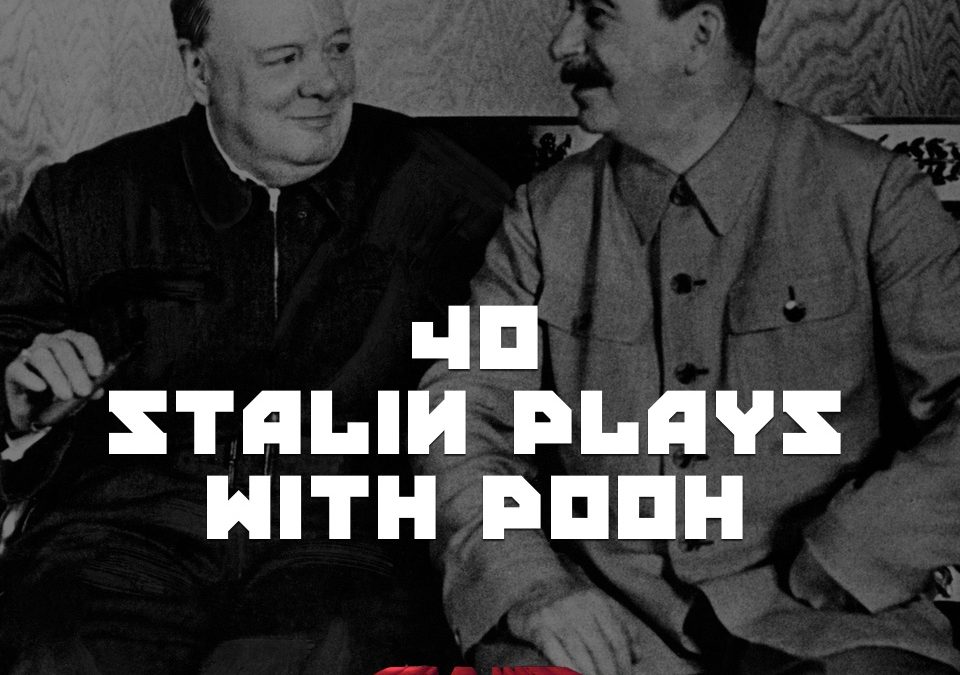
#40 – Stalin Plays With Pooh
At Yalta, Feb 7 and 8 - days 4 and 5 - are going to be about trying to get agreement on the Polish issues and the issue of the Soviets entering the war with Japan. Winnie The Pooh is getting played by Uncle Joe, who senses that the US/UK love fest is struggling. ...
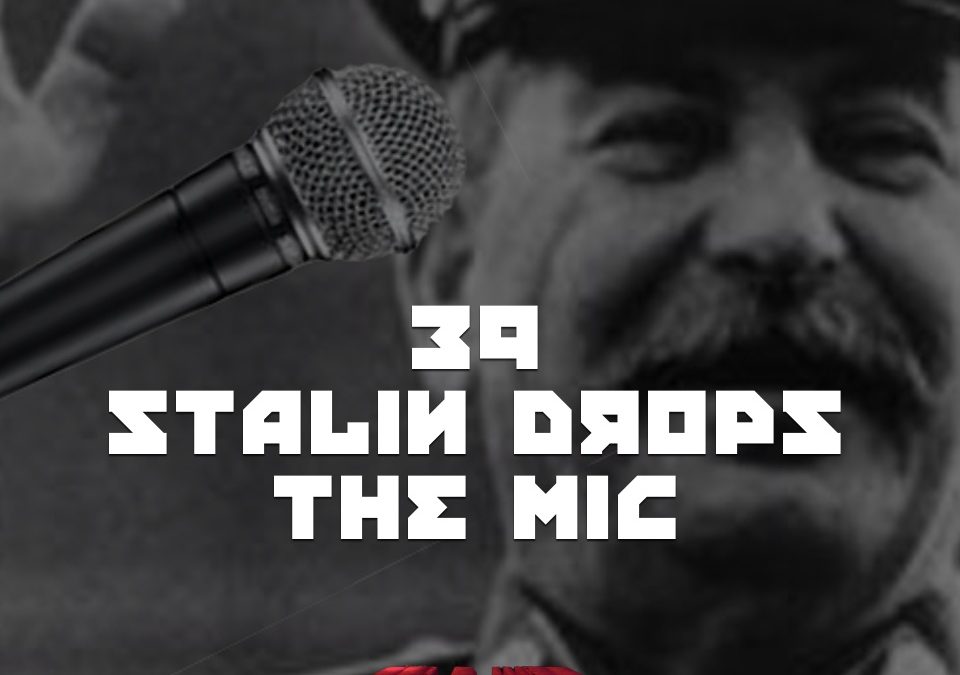
#39 – Stalin Drops The Mic
Back to the question of Poland. Roosevelt suggests changing the Polish-Russian border - in the favour of the Poles. Why? It'd really help him out in the upcoming U.S. election. Churchill agreed with him. Why? It would really help him out in the upcoming British...
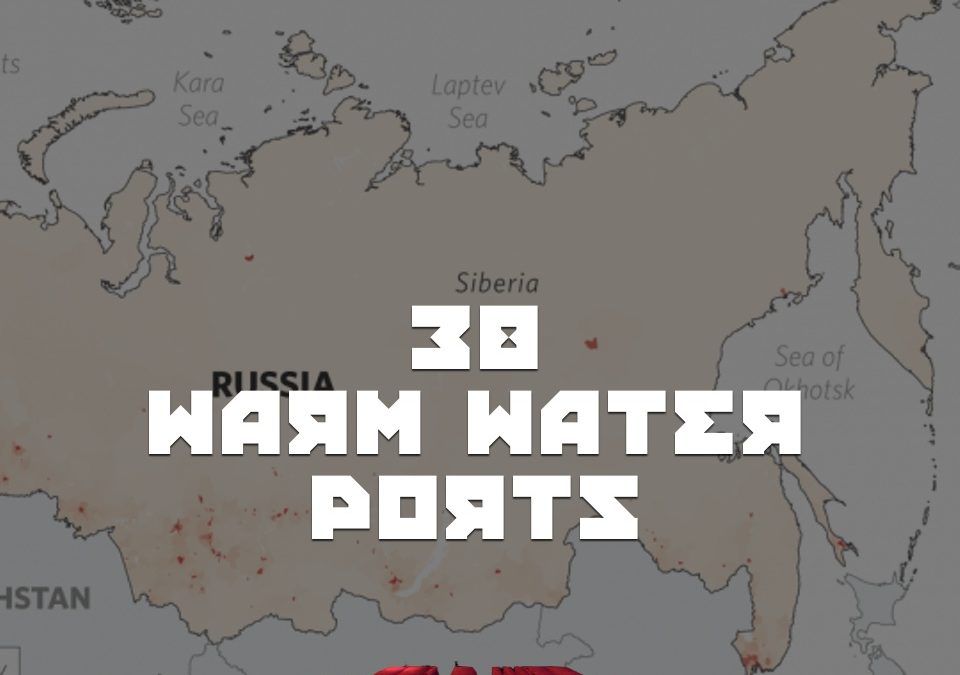
#38 – Warm Water Ports
Despite their attempts to get the U.K. and U.S.S.R. to give up on the concept of spheres of influence, the Monroe Doctrine remained the dominant way that America built its economic empire after WWII. Russia has always longed for more warm water ports and we explain...
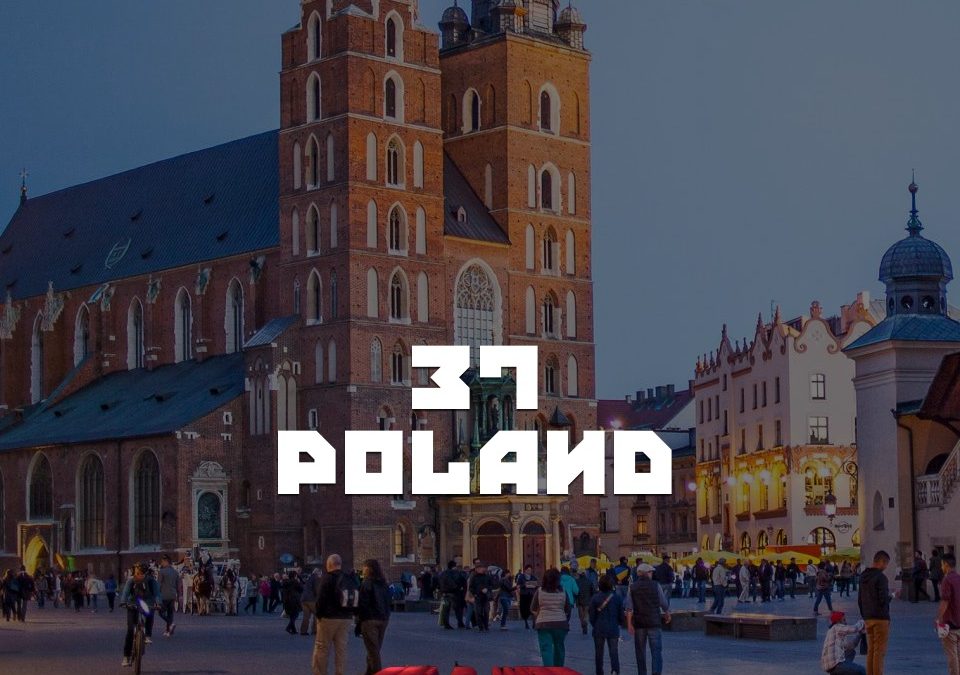
#37 – Poland
We are back talking about Poland and why it was such an important issue to the Big Three at Yalta. As Churchill himself said, Poland was so important, it was discussed at seven out of the eight plenary sessions and the official British record contained 18,000 words on...
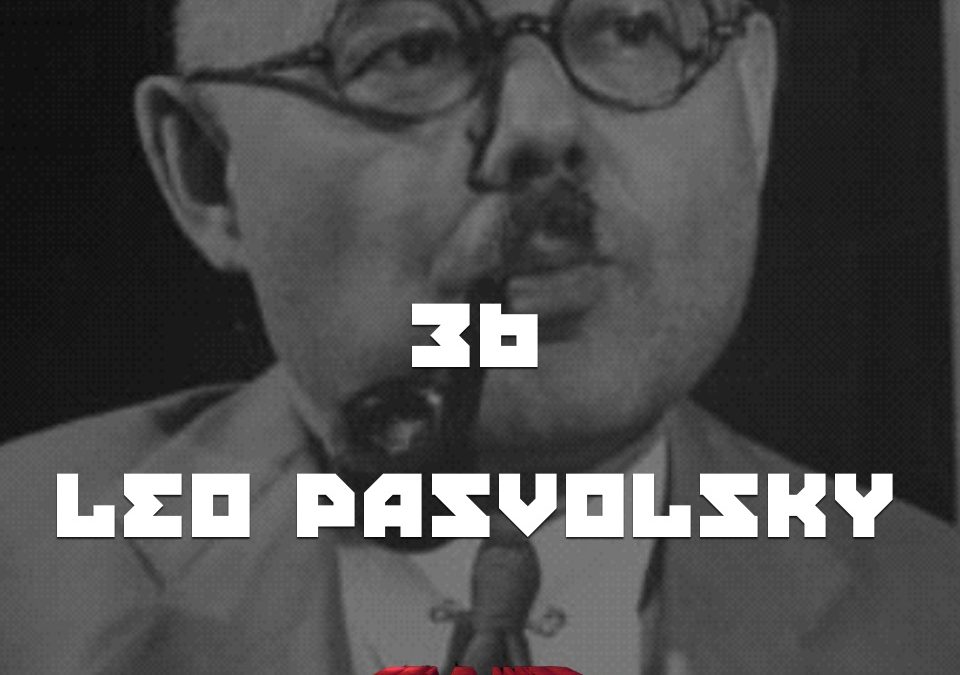
#36 – That Little Rat Leo Pasvolsky
So after Sumner Welles resigned, the majority of the work on the UN charter was done by an interesting guy no-one remembers - Leo Pasvolsky. When he died in 1953, his New York Times obituary was subtitled "Wrote Charter of World...
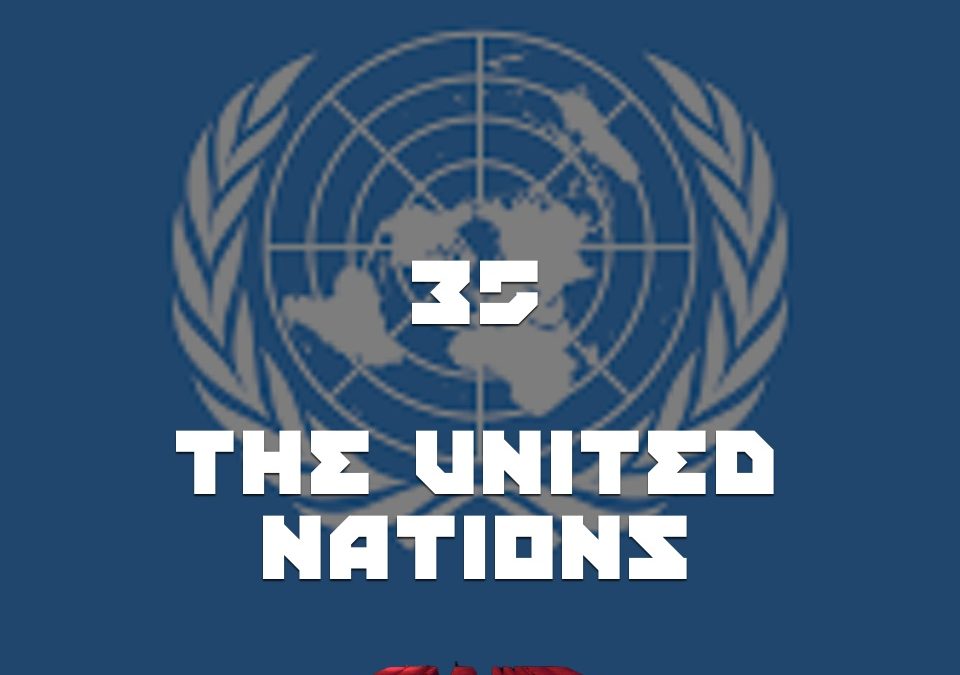
#35 – The United Nations
During the rest of Day Two of Yalta they discuss how much Germany should pay in reparations and how many Germans should go to Russia as slave labour.
On Day Three, the talk turns to FDR’s passion project – The United Nations. We go into some detail about the early vision for the UN, the men behind it, the concerns the Big Three had about how it would impact on their own plans for global and regional dominance – and the use of the Security Council veto.
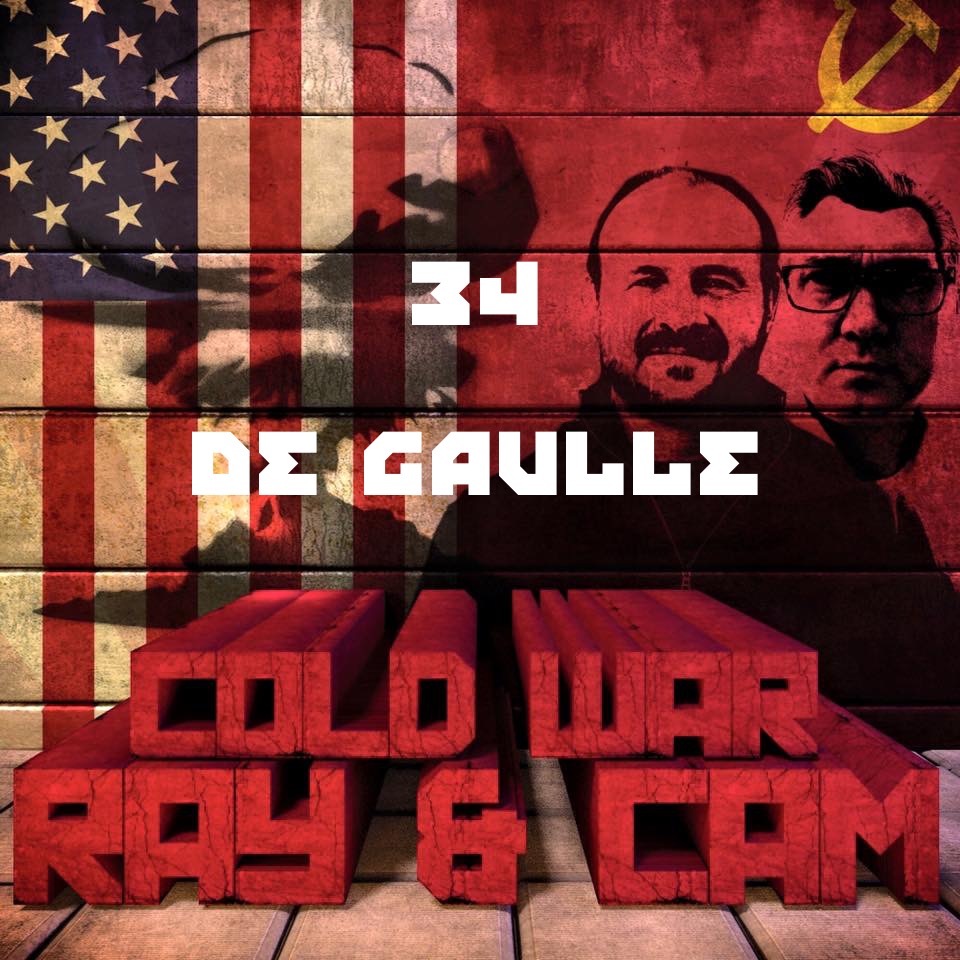
#34 – Charles de Gaulle
As the Yalta conference now turns to whether or not France should have a role in the occupation of Germany, the Allied Control Commission and the UN Security Council, we thought it was a good time to do a quick bio on France’s post-WWII leader, Charles de Gaulle, aka “The Big Asparagus Stalk”, aka “Chucky D”.
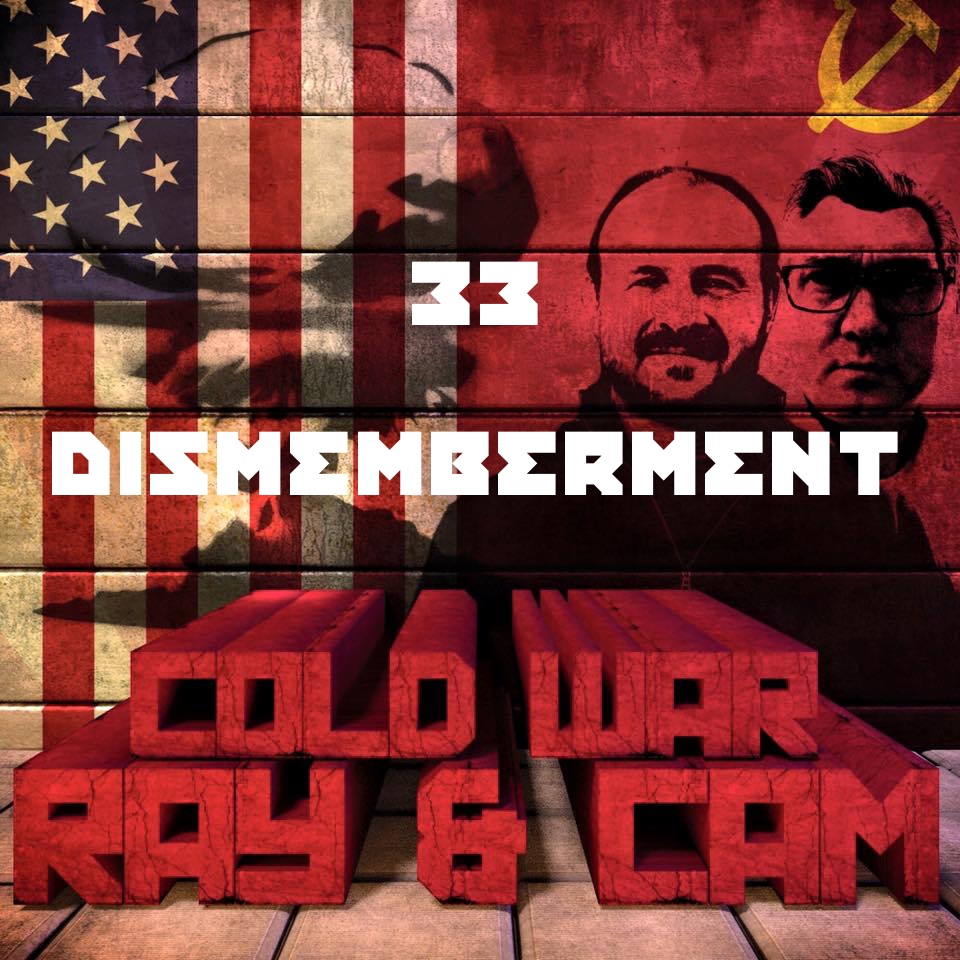
#33 – Dismemberment
On day two of the Yalta Conference Franky wanted to discuss the role of France in the German occupation. Joey hijacked the agenda to demand agreement on dismemberment. And Winny just sucked his thumb because no-one cared what he thought about anything.
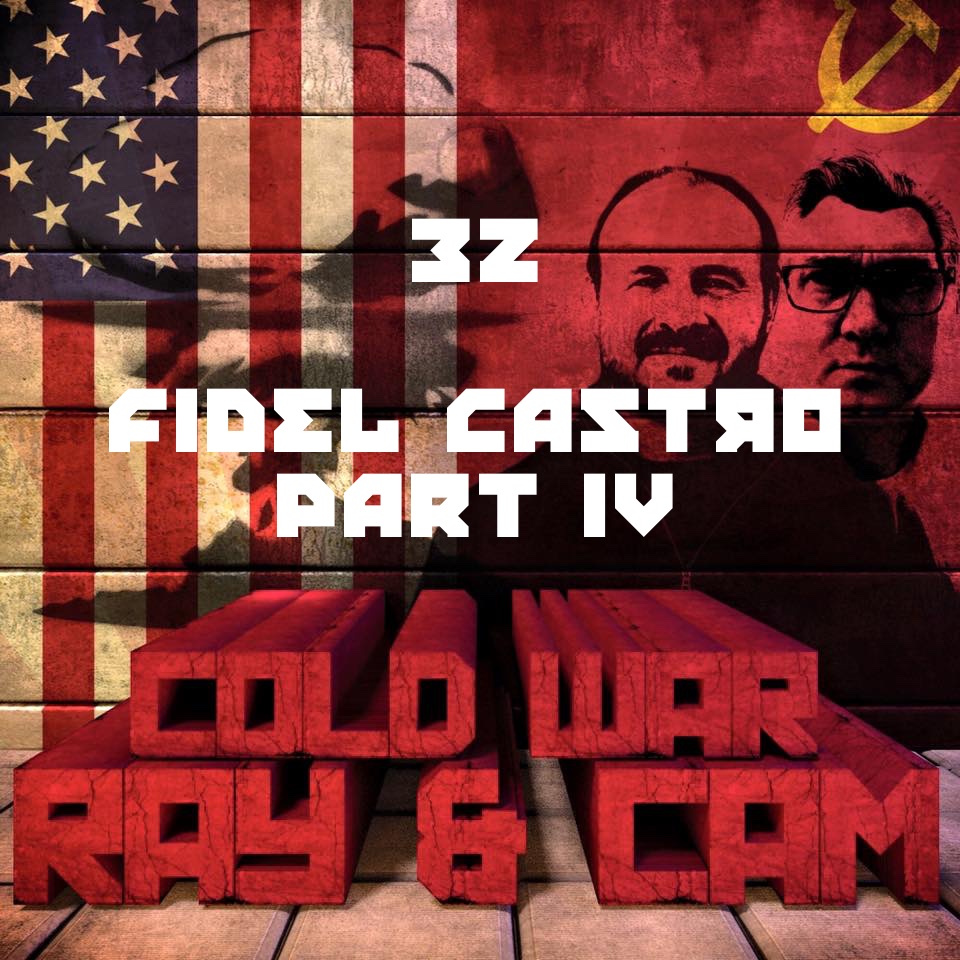
#32 – Fidel Castro Part 4
Part four (!!!) of our “quick” biography on Fidel Castro, using the New York Times’ obituary, breaking it down, line by line, to uncover the propaganda. And we’re making these Castro episodes free to guests.This is absolutely the last part, we promise!
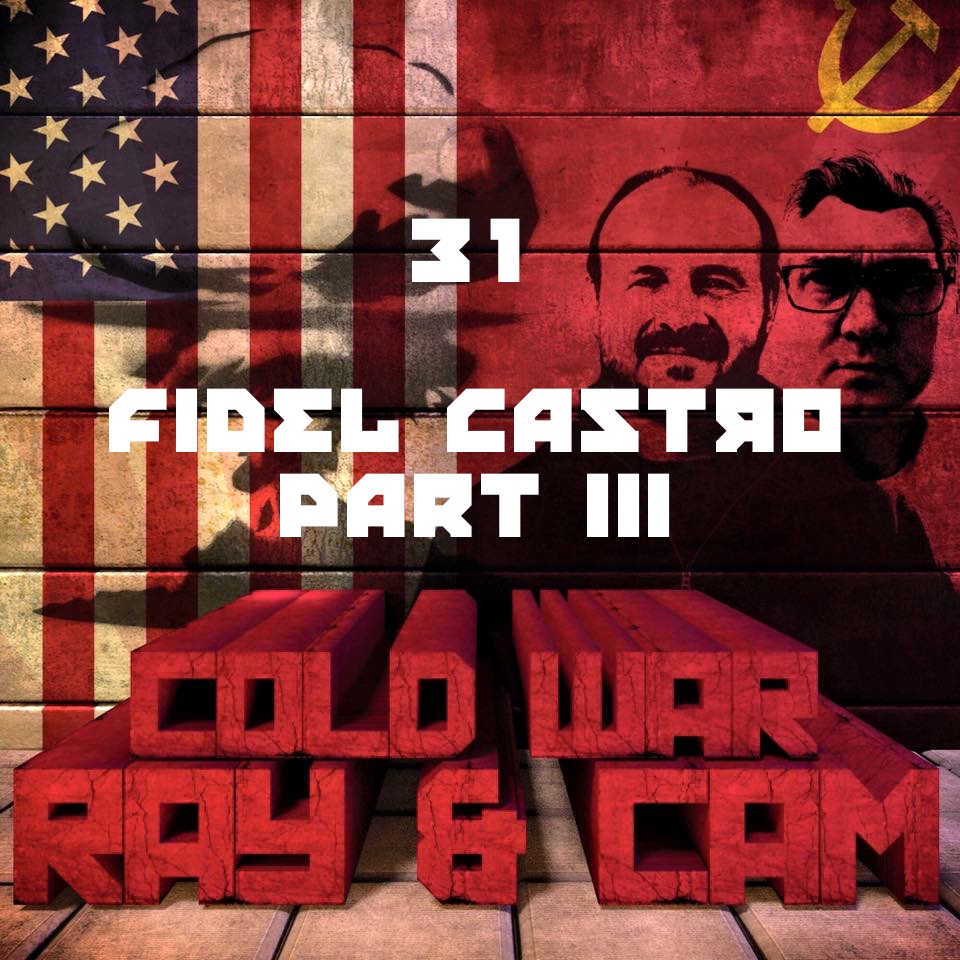
#31 – Fidel Castro Part 3
Part three (!!!) of our “quick” biography on Fidel Castro, using the New York Times’ obituary, breaking it down, line by line, to uncover the propaganda. And we’re making these Castro episodes free to guests. And yes – there is a part four! But it’s the last part, we promise!
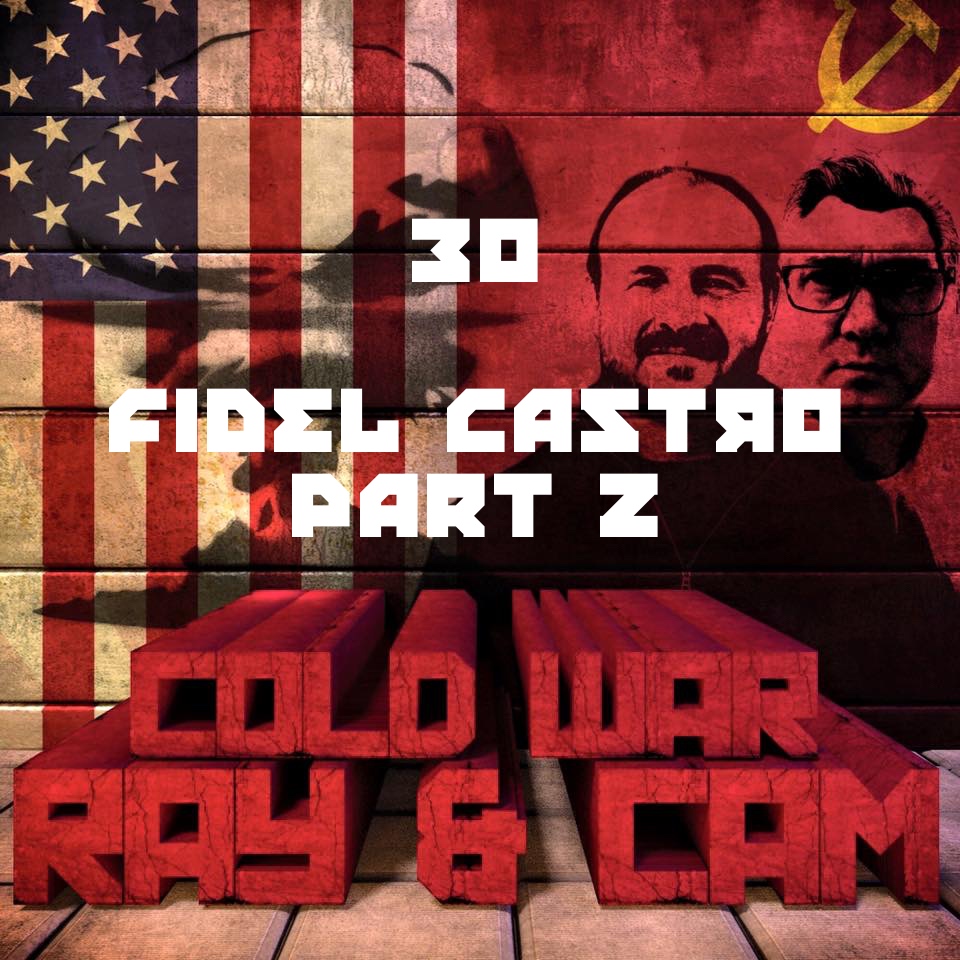
#30 – Fidel Castro Part 2
Part two of our “quick” biography on Fidel Castro, using the New York Times’ obituary, breaking it down, line by line, to uncover the propaganda. And we’re making these Castro episodes free to guests.
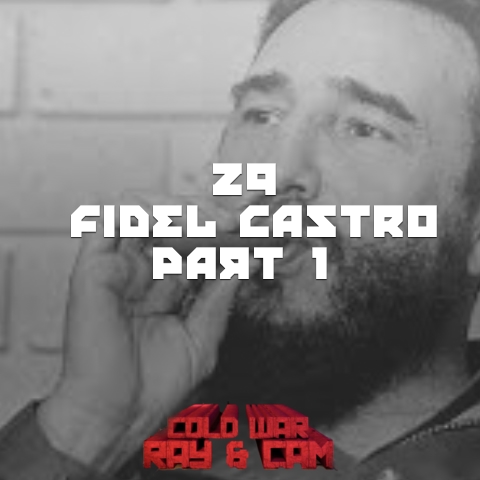
#29 – RIP Fidel Castro
With the recent death of Fidel Castro, we decided to take a quick detour from our linear narrative to jump ahead in time and talk about one of the major figures, not only of the Cold War, but of the 20th century. A hero to many, reviled by just as many, his death brought on a new spate of Western media coverage. After reading much of it, we just had to provide our own perspective. We decided to tackle the subject by taking one of the major media obituaries, by the New York Times, and break it down, line by line, to uncover the propaganda. And we’re making this episode free to guests.
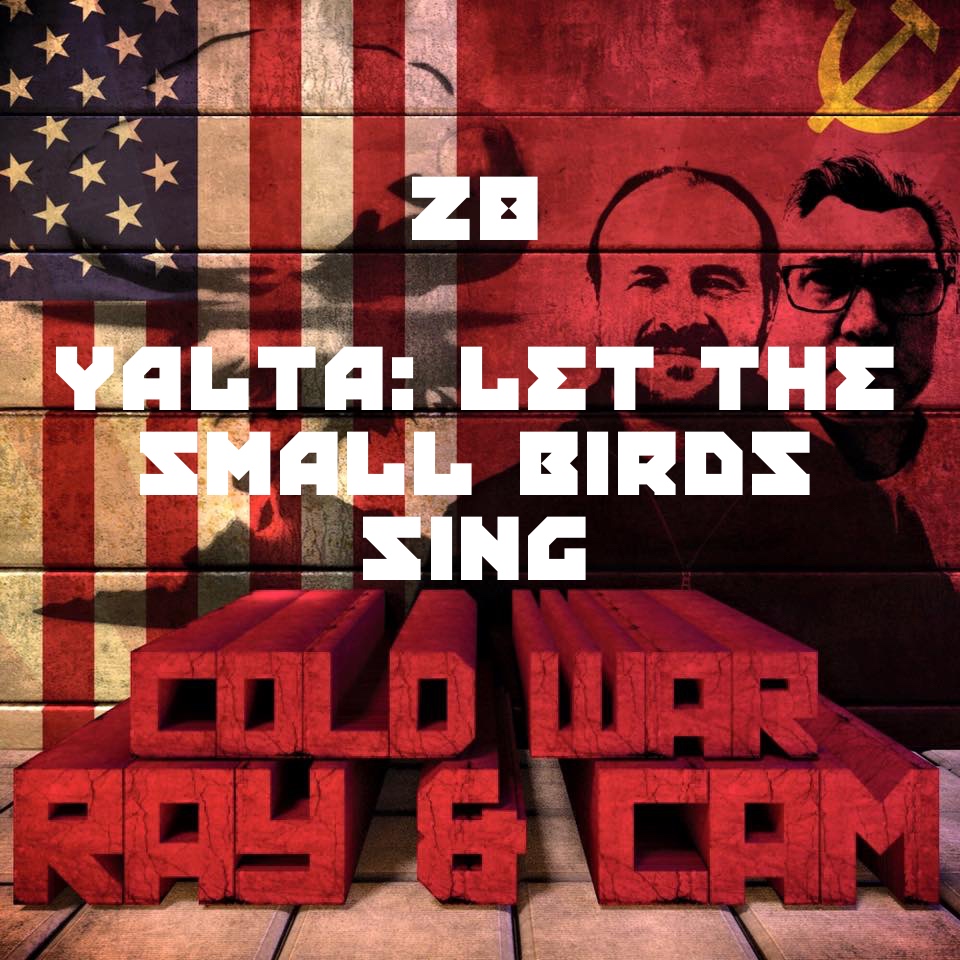
#28 – Yalta: Let The Small Birds Sing
Like he had before Tehran, FDR refused the idea of an Anglo-American bloc when he and Churchill met briefly in Malta before the conference.
He’s trying hard to avoid putting Stalin on the defensive.
Because he knows that in the game of wartime diplomacy, the player with the most troops on the ground had the loudest voice.
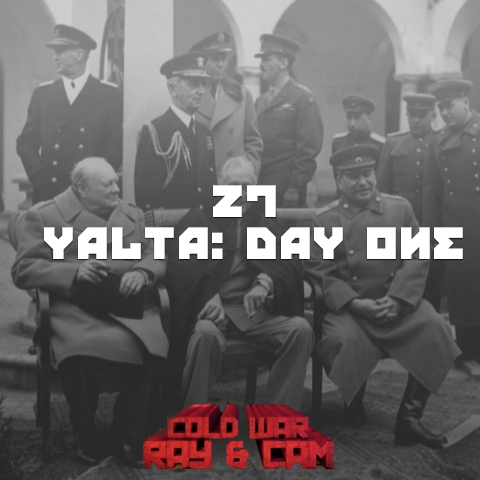
#27 – Yalta: Day One
We FINALLY start talking about day one of the Yalta conference, explaining the key cast of characters – and a lemon tree.
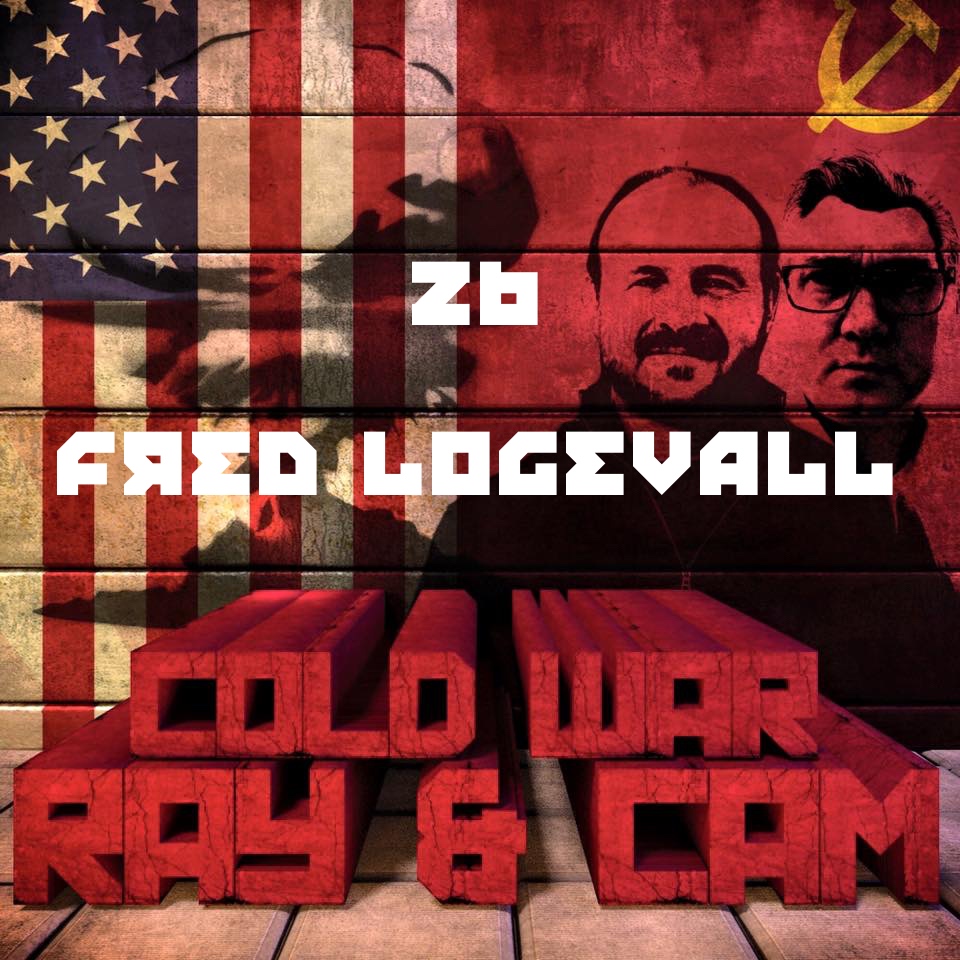
#26 – Prof Fredrik Logevall
Today we have another special guest – Pulitzer Prize-winning author, the Laurence D. Belfer Professor of International Affairs at the John F. Kennedy School of Government and Professor of History in the Harvard Faculty of Arts and Sciences – Prof Fredrik Logevall. He’s also the co-author of America’s Cold War: The Politics of Insecurity (co-authored with Campbell Craig, who we had on in episode 20).
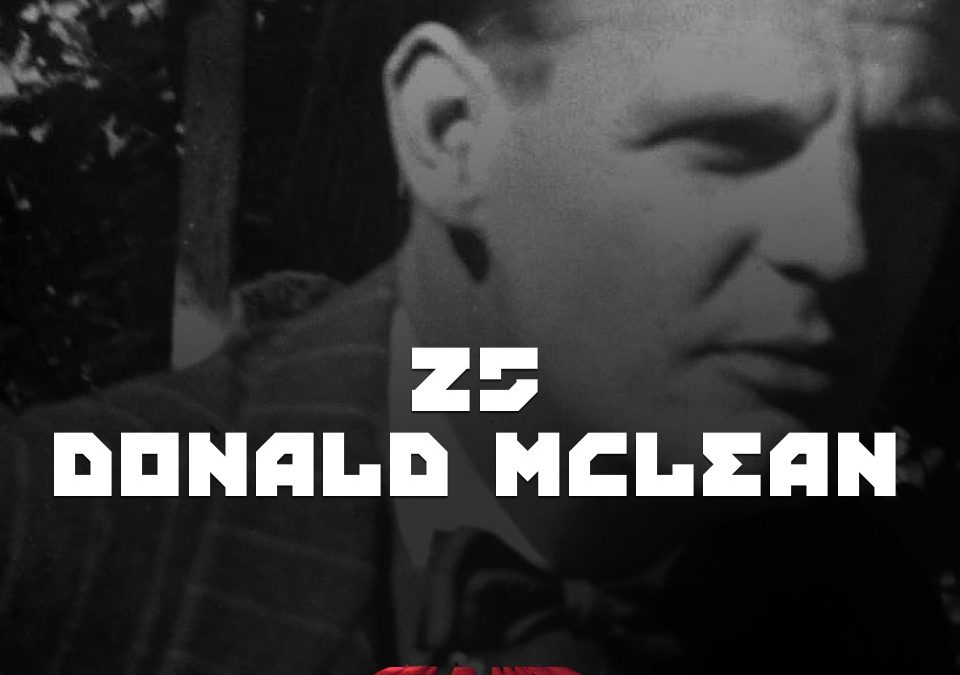
#25 – Maclean
This is the third and final of our episodes about the Cambridge Five!
This week – Donald Maclean. After being recruited at Cambridge, he started working for the Foreign Office assigned to the division that looked after the League of Nations. Over the next few years, 45 boxes of documents were photographed and sent to Moscow. He rose to become the First Secretary at the British Embassy in Washington and Secretary of the Combined Policy Committee on atomic energy matters, where he was Moscow’s main source of information about US/UK/Canada atomic energy policy development. After returning to London, he became the head of the American Department in the Foreign Office.
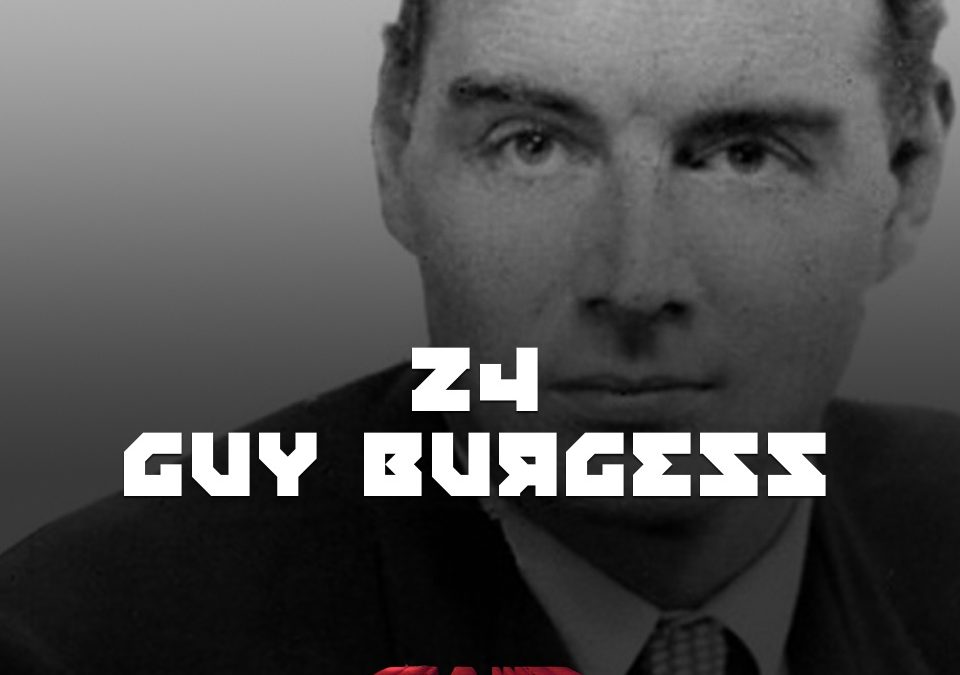
#24 – Burgess
This is the second of our episodes about the Cambridge Five!
This week – Guy Burgess. Where the others were highly self-controlled and shunned public scrutiny, he was wildly flamboyant, openly homosexual and often embroiled in scandal because of his drunken behaviour. He had the ability to charm anyone he sought out, including Churchill, and attracted an astonishing array of contacts, as well as lovers, as he flitted between MI5, MI6, the BBC and the FO. At one point he was simultaneously running agents for both British and Soviet intelligence. Between 1941 and 1945 he passed more than 4,600 documents to Moscow.
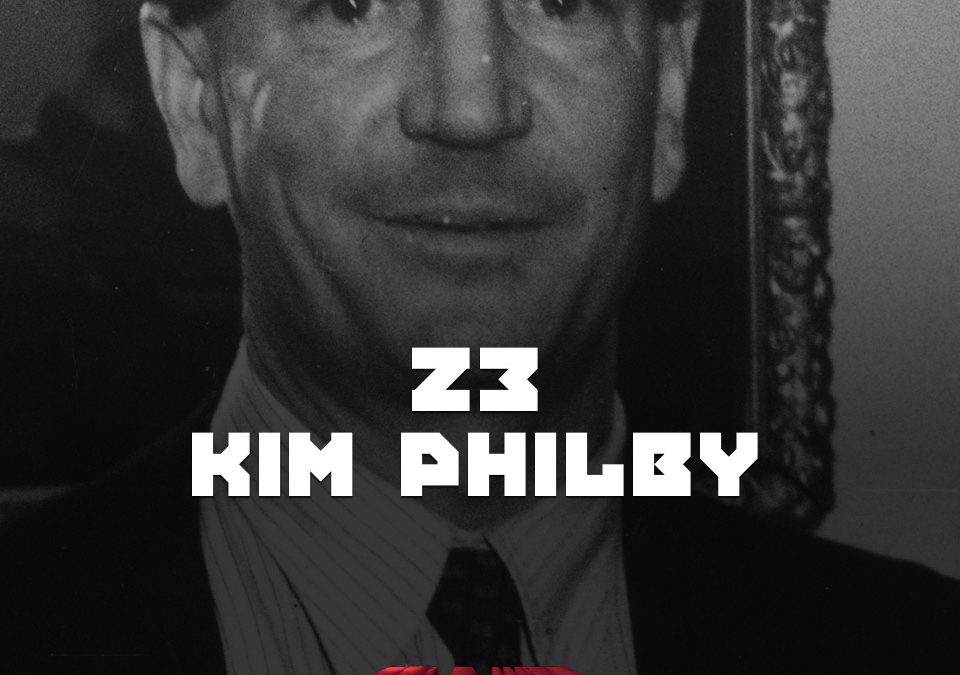
#23 – Philby
This is the first of two episodes about the Cambridge Five!
This week – Kim Philby, arguably the most effective spy in the history of spying.
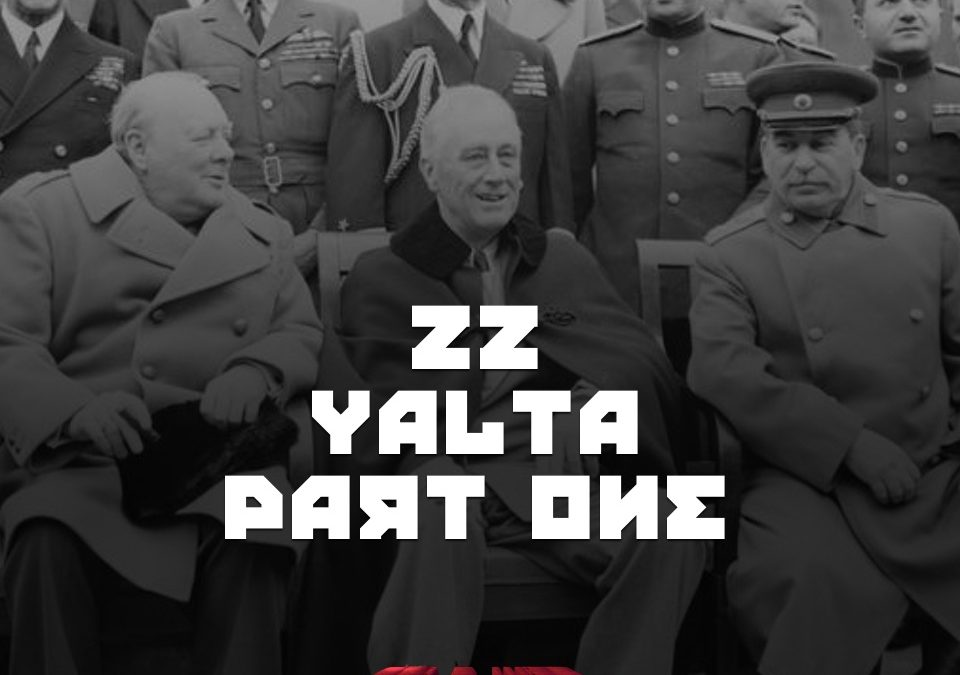
#22 – Yalta (part 1)
By the time the Big Three finally met again after Tehran, it was February 1945, the US had re-taken the Phillipines. But the they were still a long way from Japan. And in Europe, they were all facing fierce crystal-meth fuelled German resistance. Plus we have Pomeranian dogs, golden fleece, a Greek revolutionary, a Jew who is burned at the stake, and the introduction to the Cambridge Five!

#21 – The First Vietnam
Today we go back to 1898 and discuss The Philippine–American War, sometimes referred to as “The First Vietnam”. Trust us – it’s relevant to our story. Why did the United States invade the Philippines in 1898? And why did 200,000 Filipinos have to die as a result? And why did the US occupy it for the next 50 years? Listen and find out.
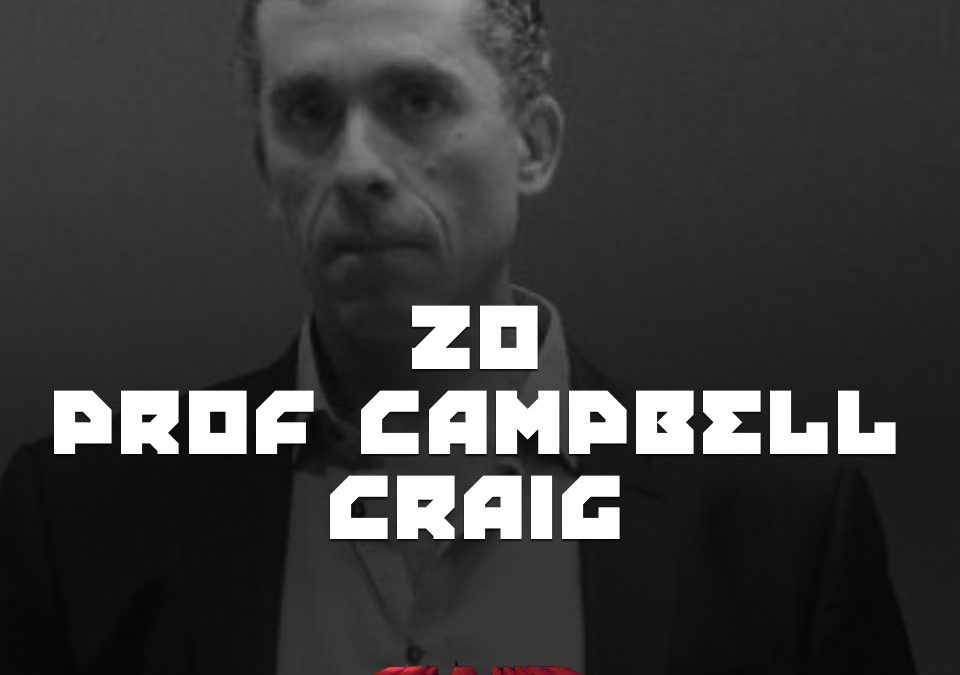
#20 – Campbell Craig
Professor Campbell Craig is the Professor of International Relations at Cardiff University.
He has held senior fellowships at Yale University, the Norwegian Nobel Institute, the European University Institute, and, most recently, at the Institute for Advanced Studies at the University of Bristol, and has given invited lectures at Harvard, Yale, Princeton, Dartmouth, Chicago, Columbia, Cambridge, Sciences-Po, the Free University of Berlin, the London School of Economics, University of Copenhagen, and other universities.
His most recent books are The Atomic Bomb and the Origins of the Cold War (with Sergey Radchenko), and America’s Cold War: the Politics of Insecurity (with Fredrik Logevall).
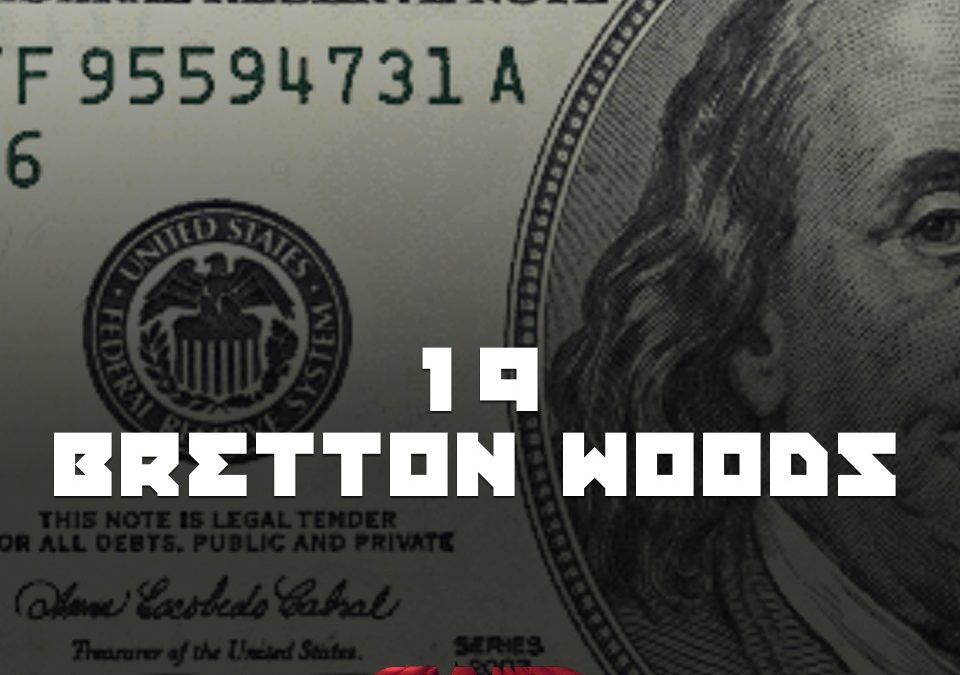
#19 – Bretton Woods
A month after the opening of the second front, the Roosevelt administration organized a conference on postwar economic planning in Bretton Woods, New Hampshire, at which American officials set up institutions designed to open up free trade around the world and to promote industrial development in former European colonies.
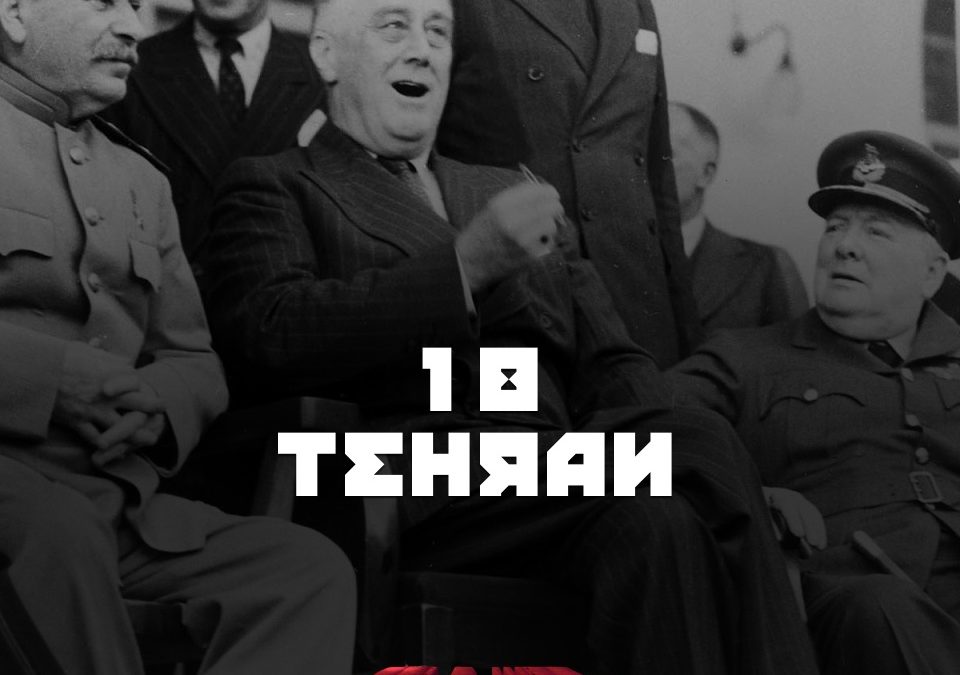
#18 – Tehran
Roosevelt and Churchill had their first war summit meeting in Casablanca in January 1943.
The first Big Three conference was held in Tehran, Iran in November 1943. It turned out to be the most important summit of the war. In four days of meetings, Roosevelt, Churchill, and Stalin debated the second-front question and hashed out the basic outline of a postwar European order.
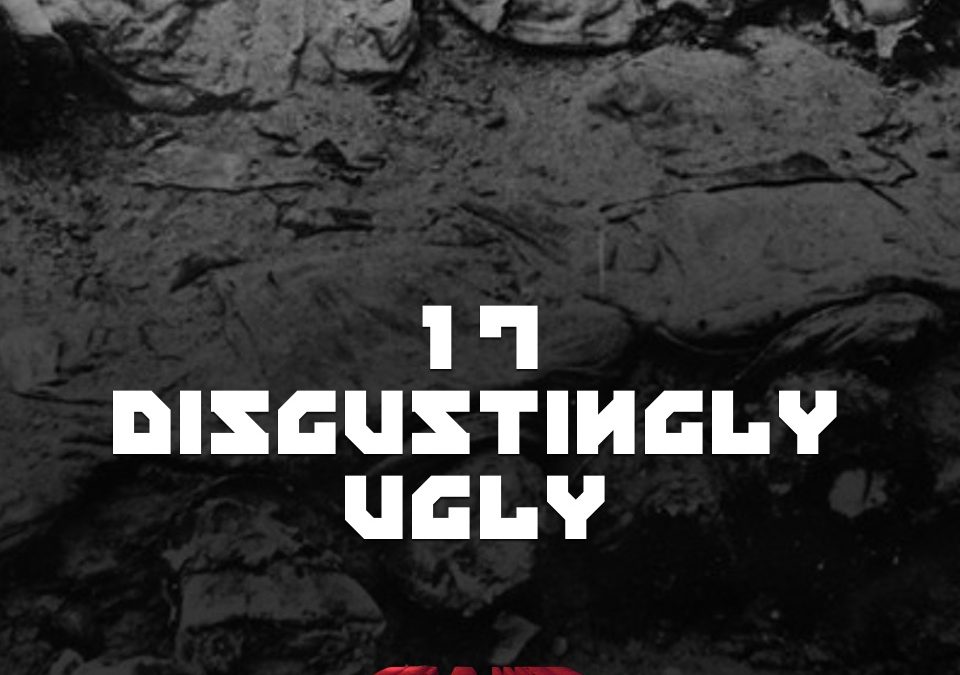
#17 – Disgustingly Ugly
We start in August 1942. Churchill is still in Moscow, getting down with Uncle Joe. Stalin accuses the British of being a bunch of pussies, too scared to fight the big bad Nazis.
To try to break up the UK/USA/USSR love nest, the Nazis dig up 3000 dead bodies of Polish generals (Katyn massacre) and lay the blame on the Soviets who deny it (but their fingers are crossed behind their backs). And Stalin dissolves the Comintern, pretending, for the moment, that he has no intention of trying to spread Communism any further around the globe.
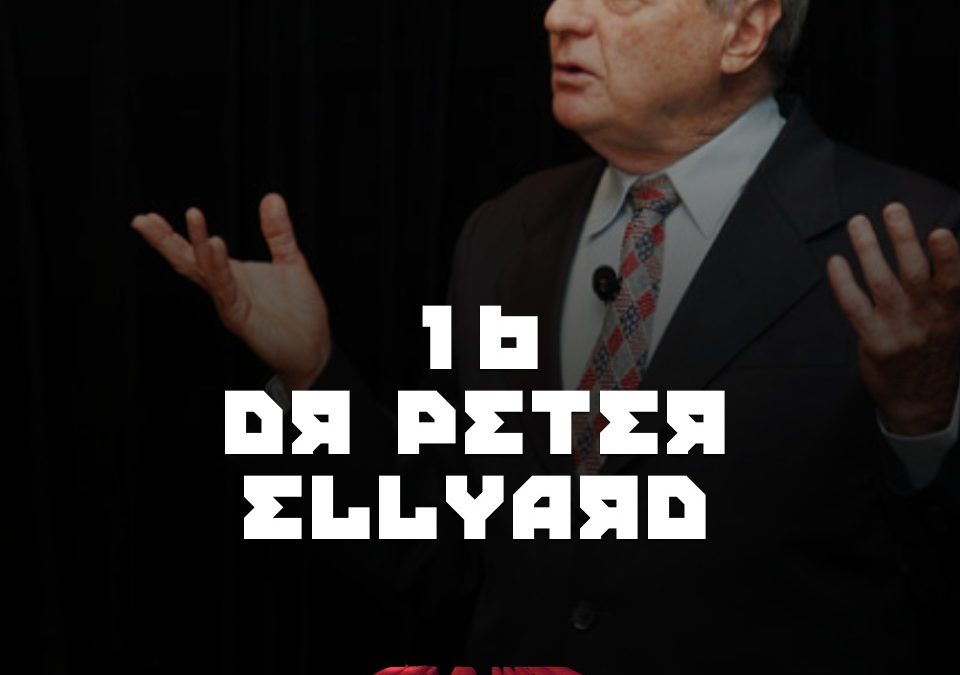
#16 – Dr Peter Ellyard
Our guest today is Dr Peter Ellyard, a futurist, strategist, speaker and author living in Melbourne, Australia. He is known for his unique perspectives on global trends and emerging global markets. He talks to us about the role that “planetism” and the rising global middle class has on the future of the species and preventing future global wars.
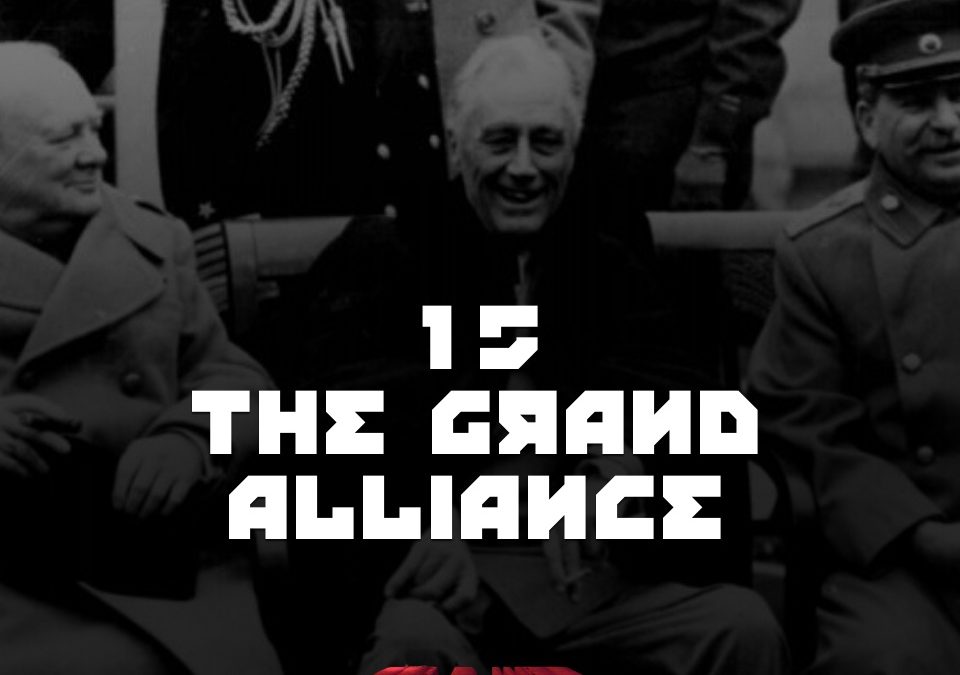
#15 – The Grand Alliance
In June 1941, the UK, USA and USSR slowly started to come together to defeat Germany and Japan. The Grand Alliance is often called the “Strange Alliance” because it united the world’s greatest capitalist state, the greatest communist state and the greatest colonial power.
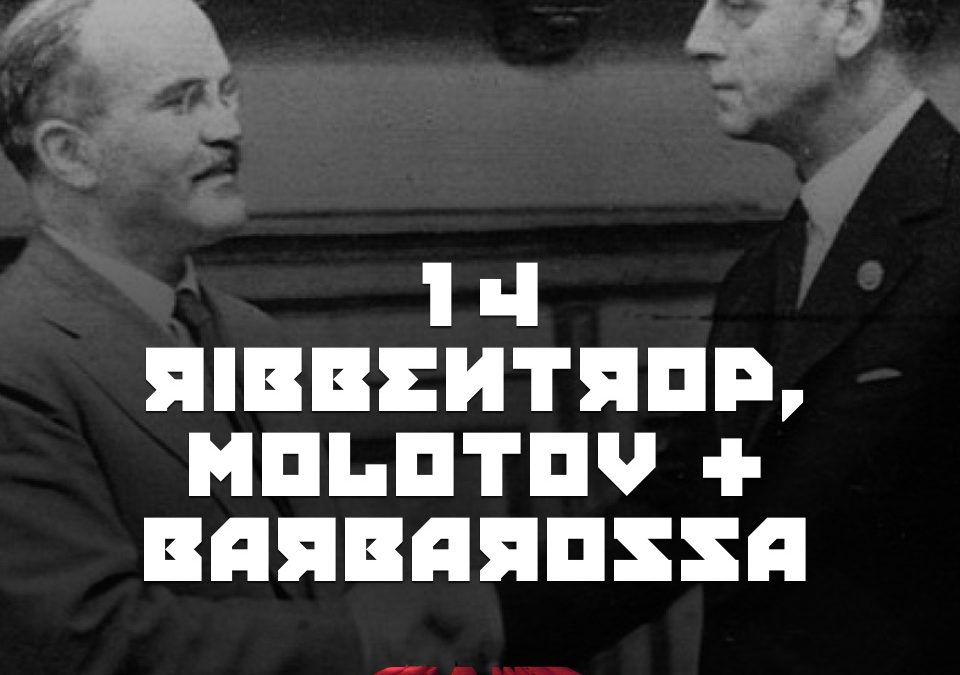
#14 – Ribbentrop, Molotov, Barbarossa
In this episode we talk about the non-aggression pact signed between Nazi Germany and the USSR in 1939, known as the Ribbentrop – Molotov Pact, and then how Hitler decided to terminate it in 1941 when he launched a surprise invasion on the USSR, known as “Operation Barbarossa”. We also talk a little of the history of Poland, The Munich Agreement, and Stalin’s fondness for a good tune.
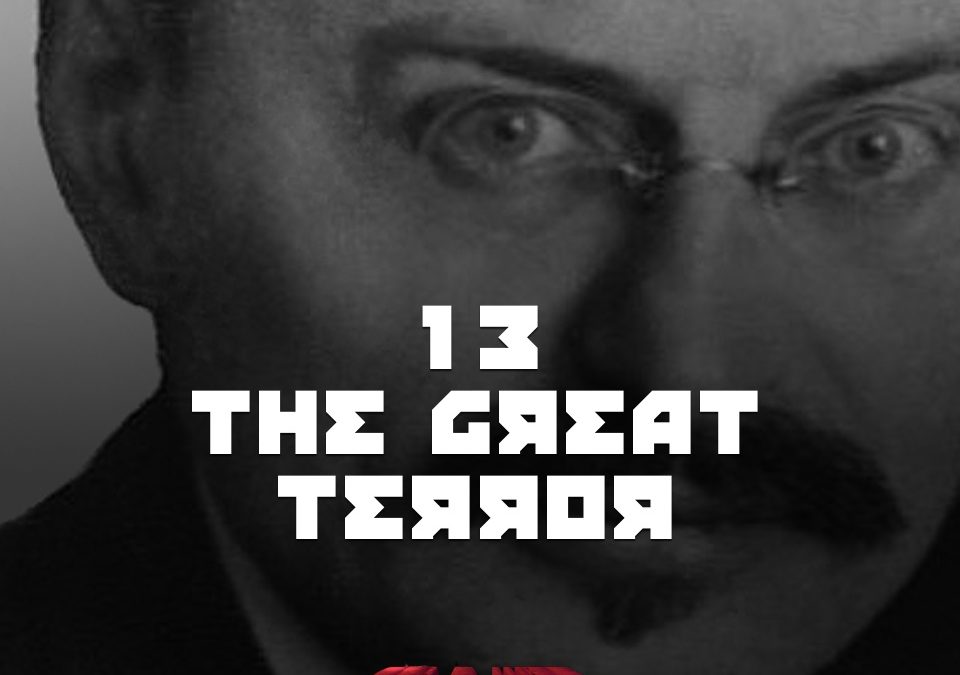
#13 – The Great Terror
Today’s episode starts off with part 4 of our series on economics, where we look at the role of the media, and then launches into Stalin’s “Great Terror”. And we finish answering a question from a listener about Brexit.
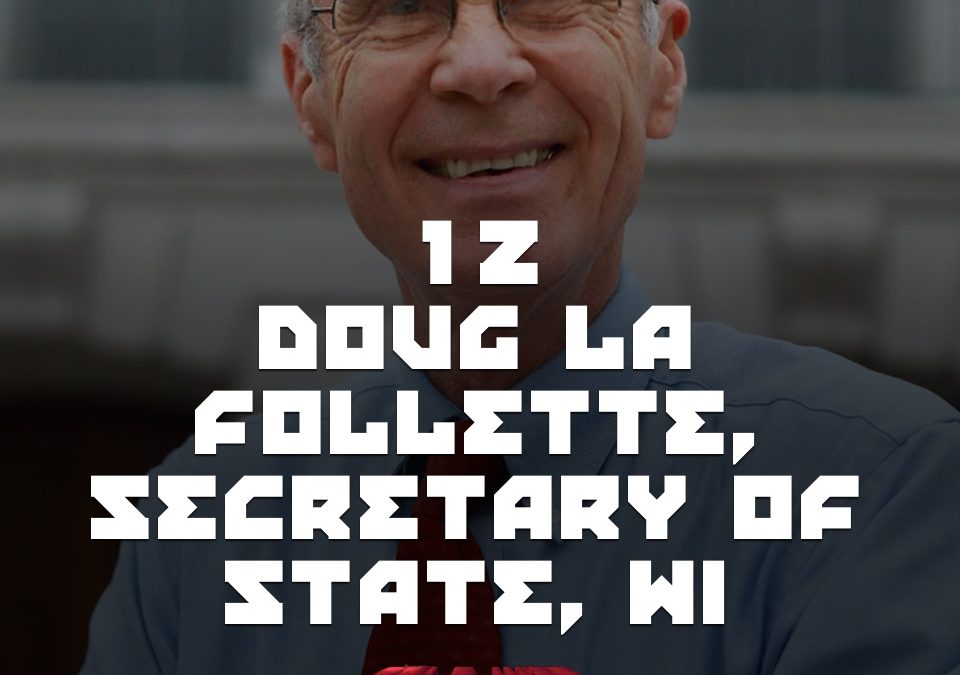
#12 – Doug La Follette
Our first guest on the Cold War series is Doug La Follette, Secretary of State of Wisconsin!
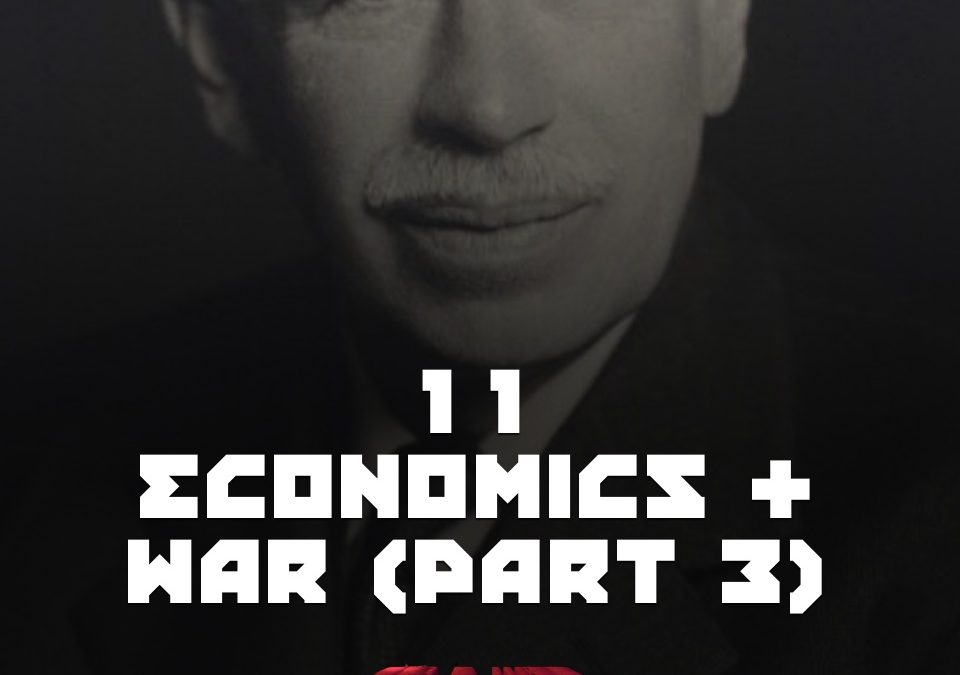
#11 – Economics & War Pt 3
Part 3 of our three-part series on economics and war, where we drill down into the various ways companies profiteer from war and how it stimulates the economy via “Military Keynesianism”.
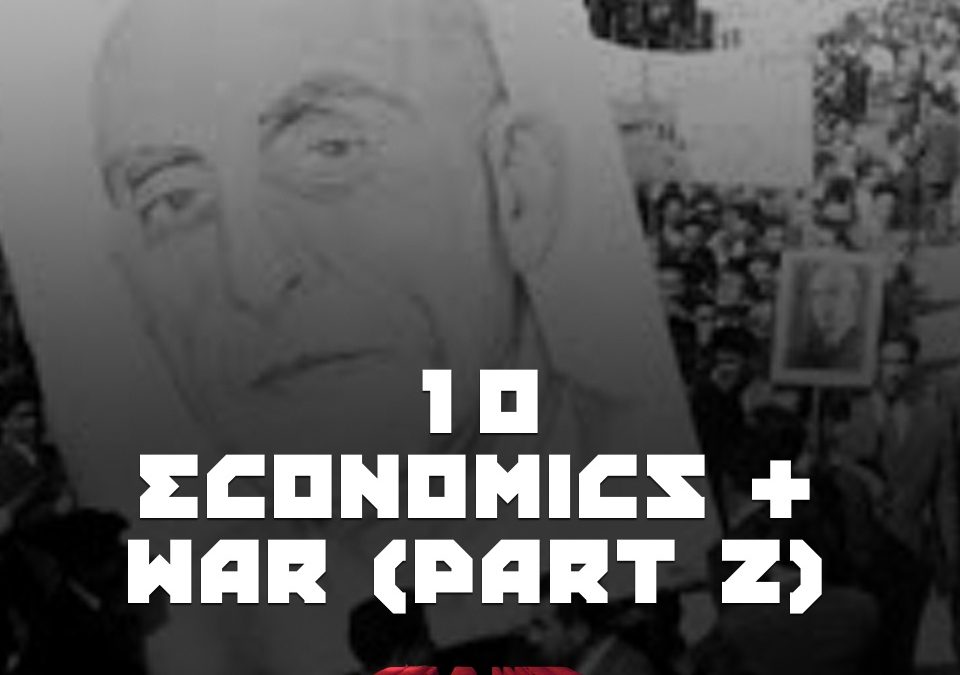
#10 – Economics & War Pt 2
Part 2 of our three-part series on economics and war. Still talking about trade and access to foreign markets. We look at the CIA’s overthrow of the Iranian government in 1953, the Marshall Plan and the Open Door policy.

#9 – Economics & War Pt 1
This is going to be the first in a series of episodes where we talk about economics and war. I know – economics is a scary boring subject, but it’s really just the study of how people make and spend money. In this episode we’re going to argue that economics (money) was a significant factor in the genesis of the Cold War (and pretty much every other war in history too). We’ll talk about imperialism, gunboat diplomacy, big stick diplomacy, dollar diplomacy, propaganda, Edward Bernays, Walter Lippman, economic hit men, and the Monroe Doctrine. As Major General Smedley Butler wrote: “War is a racket”.
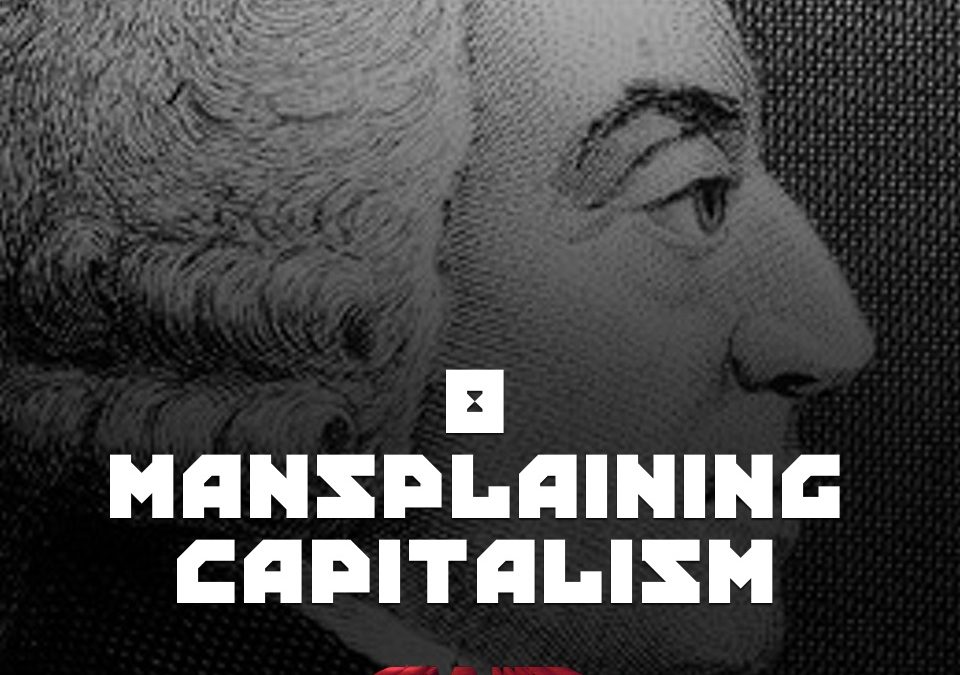
#8 – Mansplaining Capitalism
Okay so we’re still talking about IDEOLOGY.
On our last episode we didn’t get time to get into talking about CAPITALISM, so that’s what we’re doing on this episode. We talk a little about the history of capitalism, try to define it, and discuss how the United Kingdom’s imperialist control over 25% of the world’s economy wasn’t something that FDR was willing to tolerate. If the UK wanted US support in WWII, they were going to have to bend over and take it up the English Channel.
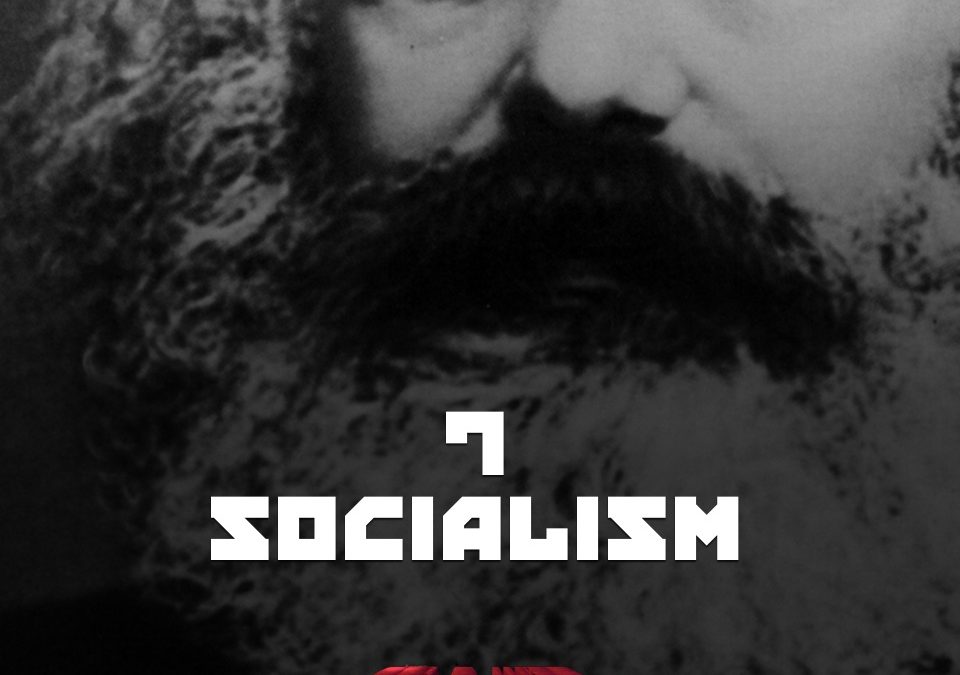
#7 – Socialism
On this episode, our first premium episode, we continue talking about IDEOLOGY.
SOCIALISM v CAPITALISM.
TWO IDEOLOGIES ENTER, ONE IDEOLOGY LEAVES.
Or something like that.
What are they? How are they different?
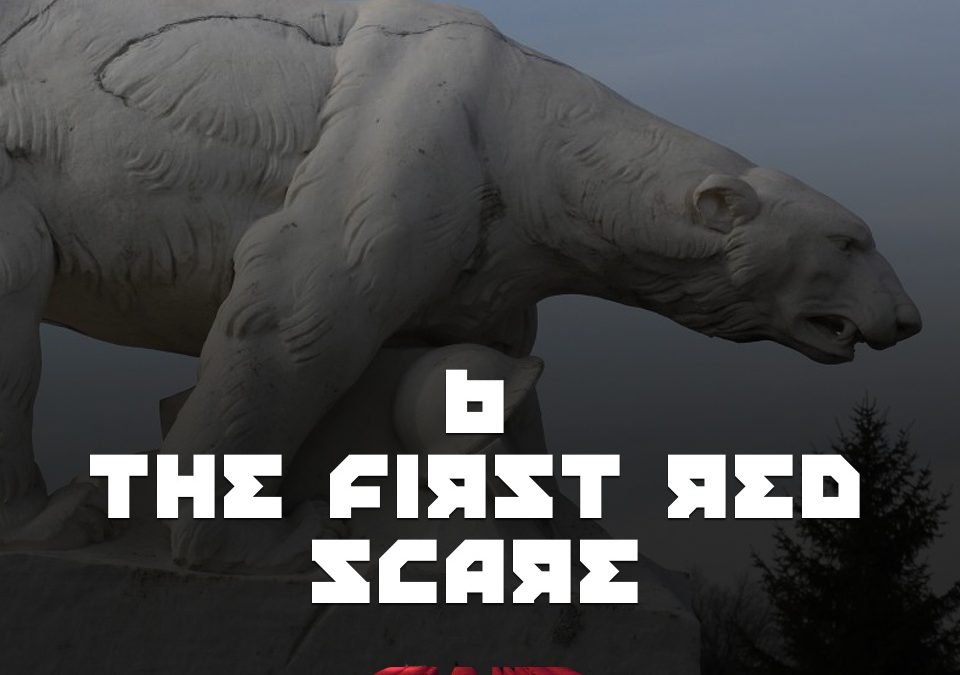
#6 – The First Red Scare
This is part one of a few episodes that will explain the military, ideological and economic conflicts and tensions between the US, UK and USSR before the Cold War. In this episode, we look at the “Polar Bear Expedition” and the first “Red Scare” in the US.
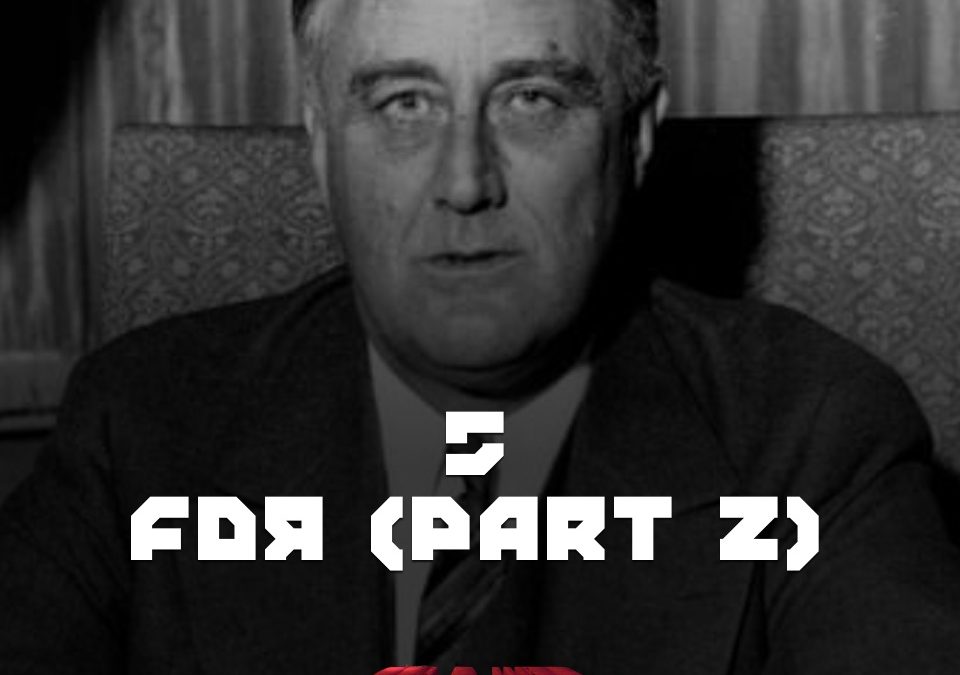
#5 – FDR Part Two
Part Two of our mini-biography of FDR.
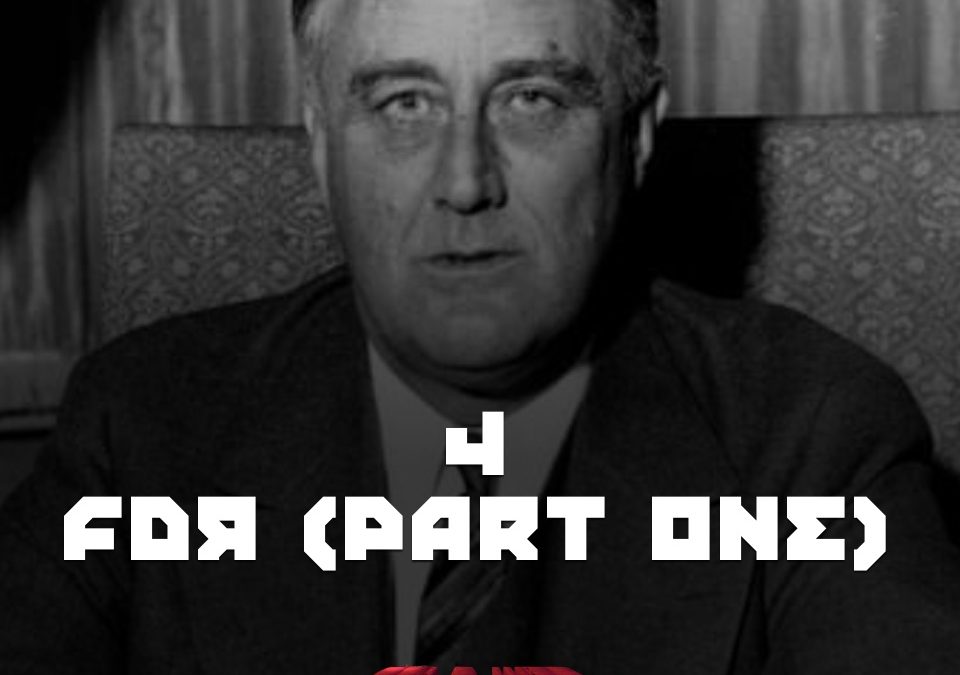
#4 – FDR Part One
Part One of our mini-biography of everyone’s favorite wheelchair pilot, FDR. His family background (opium traders), his rise, his polio, his affairs, his reforms, his ballsy attitude, his assassination attempt, his concentration camps and how incredibly fucked America was when he was sworn in. In 1933, the US was in dire straits. Three years into the Great Depression, the Dust Bowl, and a third-rate military. When he died in 1945, it was the world’s leading economic and military superpower.
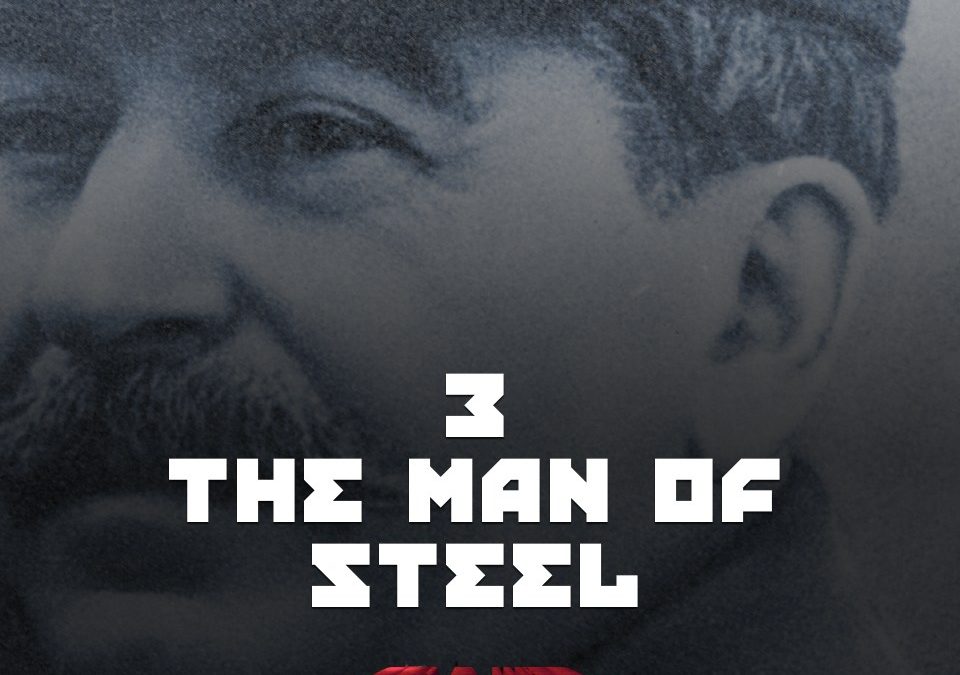
#3 – The Man Of Steel
Ioseb Besarionis dze Jughashvili aka STALIN. Unlike Churchill and Roosevelt, Joseph wasn't born into the elite classes of society. His father was a cobbler; his mother, a housemaid. As a young man, he trained to become a priest, but it didn't take. Soon afterwards he...
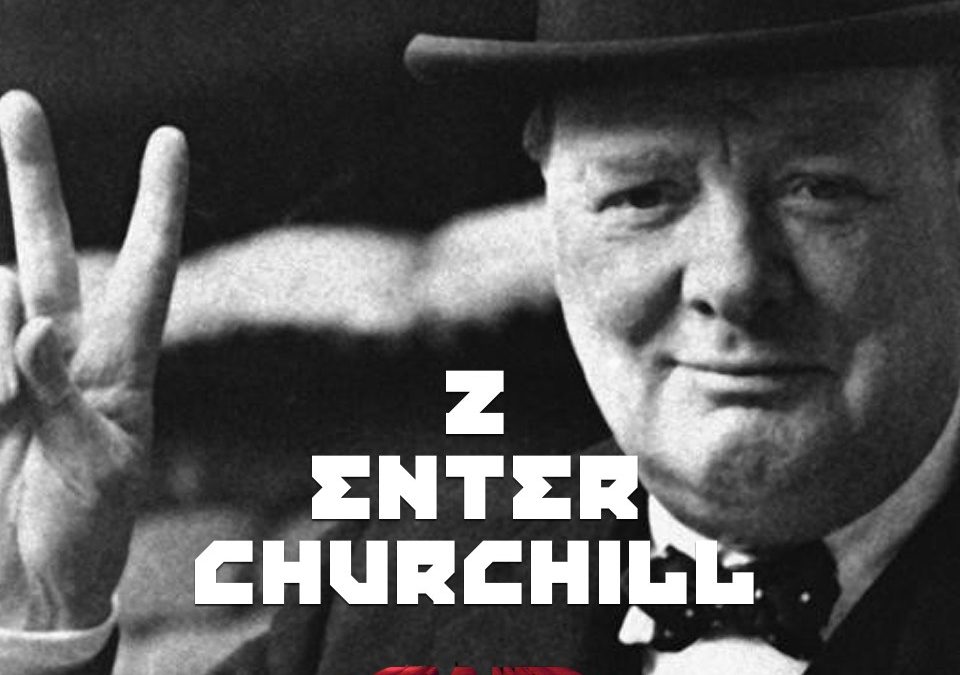
#2 – Enter Churchill
Winston Leonard Spencer Churchill was a fascinating character. His reputation as a "great man", as the brave British wartime leader who defeated the Nazis, hides his reputation before and after WWII - a racist who enjoyed participating in "a lot of jolly little wars...
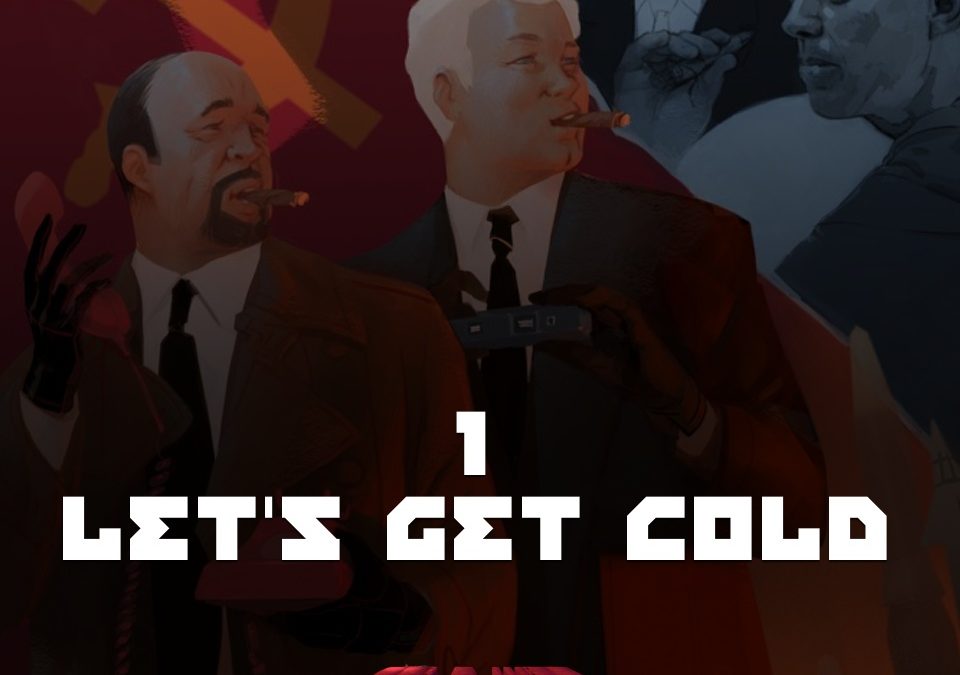
#1 – Let’s Get Cold
Daniel Ellsberg, the Pentagon military analyst who in 1971 released to the media what became known as "the Pentagon Papers", says that "The understanding of the Cold War that 99 out of 100 Americans hold right now … is a fairy tale." We agree - and we’re here to try...